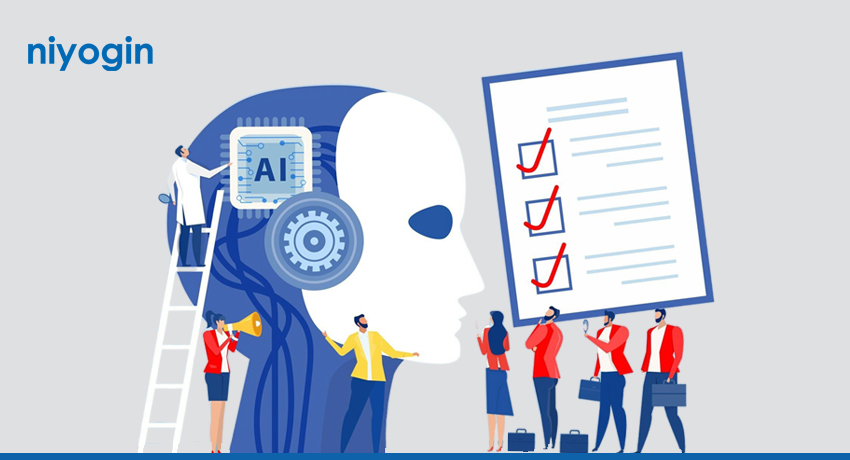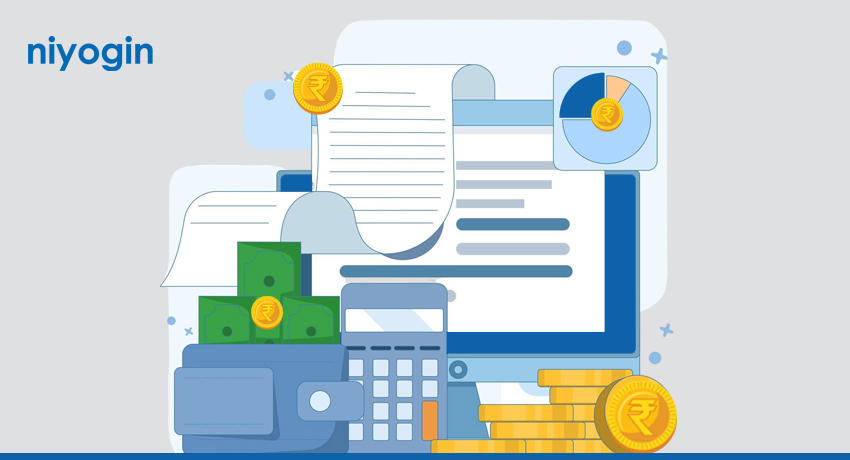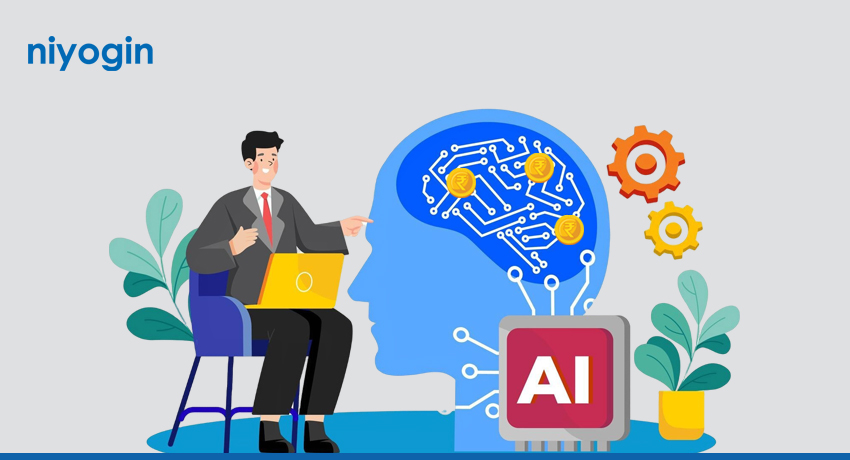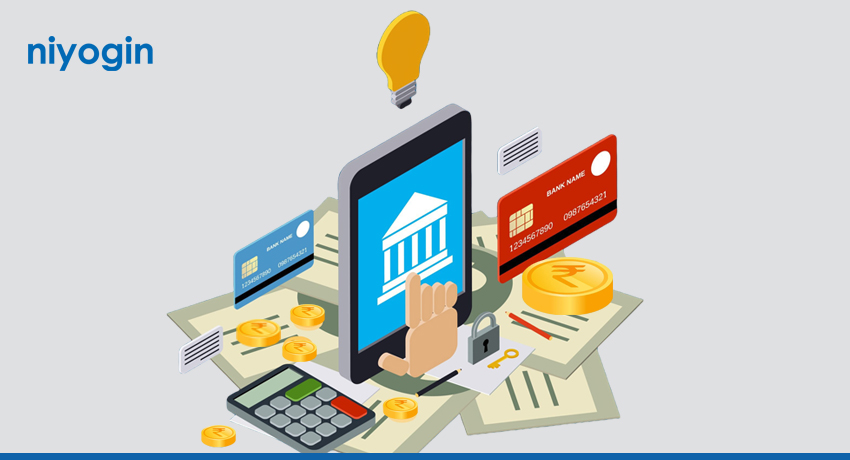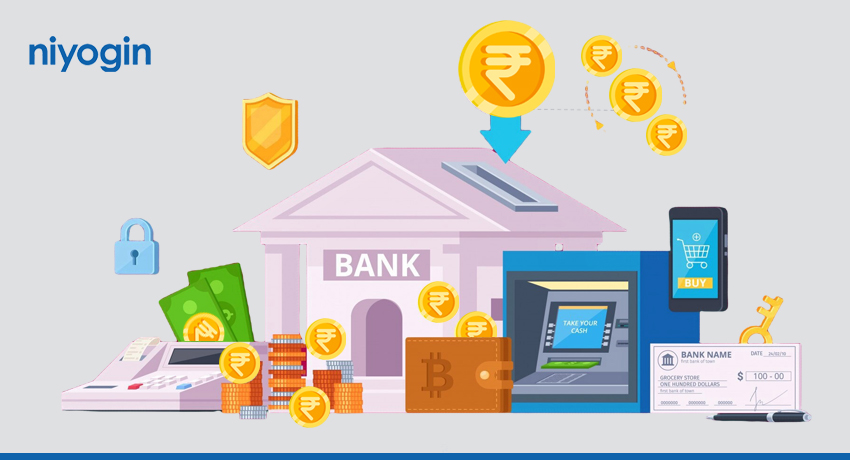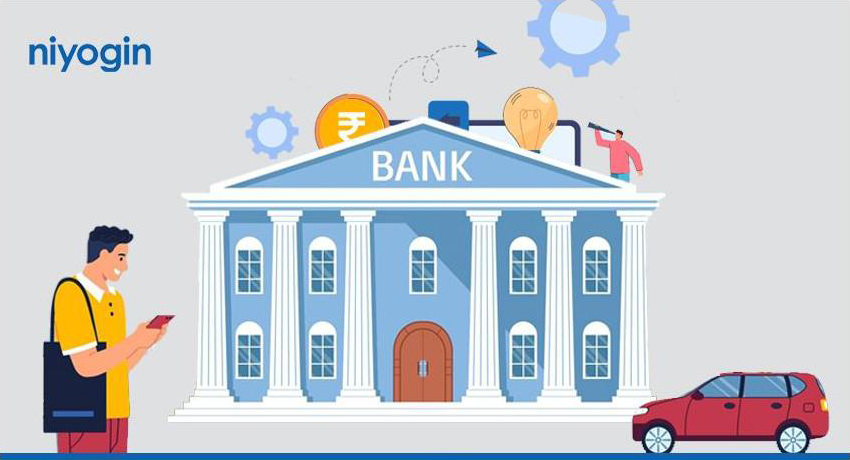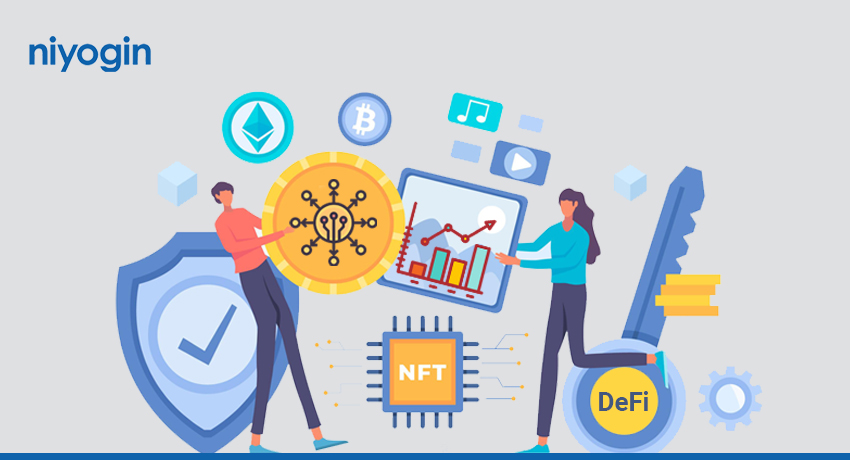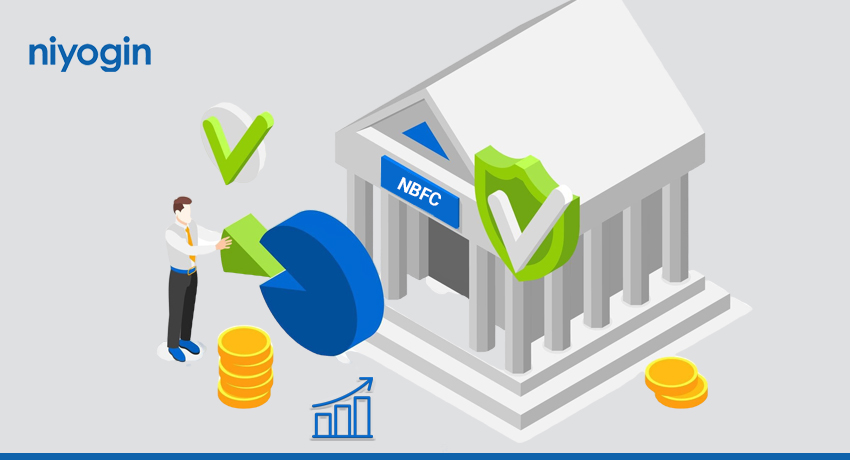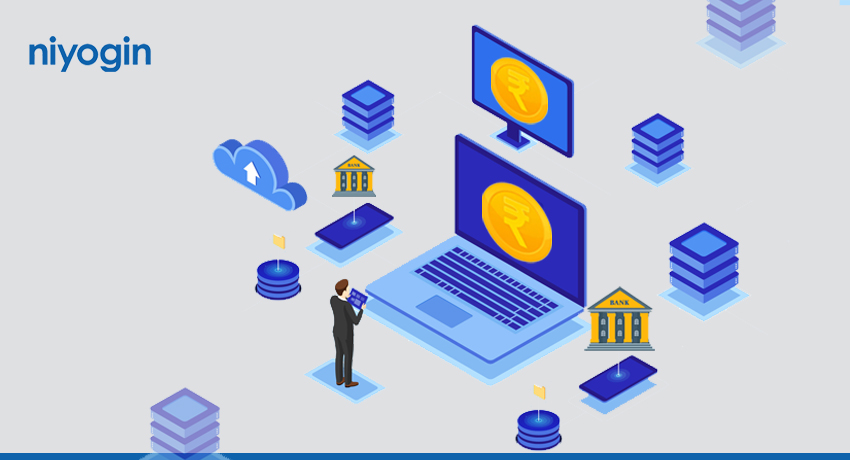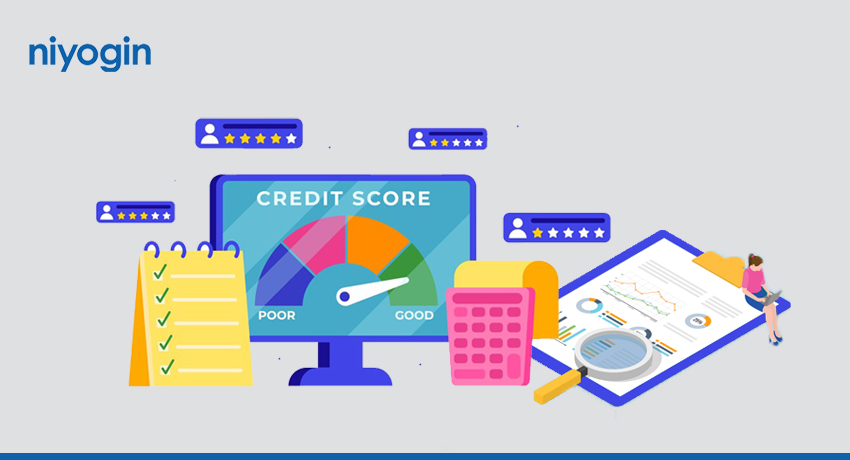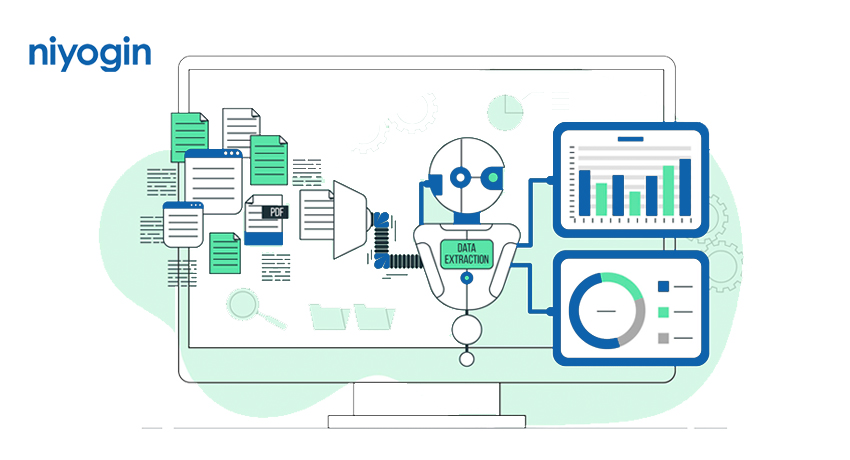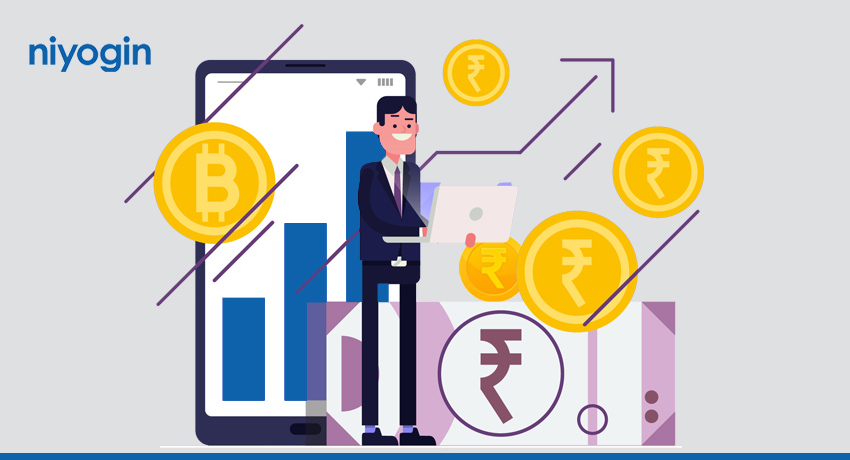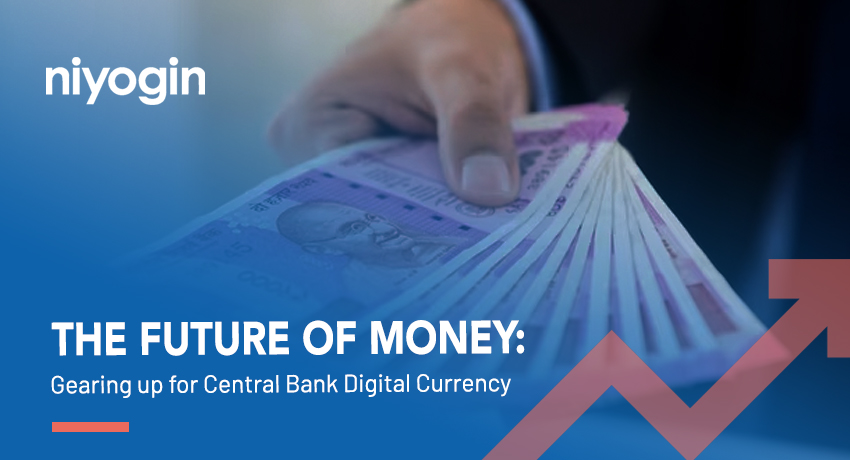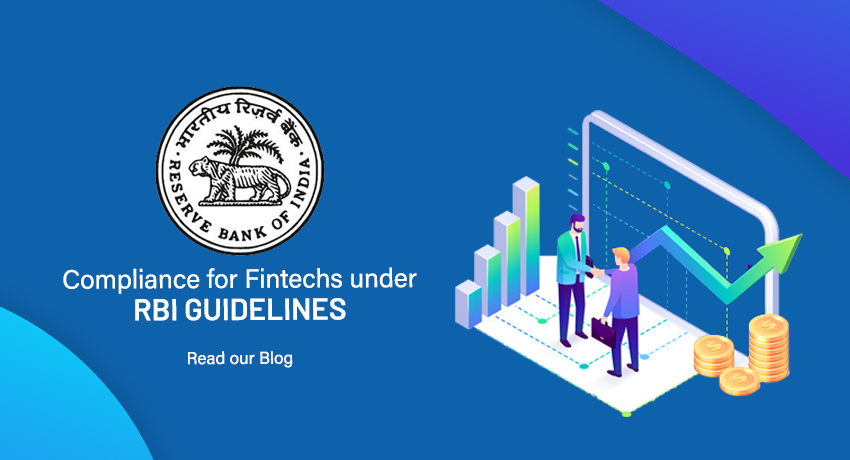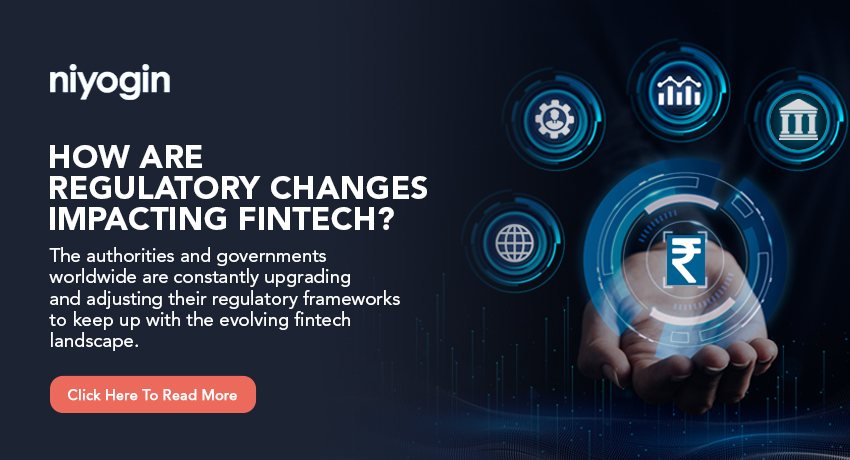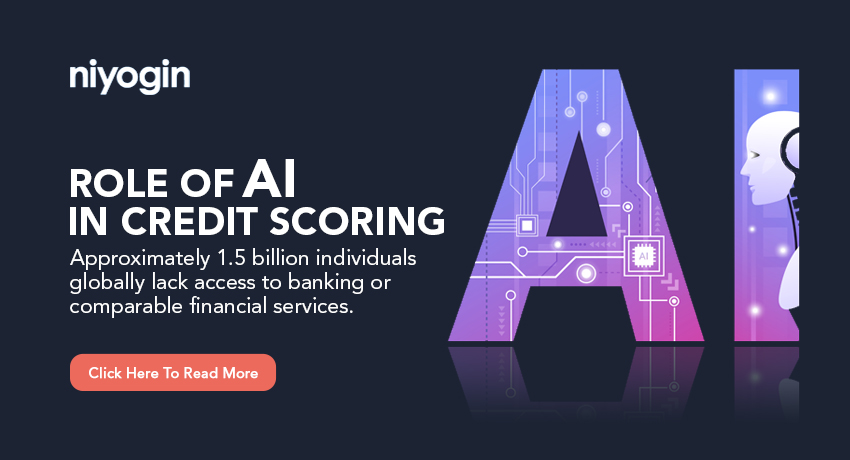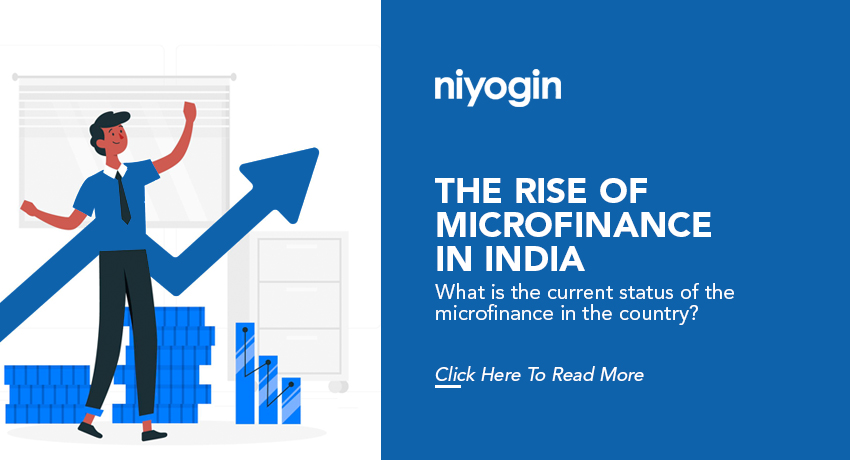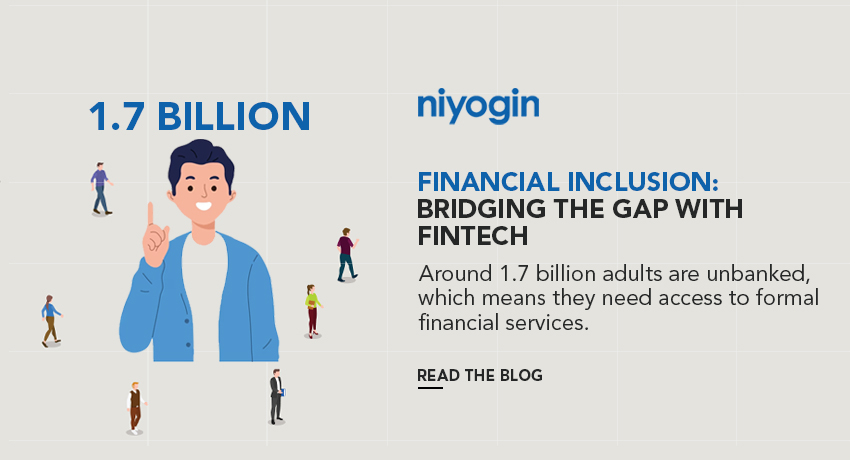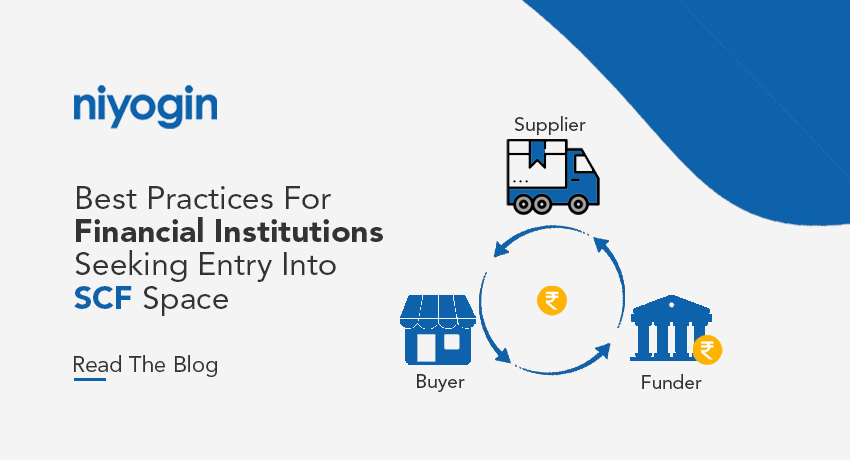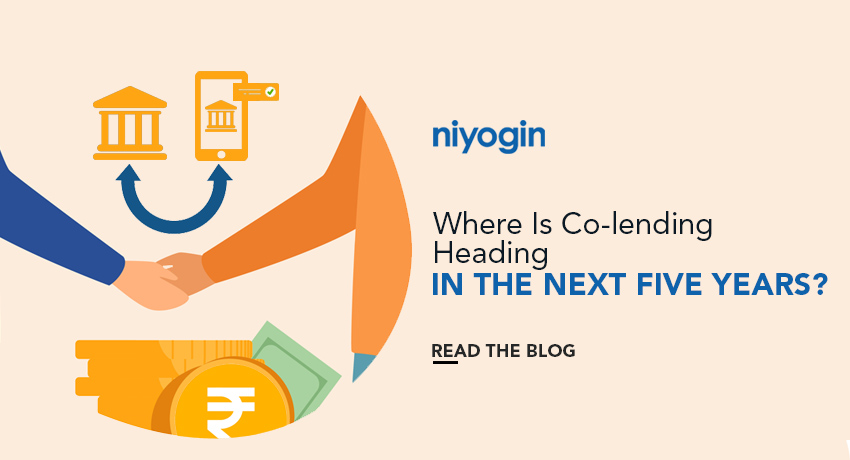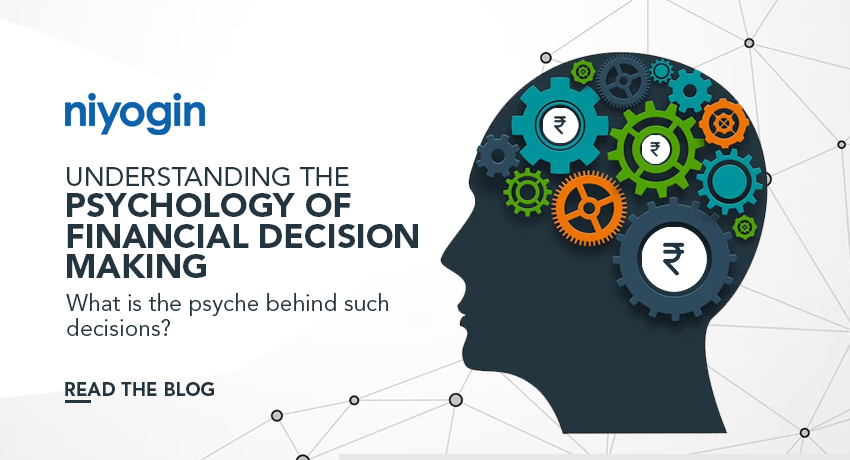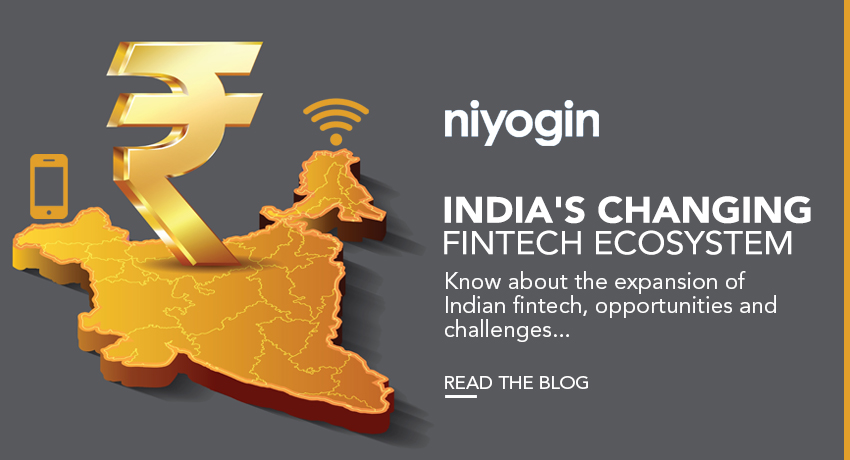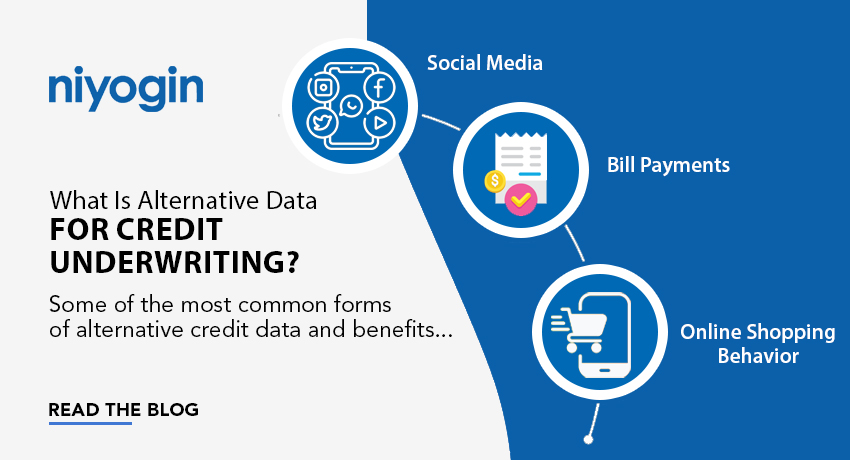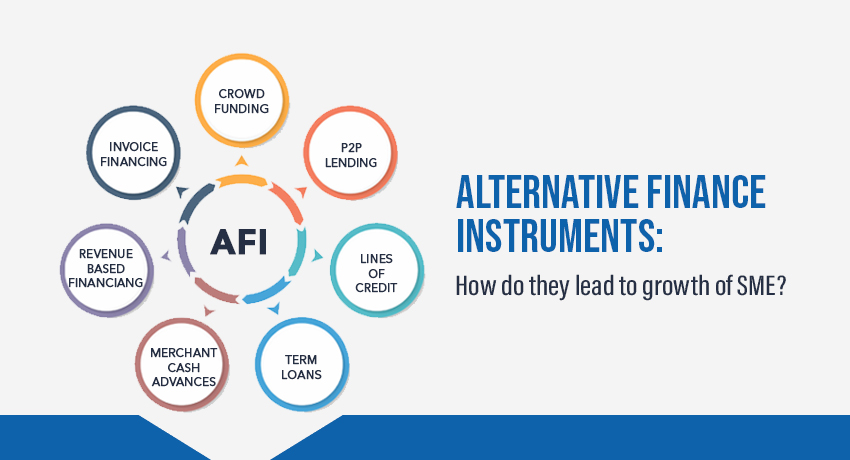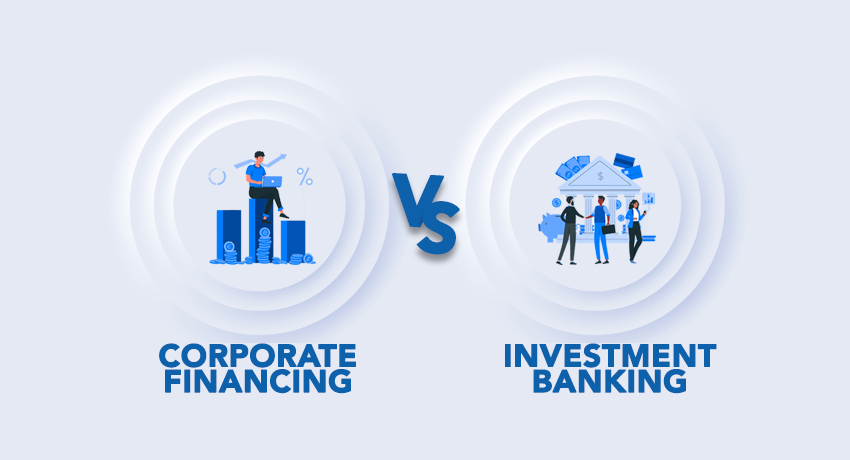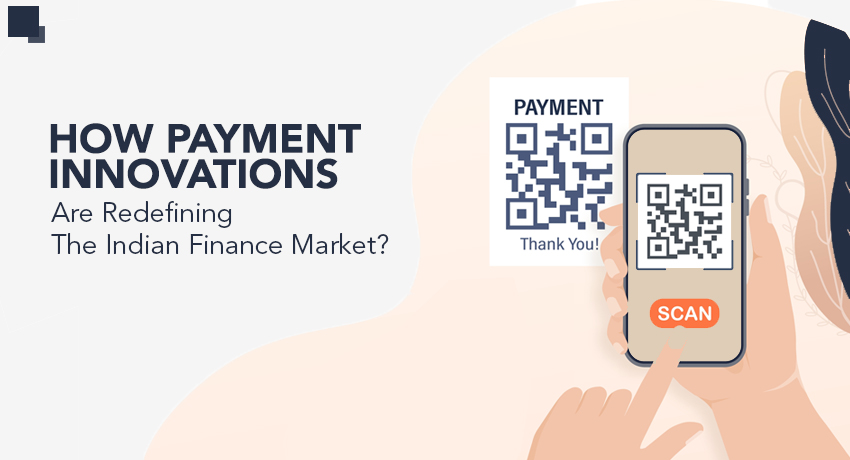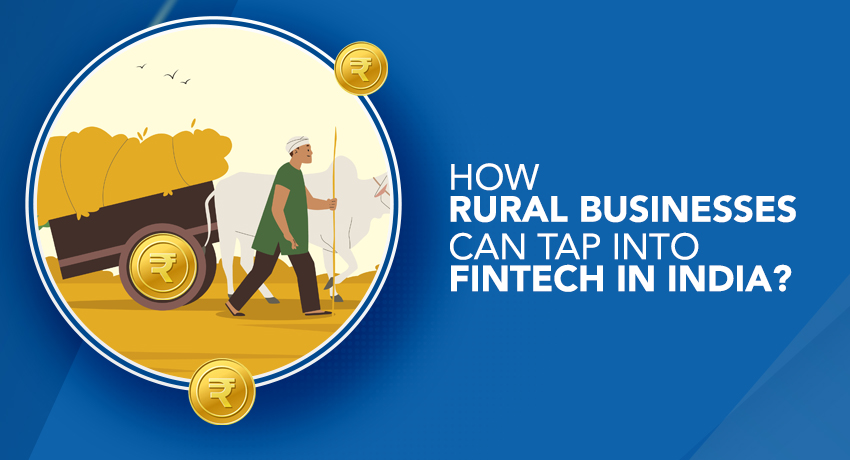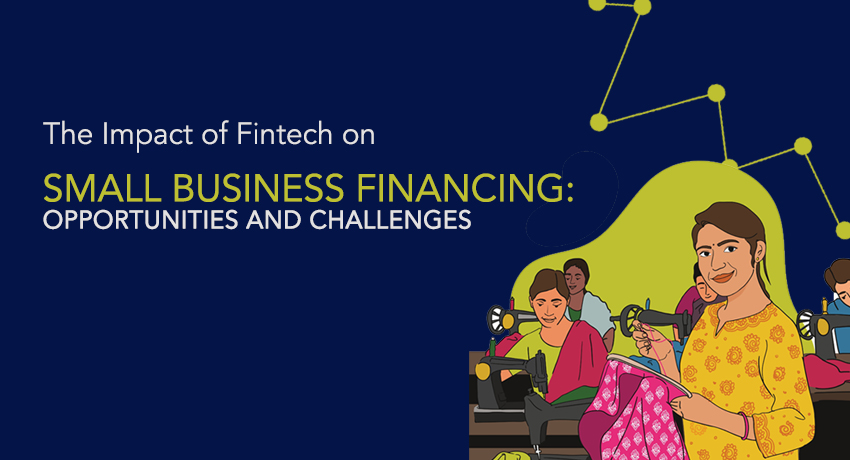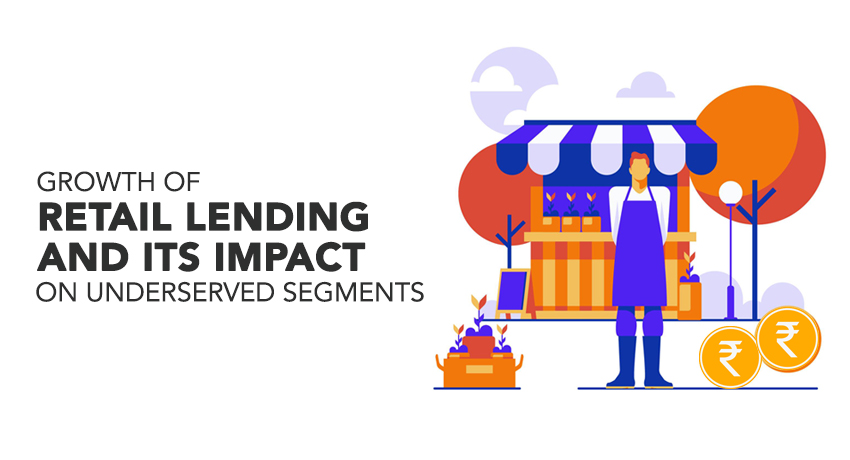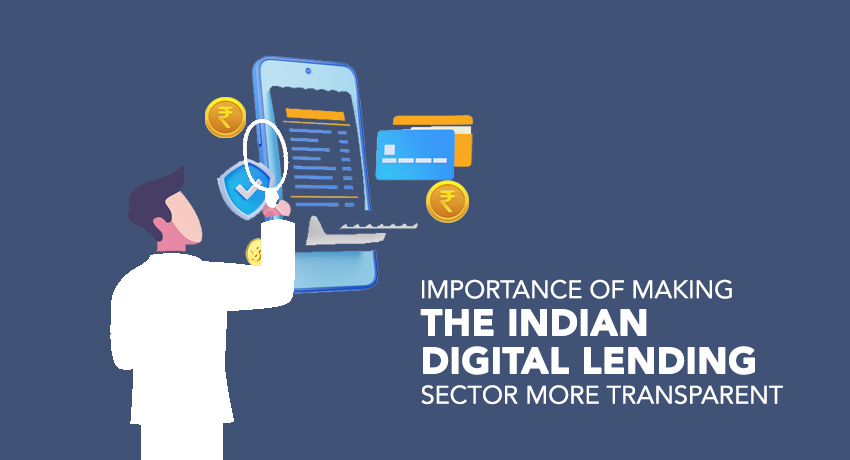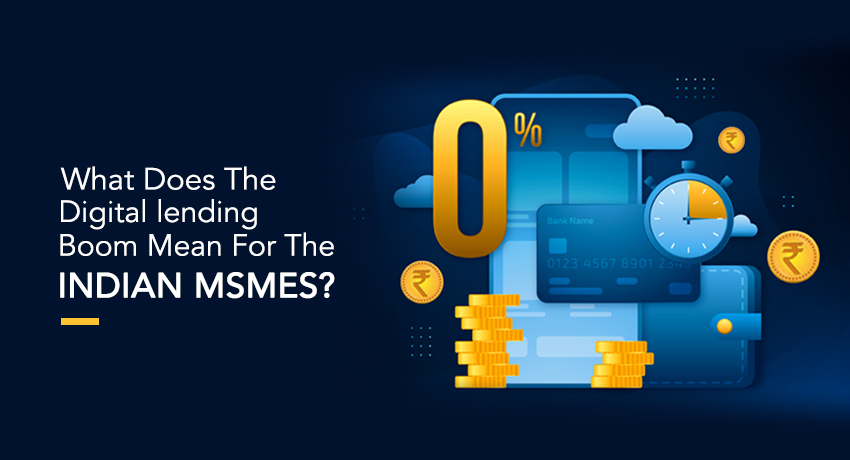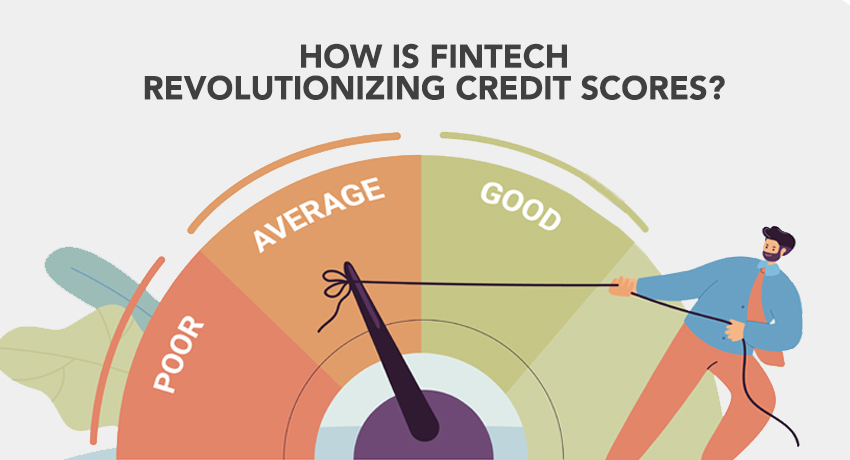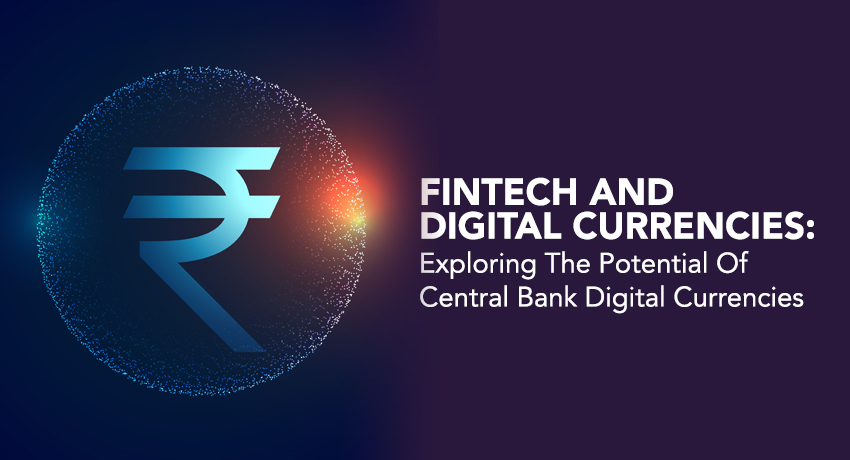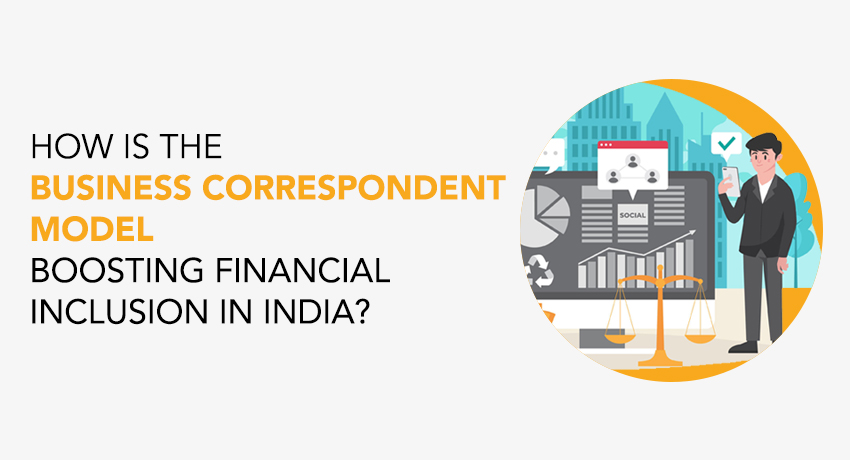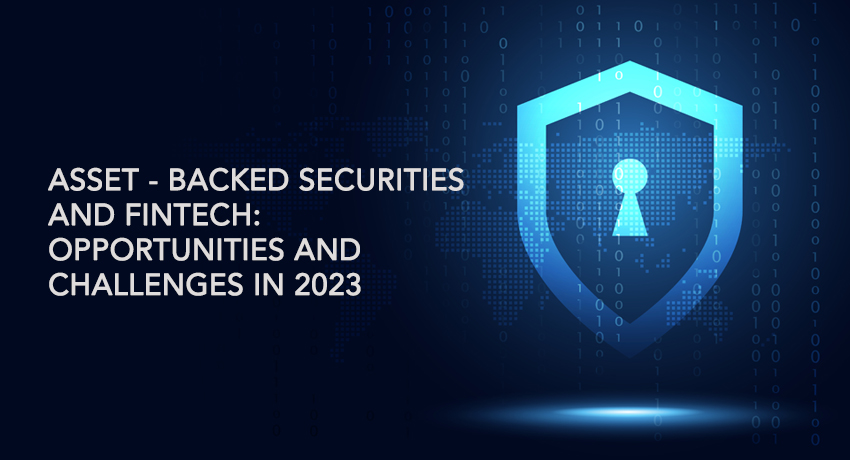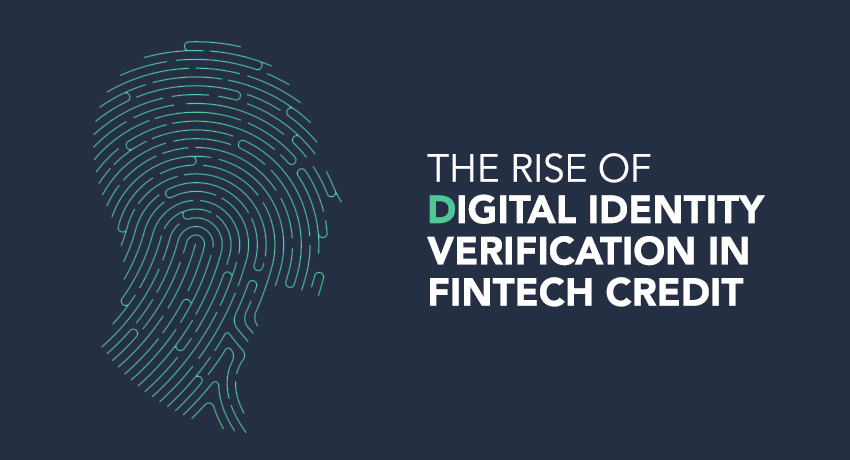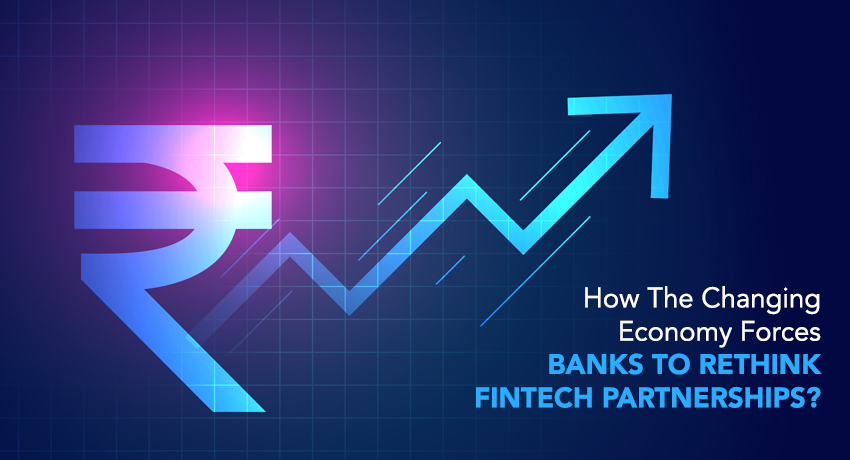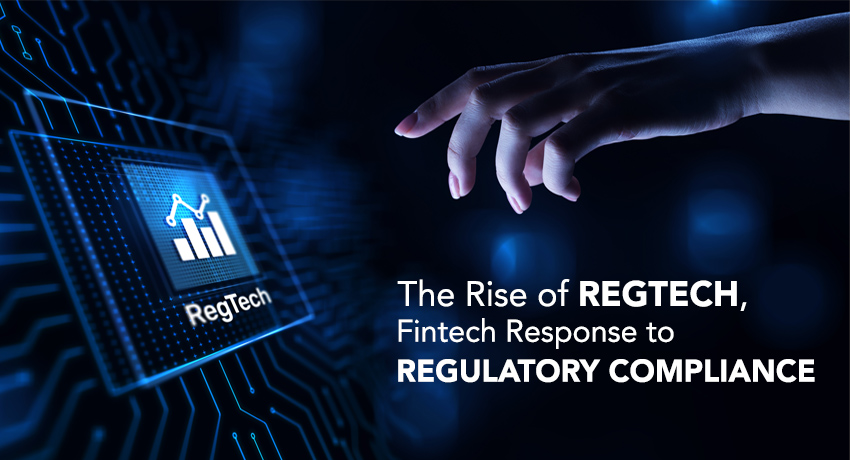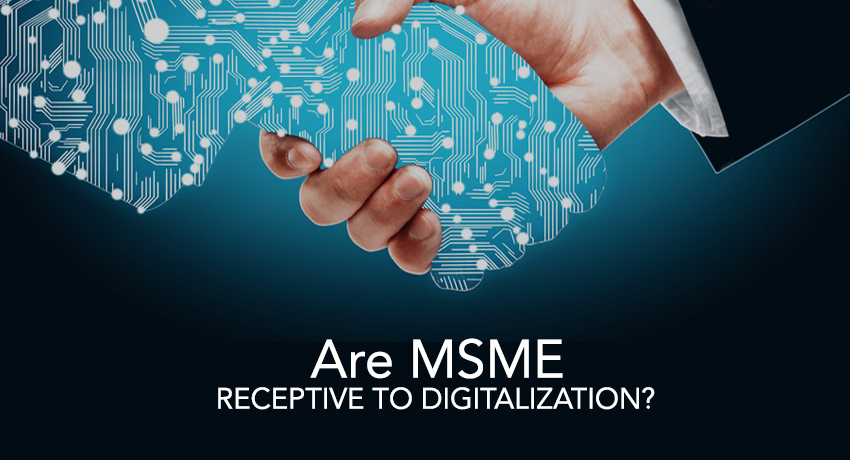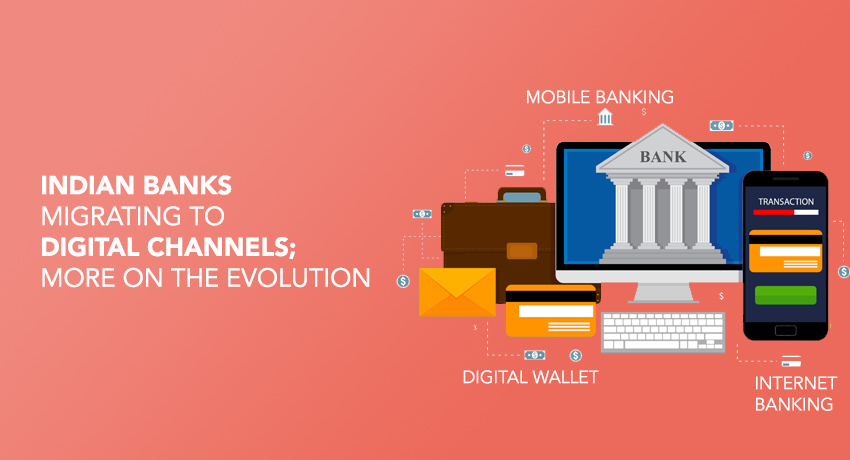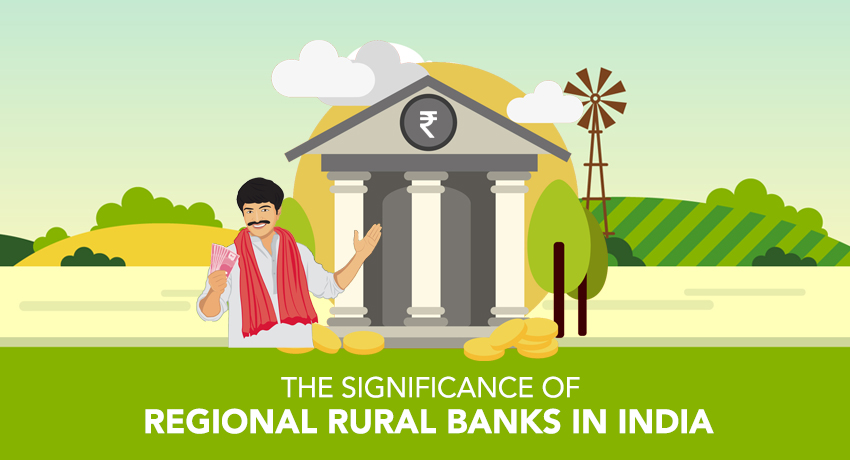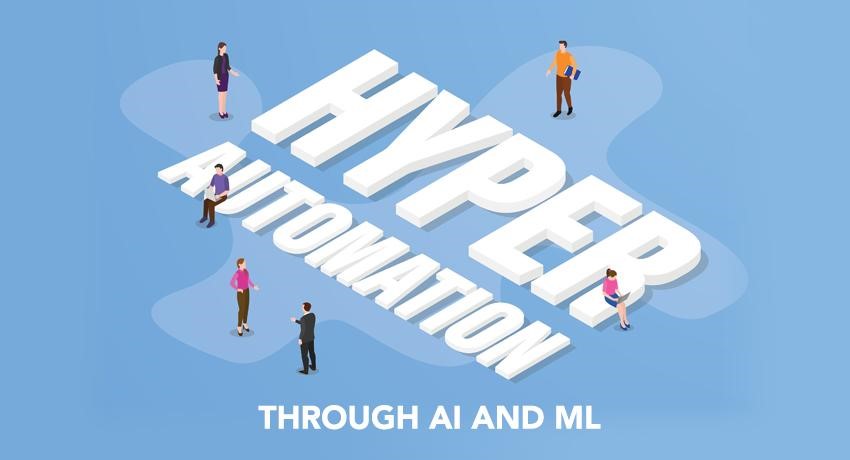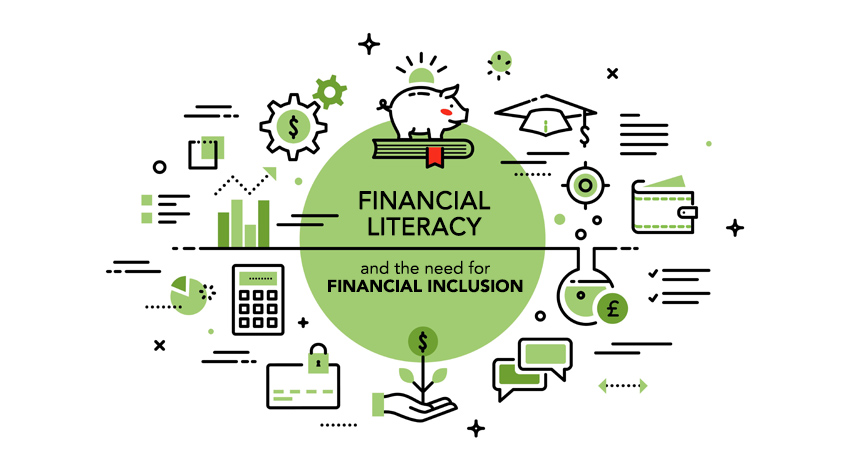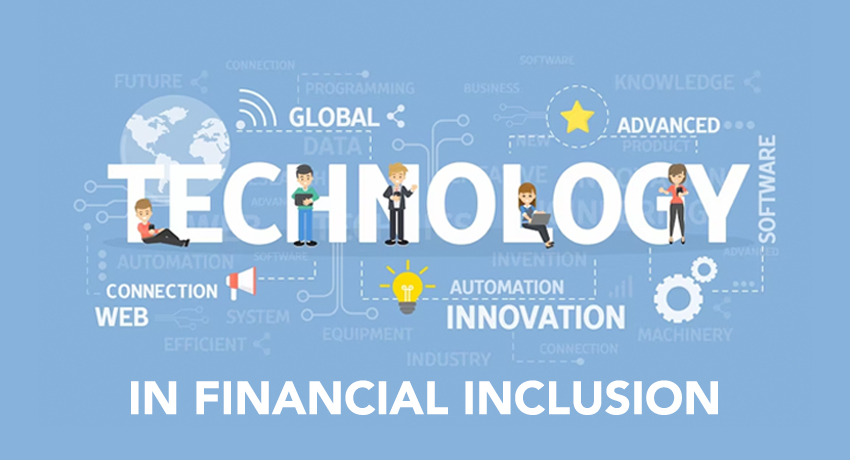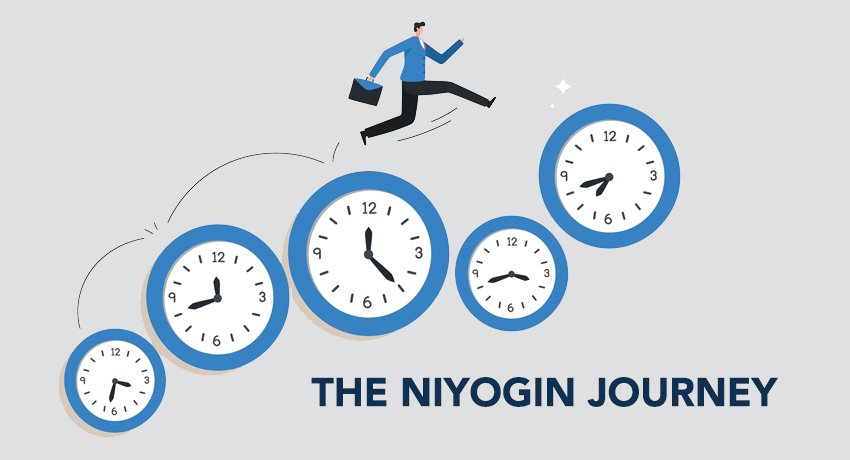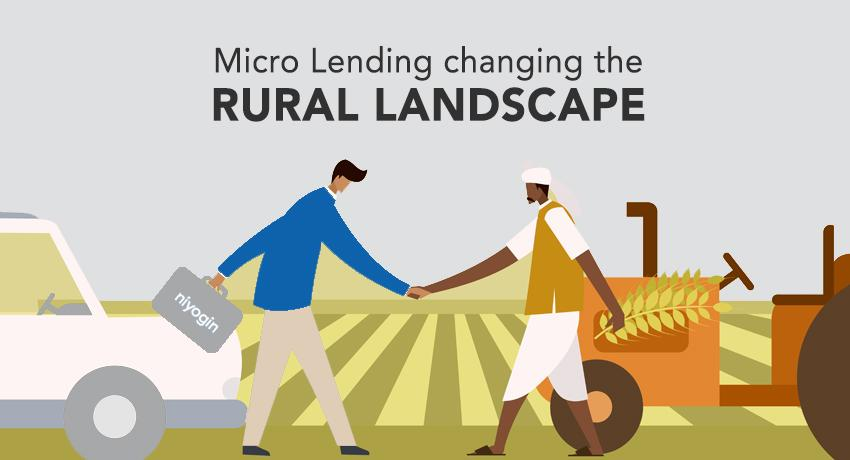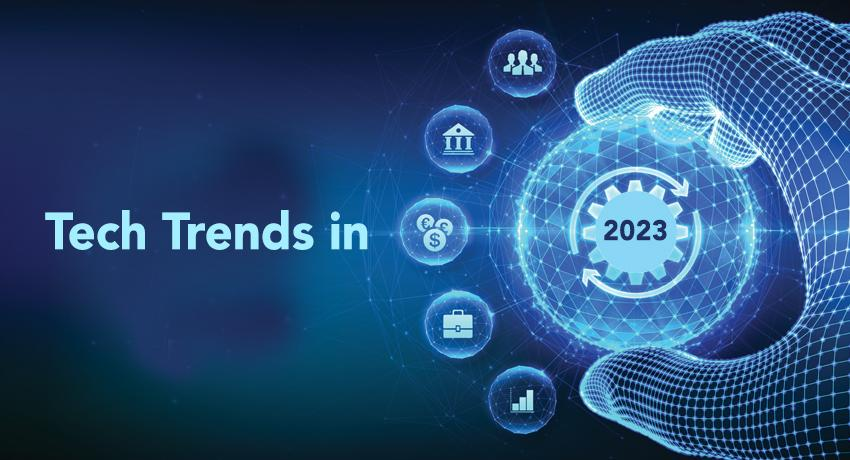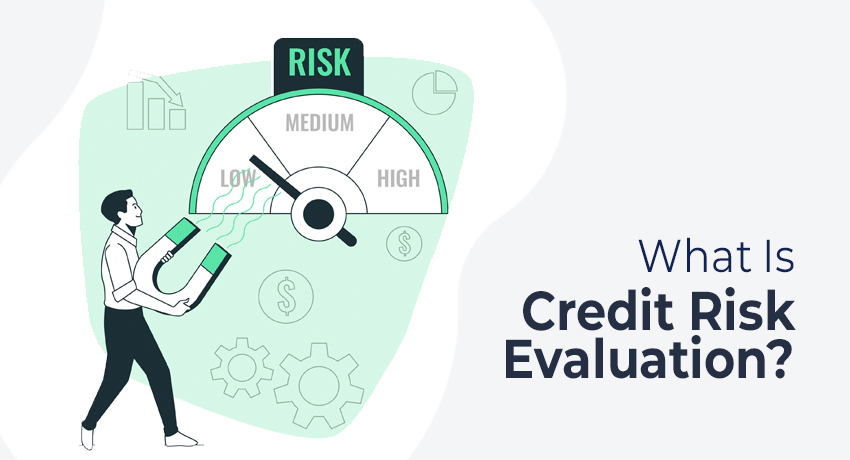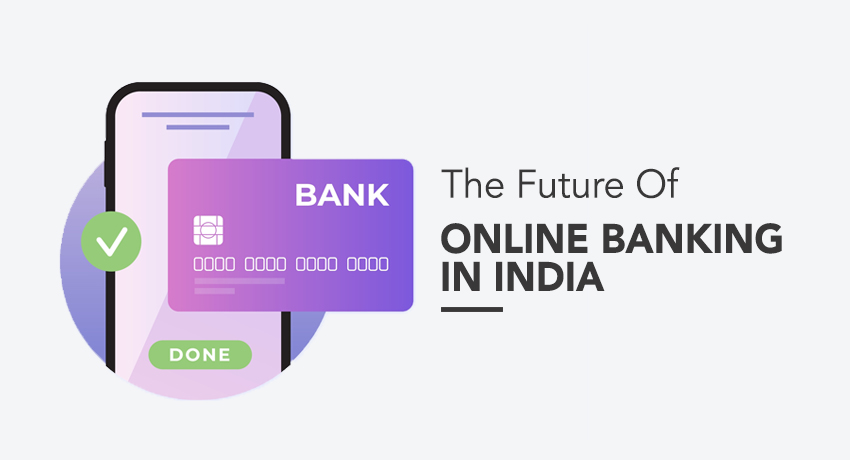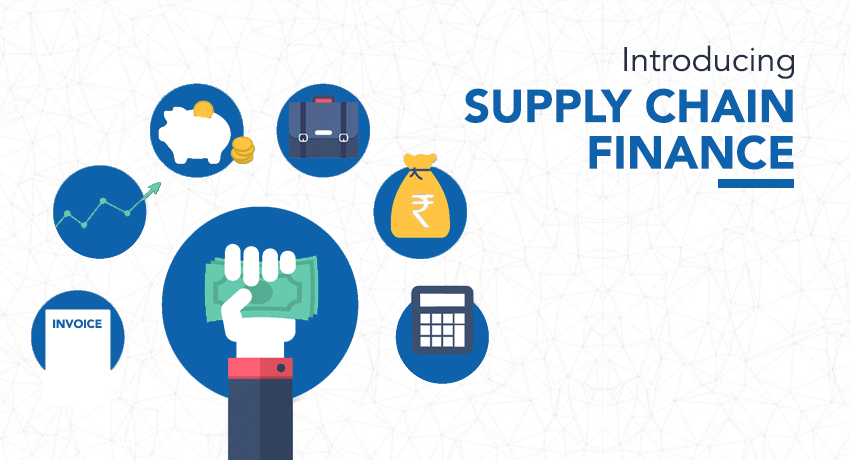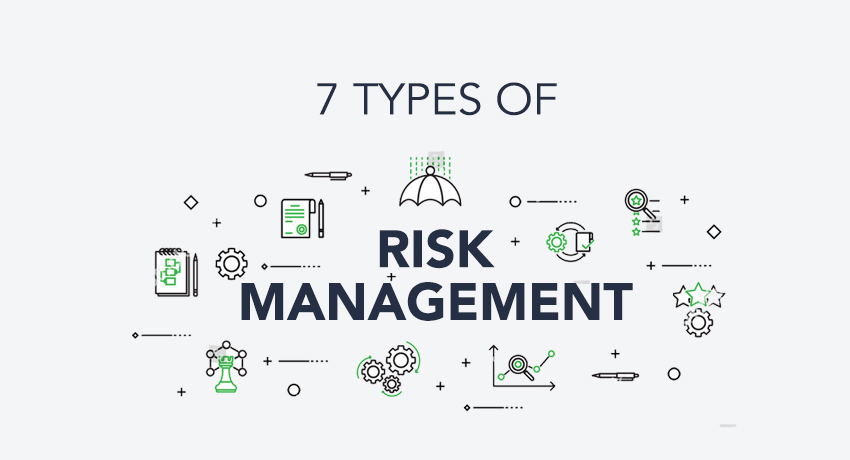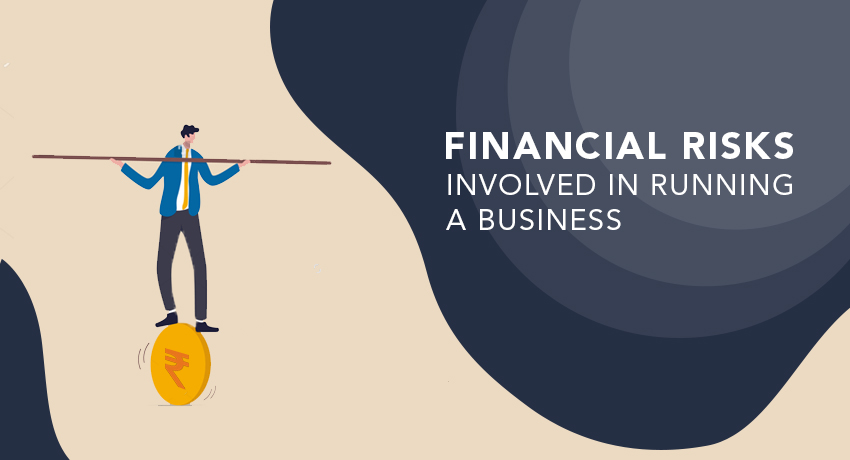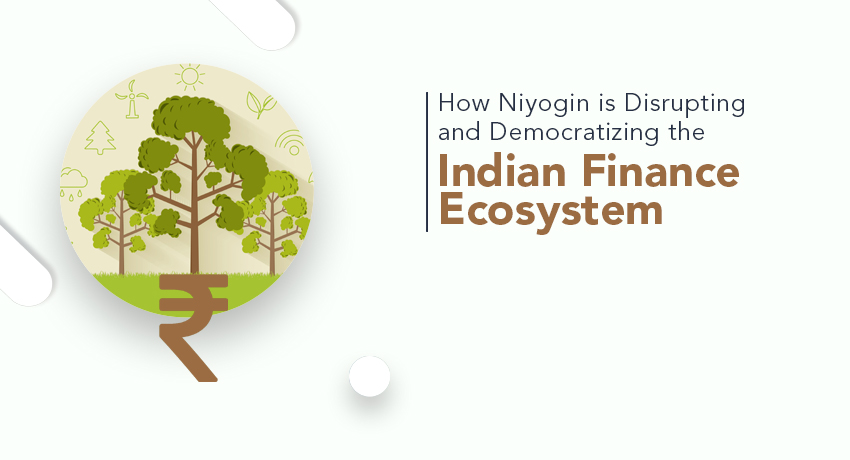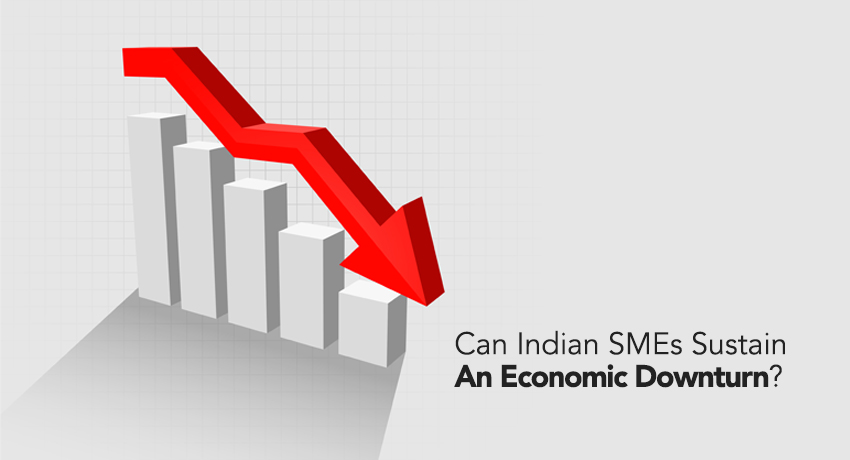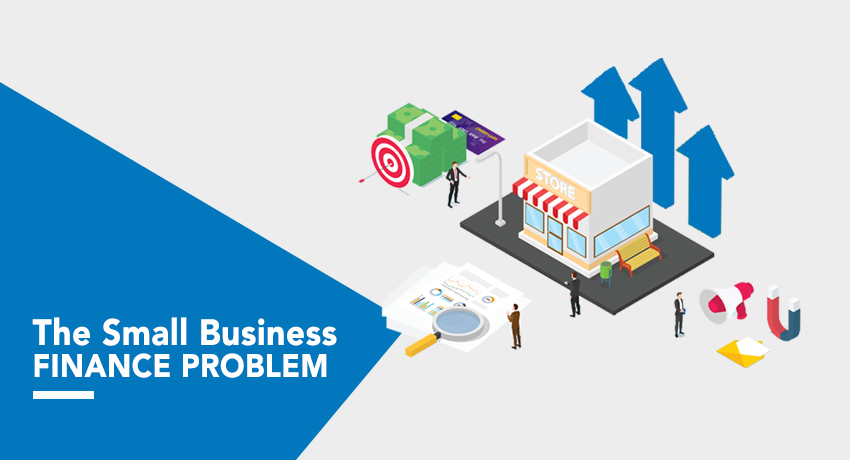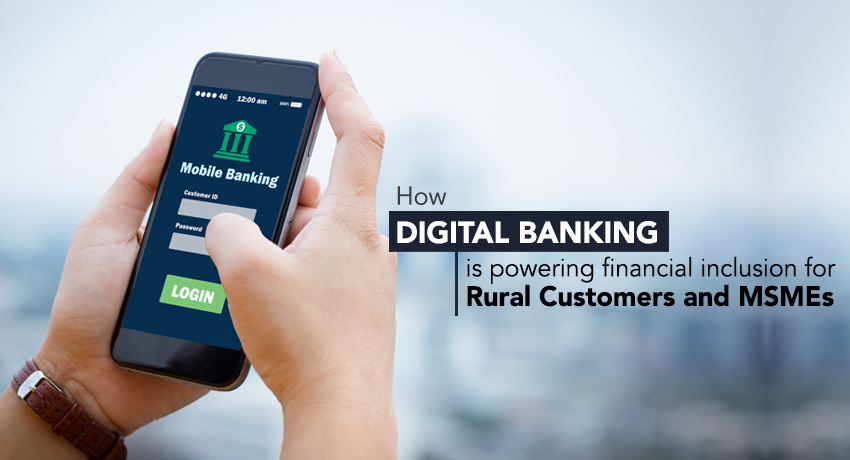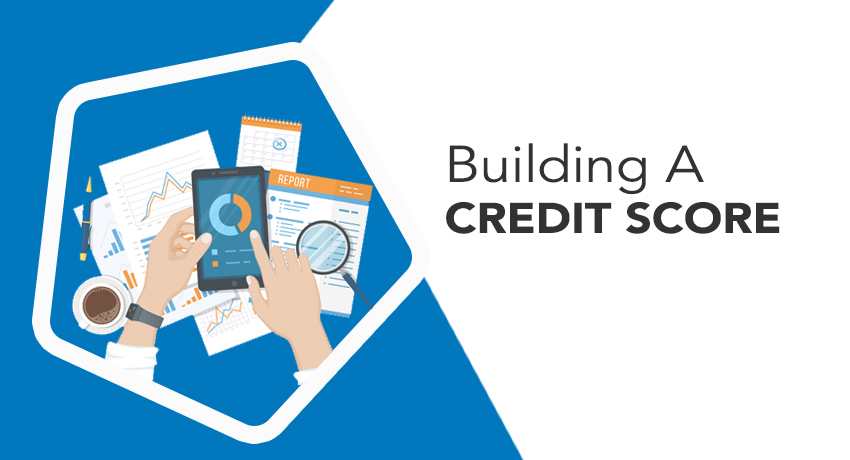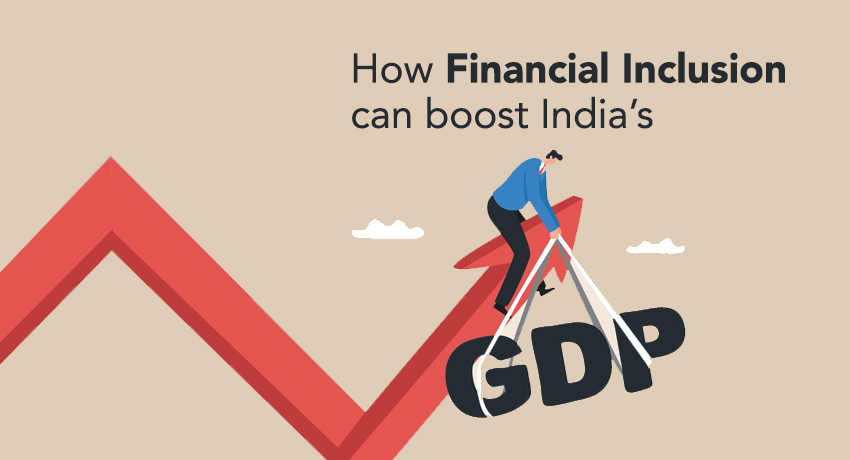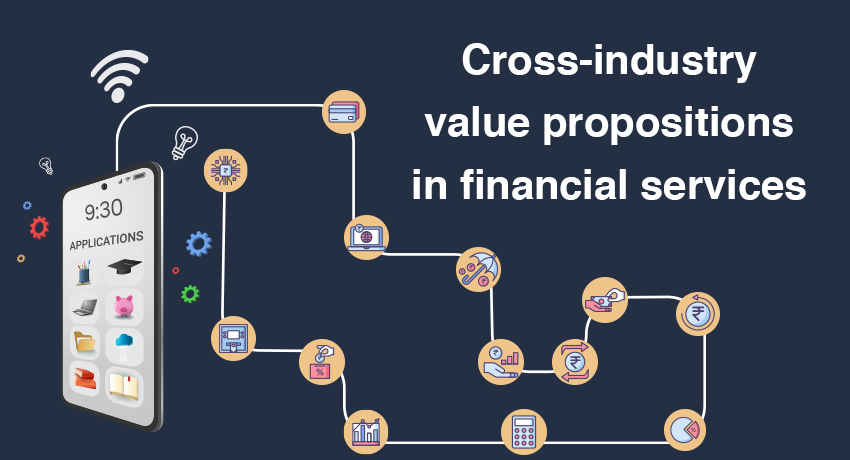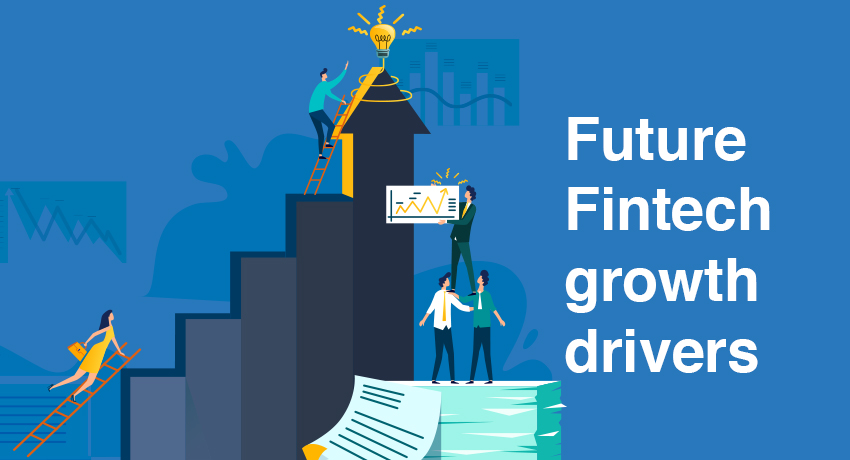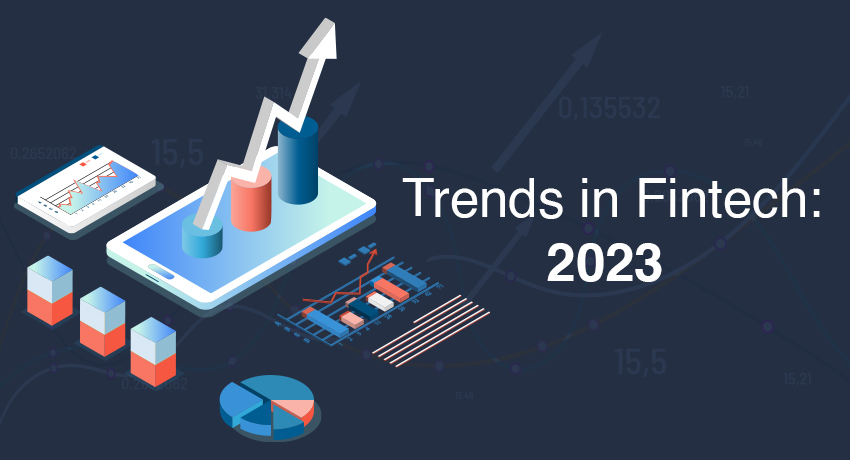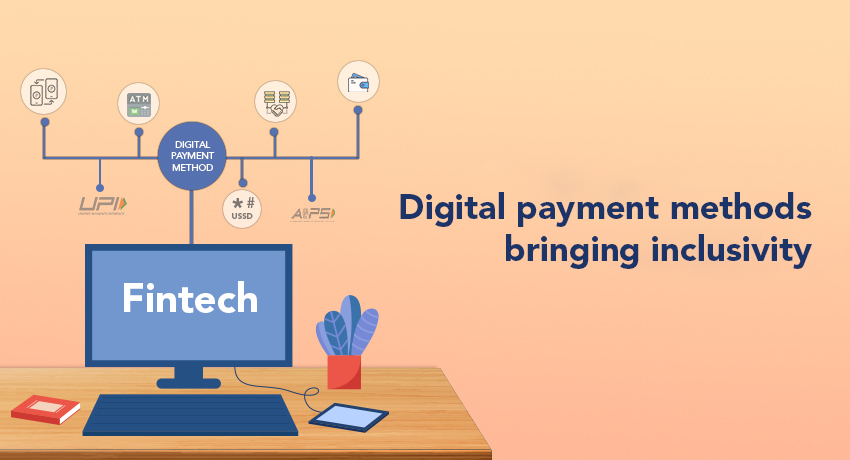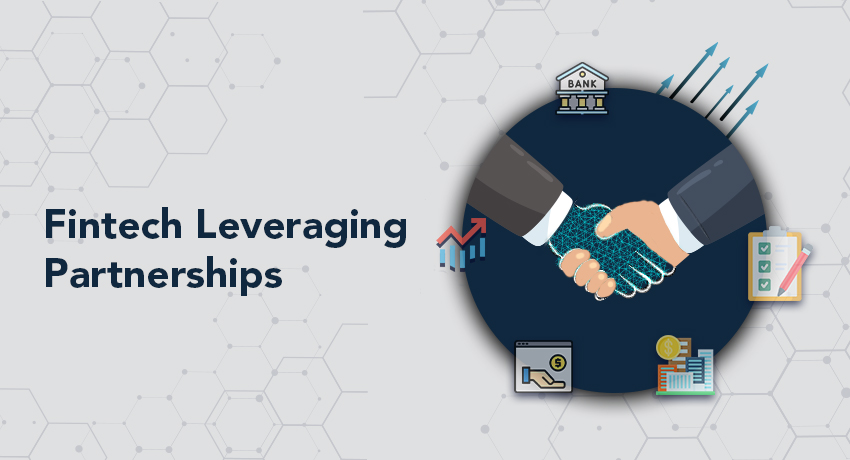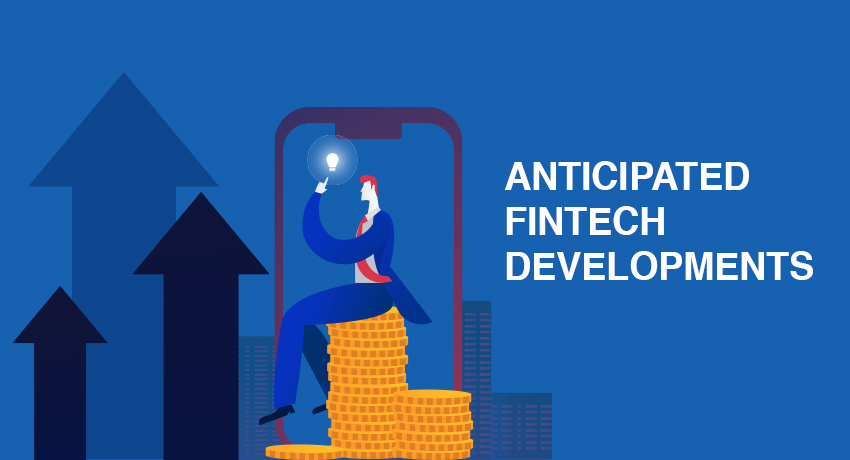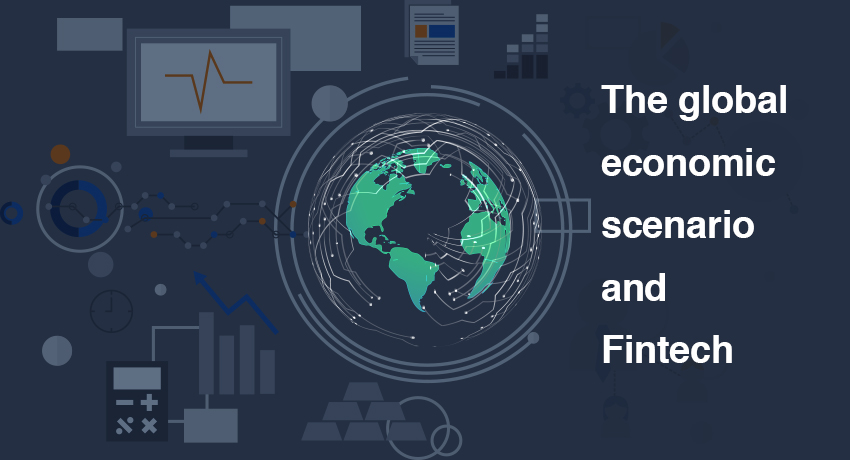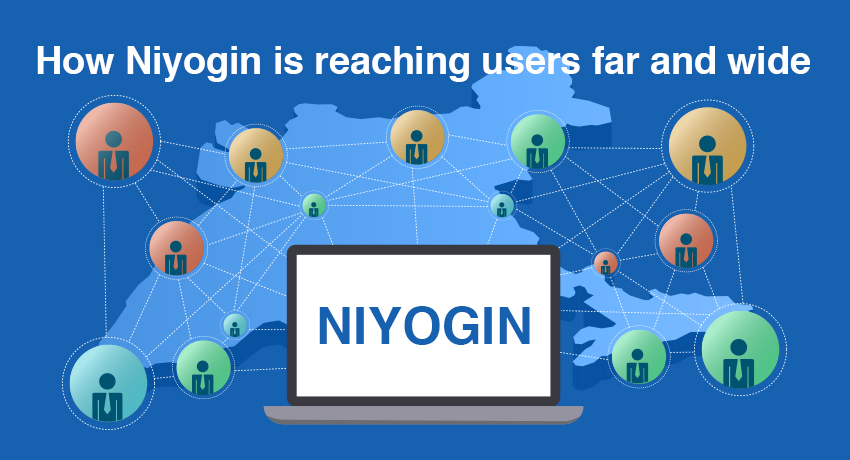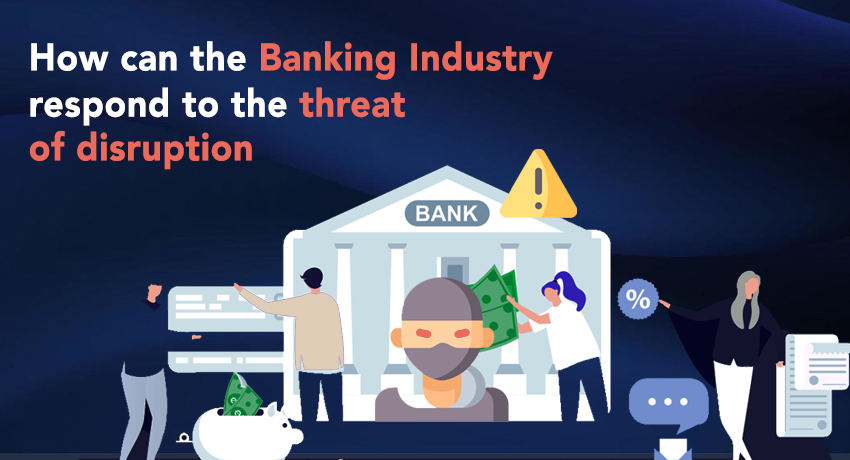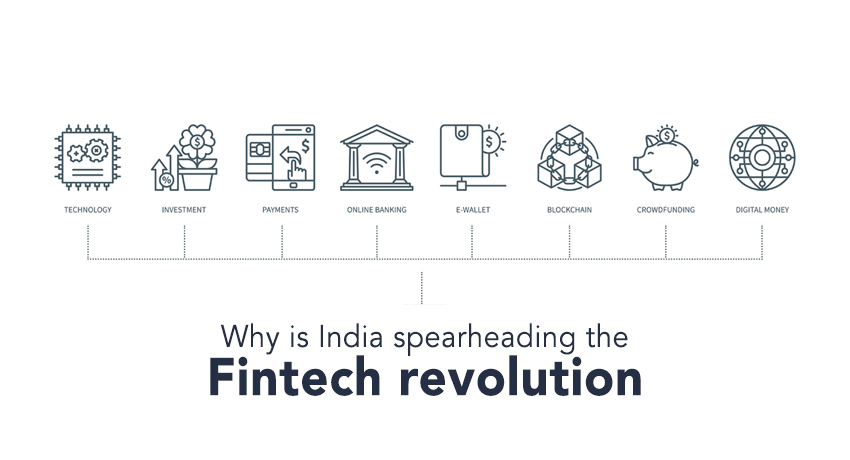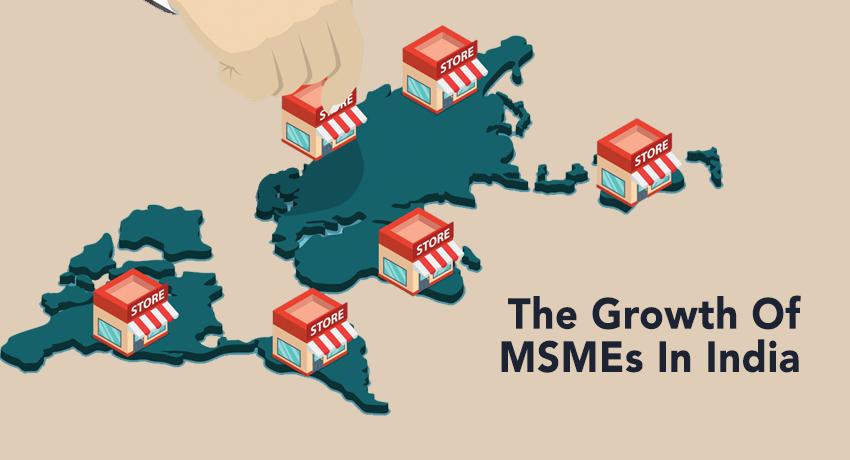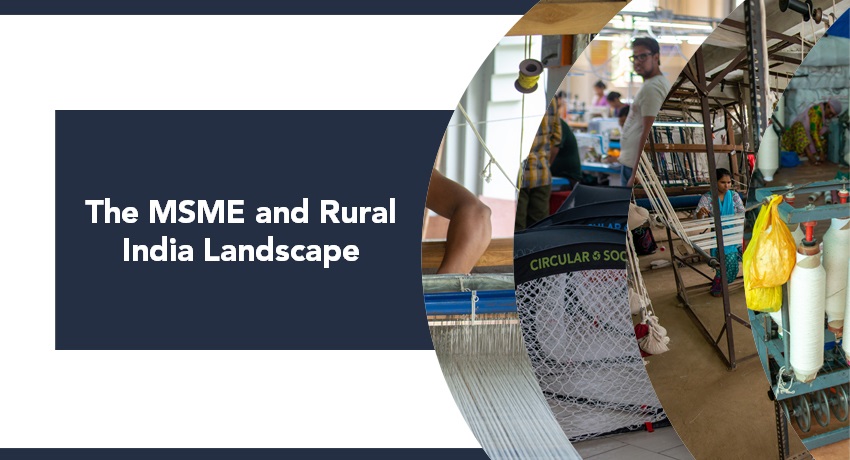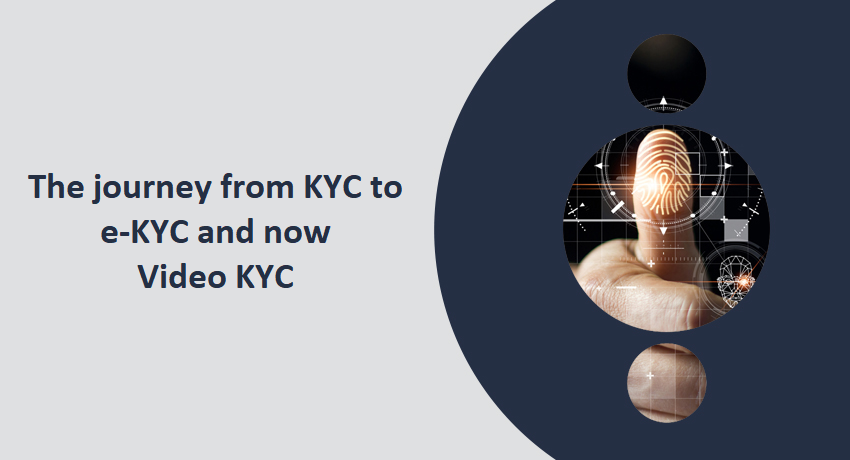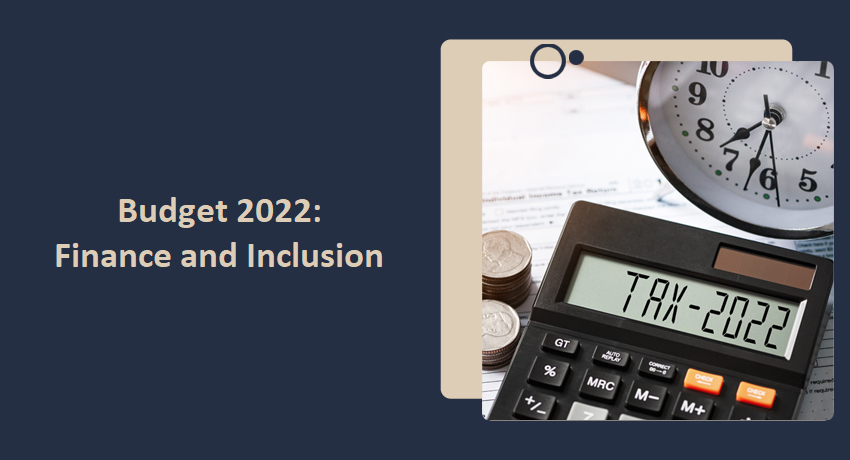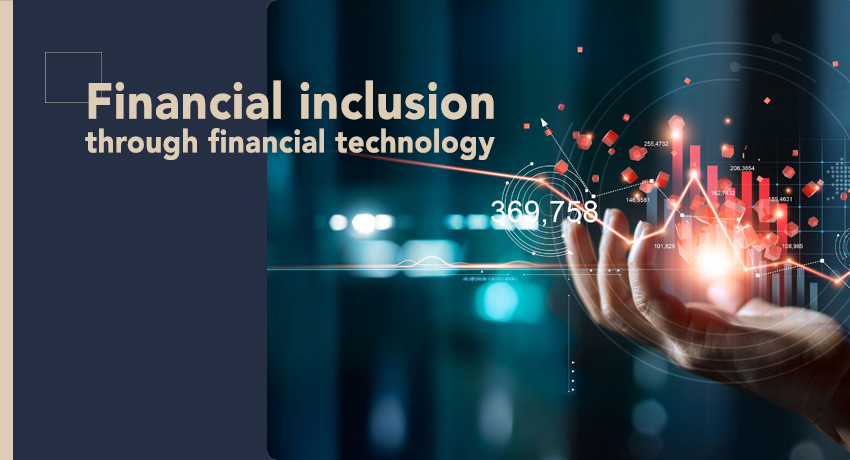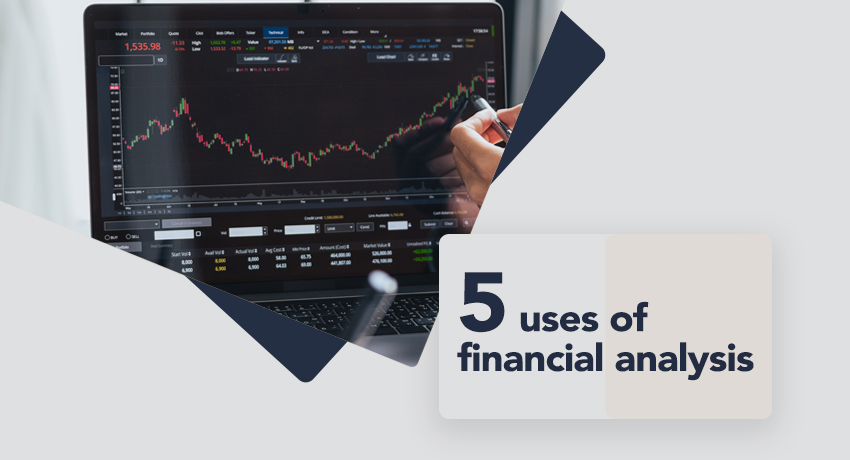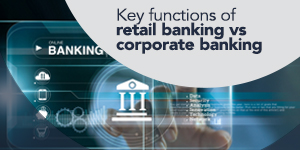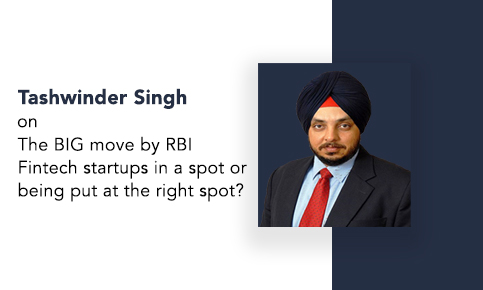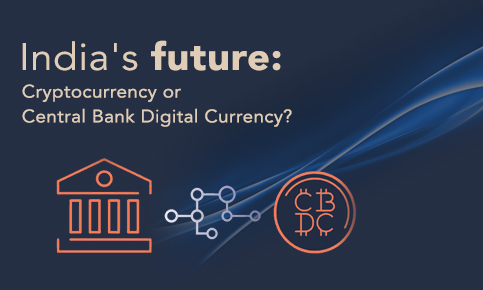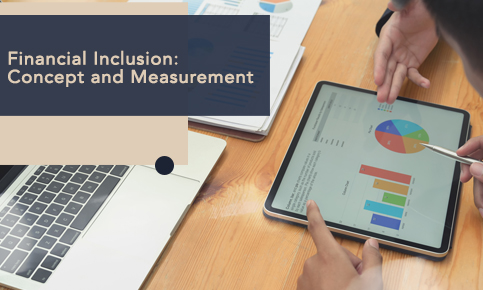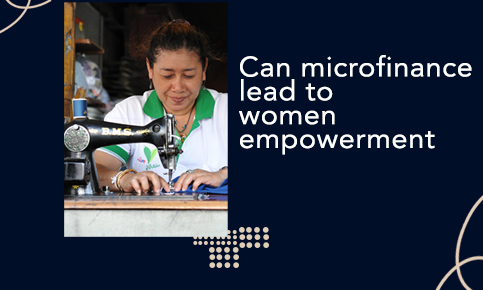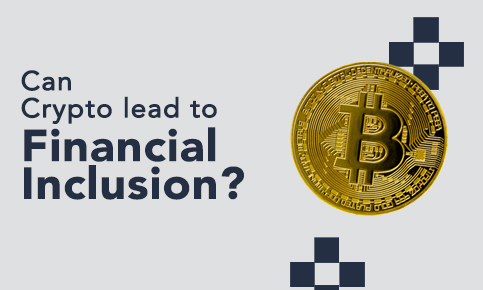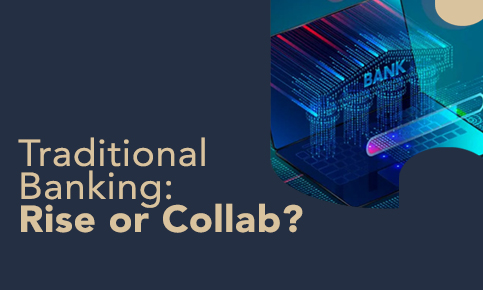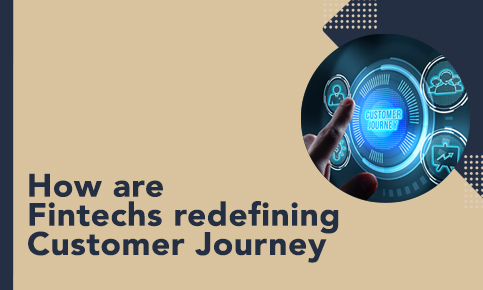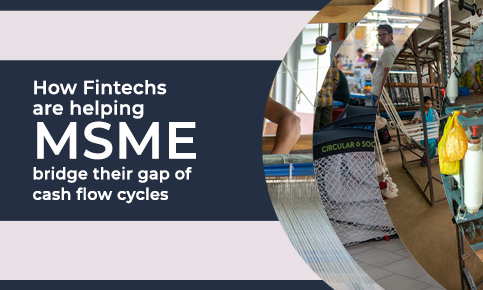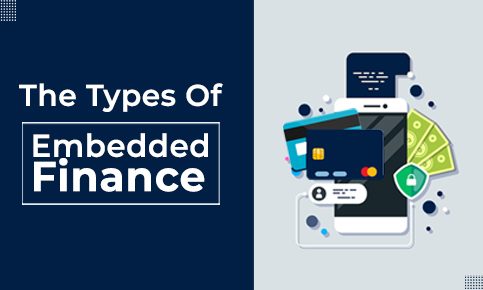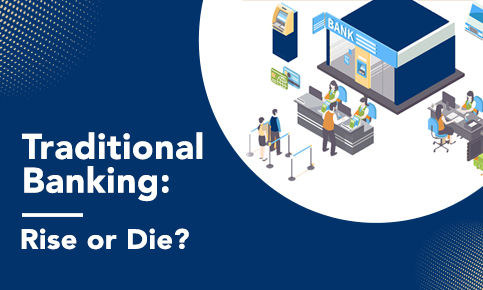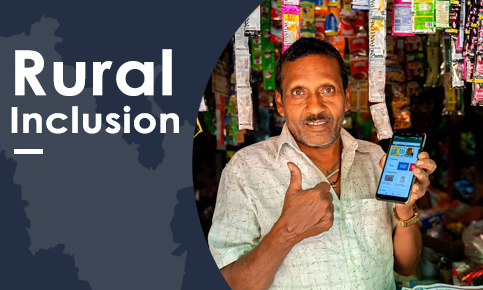The digital lending landscape in India has been undergoing a major transformation. The surge in smartphone penetration, coupled with a growing preference for online financial services, has led to an exponential rise in digital lending platforms. According to the India Digital Lending Report 2023, the digital lending market is expected to surpass ₹12 trillion by 2025, highlighting the increasing demand for seamless, accessible, and efficient lending experiences. However, as the sector grows, so does the need to enhance customer experience to stay competitive. Financial institutions must innovate continuously to meet evolving customer expectations while adhering to regulatory standards. 1. Simplifying the Application Process The intricacy of the loan application procedure is one of the primary causes of consumer discontent with traditional lending systems. Lengthy documentation, numerous verification steps, and opaque procedures frequently deter potential borrowers. By expediting the loan application process, digital lending platforms can greatly enhance the client experience. Artificial intelligence (AI) and machine learning (ML) can help streamline the procedure by automating KYC (Know Your Customer) verification, cutting down on paperwork, and going paperless altogether. Nowadays, many platforms use real-time data, biometric verification, and digital signatures to quickly approve loans and authenticate identities. According to a PwC India report, 70% of consumers prefer to apply for loans online because it takes less time and effort. This change illustrates how crucial it is to streamline and expedite procedures. 2. Personalization through Data Analytics Personalized experiences are no longer a luxury but an expectation. Data analytics plays a crucial role in providing a tailored experience to customers. Lenders can offer personalized loan products that meet individual needs by leveraging customer data—such as spending habits, transaction history, and credit scores. Advanced analytics can also allow lenders to offer dynamic loan amounts and terms based on the borrower’s financial situation. AI-driven recommendations, such as providing customers with loan options that best suit their repayment abilities, can help foster trust and long-term relationships. According to a McKinsey & Company report, personalized financial products increase customer engagement by 80%, as they feel more aligned with their unique needs. 3. Enhancing Speed and Convenience Speed is key to the success of the digital lending market. The ability to get payments quickly is one of the main draws of digital lending platforms. The approval process for loans under traditional lending systems can take days or even weeks. On the other hand, digital platforms can provide loan approvals almost instantly, and the money can be disbursed within a day. Fintech companies are increasingly using sophisticated algorithms that evaluate a borrower’s creditworthiness in real time, allowing for quicker loan approvals and decision-making. With features like round-the-clock accessibility, intuitive user interfaces, and easy navigation, customers now expect a flawless experience. According to Statista, 63% of Indian borrowers actually think that digital lending platforms offer a quicker, more effective experience than traditional banks, according to Statista. 4. Integrating AI for Better Customer Support AI-powered chatbots and virtual assistants have revolutionized customer support in digital lending. These tools can answer queries, provide assistance with loan applications, and guide users through the entire process in real-time. AI-driven customer support is not only faster but also cost-effective, freeing up human agents to address more complex issues. A survey by Accenture found that 63% of customers prefer interacting with AI-powered chatbots for routine inquiries, as they expect quicker and more accurate responses. For digital lending platforms, integrating AI can reduce waiting times, improve service quality, and enhance customer satisfaction. 5. Building Transparency Transparency is key to building trust with customers. Clear communication about loan terms, interest rates, fees, and repayment schedules reduces misunderstandings and dissatisfaction. Many digital lending platforms now outline charges upfront and in simple terms. Offering real-time loan status updates and payment reminders helps customers stay informed. According to the FIS Global Report, 74% of customers prefer lenders with transparent, easy-to-understand terms. 6. Leveraging Digital Payment Solutions Incorporating seamless payment solutions into digital lending platforms enhances customer experience by enabling smooth repayment processes. With the growing adoption of digital wallets, UPI, and other online payment systems in India, borrowers can make quick, hassle-free repayments from their smartphones. Offering flexible payment options, including auto-debit services or pay-as-you-earn models, can improve loan repayment behavior and reduce defaults. Flexible repayment schedules, including variable payment options or the ability to reschedule payments when needed, further enhance customer satisfaction by catering to changing financial circumstances. The Indian digital lending market is exploding, fueled by a surge in demand and a wave of innovative solutions. However, amidst this rapid growth, the customer experience remains the linchpin for success. To truly thrive, lenders must transcend mere convenience and deliver an unforgettable customer journey. This necessitates a radical reimagination of the lending process, from streamlining application procedures to forging unparalleled levels of transparency. Through the power of AI-powered personalization and prioritizing cybersecurity at every touchpoint, lenders can build lasting trust and cultivate a loyal customer base.
The Ethical Implications of Gen AI in Fintech in India
India’s fintech sector stands on the brink of a Gen AI-powered revolution, prepared to unlock unprecedented levels of efficiency, innovation, and personalized experiences. However, this transformative potential is inextricably linked to a profound set of ethical dilemmas. The ethical concerns surrounding Gen AI require constant attention, from the threat of algorithmic bias aggravating already-existing inequalities to the constant danger of data breaches. A dedication to ethical AI practices is necessary to navigate this complicated terrain, guaranteeing that innovation advances the common good and creates a genuinely inclusive and equitable financial future for all Indians. 1. Data Governance and Security India’s fintech sector relies on vast amounts of personal and financial data for Gen AI-driven solutions like fraud detection and credit scoring, raising significant privacy concerns. With sensitive data involved, financial institutions must adopt robust data governance frameworks prioritizing privacy. The upcoming Indian Data Protection Bill will guide the sector, ensuring compliance to build trust. Techniques like differential privacy and federated learning can protect sensitive data, while regular audits and transparent data handling practices are essential to safeguard privacy and prevent breaches. 2. Ensuring fairness A key ethical challenge of Gen AI is algorithmic bias. AI systems trained on historical data may reflect societal inequalities, leading to biased outcomes. In India, this could impact credit scoring, disadvantaged groups like women, rural populations, or lower-income communities, furthering financial exclusion. Addressing bias is not just about fairness but also social responsibility. Indian fintech companies must proactively audit models, ensure diverse training data, and use fairness-aware algorithms. Promoting transparency in decision-making and explaining AI outcomes will help build trust and prevent discrimination. 4. Re-skilling for an AI-Driven Economy As Gen AI automates tasks like customer service and transaction monitoring, concerns about job displacement rise, particularly in India’s entry-level financial sector roles. To mitigate this, fintech companies must prioritize reskilling and upskilling initiatives. These programs can help employees transition to higher-value roles, such as AI model monitoring and data analysis, ensuring a workforce that complements AI rather than competing with it. Investing in human capital will help create a future-ready workforce. 5. Ethical Use of AI in Decision-Making Gen AI can influence key financial decisions, such as loan approvals, insurance underwriting, and investment advice. While AI’s ability to analyze vast datasets and identify patterns can improve decision-making accuracy, there is an ethical obligation to ensure these decisions are made responsibly and in the best interest of the customer. Fintechs must implement ethical guidelines that prioritize customer well-being and transparency in AI-driven decisions. This includes ensuring that AI systems are used to empower customers rather than exploit them, such as avoiding over-indebtedness through responsible lending practices. 6. Frameworks for Ethical AI Implementation India’s fintech sector is already operating within a rapidly evolving regulatory environment, with initiatives such as the Reserve Bank of India’s regulatory sandbox and the Indian Data Protection Bill providing a foundation for responsible AI integration. However, there is still a need for clear and comprehensive regulatory frameworks that address the unique challenges posed by Gen AI. The government, in collaboration with industry stakeholders, must develop policies that ensure AI is deployed responsibly across the fintech ecosystem. This includes defining clear standards for data privacy, algorithmic fairness, transparency, and accountability. By aligning regulatory policies with ethical AI principles, India can create a balanced environment that fosters innovation while protecting consumers and ensuring social good. 7. Inclusive Financial Services AI has the potential to drive greater financial inclusion, but only if it is deployed in an inclusive and equitable manner. India’s fintech sector has already made significant strides in providing services to underserved populations, including through digital wallets and micro-lending platforms. However, there is still much work to be done to ensure that AI benefits all segments of society, especially marginalized groups. Fintech companies must design their AI-driven solutions to be inclusive by tackling language barriers, enhancing access to financial services for rural populations, and offering digital literacy programs. By prioritizing inclusivity, India’s fintech industry can ensure that Gen AI does not inadvertently deepen the digital divide but instead fosters a more equitable financial landscape. While the technology holds enormous potential to enhance financial services, it is paramount to understand that it also presents significant risks that must be carefully managed. With the right frameworks in place, India has the opportunity to become a global leader in the ethical integration of AI, driving innovation while safeguarding the interests of consumers and society.
The Impact of Lending on Personal Finance
The emergence of digital lending over the past decade has significantly changed the personal finance landscape. The days of having to go to a bank, fill out a ton of paperwork, stand in line, and wait for your loan to be approved are long gone. These days, thanks to smartphones and technology, you can apply for a loan with a few taps and have it approved faster than you can order a pizza. ember when applying for a loan felt like a month-long waiting game? Well, those days are gone. Digital lending platforms can approve loans in minutes, or even seconds! In India, a country of over 1.4 billion people, digital lending is booming, and the time it takes to get a loan has drastically reduced. According to Statista, the average time to approve a digital loan is now just 15 minutes compared to weeks or even months in traditional banking. The deluge of paperwork that once hampered loan applications has been eliminated by digital financing. Digital lending eliminates the need for paper records. Documents such as bank statements, income certificates, and identification documents can be uploaded straight from your phone. According to PwC, about 70% of Indian borrowers like digital lending because it eliminates the need for documentation. And who was to blame? Instant messaging is like a step up from snail mail! Traditionally, loans were often a privilege for those with an established credit history or a steady job. But digital lending is breaking down these barriers. These platforms are using innovative algorithms and AI to analyze alternative data points, such as utility bills, online shopping habits, and even social media activity, to assess creditworthiness. This means that more people—especially young professionals, students, and those from underserved areas—can access loans they might not have qualified for with traditional banks. NITI Aayog reports that India’s digital lending market is expected to reach ₹12 trillion by 2025, with more people than ever before being able to access financial services. The growth of microloans is one of the most fascinating developments in digital lending. These small loans, which are frequently offered for as little as ₹500 to ₹5,000, are ideal for those who require immediate financial support but do not wish to incur long-term debt. Additionally, microloans are a potent instrument for advancing financial inclusion, particularly for marginalized sector. According to The Economic Times, microloans are currently aiding more than 100 million individuals in India by giving them access to small-scale money for everything from healthcare to education, thereby improving their quality of life. Consider a loan that is customized to your requirements, preferences, and hobbies. Data analytics are being used by digital lenders to customize loan offers. Digital lending platforms are suggesting loan solutions that match your financial profile, just way Netflix suggests movies based on your viewing history. For instance, you can be given a loan with better terms or cheaper interest rates if you regularly pay your payments on time. According to McKinsey & Company, 80% of consumers want individualized financial products, and digital lending is well-positioned to provide this experience. Digital lending platforms assist with debt management in addition to providing loans. The dashboards on the majority of platforms are easy to use, allowing borrowers to monitor loan disbursements, repayments, and even determine their cumulative interest payments. The real fun happens when these platforms use AI to assist users in creating customized payback plans that adapt to their financial circumstances. It’s like having a personal money assistant on call all the time. The rise of Buy Now, Pay Later (BNPL) schemes is one of the most exciting trends in digital lending. BNPL allows consumers to make purchases and pay in installments, often interest-free if repaid quickly. It’s especially popular for shopping, travel, and education. A Bain & Company report predicts BNPL in India will grow 4-5 times in the coming years, transforming how consumers manage small debts. With fintech innovations, the future of personal finance is brighter, smarter, and more inclusive than ever before. So next time you need a quick loan, remember: the future of borrowing is just a click away!
Building Trust in Gen AI: A Roadmap for the Financial Industry
Generative AI is rapidly emerging as a transformative force in the financial industry, with the potential to revolutionize operations, enhance efficiency, and deliver tailored experiences to customers. From automating tasks to improving fraud detection and predictive analytics, Gen AI holds great promise. However, its successful integration into the financial sector depends heavily on building trust among stakeholders, including regulators, institutions, employees, and customers. Key Challenges and Considerations As Indian financial institutions explore the potential of Gen AI, several key challenges must be addressed to build trust and ensure its effective integration: Safeguarding sensitive customer data is paramount, and establishing robust data governance frameworks is essential for privacy protection and compliance with regulations like the Indian Data Protection Act. This builds trust, ensuring that data is handled securely. AI models can inherit biases from training data, leading to unfair outcomes. Proactive bias detection and mitigation are crucial to ensure that AI systems produce fair and equitable results, fostering trust among users. Additionally, many AI models are “black boxes,” making it difficult to understand how decisions are made. Investing in explainable AI (XAI) techniques is vital to provide transparency and accountability, allowing users to comprehend and trust AI-driven decisions. AI-driven automation also raises concerns about job displacement. To address this, financial institutions should focus on reskilling and upskilling employees, ensuring a smooth transition to an AI-enhanced future. Finally, establishing ethical guidelines and responsible AI practices is critical. Ensuring AI aligns with societal values and accountability will help institutions deploy the technology in a responsible manner that benefits both businesses and society. Building a Trustworthy Gen AI Ecosystem To successfully integrate Gen AI into finance, institutions must focus on several key actions to create a trustworthy ecosystem. The Indian Fintech Landscape India’s fintech sector has emerged as one of the fastest-growing globally, driven by a young and tech-savvy population, widespread smartphone usage, and a regulatory environment that supports innovation. AI adoption in the Indian fintech sector is accelerating, with companies leveraging machine learning, natural language processing, and computer vision to enhance customer experience, improve fraud detection, and automate financial processes. However, challenges persist, including limited access to financial services for underserved populations, cybersecurity threats, and the need for enhanced financial literacy. The Reserve Bank of India (RBI) has been proactive in encouraging the responsible use of AI, with a focus on data privacy, security, and fairness. The Indian regulatory framework provides a foundation for responsible AI adoption, making it an ideal environment for building a trustworthy Gen AI ecosystem. India’s rapidly growing fintech sector, supported by a forward-thinking regulatory environment, is well-positioned to lead the world in the ethical and responsible adoption of Gen AI. By nurturing a collaborative ecosystem emphasizing human-centric AI and accountable innovation, India’s financial institutions must exercise the transformative power of Gen AI to reshape the future of finance, delivering a more inclusive, efficient, and personalized financial experience for all.
The Future of Digital Lending: Emerging Technologies and Innovations in India
Digital lending has fundamentally transformed the way financial institutions and borrowers engage in India. Fueled by the widespread adoption of smartphones, increased internet connectivity, and supportive government initiatives aimed at fostering digital financial inclusion, the digital lending sector has experienced remarkable growth. This shift has not only made access to credit more convenient and efficient but has also empowered underserved populations by bridging the gap between traditional banking services and emerging digital solutions. As a result, digital lending is reshaping the financial ecosystem, providing greater financial accessibility to millions of Indians. Current State of Digital Lending in India According to a report by Redseer Strategy Consultants, digital lending in India is projected to account for 5% of all retail loans by FY28, up from 1.8% in FY22. The key drivers of its growth include increasing smartphone penetration, government initiatives like Digital India and UPI, and rising demand for credit among the middle class and underserved segments. A diverse range of players, including banks, NBFCs, and fintech companies, are actively participating in the digital lending space. Emerging Technologies and Innovations Challenges, opportunities and the way forward Despite challenges, digital lending has a bright future in India. By embracing emerging technologies and addressing regulatory concerns, the industry can explore its full potential, driving financial inclusion and significantly contributing to the country’s economic growth. These challenges include ensuring data privacy and security, the establishment of a clear and supportive regulatory framework to foster innovation while protecting consumer interests, and improving financial literacy among borrowers to help them make informed borrowing and repayment decisions. The future of digital lending in India holds immense promise, fueled by these emerging technologies. These innovations are revolutionizing the lending ecosystem, enhancing efficiency, security, and customer experience. By overcoming existing challenges and capitalizing on new opportunities, India is poised to become a global leader in digital lending. This transformation will not only drive financial inclusion but also empower millions of citizens, creating a more accessible and equitable financial landscape for all.
Embedded Finance in the Indian Fintech Sector
India’s fintech sector has been one of the key drivers behind the rise of embedded finance. With its massive population, diverse financial needs, and high mobile penetration, India is an ideal market for this transformation. The combination of government support, digital infrastructure which aims to provide financial services to underserved communities, and the proliferation of smartphones has created an environment ripe for the growth of embedded finance. However, the opportunities are vast. As mobile penetration increases and fintech adoption continues to rise, embedded finance can play a crucial role in accelerating financial inclusion, especially among India’s large unbanked and underbanked populations. By providing easy access to essential financial products, India’s fintech sector can unlock new economic opportunities for millions. Conclusion The rise of embedded finance represents a paradigm shift in how financial services are delivered and consumed. With its seamless integration into everyday platforms, it offers convenience, personalization, and greater financial inclusion. India’s fintech sector, with its rapidly advancing digital infrastructure, is well-positioned to capitalize on the opportunities offered by embedded finance, ultimately transforming the financial landscape for millions of citizens. As the sector continues to evolve, it will be crucial for businesses, regulators, and consumers to collaborate in overcoming challenges, safeguarding security, and unlocking the full potential of this transformative trend.
How Gen AI is Revolutionizing Customer Experience in Fintech
Generative AI is rapidly reshaping industries, and fintech is no exception. By utilizing the power of AI, fintech companies are redefining customer experiences, making financial services more accessible, personalized, and efficient. Personalized Financial Advice One of the most significant impacts of Gen AI on fintech is the ability to provide highly personalized financial advice. AI-powered chatbots and virtual assistants can analyze vast amounts of data, including transaction history, spending patterns, and risk tolerance, to offer tailored recommendations. For instance, a chatbot can suggest investment opportunities aligned with a user’s financial goals or recommend budgeting strategies to optimize cash flow. A recent study by Capgemini found that 71% of consumers are willing to share their financial data with AI-powered tools in exchange for personalized advice. This growing trust in AI-driven solutions underscores the potential for Gen AI to revolutionize financial planning and advisory services. Enhanced Customer Support Gen AI-powered chatbots and virtual assistants are transforming customer support in the fintech industry. These AI-driven tools can handle a wide range of inquiries, from simple account balance checks to complex troubleshooting. By automating routine tasks, these tools free up human agents to focus on more complex issues, improving overall customer satisfaction. Moreover, AI can analyze customer sentiment in real-time, allowing businesses to identify and address potential issues proactively. This proactive approach can significantly reduce customer frustration and churn. Fraud Detection and Prevention Fraudulent activities pose a significant threat to the fintech industry. Gen AI can play a crucial role in detecting and preventing fraud by analyzing vast amounts of transaction data in real-time. AI algorithms can identify anomalies and suspicious patterns that may indicate fraudulent activity, enabling financial institutions to take swift action to protect their customers. A study by Juniper Research estimates that AI-powered fraud prevention solutions could save the financial services industry $8 billion by 2026. Seamless User Experiences Generative AI is revolutionizing the fintech industry by enabling companies to deliver seamless, intuitive, and highly personalized user experiences. For instance, AI-powered voice assistants allow users to effortlessly interact with their financial accounts using natural language, streamlining the process of managing finances on the go. Moreover, AI-driven personalization tailors the user interface to individual preferences, offering customized recommendations and services that significantly enhance user engagement and satisfaction. By leveraging these advanced AI technologies, fintech companies are not only improving convenience but also creating a more dynamic and user-centric financial environment. The Future of Fintech As generative AI continues to evolve, its transformative impact on the fintech industry is poised to expand significantly. By embracing this technology, fintech companies can unlock exciting new opportunities, enhance customer experiences, and gain a substantial competitive advantage. While it’s important to address ethical considerations and ensure responsible and transparent AI usage, the potential for growth is immense. With the power of AI, fintech companies can build deeper, more meaningful relationships with their customers, foster trust, and drive sustained long-term success.
The Future of Fintech: How Gen AI is Reshaping the Industry
Generative Artificial Intelligence or Gen AI as we call it is rapidly reshaping the fintech landscape, offering significant advancements that are transforming financial services across the globe. As AI models become more advanced, they are driving the next generation of fintech innovations, improving customer experiences, optimizing operational efficiency, and enhancing security protocols. By analyzing vast amounts of data and automating complex processes, Gen AI is poised to redefine the way financial institutions and fintech companies interact with customers and make strategic decisions. 1. Personalized Financial Advice Gen AI leverages vast data sets, including spending habits, income, and economic trends, to deliver highly personalized financial advice, such as customized investment strategies, retirement planning, and budgeting solutions. It can also forecast market movements and recommend adaptive strategies, helping clients make informed decisions. Furthermore, AI-powered virtual assistants and chatbots provide real-time, 24/7 customer support, delivering tailored responses, resolving specific concerns, and offering proactive guidance. This enhances customer satisfaction by ensuring fast, accurate, and accessible service at any time, creating a seamless and personalized experience. 2. Automated Financial Processes AI-driven automation is transforming back-office operations within the fintech industry by streamlining tasks that were traditionally time-consuming and manual. Processes like loan processing, fraud detection, and compliance checks are now being automated, enabling financial institutions to operate more efficiently and accurately. AI can analyze vast and complex data sets in real-time, identifying patterns and anomalies that human teams might miss, thus enhancing decision-making and reducing the risk of errors. This capability extends to optimizing risk management by assessing creditworthiness, predicting potential risks, and fine-tuning investment strategies with greater precision. The result is a more efficient operation that reduces costs, improves regulatory compliance, and delivers better financial outcomes for both institutions and customers. By leveraging AI, fintech companies can enhance their service offerings, respond faster to market changes, and provide more personalized, data-driven financial solutions. 3. Enhanced Security and Fraud Prevention AI is revolutionizing fintech by bolstering security and fraud prevention. By analyzing vast amounts of transaction data in real-time, AI can swiftly identify anomalies and suspicious patterns, enabling swift action to thwart fraudulent activities. This proactive approach significantly reduces financial losses and builds trust between financial institutions and their customers. Furthermore, AI acts as a vigilant guardian of sensitive financial information. By continuously monitoring networks and systems, AI can proactively identify vulnerabilities, predict potential attacks, and deploy countermeasures before damage occurs. 4. Innovative Financial Products AI is driving the evolution of fintech by enabling the creation of personalized financial products and innovative business models. From tailored insurance policies and investment portfolios to predictive analytics for risk assessment and AI-powered trading platforms, Gen AI is reshaping the financial landscape, delivering more relevant and efficient solutions. The Road Ahead The future of fintech powered by Gen AI looks promising. As AI technologies continue to evolve, they will become even more integrated into financial services, driving innovation, efficiency, and customer satisfaction. Financial institutions and fintech companies that embrace AI will be better equipped to meet the demands of an increasingly digital, data-driven world. However, the challenges associated with AI adoption—particularly in the areas of data privacy, ethics, and regulation—must be carefully managed to ensure that the benefits of this technology can be fully realized. By addressing these concerns, the fintech industry can build a more efficient, inclusive, and customer-centric future for financial services. As we look to the future, the full potential of AI in reshaping the financial landscape will continue to unfold, ushering in an era of smarter, more personalized, and more efficient financial services.
How Digital Platforms Are Revolutionizing Credit Access
The digital revolution has irrevocably reshaped industries worldwide, and the credit sector is no exception. Technological advancements are propelling a paradigm shift in how individuals and businesses access financial resources. With unprecedented speed, convenience, and inclusivity, digital platforms are democratizing credit, making it more accessible to a broader range of borrowers. Expanded Access to Credit One of the most significant impacts of digital platforms is the expansion of credit access. Traditionally, obtaining credit often required navigating cumbersome paperwork and dealing with lengthy approval processes. Digital platforms, however, streamline these processes, allowing users to apply for and receive credit with just a few clicks. According to a 2023 report by the World Bank, digital lending platforms have increased credit access by 20% in emerging markets, where traditional banking infrastructure is often limited. Enhanced Inclusivity Digital platforms are also breaking down barriers to credit for underserved populations. Fintech companies leverage alternative data—such as payment histories from utilities and telecommunications—to assess creditworthiness, making it easier for individuals without traditional credit histories to access loans. This approach has proven effective; a study by the McKinsey Global Institute found that alternative data usage in credit scoring has led to a 25% increase in loan approvals for individuals from low-income backgrounds. Efficiency and Speed The efficiency and speed of digital credit platforms surpass traditional methods. Automated systems and artificial intelligence (AI) allow for rapid processing of applications and real-time credit scoring. A recent survey by PwC revealed that 65% of borrowers on digital lending platforms reported receiving their funds within 24 hours of application approval, compared to an average of 10-15 business days through traditional banks. This rapid turnaround is particularly beneficial for small businesses and individuals facing urgent financial needs. Personalization and Customer Experience Digital platforms enhance the borrower experience through personalized services. AI-driven algorithms analyze user behavior and preferences to offer tailored credit products and recommendations. This personalization improves user satisfaction and helps borrowers find products that best suit their needs. According to a report by Accenture, 70% of users on digital lending platforms reported higher satisfaction levels due to the personalized nature of the services they received. Data Security and Privacy Despite these advancements, digital platforms must address concerns around data security and privacy. With the increased reliance on personal and financial data, safeguarding this information becomes crucial. Leading platforms invest in advanced encryption technologies and adhere to stringent regulatory standards to protect user data. For instance, the European Union’s General Data Protection Regulation (GDPR) has set a high standard for data privacy, and compliance with such regulations is becoming a norm for global digital credit platforms. Future Outlook Looking ahead, digital platforms are expected to continue driving innovation in credit access. Advances in technologies such as blockchain and biometric authentication promise to further enhance security and streamline processes. As digital platforms evolve, they will likely offer even more inclusive and efficient solutions, making credit accessible to an increasingly broad audience.
Fintechs and small finance banks – Competition or Collaboration?
The financial landscape is undergoing a rapid transformation, driven by technological advancements and evolving customer expectations. At the heart of this disruption are fintechs, with their innovative solutions and agile approach, and small finance banks, striving to bridge the financial inclusion gap. This dynamic interplay raises a critical question: are these two forces destined to be competitors or collaborators? The intricate relationship between fintechs and small finance banks explores the potential synergies and challenges that shape their coexistence. Alignment and Shared Vision In today’s fast-paced era of digital banking, small finance banks aim to modernize banking through technology by aligning perfectly with fintechs’ commitment to financial innovation. This partnership leverages the strengths of both institutions, offering a wider range of accessible financial products and services through Fintech’s extensive distribution network. Enhanced Products and Convenience The usual product suite of small finance banks includes savings and current accounts with competitive rates and flexible features which could become conveniently available through a mobile app of any fintech company. This eliminates the need for physical visits to branches. A fintech’s secure payment infrastructure further strengthens the user experience. The collaboration between the two will empower aspiring entrepreneurs by providing financial support, flexibility, and expertise to grow their businesses. A 2024 report by the Reserve Bank of India highlighted that transactions through digital channels have seen a year-on-year increase of 30%, largely attributed to collaborations between SFBs and fintech firms. This surge reflects the growing integration of technology in banking services. Competition Fosters Innovation The rise of fintechs has challenged the traditional banking landscape, including SFBs. Fintechs often offer more convenient and affordable financial solutions, attracting customers away from established institutions. SFBs are caught between traditional banks and fintechs, particularly in the digital space. They must adapt quickly to compete effectively. This competition can drive positive change, pushing SFBs to invest in technology, improve customer experience, and explore new business models. The relationship between fintechs and SFBs is multifaceted. While they compete in some areas, collaboration offers significant potential benefits for both parties and, ultimately, consumers. Building Successful Collaboration Strategic partnerships require trust, clear communication, and a shared vision for financial inclusion and innovation. Supportive regulations and policies are crucial for fostering collaboration and a fair playing field. The NASSCOM Fintech Report 2024 stated that SFBs have significantly increased their investment in fintech solutions, with a 40% rise in funding allocated to fintech startups compared to the previous year. This investment is focused on areas such as digital lending, payments, and customer engagement. A Journey, Not a Rivalry The dynamic between Fintechs and SFBs is far from a zero-sum game. Instead of viewing each other as competitors, both sectors have the opportunity to thrive through collaboration and constructive competition. By joining forces and leveraging their unique strengths, fintechs and SFBs can drive meaningful advancements in financial services, enhance access for diverse populations, and uncover new pathways for mutual growth and prosperity. This partnership promises not only to reshape the financial landscape but also to foster an environment where innovation and inclusivity flourish together.
Innovative financing models for MSMEs beyond Traditional banking
Traditional banks have long been the go-to source of funding for MSMEs. However, for many securing a loan from a bank can be a frustrating and time-consuming process, often hindered by stringent collateral requirements and lengthy approval times. This limited access to capital can stifle growth and innovation, hindering the immense potential of the MSME sector. The financial landscape is evolving, and a wave of innovative financing models is emerging specifically to address the financing needs of MSMEs. Peer-to-peer (P2P) lending – This platform allows borrowers to connect directly with individual lenders via online platforms. It eliminates the intermediary, which lowers costs and increases MSMEs’ access to capital. According to Industry ARC, the India P2P lending market size is expected to reach $10.5 billion by 2026. Besides P2P, crowdfunding has become a favoured method for MSMEs to secure capital. One notable trend in the Indian crowdfunding market is the emergence of specialized platforms tailored to specific industries or causes. These platforms focus on supporting startups, social enterprises, and creative endeavors, reflecting the diverse interests and needs of Indian consumers. This trend underscores the growing acceptance of crowdfunding as a viable alternative to traditional funding avenues. Invoice financing – This model helps businesses manage cash flow issues without waiting for customers to pay their invoices. Firstly, it provides immediate access to cash flow by allowing businesses to obtain advances against their outstanding invoices, addressing liquidity challenges, and enabling timely payments of operational expenses. Secondly, it eliminates the need to wait for customers to settle invoices, thereby accelerating the cash conversion cycle and enhancing working capital management. Additionally, invoice financing does not add to the company’s debt burden, as it is not considered a loan, making it an attractive option for businesses seeking non-dilutive financing. Overall, invoice financing enables MSMEs to maintain steady cash flow, improve financial stability, and seize growth opportunities more effectively. Industry estimates suggest that the invoice discounting ecosystem in the country per month is about Rs 1 lakh crore. Supply Chain Financing – Supply chain financing (SCF) involves optimizing the flow of capital across the supply chain. Financial institutions and fintech firms offer SCF solutions such as reverse factoring, dynamic discounting, and trade credit. According to the Global Supply Chain Finance Forum, the SCF market could reach $2.7 trillion by 2025. SCF benefits include improved liquidity, lower financing costs and strengthened relationships through collaboration between buyers and suppliers. Innovative financing models are transforming the landscape for MSMEs, offering alternatives to traditional banking that are more accessible, flexible, and tailored to their needs. As these models continue to evolve and gain traction, they hold the potential to bridge the financing gap and drive sustainable growth for MSMEs worldwide. Policymakers, investors, and financial institutions must continue to support and promote these innovative solutions to foster a more inclusive and dynamic economy.
Role of AI in Supply Chain Finance Management
India’s supply chain, an essential component of its quickly developing economy, is presently going through a significant digital revolution. Artificial Intelligence, which is drastically changing the field of supply chain finance, is leading this transformation. India is leading the way in creating a more inventive and robust financial ecosystem within its supply chains by utilizing AI to increase operational efficiencies. AI in Supply Chain Finance Artificial Intelligence is revolutionizing Supply Chain Finance (SCF) in India by using its capability to process vast volumes of data with unparalleled speed and precision. Here’s how AI is transforming the landscape: Credit Risk Assessment: AI-powered algorithms are redefining credit risk evaluation by analyzing extensive financial data, payment histories, and market trends. This enhanced analytical capability allows for more accurate and efficient assessments of creditworthiness, facilitating quicker decision-making and minimizing risk for lenders. Fraud Detection: AI excels in identifying anomalies within transaction patterns, serving as a robust defense against fraudulent activities. By detecting irregularities early, AI safeguards both lenders and borrowers from potential financial losses and ensures greater security in financial transactions. Invoice Processing: AI-driven optical character recognition (OCR) technology automates the extraction of data from invoices, significantly reducing manual input and minimizing errors. This streamlines the invoicing process, enhances accuracy, and accelerates payment cycles. Predictive Analytics: With its advanced predictive capabilities, AI can forecast cash flow, demand patterns, and potential supply chain disruptions. This foresight enables businesses to make proactive decisions, optimize working capital, and better prepare for future challenges. Supply Chain Optimization: AI identifies and addresses inefficiencies within the supply chain, such as inventory mismatches or transportation delays. By offering actionable insights and recommendations, AI helps businesses reduce costs, enhance operational efficiency, and achieve a more streamlined supply chain. In summary, AI’s integration into supply chain finance not only enhances accuracy and efficiency but also provides a strategic advantage in navigating the complexities of modern financial operations. Impact on Indian supply chain finance While the full potential of AI in India’s SCF is yet to be realized, early indicators are promising. A study by McKinsey Global Institute estimates that AI could add up to $1 trillion to India’s GDP by 2030. While specific data on the impact of AI on SCF in India is limited, the broader trend of digital transformation and the increasing adoption of AI across sectors suggest a significant positive impact. Despite the immense potential, challenges such as data quality, infrastructure, and regulatory hurdles need to be addressed for widespread AI adoption in SCF. However, the opportunities for innovation and growth are significant. AI has the potential to revolutionize supply chain finance in India by improving efficiency, reducing costs, and mitigating risks. As the technology matures and becomes more accessible, we can expect to see even more groundbreaking applications in this space.
The Impact of BNPL on Consumer Behavior and Financial Markets in India
The advent of Buy Now, Pay Later services has revolutionized consumer behavior and financial markets in India, marking a paradigm shift in how individuals and businesses engage with credit and commerce. This innovative financial tool has rapidly gained traction, driven by the increasing digitalization of the economy and a burgeoning preference for seamless, cashless transactions. By democratizing access to credit, BNPL has not only transformed spending habits across various demographics but has also played a pivotal role in enhancing financial inclusion. Transformation of Consumer Behavior BNPL services have significantly increased Indian consumers’ purchasing power by providing flexible payment options that reduce the financial burden of immediate expenses. The Indian BNPL market is expected to grow at a CAGR of more than 45%, reaching USD 45-50 billion by 2026. It has also significantly accelerated e-commerce growth in India, transforming consumer purchasing behavior. Major e-commerce platforms, such as Amazon and Flipkart, have included BNPL options, making high-value items more accessible to a wider audience. These services not only improve customer convenience, but they also increase average order values, contributing to India’s overall e-commerce growth. The BNPL services have profoundly transformed spending patterns and bolstered financial inclusion in India. This rapid adoption has been driven by increasing digitalization and a growing preference for cashless transactions, especially among the younger population. BNPL services have democratized access to credit, with many prominent fintech platforms enabling consumers to make purchases without immediate full payment, thereby facilitating smoother cash flow management. Notably, BNPL transactions have surged across sectors such as e-commerce, travel, and healthcare, with e-commerce witnessing a 55% increase in transaction volume in 2023. This growth has been crucial in extending financial services to underserved segments, as BNPL platforms typically feature simpler onboarding processes and lower credit barriers compared to traditional credit systems. For instance, in rural areas, BNPL has empowered small business owners and consumers to access essential goods and services, thereby fostering economic participation and growth. Implications for Financial Markets While BNPL presents significant growth opportunities, it also introduces risks, particularly related to credit defaults. The ease of access to BNPL services can lead to over-borrowing, especially among consumers who may not fully grasp the implications of deferred payments. This has raised concerns among regulators about the potential for increased debt levels and financial instability. The Reserve Bank of India has acknowledged these risks and is contemplating regulatory measures to ensure responsible lending practices. Implementing guidelines and oversight will be crucial in maintaining a balance between fostering innovation and protecting consumers. BNPL is revolutionizing traditional lending models by providing an attractive alternative to credit cards and personal loans. This disruption is compelling banks and other financial institutions to adapt their offerings to stay competitive. As a result, many are now partnering with BNPL providers or creating their own installment-based products to capture a share of this rapidly expanding market. The integration of BNPL solutions into their portfolios is not only a strategic response to changing consumer preferences but also a proactive measure to retain customer loyalty and drive growth in an evolving financial landscape. By and large, the future of BNPL in India will depend on how well the challenges are managed and how effectively the sector adapts to regulatory developments. As BNPL continues to evolve, it holds the potential to redefine the financial landscape, driving economic growth and improving the lives of millions of Indian consumers.
What is Decentralized Finance (DeFi) and how does it work?
Decentralized finance, or DeFi, isn’t just a tweak to the financial system; it’s a seismic shift shaking the very foundations of traditional finance. Imagine a world where financial transactions are not governed by banks or brokerage firms but instead are transparent, accessible, and autonomous. DeFi makes this vision a reality by implementing the power of blockchain technology, creating a borderless financial playground where individuals have full control over their assets. No longer bound by intermediaries, people can dive into a plethora of financial activities, from lending to trading, without needing anyone’s permission. This liberation not only democratizes finance but also sparks a wave of innovation, giving rise to a dazzling array of decentralized applications (dApps) that cater to diverse financial needs. With DeFi, the promise of inclusivity and efficiency is within reach, heralding a new era where anyone, anywhere, can engage in a truly global and decentralized financial system. Application and Usage DeFi leverages advancements in software, hardware, connectivity, security protocols, and peer-to-peer financial networks. Banks and other financial service providers are eliminated by this system. These businesses charge both consumers and businesses for the use of their services, which are essential to the functioning of the current system. By utilizing blockchain technology, such as Ethereum and Binance Smart Chain ecosystem, DeFi can lessen the requirement for these middlemen. Secondly, DeFi platforms are interconnected through standardized protocols and interoperable interfaces, allowing users to seamlessly navigate between different applications and services. This interoperability fosters innovation and liquidity within the DeFi ecosystem. Many DeFi platforms also embrace community-driven governance models, empowering users to participate in protocol decision-making and vote on proposed changes or upgrades. This decentralized governance ensures transparency, accountability, and resilience against centralized control or manipulation. Roadmap and Growth Opportunities The Indian government’s push towards a cashless economy presents significant growth opportunities. The recent approval of the First Loss Default Guarantee (FLDG) underscores the effectiveness of the bank-fintech partnership model in digital lending. According to Statista, the number of users in the Indian DeFi market is expected to reach 6.26 million by the year 2028. This rapid growth underscores the increasing acceptance and integration of DeFi into mainstream financial systems. Globally, the total value locked (TVL) in DeFi protocols has skyrocketed, reaching over $100 billion in 2023, a testament to the sector’s explosive growth. As decentralized finance continues gaining momentum, its potential to redefine the fabric of global finance becomes increasingly evident. Each day, more individuals join this groundbreaking movement, contributing to its growth and evolution. The journey towards a truly decentralized financial system is not without challenges, but the rewards are immense. As we look ahead, the possibilities are boundless, with DeFi poised to democratize access to financial services, drive innovation, and empower individuals worldwide.
Challenges and Opportunities for NBFCs in India
A potentially rich environment of opportunities and challenges arises in the complex world of NBFCs in India. Functioning as essential elements of the country’s financial system, NBFCs are at the intersection of innovation, risk, and socioeconomic dynamics, ready to spark development and wealth. But they face a host of challenges in the face of rapidly evolving regulations, technological advancements, and macroeconomic swings, from liquidity issues to governance conundrums. However, behind these obstacles are opportunities for them to rethink their mission, embrace flexibility, and develop inclusive financial solutions that go beyond conventional norms. This prompts a profound inquiry: how can NBFCs navigate the uncertain path ahead, utilizing adversity as a catalyst for innovation, and forging a trajectory where challenges evolve into stepping stones towards enduring success? Challenges for NBFCs in India 1. Keeping up with the Regulations – NBFCs in India operate within a rigorous regulatory framework established by the Reserve Bank of India. While these regulations are essential for safeguarding financial stability, they can be seen as constraining by NBFCs. Moreover, changes in regulatory policies or the introduction of new guidelines often necessitate swift adaptation, requiring NBFCs to invest in technology and enhance their compliance infrastructure. The intricate and dynamic nature of these regulations necessitates continuous vigilance and proactive measures from NBFCs, influencing their strategic planning and resource allocation decisions. 2. Funding and Liquidity Management – NBFCs heavily rely on external funding for their lending activities, unlike traditional banks that utilize customer deposits. They depend primarily on borrowing from banks, issuing bonds, or obtaining loans from financial institutions. Securing sufficient funding can be especially challenging during economic downturns or periods of financial instability, leading to higher borrowing costs and restricted access to credit. This directly impacts their liquidity and ability to expand operations. Effective liquidity management is crucial for NBFCs to meet financial obligations such as loan repayments and regulatory compliance. Balancing various funding sources, managing liquidity effectively, and sustaining profitability are ongoing challenges for NBFCs in India. Opportunities for NBFCs 1. Explore Niche Markets – NBFCs can succeed by discovering and targeting specific markets. This could include sectors such as microfinance, where small loans are provided to individuals or businesses who typically lack access to traditional banking services. For this, NBFCs may offer small loans with flexible repayment terms to support the financial needs of entrepreneurs and small businesses. NBFCs can concentrate their resources and efforts on developing expertise in particular industries by concentrating on those. This would include investing in staff training, creating customized underwriting models, and establishing partnerships with stakeholders in the sector. 2. Co-lending opportunities – Collaboration with banks through co-lending arrangements, as approved by the RBI, can be a win-win situation. By working together to increase liquidity, NBFCs can expand their lending portfolios without overburdening their balance sheets. Additionally, co-lending agreements allow the parties to share risks, reducing individual exposure and increasing portfolio diversification. These partnerships give NBFCs access to a steady stream of funding and opportunities for strategic expansion and market share. Co-lending agreements, taken as a whole, enable NBFCs to maximize lending operations, cultivate resilience, and seize new opportunities in the ever-changing financial landscape. 3. Digital Transformation – NBFCs use data analytics to make well-informed decisions rapidly and accurately, ranging from the digitization of loan origination and underwriting processes to the integration of AI-powered credit scoring models. Additionally, they are revolutionizing customer engagement through digital channels such as mobile apps and online platforms, providing seamless experiences for tasks like account management, payments, and support services. They are also strengthening cybersecurity measures to protect sensitive information and transactions, thereby fostering trust and reliability amongst users in the digital domain. NBFCs in India find themselves at a critical juncture, grappling with regulatory challenges and fierce market competition while also being presented with promising avenues for growth. In navigating this landscape, it becomes imperative to foster robust coordination and engagement among regulators, fintech enterprises, traditional financial institutions, and other relevant stakeholders.
The Impact of Open Banking on consumer finance
Open banking is reshaping the financial landscape by revolutionizing how consumers interact with their banks and financial services. Greater openness, competition, and innovation are being promoted by this revolutionary approach to banking, which resulted from changes in regulations and technical breakthroughs. Open banking is fostering the development of a more vibrant and diverse financial ecosystem by permitting third-party providers to access financial data with consumer authorization. Increased Openness in Finance The rise in financial transparency is one of open banking’s most important effects. Because they can now have a more complete picture of their financial information, consumers are better equipped to make judgements. A survey published by Accenture states that new financial services enabled by open banking are of interest to 57% of worldwide consumers. This transparency also extends to more efficient comparison of financial goods and services, since open banking platforms frequently compile information from various accounts to present a cohesive picture of one’s financial situation. Increased Innovation and Competition By enabling new fintech businesses and third-party suppliers to enter the market, open banking promotes competition. As a result of the increased competition, innovative financial products and services that are suited to the demands of customers are developed. According to research by the UK’s Financial Conduct Authority (FCA), the number of fintech businesses entering the market increased by 30% after open banking policies were put into place. Personalized financial management tools, improved credit score algorithms, and creative payment methods are some of these advancements. Enhanced Credit Accessibility Through the provision of more thorough and accurate financial information to lenders, open banking greatly improves consumers’ access to credit. Customary credit scoring algorithms frequently depend on sparse data, which may omit people with weak credit histories. More data, such as transaction histories and spending habits, are available to lenders through open banking, which helps them create more precise credit evaluations. According to a Deloitte research, the use of open banking by 60% of lenders resulted in better credit risk assessments and lower loan default rates. Enhanced Security and Consumer Control Robust safeguards are established to protect customer data, ensuring that security and control remain top priorities in open banking. Regulations such as the UK’s Open Banking Initiative and the EU’s PSD2 (Payment Services Directive 2) enforce stringent data security standards. Consumers have the autonomy to select which third-party providers can access their data and can revoke this access at any time. According to a survey by the Open Banking Implementation Entity (OBIE), 87% of consumers feel confident about the security of their data within open banking environments. Challenges and Future Outlook While open banking offers numerous benefits, it also presents challenges, including data privacy concerns and the need for robust cybersecurity measures. As the open banking ecosystem evolves, ongoing efforts are required to address these issues and ensure a secure and equitable financial environment. Looking ahead, the impact of open banking is expected to grow, with more countries adopting similar regulatory frameworks and technological advancements.
Credit Scoring and Risk Assessment in Digital Lending
Technology’s increasing pervasiveness and the growing call for financial inclusion are driving a rapid transformation of the Indian lending sector. The crucial roles of credit scoring and risk assessment are at the center of this evolution. After relying primarily on credit bureau data for a long time, the industry is now adopting a new paradigm that includes advanced analytics and alternative data sources in order to better assess borrowers. This shift is driven by several factors, including: From Traditional to Transformative A pivotal shift is underway, marked by the increased adoption of alternative data sources such as mobile phone usage, social media activity, and utility bill payments. These data, combined with the power of advanced analytics and machine learning, are enabling the development of more sophisticated credit scoring models that can accurately assess the creditworthiness of a broader population, including those with limited credit history. Regulatory initiatives like the RBI’s regulatory sandbox are fostering innovation by providing a controlled environment for lenders to experiment with new technologies and data sources. Moreover, the rise of open banking is facilitating the seamless sharing of customer data between banks and fintech companies, enriching the data pool available for credit assessment and ultimately enhancing the overall lending ecosystem. These trends are expected to make credit scoring and risk assessment in India more accurate, efficient, and inclusive. This will not only benefit lenders by reducing their risk of bad loans but also benefit borrowers by making it easier for them to access credit. As the industry continues to evolve, it is imperative to strike a balance between innovation and responsible lending. Robust data privacy and security measures, coupled with ethical considerations, will be paramount in building a sustainable and trustworthy credit ecosystem. The future of lending lies in the intelligent and responsible utilization of data to empower both borrowers and lenders.
How do Robo-advisors in the fintech landscape use AI algorithms?
Robo-advisors are revolutionizing the rapidly evolving fintech landscape by employing AI and Gen AI algorithms to deliver tailored financial guidance to investors. These automated investment platforms utilize sophisticated algorithms and machine learning techniques to assess risk profiles, analyze data, and craft personalized investment strategies that align with each client’s unique objectives and preferences. Unlike traditional financial advisors, robo-advisors leverage AI algorithms to gather and process data on investors’ goals, risk appetite, and financial circumstances, leveraging this information to propose customized investment portfolios. Artificial Intelligence Algorithms Driving Personalization Robo-advisors aid in data aggregation and analysis by collecting information from a variety of sources, such as risk profiles, investment preferences, and financial accounts. Through the processing of this data, AI algorithms can generate customized investment recommendations by gaining insight into the financial situations, goals, and risk appetite of investors. AI systems also help evaluate the risk profiles of investors by looking at variables like age, income, time horizon for investments, and risk appetite. Robo-advisors have fundamentally transformed wealth management by democratizing access to advanced investment strategies that were once limited to affluent investors. Their automated, algorithm-driven approach has resonated strongly with a broad spectrum of investors, driving a significant rise in adoption rates. This surge is fueled by their ability to offer cost-effective, transparent, and personalized financial advice, appealing particularly to tech-savvy millennials and retirees alike. Robo-advisors leverage data analytics and machine learning to maintain remarkably low error rates, continually refining their algorithms based on market trends and user preferences. This self-learning capability not only optimizes investment outcomes over time but also bolsters investor confidence in navigating dynamic markets, ensuring consistent returns, and solidifying their role in modern wealth management strategies. Benefits of AI-Powered Robo-Advisors Robo-advisors excel in managing data related to individual investor preferences, risk appetite, financial goals, and market trends. They gather and analyze data points such as income, age, investment horizon, and desired returns to recommend personalized investment strategies. These strategies typically include a broad range of investments including stocks, bonds, ETFs, and sometimes alternative assets like commodities or real estate investment trusts (REITs). Robo-advisors utilize algorithms to allocate and rebalance portfolios efficiently, aiming to optimize returns while adhering to the client’s risk profile. While they are proficient in data-driven decision-making, robo-advisors complement rather than replace human wealth managers. By handling routine tasks such as portfolio management and asset allocation, they free up wealth managers to focus on more complex financial planning and personalized client interactions. This symbiotic relationship enhances overall service delivery without jeopardizing the role of wealth managers, who continue to provide invaluable expertise and guidance in navigating complex financial landscapes. The Robo-Advisors market in India is projected to witness significant growth in the coming years. According to the Statista report, it is likely to grow at a projected annual growth rate of 9.21% between 2024-2027. Robo-advisors, like Niyogin’s own subsidiary platform InvestDirect https://www.moneyfront.in/ represent a disruptive force, democratizing access to personalized financial advice through AI algorithms. As AI evolves, they will play a pivotal role in shaping investment management’s future, offering personalized solutions catering to individual investors’ diverse needs and preferences. This competitive landscape will propel India’s economic growth, boost job creation, and position the Indian fintech industry as a strong contender in innovation and entrepreneurship.
How do neobanks appeal to young consumers in India?
Neobanks are ushering in a new era in banking by leveraging technology to provide modern, user-friendly services. In India, the technological revolution is particularly resonant with the younger generation. These digital natives are quick to embrace neobanks, drawn by their convenience, efficiency, and alignment with contemporary financial goals. Young consumers in the nation have quickly taken a liking to these cutting edge digital banks because these are not constrained by physical branches or antiquated systems. This blog examines the subtleties of their appeal and see how they align with the tastes and financial goals of the younger generation in India. Seamless Digital experience with innovative features Neobanks’ appeal stems from their ability to conform to the demands and expectations of the modern consumer. Customers of today are used to using their smartphones to plan every aspect of their daily lives, especially those belonging to the millennial and Generation Z generations. Neobanks provide digitally-first banking experiences in line with this trend, with features like instant account opening, real-time notifications, and access to individualized financial insights based on a person’s spending patterns and savings objective. Additionally, Neobanks are known for their inventiveness; they are always adding new services and features to meet the changing needs of their customer base. Digital-first banks provide a range of cutting-edge features that appeal to the tech-savvy generation, such as real-time payment notifications, customizable savings goals, and instant account opening with minimal documentation. Enhanced security and socially responsible banking Neo-banks usually place a high priority on security features like encryption, two-factor authentication, and real-time transaction tracking. By doing this, the chance of fraud or illegal access is decreased, and teenagers’ accounts and personal data are better protected. Young customers of today are more aware of environmental and social issues than ever before, and they want businesses they interact with to reflect similar values. A socially conscious approach to banking is frequently adopted by neobanks, which fund projects that advance community development, sustainability, and financial inclusion. Socially conscious millennials and Gen Z find great resonance in this dedication to social impact. Financial guidance and education A few neo-banks offer tools, resources, and advice that leverage advanced analytics and AI-driven algorithms to help teens form sound financial practices. They equip young consumers with features like spending classification, savings goals, and budgeting insights. Many neobanks go the extra mile to educate and empower their users through blogs, tutorials, and interactive tools to provide valuable insights into budgeting, saving, investing, and managing debt. By fostering a culture of financial awareness, neobanks help young consumers make informed decisions and achieve their financial goals. Neo-banks also come with tools that let parents or guardians monitor and manage their adolescent children’s accounts. This can help promote responsible financial behavior by letting them set spending limits, get transaction alerts, and keep an eye on their money. The path forward Looking ahead, the roadmap for neobanks in India includes expanding their user base and integrating more advanced financial services. Globally, neobanks have seen significant penetration, with over 20 million users in Europe and North America alone. In India, the market is burgeoning, with neobanks expected to reach 10% of the banking market by 2025, according to a report by Boston Consulting Group. With the government’s push towards a digital economy and increasing smartphone penetration, neobanks are well-positioned to revolutionize banking for the younger generation in India.
What is embedded finance and how does it benefit the fintech industry?
Embedded finance revolutionizes traditional banking by seamlessly integrating financial services into everyday non-financial activities, products, and interactions. This forward-thinking approach democratizes financial access, embedding services directly into consumers’ daily routines. By integrating banking, payments, lending, and insurance functions into sectors like e-commerce, retail, and mobility, embedded finance streamlines operations, enhances convenience, and elevates user experiences. This trend presents the fintech industry with a lucrative opportunity to broaden its horizons, reaching new customer segments and fostering innovation through the established infrastructure and user engagement of non-financial platforms. With embedded finance gaining traction, it promises to redefine how individuals engage with financial services, fostering a more inclusive and accessible financial landscape. How Embedded Finance Works Primarily, embedded finance integrates financial products and services into platforms directly through Application Programming Interfaces (APIs) and joint ventures between fintech companies, technology companies, and other enterprises. For instance, ride-hailing apps like Uber and Ola might allow users to conveniently pay for their rides with a digital wallet or bank account that is connected to these apps. Likewise, buyers may be able to obtain immediate financing or installment payment plans through e-commerce platforms at the point of sale, eliminating the need to go to a different banking website or app. Its Benefits for the Fintech Industry Embedded finance gives greater access to financial services by expanding the financial products and services market by integrating them into non-financial platforms. This financial democratization increases financial inclusion and gives marginalized groups access to necessary lending, payment, and banking services. A survey conducted by Accenture found that 76% of consumers are interested in using financial services offered by non-bank providers, highlighting the growing demand for embedded finance solutions. Also, by integrating financial services directly into their current platforms, embedded finance helps companies provide a smooth and frictionless consumer experience. This facilitates a more convenient and satisfied user experience by streamlining the user journey and lowering transactional friction. Research by Deloitte suggests that embedding financial services into non-financial platforms could increase customer lifetime value by up to 30% for businesses across various industries. Growth Trends The growth potential of embedded finance is immense, driven by technological advancements and shifting consumer preferences towards digital-first experiences. According to a report by McKinsey, the global embedded finance market is projected to reach USD 7 trillion by 2030. As more industries embrace digital transformation, the demand for embedded financial services is expected to rise exponentially. Startups and established fintech players alike are increasingly focusing on embedding financial capabilities into their platforms, expanding their service offerings and capturing new revenue streams. Overall, embedded finance presents an enormous opportunity for innovation, cooperation, and expansion in the fintech space. Businesses will expand access to financial services, improve customer experiences, and generate more value for industry stakeholders and consumers by integrating financial services into non-financial platforms seamlessly. Fintech businesses that adopt this paradigm shift and keep an eye on the embedded finance ecosystem could gain a competitive advantage and help mold the financial landscape of the digital era.
Technology’s revolutionary power in accelerating financial inclusion in India
Technology has emerged as a transformative force in reshaping India’s financial landscape, particularly in the realm of inclusion. Its revolutionary impact has been profound, breaking down traditional barriers and extending financial services to previously underserved segments of society. This evolution not only fosters economic empowerment but also strengthens the foundation for sustainable development. By leveraging technological advancements, India is witnessing a paradigm shift towards greater financial inclusion, ensuring that all citizens have equitable access to essential financial services and opportunities. Technology as a driving force for financial inclusion India has a fintech adoption rate of 87 percent, which is significantly higher than the global average and illustrates how technology has transformed the financial landscape of the nation. Through the use of mobile banking, digital payment systems, and other fintech innovations, financial services are now more easily accessible and reasonably priced, which lowers transaction costs. The public digital infrastructure facilitated by UIDAI has streamlined the digital shift, enhancing access to online banking services through groundbreaking advancements in identity verification and Know Your Customer (KYC) processes. Complementary efforts such as the Pradhan Mantri Jan Dhan Yojana and the India Stack have notably advanced financial inclusion and fostered fintech adoption in India. These initiatives have not only facilitated the emergence of innovative tech products by fintech startups but have also laid a solid digital groundwork to support both public and private digital endeavors. Especially noteworthy is the substantial benefit extended to marginalized communities. The widespread availability of mobile banking services has sparked a transformative change in rural areas, granting underserved populations convenient access to online banking and credit facilities. This expansion has effectively bridged the rural-urban gap, fueling economic development and mitigating income inequalities. Moreover, it has facilitated easier access to credit services for micro, small, and medium enterprises, thus contributing to the overall growth of the economy. Fostering Equality Through Technological Advancements In the fintech realm, various risks, including cybersecurity threats, regulatory complexities, data privacy concerns, disparities in digital literacy, and issues with customer trust, pose challenges. To sustain growth, all stakeholders must address these challenges thoughtfully while encouraging innovation. Continuous investment in Digital Public Infrastructure (DPI) is crucial to establish a resilient digital environment for fintech transactions and to ensure fair competition. Countries such as Singapore and India have already demonstrated success in deploying DPI through collaborative efforts between the public and private sectors. Another noteworthy development is the recent approval of the First Loss Default Guarantee (FLDG), which underscores the effectiveness of the bank-fintech partnership model in digital lending. With a global count exceeding 400 million, MSMEs underscore the pivotal role of technology in transformation. Technology has revolutionized the way millions of Indians access and manage their finances, speeding up the process of financial inclusion. Even with the tremendous advancements, continued work is essential to improve infrastructure, cybersecurity, and digital literacy. Taking care of these issues will allow India to enhance its ongoing efforts to promote innovation and partnership among stakeholders, paving the way for a more accessible and prosperous future through initiatives aimed at enhancing financial inclusion.
The future of money: Gearing up for Central Bank Digital Currency
By Prabal Goel, Chief Compliance Officer – Business & Legal Government of India announced the launch of the Digital Rupee — a CBDC from FY 2022-23 onwards in the Union Budget placed in the Parliament on February 01, 2022. The motivations for mulling this technological innovations are multifarious; they range from an attempt to achieve reduction in cost associated with physical cash management to supporting competition, efficiency and innovation in payments to supporting financial inclusion. Of course, the biggest advantage that CBDC offers is to eliminate the need to carry cash for transactional settlement. What separates CBDC from actual physical cash is the way CBDC is structured. Indications are that CBDC, in Indian scenario, would be classified in 2 ways- Retail and Wholesale. Where the use case of Wholesale CBDC would be the settlement of interbank transfers and related wholesale transactions, Retail CBDC would work as electronic version of physical cash. It appears that RBI, briefly, mulled paying interest on CBDC balances, but the idea appears to have fizzled out due to such move potentially lowering the attractiveness of savings deposits in banks. CBDC, however, may not be able to offer the anonymity that physical cash currently provides; one understands that RBI might be mulling incorporating in an intermediate degree of anonymity to the design of CBDC. There are certain aspects to CBDC which are still not completely understood- would CBDC be “programmed” to certain use cases? That is, to say, could certain type of CBDC only be spent in a particular way? Further, would CBDC have expiry date? If it does have an expiry date, that would make it different than cash, which typically does not have an expiry date, except in case of demonetization scenarios. At this stage, what we do know about CBDC points towards CBDC being an alternative to the digital wallets. In fact, CBDC might well obviate the need for a digital wallet altogether, given that CBDC is being primed for use even in absence of mobile network. The concerns around privacy and possible surveillance of the users of the digital currency, facilitated by CBDC, will remain for a while, especially in the light of similar concerns around the Chinese digital currency, which has been subject to criticism on both these counts. The onset of any revolutionary technology is often accompanied with suspicion- it is likely to not be adopted straightaway by larger public. The Government and the RBI may have to undertake a significant education campaign. in order to widen the usage of such digital currency, perhaps in tandem with token service providers. A couple of aspects that will determine the widespread adoption of CBDCs are expectations of privacy and suspicions of technology failure with respect to CBDC. At this stage, it is not completely understood if the CBDC ecosystems may be subject of cyber-attacks. Additionally, the technology behind CBDC is complex and little understood at large- concerns that the balances of CBDC are tamper proof may be hard to completely eradicate. Moreover, users of CBDC may want clarity on how data in CBDC system is protected. Another aspect that would guide the usage of CBDC would be- if there would be some sort of fees charged on UPI transfers in future. If UPI transfers are subject to fees in future, unlike now when they are free, such impost may accelerate the usage of CBDCs. RBI is keen to popularize the use of CBDCs- in this regard, it recently, sought inputs from banks as well as fintechs. Whilst there may be compelling motivations to introduce CBDCs to larger public in a hurry, RBI seems, at this stage, to be evaluating this introduction and in parallel, obtaining the views of all stakeholders on the idea.
Compliance for Fintech under RBI’s guidelines
By Prabal Goel, Chief Compliance Officer – Business & Legal In recent years, the financial technology (fintech) sector has seen exponential growth, revolutionizing the way we conduct financial transactions and manage our money. However, with innovation comes the need for regulation to ensure consumer protection, financial stability, and market integrity. In India, the Reserve Bank of India (RBI) plays a pivotal role in overseeing the fintech industry, setting guidelines and regulations to promote a safe and efficient ecosystem. Compliance with RBI’s guidelines is essential for fintech firms to thrive in this rapidly evolving landscape. RBI’s regulatory framework for fintech encompasses various aspects, including licensing, data protection, outsourcing, KYC, digital lending and customer due diligence. In recent years, RBI has been increasingly vigilant in assessing the compliance of fintechs with the regulations issued by RBI and has been proactive in taking measures to tackle non-compliance. RBI regulates fintechs through a variety of instruments, including by use of Regulations (both statutory and non-statutory), Circulars (including Master Circulars), Circular Letters, Directions (including Master Directions), Guidelines, Policy Statements, Guidance Notes, Press Releases, Standards, Mailbox clarifications, Advisories, D.O. Letters, and General Instructions. A lot of these regulations govern certain types of fintechs directly; examples of these regulations would be NBFC – Peer to Peer Lending Platform (Reserve Bank) Directions, 2017 which governs P2P lending platforms. Sometimes, RBI regulates indirectly by regulating the banks and NBFCs associated with them. We see this in operation in the case of Directions on Managing Risks and Code of Conduct in Outsourcing of Financial Services by NBFCs, whereby RBI governs the party outsources any activities, generally performed by itself, to some other party. RBI also constituted Regulations Review Authority 2.0 in 2021 in order to enable ease of compliance. This demonstrates an active push to ensure that the RBI is a step ahead of the curve to facilitate orderly growth of the banking and finance sector without curbing innovation. On the other hand, RBI has becoming increasingly tight in ensuring consumer due diligence and ensuring that the regulated entities follow RBI KYC norms scrupulously. Increasingly, RBI has reiterated its commitment towards ensuring no tolerance towards persistent non-compliance with its norms. Achieving and maintaining compliance with RBI’s regulatory guidelines can, sometimes, be a complex and challenging task for fintech firms, especially for startups and smaller players with limited resources and expertise and more particularly, in a business environment where the governance has, regrettably, had a history of prioritizing business revenues and efficiency ahead of compliance. To navigate the regulatory landscape effectively, fintech companies must invest in robust compliance frameworks, engage with regulatory authorities, and stay abreast of regulatory developments and updates. It is in this light that RegTech or the technology which makes regulatory compliance more efficient through automated processes and lowers the costs of compliance, acquires lot of currency. It is anticipated that in coming years, RegTech would assume a vital role in the operations of several fintechs. The key drivers of RegTech have been and are expected to be technologies based around cloud computing, Big Data, API and most importantly, blockchain. The biggest roadblock to wider adoption of RegTech is the competencies around knowledge of the regulatory requirements. It is often seen that especially in case of regulatory interpretation, there are often ambiguities and despite the adoption of best drafting practices, even contradictions between regulations. In a business environment driven by startups with less than ideal compliance culture, reliance on RegTech, particularly cheap RegTech, can be disastrous, since such RegTechs may often have skimped on developing the regulatory knowhow. Again, a RegTech which provides solutions tempered by several qualifications about its capabilities, may not really be solving modern fintech regulatory compliance problems. Nevertheless, RegTech has the potential in standardized environments, which is reflected in the projected jump to the tune of 4 times its current valuation by 2028- the valuation of the industry, by some estimates, in 2023 is $1.37 billion in 2023 and is expected to swell to $6.64 billion by 2028. Whether this projected increase is ever achieved will be a question that time will answer, but one thing is certain- the success of RegTech as a method to achieve compliance will be determined by the agility of RegTech to keep pace with the ever-changing regulatory requirements.
Fintech: Disruption or Collaboration?
The financial services sector is experiencing a significant shift due to the rapid progress of technology and the rise of innovative fintech solutions. Players in the industry face both opportunities and challenges as fintech transforms traditional banking and financial practices. Let us view the dynamics of fintech disruption and collaboration, highlighting the key trends and implications for the future of finance. The Emergence of Fintech Disruption Customer-Centric Solutions: Customer-centric solutions have helped fintech disruptors gain traction. They provide seamless, individualized, and practical financial services by utilizing mobile technologies, artificial intelligence, and advanced analytics. This change puts pressure on established financial institutions to change and improve their clientele’s experience. Blockchain Technology and Cryptocurrencies: These innovative financial tools have made transactions safe and transparent by introducing decentralized financial systems. They are upending established banking models, but they also present regulatory risks and uncertainties. The distinction between traditional and digital finance is becoming hazier as central banks investigate the integration of digital currencies. Alternative Lending Platforms: Traditional lending methods have been upended by fintech companies that specialize in crowdfunding and peer-to-peer lending. By eschewing traditional banks, these platforms give individuals and small businesses quicker access to capital. This has forced well-known financial institutions to reconsider how they lend money. Robo-Advisors: Wealth management has undergone a significant transformation with the emergence of robo-advisors, which provide automated and algorithm-driven investment advice. Traditional financial advisors are facing competition from fintech disruptors who have drawn in a new generation of investors. The industry is seeing a convergence of human expertise and robo-advisory to offer hybrid solutions. Fintech Collaboration: Partnerships with Incumbents: A lot of fintech companies understand the benefits of working with well-established financial institutions. Through partnerships, fintech companies can reach a wider range of consumers, and traditional banks can take advantage of cutting-edge technologies without having to make major changes to their current infrastructure. Regulatory Compliance Solutions: To improve openness and compliance with legal requirements, fintech companies are working with regulators and compliance specialists. By working together, we can make sure that technology progresses in line with moral and legal requirements, which will make the financial system safer and more stable. Initiatives for Open Banking: Open banking frameworks promote cooperation by granting third-party fintech companies access to bank customer data (with permission). As a result, innovation is encouraged, and new financial services and products can be developed while protecting the confidentiality and security of client data. Collaboration Across Industries: Fintech disruption goes beyond traditional finance and fosters cooperation with the tech, telecom, and e-commerce sectors. Synergies from partnerships spur innovation and broaden the financial services industry’s reach. The fintech ecosystem is characterized by a dynamic interplay between cooperation and disruption. Disruptive technologies upend established norms, but cooperation between fintech companies and traditional institutions is essential for managing regulatory complexities and guaranteeing the financial sector’s long-term stability. The future looks to be one of peaceful coexistence as innovation and cooperation propel the development of finance, ultimately serving the interests of both enterprises and consumers.
How are Regulatory changes impacting Fintech?
In the dynamic realm of fintech, regulatory changes have become a driving force reshaping the landscape and influencing the trajectory of innovation. The intersection of finance and technology is undergoing a profound transformation, with regulatory bodies adapting to the evolving nature of digital finance. As financial technology continues to redefine traditional banking and payment systems, the regulatory framework plays a pivotal role in either facilitating or constraining the growth of fintech enterprises. Regulatory changes have a big impact on the fintech business. The authorities and governments worldwide are constantly upgrading and adjusting their regulatory frameworks to keep up with the evolving fintech landscape. The Reserve Bank of India (RBI) recently announced new regulations targeted at tightening lending norms on unsecured loans, sending vibrations across the fintech sector. This development represents a fundamental shift in the regulatory landscape, affecting how fintech companies operate and expanding their influence over the developing unsecured lending industry. Here are a few examples of how regulatory changes affect the fintech industry: Licensing and Compliance To operate lawfully, fintech companies are frequently required to get licenses and follow rules. Changes in licensing requirements, compliance standards, and reporting duties can impose additional expenses and administrative constraints on fintech enterprises. Consumer Protection Regulators strive to safeguard consumers from potential hazards linked with fintech services, such as fraud, data breaches, or predatory loan practices. To promote consumer protection, regulatory changes may impose new requirements for transparency, security, and dispute resolution. Data Security Fintech firms frequently deal with sensitive client data. Regulatory reforms, such as the General Data Protection Regulation (GDPR) of the European Union or comparable data protection legislation in other countries, put severe limitations on how data can be gathered, stored, and utilized, hurting fintech business models that rely on data-driven insights. AML and KYC Regulations AML and KYC requirements apply to fintech organizations, particularly those involved in payments and digital currencies, to prevent money laundering and terrorist financing. Regulatory changes in this area may affect customer onboarding and continuing monitoring. Payment Services and Digital Currencies Fintech firms that provide payment services or digital currencies may face specific regulatory changes, such as those related to cryptocurrencies, central bank digital currencies (CBDCs), and open banking, impacting their operations, interoperability, and competition. Crowdfunding and Peer-to-Peer Lending Changes in rules governing crowdfunding and peer-to-peer lending platforms can influence fundraising, lending, and investment activities. Regulatory reforms may impose investment limitations, disclosure requirements, and investor protection safeguards. Regulatory Sandboxes Some regulatory bodies set up fintech sandboxes, which allow companies to test new products and services while receiving regulatory relief. These sandboxes can serve as a haven for fintech innovation. Cross-border legislation Fintech firms frequently operate across borders, and dealing with differing foreign legislation can be difficult. Regulatory changes affecting cross-border payments, remittances, and financial services can have a substantial impact on the worldwide expansion efforts of fintech companies. Market Entry and Competition Regulatory changes can support or hinder market entry for fintech startups and existing enterprises. Depending on the regulatory framework, some modifications may lessen entry barriers, while others may favour incumbents. Cybersecurity and Resilience Fintech enterprises must comply with cybersecurity and operational resilience rules to protect against cyber threats and assure the continuity of vital financial services. Therefore, fintech firms must manage the complicated regulatory landscape efficiently, stay updated about evolving legislation, modify their business models, and invest in compliance. Depending on how these changes are implemented and managed, they can both generate opportunities for innovation and pose obstacles for fintech organizations.
Role of AI in Credit Scoring
Approximately 1.5 billion individuals globally lack access to banking or comparable financial services. For the rest of us, less than half of those with bank accounts are eligible for lending. More intelligent credit assessment methods are needed to increase banks’ loan-making capacity. Thus, AI-driven credit scoring models have emerged as a game changer, providing more accurate, efficient, and equitable means of evaluating credit risk. Traditional Credit Scoring Restrictions: Traditional credit scoring models have been in use for decades and primarily rely on a few key characteristics, such as a person’s credit history, payment history, outstanding debt, duration of credit history, and credit types used. While these models have fulfilled their purpose admirably, they are not without limits. Lack of Comprehensive Data: Traditional models frequently rely entirely on credit bureau data, which might exclude several important elements that may influence creditworthiness, such as income, employment history, and savings. Inflexibility: Traditional models are relatively inflexible and cannot adjust to changing economic conditions or individual circumstances. They have predefined thresholds that may not account for complex credit risk evaluations. The Importance of AI in Credit Scoring Machine learning algorithms are used in AI-powered credit scoring to overcome the limitations of traditional models and provide a more holistic and accurate credit risk assessment. Here’s how AI will impact credit scores in the coming times: Expanded Data Sources: AI models take into account a diverse set of data sources, such as bank transactions, social media profiles, and other non-traditional information. This additional information contributes to a more complete picture of a borrower’s financial health. Dynamic Scoring: AI models can adjust to shifting financial situations and economic elements in real time. This flexibility is especially useful during economic downturns or for borrowers with shifting incomes. Reduced Bias: AI algorithms are supposed to be more unbiased, eliminating human biases that can enter into traditional scoring techniques. They hold the promise of more equitable financing decisions. Improved Accuracy: Because AI algorithms can analyze massive volumes of data, they can provide a more accurate assessment of a person’s creditworthiness. This allows lenders to make better-informed lending decisions, lowering the chance of default. Faster Decision-Making: With AI, credit scoring can be done in real time, greatly accelerating the loan approval process. Borrowers have faster access to funds, which is especially crucial for personal and small company loans. While artificial intelligence has made significant breakthroughs in credit rating, there are still issues and concerns that must be addressed. To summarize, AI is playing a transformative role in the world of credit scoring. However, in order to reap the benefits of AI ethically, the financial industry must address issues such as data privacy, bias, transparency, and regulatory compliance. As technology advances, the importance of AI in credit assessment is expected to grow even more, suggesting a future in which lending decisions are more inclusive, accurate, and rapid.
The Ethics of Data Sharing in Fintech
Over the last decade, the fintech industry has grown at an exponential rate, revolutionizing how we manage, invest, and transact money. The use of enormous volumes of data is crucial to this transition. Fintechs use data to deliver personalized services, decrease risks, and improve efficiency. However, this rapid evolution creates significant ethical concerns about data sharing in the fintech business. They need to consider the ethical considerations surrounding data sharing and strike a balance between innovation and privacy in the following ways: Consent with Knowledge Obtaining informed consent from users is one of the fundamental foundations of ethical data sharing in the fintech industry. Users should be properly informed about the data being gathered, how it will be used, and who will have access to it. Individuals can make informed decisions about sharing their data because of this transparency. Fintech firms must ensure that consent is not buried in lengthy terms and conditions but rather offered in a straightforward and accessible manner. Data Protection The protection of financial data is critical. Fintech organizations must protect consumer data from breaches and unauthorized access. A breach not only jeopardizes people’s privacy, but it can also have serious financial consequences. To protect sensitive information, ethical data sharing necessitates sophisticated encryption, authentication, and cybersecurity procedures. Data Reduction Fintech companies should only gather and exchange data that is required for their services. The ethical principle of data minimization states that businesses should avoid gathering excessive or irrelevant information. Companies can lower the risk of data exploitation and increase user confidence by adhering to this approach. Third-party sharing Fintechs frequently interact with third-party service providers and share client data to improve their offers. Ethical concerns arise here since these third parties may not share the same commitment to data protection. To guarantee that data sharing meets ethical standards, these firms must thoroughly screen and monitor the practices of their partners. Anonymization and de-identification of data Data anonymization and de-identification techniques can be used by firms to preserve user privacy. This entails deleting or masking personally identifiable data from data collections. While this method can help to retain privacy, it is not without flaws, and there is always the potential for re-identification. To fulfill growing ethical requirements, fintech firms must constantly examine and improve their strategies. Fair and Non-Discriminatory Use Data should not be used to discriminate against individuals based on their colour, gender, age, or other protected characteristics, according to ethical data sharing. To avoid perpetuating bias and discrimination, algorithms that use data for decision-making must be rigorously evaluated. Fintech companies must ensure that their services are available and equitable to all. Accountability and Regulation To preserve ethical standards in data sharing, fintechs should develop explicit policies and procedures for data processing. Furthermore, they must hold themselves accountable for any data breaches or misuse and cooperate with regulatory organizations. Government regulations and industry norms are critical to establishing the ethical foundation for data sharing. Above all, the fintech industry’s inventive use of data has the potential to revolutionize financial services and improve people’s lives. Finding the correct balance between innovation and privacy is critical to ensuring that companies perform responsibly in their data-sharing practices. Finally, the success of the fintech industry is dependent not only on cutting-edge technology but also on ethical data-sharing practices that foster trust and respect for individuals’ rights.
The Rise of Microfinance in India
Microfinance has evolved as an important tool for poverty eradication and financial inclusion in India, achieving major achievements in recent decades. The concept of microfinance, which involves giving modest loans and financial services to low-income individuals and marginalized areas, has had a significant impact on the country’s socio-economic landscape. The birth of microfinance in India Microfinance in India may be traced back to the early 1970s when individuals and non-governmental organizations (NGOs) recognized the need to give access to financial services to the unbanked and underprivileged elements of society. In the 1990s, organizations such as the Self-Employed Women’s Association (SEWA) and NABARD’s SHG-Bank Linkage Programme began attempts to promote microfinance. Growth and evolution Self-Help Groups (SHGs): The promotion of SHGs was a significant development in the Indian microfinance sector. SHGs are community-based organizations in which members pool their savings and access bank credit, developing financial discipline and empowerment, particularly among women. NABARD was instrumental in connecting SHGs with mainstream financial institutions. Microfinance organizations (MFIs): As the demand for microloans increased, dedicated microfinance organizations emerged. Small loans were made available to disadvantaged borrowers by organizations such as SKS Microfinance and Bandhan Financial Services, allowing people to launch small companies and escape the clutches of moneylenders. Regulatory Framework: To promote responsible and sustainable expansion of microfinance, the Indian government established the Reserve Bank of India (RBI) as the microfinance regulatory authority. The RBI established particular criteria to control their activities, addressing concerns about excessive debt and unethical practices. Impact on Poverty Alleviation Microfinance has played a significant role in poverty eradication and economic development in India. Here are some of the most significant consequences: Women’s Empowerment: Microfinance has empowered women in rural and urban regions by allowing them to create small companies, improve their standard of living, and attain independence. Financial Inclusion: Microfinance has played a critical role in delivering banking and financial services to underprivileged people, hence fostering financial inclusion. Rural Development: Microloans have aided rural development by allowing people to invest in agriculture, livestock, and small-scale businesses, thus contributing to local economic progress. Reduced Reliance on Moneylenders: Microfinance has reduced the reliance of marginalized populations on exploitative moneylenders, resulting in better financial well-being. Current status of Microfinance in India As of March 31, 2022, the programme covered 140 million families and 11.9 million SHG groups, with a total savings of $472.4 billion. 3.4 million SHGs were credit-linked during FY 2021–22, and loans totaling $997.2 billion were given, with a total credit outstanding of $1,510.5 billion for 6.74 million SHGs (an average of $0.24 million per SHG). The E-Shakti programme digitized the data of over 1.2 million SHGs in order to improve credit linkage with banks. The figure below depicts the credit linkage status of SHGs by state as of December 31, 2022, with 57% of SHGs with deposits having loans outstanding with banks. Ultimately, the rise of microfinance in India demonstrates its ability to bring about social and economic transformation. Microfinance has improved millions of lives and contributed to India’s inclusive economic growth by giving access to modest loans and financial services. While there have been problems and controversies along the way, the sector has evolved and matured as a result of regulatory frameworks and best practices. Microfinance will undoubtedly play an increasingly important role in alleviating poverty, empowering marginalized people, and promoting financial inclusion as India develops.
Financial Inclusion: Bridging the gap with fintech
Financial inclusion remains a global challenge, with a considerable section of the world’s population needing access to basic financial services. According to the World Bank, around 1.7 billion adults are unbanked, which means they need access to formal financial services. While there has been improvement in recent years, a significant gap still needs to be closed. Fintech, or financial technology, has emerged as a significant instrument for tackling this issue by offering innovative and accessible financial services. The Financial Inclusion Situation Due to limitations such as physical infrastructure, cost, and legal limits, traditional financial institutions have failed to reach disadvantaged populations, particularly in developing nations. As a result, millions remain uninsured and must be enrolled in the formal financial system. Global Advancement According to the World Bank’s Global Findex Database 2017, 69% of individuals globally have a financial institution or mobile money provider account, up from 51% in 2011. This is an encouraging development, but more work is needed to get the other 1.7 billion individuals into the fold. Regional disparities Financial inclusion is not uniform across areas. Sub-Saharan Africa, for example, had only 43% of persons having a bank or mobile money account in 2017. In high-income OECD countries, this figure topped 90%. These differences emphasize the need for global initiatives to increase financial inclusion. Gender Gap Another big issue is the gender gap in financial inclusion. According to the World Bank, women are less likely than males to access formal financial services in many developing nations, with a gender disparity of up to 9 percentage points in some regions. Fintech’s Role in Bridging the Gap Fintech firms are reshaping the financial landscape by harnessing technology to provide creative solutions that overcome the limits of traditional banking institutions. Here are some significant data and insights into how fintech is helping to close the financial inclusion gap: Mobile Money Services: Mobile money is a valuable tool for boosting financial inclusion, particularly in areas with limited banking infrastructure. As of 2021, the GSMA claimed 372 active mobile money services in 95 countries, with over 300 million registered accounts. These services enable users to keep, transmit, and receive money using mobile phones, making financial services more accessible. Digital Payments: Digital payment alternatives, such as digital wallets and peer-to-peer (P2P) payment networks, have acquired substantial acceptance. According to Statista, the global transaction value in the digital payments market is expected to exceed US$8 trillion in 2023, with a CAGR of 17.6% from 2021 to 2025. These platforms facilitate transactions and increase access to financial services for people who do not have bank accounts. Microfinance and lending: Fintech platforms make it easier for small enterprises and individuals to obtain microloans. M-Pesa, a mobile money network in Kenya, for example, provides its users with tiny, short-term loans. Ant Financial’s Alipay has provided small loans to millions of consumers and enterprises in China. These inventions enable marginalized groups to establish or expand their enterprises. Insurtech: Insurance is a critical component of financial inclusion because it provides a safety net against unforeseen financial shocks. Insurtech startups use technology to produce low-cost insurance products. Microinsurance products, for example, are becoming increasingly popular in Africa and Asia. Blockchain and cryptocurrency: Blockchain technologies and cryptocurrencies are also being investigated as tools for financial inclusion. These technologies provide secure and low-cost methods of moving and storing value, possibly reaching unbanked people. To sum up, the objective of reaching unbanked and underprivileged communities becomes increasingly realistic as technology advances and fintech businesses emerge. However, it is critical to guarantee that the growth of fintech services is carried out responsibly, with an emphasis on consumer protection and regulatory collaboration. Finally, collaboration among fintech entrepreneurs, governments, and financial institutions is critical to attaining real financial inclusion and reducing gaps in access to financial services globally.
Robo-Advisors vs. Human Advisors: Finding the Right Balance for Your Financial Future
In the ever-changing landscape of financial advising and investment management, two separate techniques have arisen as rivals for the title of the most effective and efficient means of managing your wealth: Robo-advisors and Human advisors. Both have their unique strengths and weaknesses and choosing the right option can significantly impact your financial well-being. Understanding Robo-Advisors The algorithms of Robo-advisors are based on modern portfolio theory and diversified asset allocation methodologies, making them an efficient and low-cost solution. Here are some of the primary benefits of Robo-advisors Cost-effective: Robo-advisors frequently offer more economical fees than traditional human advisors, making them a cost-effective option for investors. Accessibility: They are available 24 hours a day, seven days a week, allowing you to monitor your investments and make changes at any time. Diversification: Robo-advisors develop diversified portfolios based on data-driven insights, lowering risks and optimizing returns. Impartiality: Robo-advisors make investing judgments based on data rather than emotion. However, Robo-Advisors have limitations: Lack of Personalization: They may not evaluate your specific financial circumstances, goals, and risk tolerance as thoroughly as human consultants. Limited Human Interaction: Robo-advisors can be impersonal and lack the personal touch of people who appreciate human engagement. Understanding Human advisors Human advisors, on the other hand, are skilled experts who give personalized financial advice and investment management. They have the following benefits: Personal Guidance: Human advisors adapt their recommendations to your individual financial goals, risk tolerance, and life circumstances. Emotional Support: They can provide emotional support amid market volatility and assist you in being disciplined in your financial strategy. Financial Planning: Human advisors provide comprehensive financial planning services such as tax preparation, estate planning, and retirement planning. Adaptability: They can respond quickly to shifting market conditions and alter your investing strategy accordingly. Human advisors, on the other hand, also have a few drawbacks: Higher Fees: Their services are frequently more expensive, and fees may be a portion of your assets under management. Bias: Some human advisors may have conflicts of interest, resulting in suggestions that benefit them more than their clients. How to find the right balance between these two? The decision between robot advisors and human advisors is not binary. Many investors believe that a hybrid approach is the best solution. Here are some things to keep in mind: Your financial objectives: A Robo-Advisor may be sufficient if you have simple investment demands and long-term ambitions. If your financial position is more complicated, a human advisor can provide tailored advice. Risk Tolerance: If you are risk averse and want guidance during volatile markets, a human advisor’s emotional support may be invaluable. Cost: Consider your financial situation. Robo-advisors are less expensive, whereas human advisors provide a more thorough but more expensive service. Time: Consider how much time you can devote to managing your money. Robo-advisors demand less direct supervision. Finally, a balanced approach that integrates both digital automation and human experience may deliver the best of both worlds. You can make an informed selection that is in line with your financial future if you understand the benefits and drawbacks of each option. The goal is to focus on what will best suit your needs and financial well-being in the long run.
The Future of Digital Payments in India
With the introduction of new technology and the government’s aim for a cashless economy, digital payments in India have seen a remarkable transition in recent years. The Indian digital payment ecosystem is rapidly expanding, providing millions with ease, security, and financial inclusion. Here are a few trends, statistics, and examples that illustrate the evolving payment landscape. Mobile Payments Revolution The emergence of mobile payments has been one of the most significant transformations in India’s digital payment landscape. Mobile wallets such as Paytm, Google Pay, and PhonePe have become household names. The volume of PPI payments in India in fiscal year 2022 accounted for approximately 6.58 billion which included mobile wallets. The growing use of mobile payments has made transactions more accessible and convenient for both urban and rural communities. Unified Payments Interface (UPI) UPI has emerged as a game changer in India’s digital payment ecosystem. Developed by the National Payments Corporation of India (NPCI), it allows users to transfer money quickly from their bank accounts to any other bank account, 24 hours a day, seven days a week. In June 2023, the UPI payments system processed 9.34 billion transactions worth 14.75 lakh crore. The success of UPI has spurred other countries to investigate similar systems, underscoring India’s pioneering role in digital money. QR Code Payments QR code payments are just another innovation that has changed the way people make payments. QR codes have been used for payment by businesses of various kinds, from street vendors to large organizations. Customers simply scan a QR code, enter the amount, and finish the transaction. According to Ernst & Young, QR code payments will account for 9.4% of all digital payments by 2025. This technology has made digital payments available to people who do not have cell phones or internet connections. Financial Inclusion Digital payments have played a critical role in extending financial services to India’s unbanked and underbanked communities. The Jan Dhan Yojana, a government project, has encouraged financial inclusion by providing bank accounts for millions of people. The Reserve Bank of India’s financial inclusion index (FI) increased from 56.4% to 60.1% in 2022–23 (April–March) due to improvements in usage and quality dimensions, a substantial improvement over prior years. Gig Economy and E-Commerce The rise of e-commerce platforms and the gig economy have contributed to the increase in digital payments. Amazon and Flipkart, as well as ride-sharing services Uber and Ola, have integrated digital payment systems into their apps, making it easier for consumers and gig workers to interact. This pattern is predicted to continue, with the Indian e-commerce business expected to reach $120 billion by 2025. Regulatory Framework India’s government and regulatory organizations have been engaged in building a favourable climate for digital payments. Initiatives such as the “Digital India” campaign, Aadhaar-based e-KYC, and the implementation of the Goods and Services Tax (GST) have streamlined the digital payment ecosystem, making it more secure and transparent. The future of digital payments in India looks bright, with a focus on innovation, convenience, and financial inclusion. As more Indians accept digital payments, the landscape is poised to evolve, generating opportunities for both businesses and consumers. With a population of over a billion people, India’s digital payment revolution has the potential to set a global standard for digital finance.
Best Practices for Financial Institutions Seeking Entry into SCF Space
Globally, supply chain finance (SCF) remains an untapped market. According to McKinsey, more than 80% of eligible assets do not benefit from working capital finance. Even the remaining assets are undercapitalized. Digital usage has facilitated changes in MSME financing, increasing the accessibility and availability of SCF. SCF benefits corporate purchasers by securing inventory with extended payment terms, and suppliers can gain security for forward orders. Banks and NBFCs providing SCF enjoy recurring transaction volumes that allow them to push more capital market products. The RBI has implemented a number of efforts to encourage SCF growth in order to assist MSMEs. The Trade Receivables Discounting System (TReDS) and Account Aggregator (AA) frameworks integrate collected financial data to promote transparency while protecting privacy. This enables providers and buyers to use numerous financing choices in a seamless manner. SCF’s Hybrid Fintech Strategy Banks continue to struggle with SCF, owing primarily to the traditional approach. Cloud computing, artificial intelligence, machine learning, and blockchain approaches can all help financial institutions strengthen their fintech strategy. Banks must devote more time and resources to SCF, owing to the information asymmetry between SMEs and financial institutions. As a result, the priority must be to ensure consistent operations while strengthening security. Legal Compliance Fintech technologies will assist financial institutions in reinforcing legal compliance. Furthermore, these banks and non-banks should carefully consider their strategies in light of competition activities. In some circumstances, a cautious approach may be appropriate. An aggressive strategy will aid in capitalizing on the market’s potential. However, the fintech strategy should guarantee that risk tolerance is determined correctly. Decentralized Technology When new options are investigated, technology should be used in such a way that existing customers are maintained. Fintech entrepreneurs can construct decentralized blockchain platforms with well-researched business strategies and suitable partners to increase trust among SCF players. Security Financial institutions’ major priority is security. The fintech platform must provide traceable transaction records and ensure trustworthy data storage. Integration More attention should be paid to integrating legacy systems and new fintech platforms so that the SCF platform does not become more complex. Banks can leverage the co-lending model to issue loans while offloading operational costs to NBFCs, which already thrive at exploiting technology APIs. SCF at the highest level Lending banks should use a deep-tier SCF approach to help MSMEs avoid supply chain constraints. This strategy will aid in the funding of smaller suppliers, who serve as the backbone of the supply chain ecosystem. AI and ML automation Firms in need of capital and lending banks can be more precisely matched by applying ML and AI models on TReDS platforms. To eliminate duplicating funding, centralized data storage and access should also become required. Currently, corporations launch SCF programs in collaboration with banks. Multi-funder solutions that bring together multiple financial institutions will boost SCF resilience in the future. AI-powered fintech solutions enable banks to better analyze credit health for modern credit ratings. According to IBEF, more than 70% of MSMEs require working capital loans; SCF can help these businesses grow by providing a suitable funding solution. Once SCF is established, those in need of cash help can fulfill their demand in a matter of hours, allowing the business to spread.
Where is Co-lending heading in the Next Five Years?
The Reserve Bank of India (RBI) announced rules on co-lending by banks and non-bank financial companies (NBFCs) to priority sectors. The primary goal of the revised scheme, renamed “Co-Lending Model” (CLM), is to increase credit flow to the unserved and underserved sectors of the economy and make funds available to the ultimate beneficiary at an affordable cost, taking into account the lower cost of funds from banks and the greater reach of NBFCs. How did co-lending grow? In 2020, the capacity of MSMEs plummeted from 75% to 13%, with around 69% of MSMEs unable to survive for more than 3 months. This was the year the RBI authorized banks to partner with NBFCs through co-lending. The funds were distributed 80-20 in this case, with banks providing the vast majority of the funds. This agreement simplifies the loan process for developing businesses and MSMEs. Benefits of co-lending Co-lending in the financial services industry provides several benefits to banks, NBFCs, and consumers. To Banks Co-lending allows banks to extend their credit to key sectors. Banks can benefit from NBFCs’ experience and reach in specific market niches by cooperating with them. Allows banks to benefit from product developments and lower interest rates, thereby extending their lending portfolio. Assists banks in meeting regulatory criteria such as priority sector lending standards. Allows banks to expand their presence in underdeveloped areas by bridging the credit gap and providing financial services to potential consumers. To NBFCs NBFCs might use their expertise in particular sectors to target underserved customers. By collaborating with banks, NBFCs have access to lower-cost capital and a larger customer base. This enables NBFCs to offer attractive interest rates and customized loan solutions, increasing credit flow to priority sectors and boosting financial inclusion initiatives. The technical interventions and digital penetration of their partner banks can assist NBFCs. Co-lending arrangements enable NBFCs to maximize their potential consumer reach while also contributing to the market’s credit deficit. To customers This agreement benefits consumers immensely, especially underserved clients who may have restricted access to finance. You can get a variety of loan products and enjoy low-interest rates. The process is speedier since it shortens the time between loan approvals and payouts. It is also critical to guaranteeing loan availability in underrepresented industries and rural locations. Allows small enterprises and individuals to obtain low-cost financing. Future of Co-lending: A key tool for economic growth According to recent trends and co-lending targets, the peak of co-lending is still to come. The RBI launched co-lending to increase financial flow to priority industries, which are SMEs in India. As the Indian SME market is expected to be worth $300–400 billion by 2025, co-lending is the way to go in order to ensure credit access to these growing enterprises and, as a result, aim to unlock a trillion-dollar opportunity in terms of digital lending. Finally, the co-lending strategy could solve the country’s multi-trillion-dollar liquidity problem. The process was facilitated by the thriving Indian fintech industry. The highly prospective and good results of co-lending have made it an appealing choice for banks, NBFCs, and large-scale investors alike. The market for digital lending platforms is expected to reach USD 26.6 billion by 2028. And, with increasing innovation in the field of fintech and artificial intelligence, the expansion of finance alternatives in unanticipated ways is still to come.
Understanding the Psychology of Financial Decision-Making
Money greatly influences our lives, influencing not just our daily decisions but also our long-term objectives and aspirations. Whether saving for retirement, investing in stocks, or making a large purchase, our financial decisions are firmly based on our psyche. Behavioural economics has shed light on the many cognitive biases and emotional aspects that influence financial decisions. Understanding the psychology of financial decision-making can help individuals make better financial decisions and more effectively navigate the complex world of money. This article explores various factors impacting the ability to make financial decisions effectively: Emotional determinants Emotions play an important part in financial decision-making. Many of our financial decisions are motivated by emotions such as fear, greed, and anxiety. Understanding these emotional triggers is critical for making sensible decisions. For example, instead of cutting their losses, investors may hold onto losing equities for longer than necessary in the hope of breaking even. People tend to overestimate their expertise and abilities, which can lead to risky investing decisions. Greed can push people to seek huge gains without understanding the risks involved. Cognitive Biases Cognitive biases are regular patterns of judgmental deviance from the norm or reason. They are frequently at the core of poor financial decisions. These include: Confirmation bias: This bias causes people to seek out information that confirms their existing opinions or conclusions while ignoring contradictory information. When making financial decisions, people may hunt for data that supports their preferred results. Anchoring: This bias happens when people make decisions based mainly on the first piece of information they encounter (the “anchor”). In a financial environment, this might lead to investment decisions being made based on early price information. Herd Mentality Social and peer pressure frequently influence our financial decisions. Many people base their financial decisions on what they consider to be the societal norm, or they are swayed by friends and relatives. Even if the decision is not in one’s best financial interests, this might lead to conformity and herd behaviour. Understanding Behavioral economics Mental accounting is a notion in which people treat multiple pots of money differently. For example, someone may be more willing to spend a windfall bonus on a luxury item than their regular salary. Understanding this notion is critical for making sound financial decisions. Time Preferences Individuals differ in their temporal preferences, which is the degree to which they prioritize immediate rewards over future ones. Those with high temporal preferences prioritize instant gratification, which can lead to impulsive spending and bad saving practices. Recognizing your personal time preferences can help you make better financial decisions. Prospect Theory Prospect theory, developed by psychologists Daniel Kahneman and Amos Tversky, proposes that humans evaluate future events based on perceived rewards and costs rather than final states. Understanding this notion can help people frame their financial decisions more effectively. To summarize, the psychology of financial decision-making is a complicated and multidimensional area. Financial literacy, self-awareness, and the ability to think critically about money are vital tools for successfully navigating the financial world. Furthermore, engaging with financial professionals and seeking assistance can assist individuals in making solid financial decisions that are consistent with their long-term objectives and desires.
The Role of Financial Planning in the Digital Age
Financial planning has always been vital, but it takes on new dimensions and relevance in the digital age. Consider a world in which utilizing cutting-edge technologies and a multitude of financial resources makes planning your finances not only manageable but also remarkably convenient. Let us examine the reasons why financial planning is critical in the digital age. Access to Information, at your fingertips You can access your bank accounts, monitor balances, manage expenses, and assess investments with just a few touches on your smartphone. Technology has enabled you to have real-time information about your finances, allowing you to make informed decisions on the fly. Automation made simple Technology has resulted in a plethora of financial planning tools and apps that can help streamline the planning process. These tools can assist with budgeting, investment management, and even tax preparation. A financial plan can help you decide which instruments are best suited to your needs. Advanced security Security measures grow alongside technology. To safeguard your sensitive information, financial institutions and fintech firms invest extensively in cybersecurity. Your financial data is safer than ever before thanks to encryption, multi-factor authentication, and biometric identification. Furthermore, technology allows you to actively monitor your accounts for any suspicious activity, adding an additional degree of security. Economic Uncertainty The digital era has made the financial world more linked and worldwide. Economic changes in one section of the world can have an influence on your investments or job security. A financial plan can help you weather economic uncertainty by diversifying your investments and creating an emergency fund. Retirement Planning With the shift away from traditional pension systems and the emergence of self-directed retirement accounts, having a retirement financial plan is critical. This plan can assist you in determining how much you need to save, where to invest, and how to manage your retirement assets. Tax efficiency Financial transactions in the digital age frequently have tax ramifications. By making informed judgements regarding investments, deductions, and credits, a well-designed financial plan can assist you in minimizing tax bills. Estate Planning Estate planning should take into account digital assets such as social media accounts, online bank accounts, and cryptocurrency holdings. A financial plan can assist you in organizing and passing on these assets to your heirs. Goal Setting and Monitoring Financial objectives are easier to develop and track in the digital era. Online tools can assist you in tracking your development in real-time. A financial plan serves as a road map for setting and achieving these objectives. Behavioural Finance The digital age has also brought behavioural finance into the picture. The ease of trading and continual access to financial news might lead to rash actions. A financial plan can operate as a discipline to counterbalance emotional decisions and keep you on target. To summarize, financial planning is more crucial than ever in the digital age due to the increased complexity and potential in the financial world. It is equally important to emphasize the need to maintain financial literacy in this rapidly changing world. It assists individuals in making informed decisions, adapting to changing circumstances, and securing their financial future in a world where digital technology plays a vital role in all aspects of finance.
India’s Changing Fintech Ecosystem
In recent years, India’s fintech ecosystem has undergone a spectacular transition, revolutionizing how financial services are accessed and delivered. The convergence of technology, shifting customer tastes, and supportive legislative actions have resulted in a dynamic and diverse fintech ecosystem. From payments and loans to wealth management and insurance, the industry’s rapid expansion has not only boosted financial inclusion but also paved the way for creative solutions catering to a wide range of customers. The emergence of fintech in India can be attributed to a number of elements coming together. One of the key motivators has been the phenomenal growth of smartphones and internet connectivity, particularly in rural areas. This digital flow has produced a massive client base with access to digital financial services. Digital payments and Remittances With the launch of the Unified Payments Interface (UPI), India’s digital payments market has undergone a seismic upheaval. UPI has streamlined peer-to-peer transactions, allowing for quick and smooth money transfers. This innovation has not only reduced reliance on cash but has also accelerated the adoption of digital wallets and mobile banking apps. Furthermore, the government’s demonetization campaign in 2016 served as a spark, encouraging more individuals and companies to accept digital payments. Online Lending India’s ancient banking system frequently denied formal credit to a large segment of the population. Fintech platforms filled this void with novel loan strategies. These platforms analyze creditworthiness and distribute loans quickly by leveraging alternative data sources and smart analytics, making lending available to both individuals and small businesses. Investment and Wealth Management Fintech has democratized wealth management by giving consumers platforms to invest in stocks, mutual funds, and other financial instruments. Robo-advisors have gained popularity by providing algorithm-driven investing recommendations suited to individual risk profiles. This trend has made it easier and less expensive for regular investors to participate in the capital markets. Insurtech The insurance industry has also been transformed by fintech. Insurtech businesses use data analytics, artificial intelligence, and IoT devices to customize insurance policies, speed claim processing, and improve customer experience. This has made insurance products more accessible, inexpensive, and responsive to customer needs. Challenges and Opportunities Despite its rapid growth, the Indian fintech ecosystem faces certain challenges. Data security and privacy concerns, regulatory uncertainties, and the need for constant innovation are some of the hurdles that industry players must navigate. Additionally, ensuring financial literacy and digital literacy among the masses remains critical to harnessing the full potential of fintech. However, the possibilities are numerous. The government’s “Digital India” program and initiatives such as the “Jan Dhan Yojana” have paved the way for a financially egalitarian digital environment. Collaborations between established financial institutions and fintech firms can help deliver more comprehensive and efficient services by using each other’s capabilities. Regulatory Outlook India’s regulatory organizations have taken an aggressive stance towards fintech. The Reserve Bank of India (RBI) has implemented policies to encourage innovation while maintaining financial stability. The regulatory framework allows financial firms to test their ideas in a controlled environment, stimulating innovation while limiting risks. Furthermore, the RBI’s rules on digital KYC and data localization indicate the authorities’ commitment to balancing innovation and security. India’s fintech sector has grown from a niche market to a significant force altering the country’s financial environment. The convergence of technology, creativity, and regulatory support has enabled fintech to overcome gaps, increase financial inclusion, and improve the efficiency of financial services. As the ecosystem matures, collaboration, innovation, and regulatory vigilance will be the cornerstones of its continuous growth, ultimately leading to a more inclusive and digitized financial future for India.
What Is Alternative Data for Credit Underwriting, and How Your Lenders Gain Access to It?
Banks, NBFCs, and other financial organizations in the lending business use credit underwriting to assess a borrower’s risk profile. However, using alternative data to evaluate creditworthiness can greatly improve credit assessment accuracy, especially for individuals and enterprises with limited or unusual credit histories. Alternative credit underwriting data refers to information not typically used in the traditional credit underwriting process. This can include data from rental payments, telecom and mobile data, online shopping behavior, utility payments, social media activity, public records, etc. The use of alternative data in credit underwriting is becoming increasingly popular as lenders look for new ways to assess the creditworthiness of potential borrowers. This is known as alternative credit data, which can include information from various sources beyond the traditional credit bureaus. Some of the most common forms of alternative credit data used by lenders include: Alternative Financial Services Data This data includes information on consumers’ use of small installment loans, single-payment loans, point-of-sale financing, auto title loans, and rent-to-own agreements. It can provide information about a consumer’s payment history and creditworthiness. Consumer Permission Data With a consumer’s agreement, lenders can access transactional and account-level data from financial accounts to better estimate income, assets, and cash flow. This information can also provide insight into payment history on non-traditional accounts such as utilities, cell phones, and streaming services. Rental Payment History Property managers, electronic rent payment providers, and rent collection firms can all share information about consumers’ rent payment history and lease terms. Full-File Public Records Public records at the local and state levels can provide information on a consumer’s professional and occupational licenses, education, property deeds, and address history. Data on Buy Now, Pay Later (BNPL) Payment and return history, as well as upcoming planned payments, can be displayed in BNPL trade line and account data. This information can provide insight into a consumer’s creditworthiness, which may become even more relevant as consumers increasingly use this new sort of point-of-sale financing. Benefits of Using Alternative Data The use of alternative data provides a more holistic view of a borrower’s financial situation and helps lenders make more informed decisions. Alternative data helps lenders reach a wider pool of potential borrowers. Alternative data can be handy for borrowers with limited credit history or credit problems in the past. The use of alternative data helps lenders reduce fraud and risk. Alternative data can be used to verify the information provided by borrowers. With the use of alternative data, lenders can assess a borrower’s creditworthiness more efficiently and cost-effectively. Lenders can use alternative data to offer personalized loan products to borrowers. Alternative data can be used to identify new market segments and opportunities for lending. Alternative data helps lenders stay competitive in a rapidly changing lending environment. Gaining Access to Alternative Data Through partnerships with data providers These lenders collect and analyze data from various sources, including social media accounts, mobile phone usage, and online shopping behaviour. They then package this data and sell it to lenders, who can use it to make more informed lending decisions. By using specialized software that extracts data from online sources This specialized software can collect data from various sources, including social media accounts, mobile phone usage, and online shopping behaviour. Lenders can then use this data to assess the creditworthiness of potential borrowers. Lenders may use customer-permission data. Some customers agree to share data with the lender to improve their creditworthiness. For example, a customer may give a lender permission to access their online banking information, which can provide insight into the customer’s spending habits and income. This data can be used to make more informed lending decisions. As technology advances, we should expect to see more alternative data sources employed in credit underwriting. However, lenders must carefully weigh the dangers and benefits of using alternative data and guarantee that it is used ethically and responsibly.
Alternative Finance Instruments: How Do They Help SMEs Grow?
Alternate financing describes a category of financing products that includes venture capital, invoice finance, cash flow loans, and debts. In India, such solutions are now primarily favoured by SMEs and startups. This pattern is a component of the broader drive towards financial inclusion, which aims to increase access to formal banking institutions for more individuals. According to the World Bank, financial inclusion is ensuring that companies have access to practical, reasonably priced financial solutions that satisfy their needs in an ethical and sustainable manner.India accounts for around 81.3% of the South Asian market. By 2030, digital lending in India is estimated to reach $1.3 trillion. Artificial intelligence is used by digital lenders to analyze creditworthiness, allowing these fintech firms to reach underserved populations. National digitization activities also contribute to the expansion of alternative financing. The Rise of Alternative Financing Start-ups and SMEs must adapt to the increased requirement for remote working as a result of the pandemic. Due to the requirement for scaling, SMEs sought alternative funding sources. With the advancement of technology and the advent of artificial intelligence, organizations continually require financial resources to compete in today’s market. This growth in innovation has always resulted in a diversity of finance strategies to assist SMEs. Alternative financing solutions for small enterprises include peer-to-peer lending, cash flow, crowdsourcing, and invoice financing. Alternative Financing Drives SME Growth SMEs that have been denied funding from traditional loan providers such as banks and financial markets look to alternative financing sources to obtain the capital they want. In developing nations such as India, it is estimated that over 83% of SMEs lack appropriate finance. The growth of the fintech industry has prompted SMEs to invest in fintech services and seek other forms of financing. The emergence of fintech and alternative finance models has resulted in a faster loan approval procedure, the acceptance of smaller loans, and a reduction in the cost of capital and transactions for SMEs. Fintech has played a significant role in increasing the number of investors due to its diverse financing structures and growing array of investment methods. Peer-to-peer lending has gained popularity, aided by fintech websites. Interested investors can use P2P platforms to connect with borrowers looking for loans, eliminating the need for a financial institution. Competition from the peer-to-peer sector will also motivate banks to use fintech services to provide financial support to SMEs. As of March 2022, the lending market in India rose by 11.1% This expansion is due to the lending sector’s shift towards alternative finance, which is aided by data-driven lending. As a result, SMEs and small firms are no longer restricted to the traditional bank loaning structure due to the availability of alternative financing options. In this modern age of growing fintech services and AI models, the funding system has been positively impacted as it has attracted a large number of new investors who would not have been players in the market if not for the variety of different investments and return on investment options.
Corporate Financing vs. Investment Banking: What’s the Difference?
Corporate financing and investment banking are two terms that are frequently used interchangeably yet have unique roles in the complicated world of finance. While both are essential components of the financial ecosystem, they serve different tasks and cater to different areas of a company’s financial demands. Understanding the key differences between these two tasks is critical for anyone attempting to navigate the complex world of corporate finance. Corporate Financing: A Source of Growth Corporate financing refers to the tactics and techniques used by businesses to generate capital for a variety of purposes, primarily to support their operations, expansion, or financial restructuring. The basic purpose of corporate financing is to guarantee that a firm has adequate capital to meet its short-term and long-term financial needs. Corporate funding can take several forms, including debt issuance, equity financing, and hybrid instruments. Essentials: Debt financing: This entails borrowing money from lenders, such as banks or bondholders, in the form of loans or bonds. Companies use this option when they require consistent financing but do not want to dilute ownership by issuing new shares. Equity Financing: Equity financing is selling firm shares to investors, allowing them to become partial owners of the company. This strategy is frequently used to obtain funds for startups or established businesses wishing to grow. Hybrid Financing: Convertible bonds, for example, are hybrid products that combine debt and equity aspects. They enable businesses to obtain funding while giving investors the option to convert their investments into cash. Investment banking, on the other hand, is a financial service that focuses on facilitating the process of obtaining capital, mergers and acquisitions (M&A), and advisory services. Investment banks operate as go-betweens for firms in need of funding and investors looking for places to put their money. These institutions play an important role in the operation of financial markets, frequently assisting corporations through complex transactions and providing crucial insights into market movements. Essentials: Capital Raising: Investment banks assist businesses in raising money by underwriting securities such as stocks and bonds and advising on the best time and pricing for these offerings. Mergers and Acquisitions: Investment banks advise corporations undergoing mergers, acquisitions, or divestitures. They aid in appraising assets, negotiating acquisitions, and assuring regulatory compliance. Financial advisory: Investment banks provide financial consulting services, such as strategic assistance on corporate finance, risk management, and restructuring, to assist companies in improving their financial performance and overall competitiveness. What are the significant distinctions between the two? Focus and Expertise: Corporate financing is largely focused on a company’s internal financial operations and capital-raising initiatives, whereas investment banking is involved with external financial transactions, market activity, and consulting services. Role in Capital Markets: Corporate financing deals with a company’s own financial structure and funding needs, whereas investment banking acts as an intermediary between firms and investors in the larger capital markets. Services Offered: Corporate financing is more concerned with funding decisions, capital structure, and internal financial management. Investment banking comprises a broader range of services, such as M&A advising, underwriting, and market analytics. To summarize, while corporate financing and investment banking are both important components of the financial landscape, they address different areas of a company’s financial needs. Corporate financing attempts to secure a company’s internal financial stability and growth, and investment banking is concerned with navigating the complex world of external capital markets and enabling financial transactions. Understanding the distinctions between these two tasks is critical for firms and investors trying to make informed financial decisions in today’s dynamic and linked global economy.
How Are Payment Innovations Redefining the Indian Finance Market?
Payment innovations are transforming the Indian financial system by making transactions faster, easier, and more secure. It’s thrilling to see India’s transformation from a cash-based economy to one known for its sophisticated digital payment infrastructure. The payment industry is undergoing a digital transformation, fueled by forward-thinking regulatory compliances, technical breakthroughs, and increased mobile internet usage. Implementing modern digital payment solutions such as mobile wallets, Unified Payments Interface (UPI), and electronic wallets has increased the availability and simplicity of access to financial services for both individuals and businesses. Unified Payments Interface UPI transactions are popular among consumers and businesses due to their convenience and speed. According to the Ministry of Electronics and IT (MeitY), the number of digital payments in India increased by 33% year on year in the fiscal year 2021-2022. During this period, a total of 7,422 crore digital payment transactions were recorded, a considerable rise from the previous fiscal year’s (5,554 crore transactions). By 2030, the Unified Payments Interface (UPI) is expected to reach US$ 253 Billion from US $165 Billion in the year 2022, growing at a CAGR of 5% Digital Wallets Mobile wallets like Paytm, Google Pay, and PhonePe have also gained popularity in India. Users can use these digital wallets to store money online and pay for goods and services. They are convenient for small transactions and have grown in popularity as a substitute for cash. E-wallets such as Amazon Pay and PayPal are also gaining popularity in India. Users can use these digital wallets to store money electronically and pay for goods and services online. They are especially beneficial for online shopping and have grown in popularity as a viable alternative to credit and debit cards. According to a CLSA estimate, digital payments in India are expected to exceed USD 1 trillion by 2026. The rise will be driven by an increase in online consumption and the use of the Unified Payments Interface (UPI), with a compound annual growth rate (CAGR) of 27%. Digital payments are estimated to account for 30% of Indian consumption. Buy Now, Pay Later (BNPL) is now a modest fraction of digital payments, accounting for USD 15-20 billion, or 5-6%. It is predicted to expand fivefold to USD 90–100 billion by 2026, accounting for around 10% of digital payments. CDBC The Reserve Bank of India (RBI) recently launched a pilot program for issuing Central Bank Digital Currency (CBDC) in the retail market, which is a significant step. This pilot program, which will be carried out in conjunction with commercial banks and technology suppliers, intends to provide useful insights into the technological, legal, and regulatory concerns surrounding the issuing of a CBDC. The potential benefits of a CBDC in the retail segment are numerous. The increased security and resilience provided by a CBDC can greatly enhance the stability and reliability of the financial system. The improved access to financial services enabled by a CBDC can greatly enhance financial inclusion for individuals and businesses. The greater efficiency in the financial system brought about by a CBDC can lead to cost savings and increased productivity for all stakeholders. It is worth noting that this initiative is in line with the global trend of central banks exploring the potential of CBDCs, as many countries are investigating the use of digital currencies to improve financial inclusion and increase efficiency in the financial system. Payment innovations are playing a critical role in changing the Indian finance market. Industry experts predict that a variety of global trends, including better customer journeys, digital wallets, embedded payments, augmented reality, new features of Buy Now, Pay Later (BNPL), and even a rise in digital currencies, will bring innovations to the market. As a result, the Indian finance market will be more efficient and inclusive than ever before.
Modern Age Fintech Products Are Gaining Traction
Modern-day fintech solutions have seen a phenomenal rise in popularity and usage in recent years. These cutting-edge financial solutions are revolutionizing the way individuals and organizations handle their finances. Several significant elements are responsible for fintech’s quick growth: Fintech is increasingly accessible to people of all ages. Fintech apps that aid money management and investment are popular among Generation Z. Millennials are tech-savvy, and they are rapidly becoming interested in financial goods. Boomers are learning to use mobile apps as well, but they prefer the safer financial products they are accustomed to. Neobanks’ hyper-personalized products In 2022, Indian neobanks’ funding increased fivefold. Its investments are estimated to total $215 billion by 2023. Neobanks are popular among Gen Z workers who have recently entered the labour sector. They prefer individualized financial solutions that are both innovative and rewarding. Traditional banks are also considering Neobank agreements to provide hyper-personalized goods. AI-Based Digital lending The Buy Now, Pay Later trend is gaining traction because it offers a much better alternative to the elusive credit card. Digital loans are rapidly expanding, with more than $9 billion invested in the last five years. Banks can increase their reach thanks to AI-based credit evaluation and assessment technology. As financial inclusion becomes more viable, financial institutions will be able to attract more consumers. To accommodate rising credit demand, the banking sector is swiftly innovating, but the shift must be approached with caution and proper capital buffers. New-Age Wealth Tech Digital banking is dramatically disrupting investment products in India. Baby boomers preferred to invest in physical assets. Gen Z now wishes to gain more from financial markets by utilizing digital payments. The number of active Demat accounts climbed by 63% in 2022, reaching 89.7 million. These cutting-edge tools streamline investment options by allowing access to mutual funds, peer-to-peer investing, equities, and everything else. Again, AI-based investing recommendations ensure that the younger generation can invest like an expert without having to acquire all the jargon. Alternate Funding Platforms Instead of relying on traditional banks and investments, startups are now seeking fresh and innovative finance methods. Crowdfunding platforms enable individuals to collect funds to address their financial requirements. Many banks, too, are active in crowdsourcing. Small businesses and start-ups that have obstacles with traditional finance methods prefer to use these crowdfunding solutions. Asset and Portfolio Management using Robo Advisors Asset and portfolio management with robo-advisors is predicted to grow at a CAGR of 22.11% from 2023 to 2027. The number of users will exceed 44.949 million. The COVID-19 pandemic impacts are responsible for the huge increase in robo-advisors. They manage a user’s portfolio by assessing their financial condition, future goals, level of risk, and other preferences. Leading financial institutions are collaborating with AI firms to develop powerful robo-advisors that can eliminate the need for human participation. Depending on their demands, the user can select fund-based, equity-based, or overall wealth advisory. Modern-day fintech products are clearly altering the financial environment as they gain traction. Their ability to fill existing gaps in traditional financial services, along with their capacity for ongoing innovation, places them at the vanguard of the changing way we handle, access, and interact with our money.
Can Co-Lending Models Be The Future Lending in India?
Co-Lending Models (CLM) is a revolutionary method of lending that has the potential to change the financial sector’s landscape in India. CLM entails cooperation between established financial institutions, including banks, and online lending platforms, utilizing each other’s advantages to offer more open and inclusive credit options. According to research by EY, the fintech industry in India will generate $200 billion in revenue by 2030. Fintech is at its pinnacle now more than ever due to the nation’s increasing need and demand for digital and financial inclusion. CLM: What problems does it solve? The Co-lending model was initiated with the means to ease the lives of people living in that sector of the economy that is not familiar with or used to the idea of banking operations. With the implementation of CLMs, let’s understand the problems it solves: Reaching credit-deprived communities: Out of 68% of India’s population living in rural areas, 28% are without financial literacy and internet-enabled smartphones. These people can, however, through CLMs get access to lending products without having to go through any hassle. Further, there are many people with no credit history. Co-lending models can help overcome this problem by using alternative data sources and sharing risk between lenders, making it easier for unbanked individuals to obtain loans. Dissemination of knowledge: One of the main reasons that are responsible for a huge amount of underserved population is lack of knowledge. In addition to providing loans, NBFCs, and fintech go the extra mile to ensure their customers understand the terms and conditions of the contract before they sign, thus contributing to financial literacy. Cost cutting: In order to make the lending process more efficient, with CLMs, consumers don’t have to pay high-interest rates. Co-lending models can help reduce interest rates by allowing multiple lenders to share the risk and distribute the interest charges across multiple parties. Future of Lending in India: Is it CLM? As per research by Forbes, co-lending allows these two pillars of the economy – NBFCs and banks, to unite and act as one to provide the best to the whole economy. Statistically speaking, by FY23, the co-lending model is expected to generate approximately Rs. 300 billion. Indian co-lending arrangements will likely undergo several innovations, with digital financial literacy, as well as credit penetration, being two of the government’s top priorities. Overall, co-lending models have the potential to address many of the challenges facing the lending industry in India and could become an important part of the future of lending in India. Conclusion Co-Lending Models stand out as a promising solution to satisfy the various credit demands of people and enterprises across the nation as the Indian financial ecosystem develops further. This cooperative strategy promotes economic growth while simultaneously capturing the shifting dynamics of a digitally empowered economy.
Insurtech is set to dominate in 2023!
The dominance of Insurtech is expected to skyrocket by 2023. Insurtech is altering the environment in remarkable ways as traditional insurance operations meet the digital age. Streamlined claims processing, personalized policies using data analytics, and improved customer experiences are the new norm. From AI-powered underwriting to blockchain-based contracts, the convergence of technology and insurance is not only improving operations but also increasing client trust and engagement. The industry is primed for transformative growth as more firms invest in and implement Insurtech solutions, providing a glimpse into a more efficient, customer-centric, and digitally empowered future of insurance. Why is Insurtech gaining significance? The global Insurtech market was valued at $3.85 billion in 2021 and it is expected to double in the next ten years. Insurtech is gaining significance due to several key factors: Technological Advances: Technological advancements such as artificial intelligence, machine learning, the Internet of Things, and data analytics are being used to streamline and improve various aspects of the insurance industry, ranging from underwriting and claims processing to customer service. Changing Customer Expectations: As consumers become more digitally sophisticated, they seek greater convenience, transparency, and personalized experiences from insurance companies. Insurtech firms can match these changing client expectations by leveraging technology. Cost-effectiveness: When compared to traditional insurance businesses, insurtech startups are frequently able to operate with lower overhead expenses. This enables them to provide more competitive pricing and more innovative products. Data Utilization: The availability of enormous amounts of data from diverse sources enables insurtech companies to construct more accurate risk assessment models, resulting in improved pricing and coverage customization. Improved Customer Engagement: Insurtech companies can communicate with clients in real-time via mobile apps, online platforms, and chatbots, providing rapid quotations, policy administration, and claim processing, thereby increasing customer satisfaction. Product Development: Insurtech companies offer new forms of insurance products, such as usage-based insurance (UBI), peer-to-peer insurance, and micro-insurance, that are tailored to unique customer needs and lifestyles. Partnerships and Collaborations: Traditional insurance companies recognize the potential of insurtech and begin teaming with or investing in insurtech startups to boost their technological skills and remain competitive. Regulatory advances: Regulatory organizations are also changing to suit technological advances in the insurance sector, making it simpler for insurtech companies to operate and innovate. The growing importance of Insurtech can be linked to a convergence of technical breakthroughs, evolving client expectations, and industry demands. Insurtech is transforming the traditional insurance environment by offering innovative technologies that expedite procedures, improve consumer experiences, and increase risk assessment. Adopting artificial intelligence, machine learning, data analytics, and blockchain technology has enabled the development of more personalized insurance packages, fast claims processing, and fraud detection. Collaboration between established insurers and Insurtech firms is also developing an innovative environment. Established insurers are collaborating with technology-driven startups to use their knowledge and accelerate digital transformation. This collaboration allows both sides to enter new markets, provide superior services, and remain competitive in an ever-changing world.
How Rural Businesses Can Tap into Fintech in India?
The fintech market in India has been rapidly changing over the past few years, providing a considerable opportunity for rural businesses to improve their financial operations and growth prospects. By utilizing fintech, rural businesses in India can experience dramatic transformations and close the gap between conventional financial services and contemporary digital innovations. In India, about 11.7% of adults do not own a bank account. Meanwhile, the Financial Inclusion Index in India is 56.4 based on ease of access, usage, lack of service, and inequality. Even though actions taken by the Reserve Bank of India and the Jan Dhan Yojana by the Prime Minister of India increased the number of people with bank accounts from the rural parts of the country, statistics show that over 85% of the bank accounts held by the marginalized or rural folks are non-functional and inactive. Here are a few ways rural businesses can leverage fintech: Digital Payments and Transactions: Fintech provides mobile payment apps and digital wallets that enable secure and immediate transactions, minimizing the need for cash. Through this convenience, rural enterprises can streamline operations and increase their consumer base. Online lending platforms: A lot of fintech platforms offer unconventional lending choices that make use of cutting-edge techniques for credit evaluation, allowing small enterprises in rural areas to access financing without the requirement for conventional collateral. This can encourage investment and business expansion. Insurance Solutions: Fintech can deliver streamlined, individually designed insurance policies that are suited to the special needs of rural businesses and offer defense against a range of threats. Access to Investment Platforms: Investment platforms can help rural enterprises by providing information and chances to invest extra money, possibly earning extra income. Government Programmes and Subsidies: By streamlining the application process for government incentives and subsidies, fintech can make sure that rural enterprises get the help to which they are entitled. Education and Awareness: Financial technology firms frequently offer instructional materials and training on how to utilize their platforms efficiently, enabling rural businesses to make the most of these capabilities. Rural firms should first determine their unique needs and explore the available fintech solutions before attempting to leverage fintech. It’s crucial to pick platforms that are user-friendly, safe, and compatible with the objectives of the company. Developing digital literacy among stakeholders and staff is also essential for successful adoption. Rural businesses in India can open new doors for expansion, financial inclusion, and increased sustainability by embracing fintech.
The Impact of Fintech on Small Business Financing: Opportunities and Challenges
Fintech has disrupted the traditional lending landscape, making it easier for small businesses to access funding and increasing competition among lenders. According to Business World, statistics show that SMEs have contributed to the employment of over 9.4 million people and account for 30% of the nation’s GDP. Small businesses have grown significantly, but it has come at a price. Many SMEs currently face significant difficulties as a result of financial issues or perhaps a lack of resources. SMEs must improve if they hope to beat the 10% growth rate of prior years. Following are some of the ways in which Fintech has had a significant impact on Small business financing: Increased access to capital Fintech has increased the funding choices available to small businesses compared to the past and made it simpler for them to obtain capital. By lowering the friction in the financing process, fintech enables small businesses to apply for and get loans more quickly. Flexibility to withstand adversities Fintech lenders frequently provide loan terms that are more flexible than those offered by traditional banks, such as shorter loan terms, lower minimum loan amounts, competitive interest rates, and individualized payback plans. Small firms that require specialized financing may benefit from this since they may not meet the major banks’ standard lending requirements. Elimination of extra overhead expenses One of the critical benefits of fintech is that it reduces unnecessary administrative expenses and aids small firms in cost-cutting. Opportunities in SME lending : Personalized Financing Solutions Fintech lenders frequently utilize data analytics and algorithms to determine credit worthiness, which enables them to offer small firms more specialized funding options. This may lead to loans that more closely match the company’s demands and its particular financial circumstances. Governmental Initiatives Along with providing automatic foreign direct investment, the government has launched a number of other programmes and initiatives. These programmes include, among others, Stand-up India, the Growth Capital and Equity Assistance Scheme, and MSME Business Loans in 59 Minutes. Challenges in SME lending : Insufficient knowledge There are still certain gaps in people’s understanding or awareness of SME loans in the fast-paced world of today. Many people still trust traditional banks despite the rising demand, but this obstacle is considered a chance for growth, and as facilities increase, everyone will undoubtedly adjust to these advancements. Conclusion Fintech is positioned to transform every industry, from promoting digital lending to encouraging a cashless society. However, before making a choice, small businesses must carefully weigh the advantages and drawbacks of partnering with a fintech lender. Despite the challenges associated with Fintech adoption, its advantages and innovation should not be disregarded. In the upcoming years, it will continue to influence the lending environment for SMEs.
The Potential of Co-Lending for the Underserved Segments
Millions of people in India and around the world do not have access to traditional lending services, although credit access is essential for financial inclusion and economic progress. According to a recent TransUnion analysis, there are over 160 million credit-invisible individuals in India who are unable to obtain loans from banks and other formal financial institutions because they need the appropriate credit histories. The emergence of co-lending has the potential to address this gap and provide access to credit for unserved and underserved segments. Co-lending enables NBFIs to underwrite loans alongside banks, sharing the risks and benefits of the lending process. As a result, borrowers who may not have been able to access credit from banks can receive loans from a combined pool of capital, reducing their dependence on informal lenders and avoiding high-interest rates. The Emergence of Co-Lending as a Solution To maximize co-lending potential, traditional lenders and NBFIs must collaborate and form partnerships that leverage their respective strengths. Banks bring expertise in underwriting and credit risk management, while NBFIs can bring their knowledge of underserved segments and their needs. NBFIs can leverage their expertise and experience to identify potential borrowers who may not meet the eligibility criteria of traditional banks or may not have access to formal financial services. By working together, traditional lenders and NBFIs can reach more customers, provide more financing options, and drive financial inclusion and economic growth. Potential Impact of Co-Lending Risks and Challenges Co-lending can bridge the financing gap for micro, small, and medium-sized enterprises (MSMEs). It involves sharing credit risk between different types of lenders and has its own set of risks and challenges, including: Coordination Risk Co-lending requires coordination between different lenders, which can be challenging and time-consuming. Differences in lending policies, procedures, and practices can also make coordination more difficult. Compliance Risk Co-lending requires compliance with various regulations and guidelines, which can be complex and challenging. Different lenders may have different compliance requirements, making it difficult to ensure that all parties are meeting their regulatory obligations. Operational Risk Co-lending can involve operational challenges, including issues with loan documentation, servicing, and monitoring. Failure to manage these operational risks can lead to loan defaults and financial losses. Legal Risk Co-lending can involve legal risks, including issues with loan documentation, loan servicing, and loan monitoring, resulting in legal disputes between the lenders. In spite of the challenges, co-lending has become a potentially effective way to meet the financial needs of neglected and unserved markets. It helps close the funding gap for these segments, lessen their reliance on informal lenders, and promote economic growth by allowing traditional lenders and NBFIs to work together and utilize their capabilities.
Growth Of Retail Lending and Its Impact on Underserved Segments
Retail lending has grown significantly over time as a result of technological improvements, changing consumer behaviour, and increasing regulatory frameworks. While this expansion has given customers many choices, it has also significantly impacted small enterprises. In a collaborative analysis from CRISIL and ICICI Bank, it is predicted that retail lending will increase by $96 trillion by 2024. The banking industry had to step up its game in light of the COVID-19 pandemic and the surge of digital innovations. Retail lending has advanced significantly, from mobile applications to electronic payments. Retail lending solutions have been acknowledged as a cornerstone for a bank to build a long-term relationship with its consumers. Lenders have the opportunity to interact with borrowers and create enduring bonds when they engage in loan transactions. The growth in the retail lending sector has been driven by several factors, including low-interest rates, increased access to credit, and a growing population of consumers. In recent years, online and digital platforms have also made it easier for consumers to apply for and receive loans, further fueling growth in the retail lending market. Additionally, the rise of fintech companies has contributed to the growth of retail lending as they offer alternative lending options to traditional banks. Retail loans formed about one-third of the total banking system’s gross advances. It is important to know that the composition of secured and unsecured advances has changed between 2021-2023, with unsecured retail loans increasing from 22.9 percent to 25.2 percent. However, one can question if retail lending is gaining traction for small firms. 80% of all industrial organizations are small firms. Following is a list of the growing retail lending market’s impacts on underserved segments. Increased consumer spending Consumers may have more disposable income to give to small businesses as a result of taking out additional loans. Consequently, this will enhance small firms’ income and sales. Improved access to credit Small businesses may find it simpler to obtain the funding they need to grow and expand thanks to an increasing variety of retail lending choices. For instance, up until 2019–20, retail credit increased by 16.6% year over year (YoY). Forecasts indicate that retail lending will expand more slowly than it did prior to the epidemic. Increased competition The expansion of retail lending may also lead to increased competition among lenders, which could lead to lower interest rates and better loan terms for small firms. Fintech companies Due to the growth of retail lending, fintech businesses can provide alternatives to traditional banks. They can provide easier-to-approve funding solutions that are more accessible, particularly for small enterprises. Boost to the economy Retail lending can help create jobs and boost economic activity, in addition to promoting economic growth, by giving consumers and small businesses the money they require to purchase products and services. For instance, the number of loans granted for agricultural and allied operations jumped from 2.4% in June 2020 to 11.4% in June 2021. Digitization Small companies gain from adopting a digital-first strategy by taking advantage of the automation of retail financing and the transition from a more traditional approach to one that is more digitized. With the use of fintech, the retail loan process can be digitized, and by digitizing the customer journey, operational efficiency can be raised by 20 to 30%. Conclusion The effects of expanding retail lending on small firms could, however, alter depending on how the market is doing at any given time. One may need to be educated about these changes in order to make judgments as a small business owner. Small businesses have been greatly influenced by the expansion of the retail lending environment, whether due to automation or greater demand.
Importance of making the Indian Digital Lending Sector more Transparent
Transparency is a fundamental cornerstone of trust in any lending relationship, and it has special significance in the context of small business lending. The expansion of the economy, the creation of new jobs, and innovation are all significantly influenced by small enterprises. Small firms frequently encounter difficulties obtaining capital due to the complexity of the lending environment. Transparency becomes essential in this situation to guarantee honest, moral, and ethical lending practices that benefit both lenders and small enterprises. Only 48% of small firms can currently pay their financial obligations. The need for transparency in the financing process is greater than ever. Additionally, financial institutions must be more fair and open given the destruction the COVID-19 outbreak has caused. Financial resources are constrained, so investments must be better targeted if they are to yield the maximum results. Maintaining financial transparency is crucial for small and medium-sized businesses (SMEs), which are frequently unable to offer bank collateral in order to attract such investment. Good prospects and companies with sound financial reporting procedures will have a greater chance of obtaining credit without having to put up a lot of collateral since banks will have more information on which to base their lending choices. Small Business Lending: The Value of Transparency According to a World Bank assessment, there are $5.2 trillion in unmet financing needs for micro, small, and medium-sized businesses worldwide, which is nearly 1.5 times their present loan market. The idea of transparency in small company lending refers to bank lending where information is published to make sure the borrowers are fully aware of the terms and circumstances of the credit. According to estimates, only 14% of small businesses that applied for loans received all of the funding they wanted. Transparency is therefore more important than ever. It is possible to achieve greater transparency by disclosing important information to the borrower before signing an agreement about loan prices and fees. Additionally, bank transparency requires them to refrain from irresponsible lending by keeping hidden fees and unexpected rate increases hidden from borrowers, which are not disclosed upfront. At the beginning of the agreement, the borrower should be informed of all charges and the possibility of increases. Credibility When small company lending is transparent, a lender-borrower relationship is based on trust. Borrowers might have doubts about the loan, interest rate, or repayment plan if these details are not made transparent. If there is a lack of openness, the borrower can also find it challenging to understand how the lender uses their financial and personal information. Successful Credit Grant Growing firms looking to borrow money from the bank may have a lot of sway if they can consistently and successfully create accurate financial reports. Furthermore, since they give banks the crucial data they need to make loan choices, high-quality, honest financial reports eliminate the requirement for significant collateral. Information Shortage Small business owners are reportedly paying up to 50% in interest without much knowledge, according to a study by the Opportunity Fund and the Federal Reserve. Little companies lose money as a result of this. Small businesses struggle to make informed judgements and evaluate pricing due to a lack of information, such as loan rates. In conclusion, transparency in small business lending is essential for fostering trust, promoting fairness, complying with regulations, and supporting the financial success of both lenders and borrowers. Transparent lending practices create a level playing field, enabling small businesses to thrive and grow sustainably.
What Does the Digital Lending Boom Mean for Indian MSMEs?
The Micro, Small, and Medium-Sized Enterprises (MSMEs) in India will be significantly impacted by the surge in digital lending. MSMEs are essential to the Indian economy and make a substantial contribution to job creation and general economic expansion. Over the past few years, MSMEs’ use of Internet payments has increased by 50–100%. According to a Global Findex Report, In India, only 8% of people borrowed money through official sources. Over the past five years, the Reserve Bank of India (RBI) has made great progress since creating a robust framework to oversee digital lending. India’s Fintechs have been able to thrive due to the solid payment structure governed by the government, which has led to an increase in bank account openings—more than 50% of which are attributable to Fintech. Growth of Digital Lending and its Effect on Indian MSMEs: The MSME sector has improved as a result of the RBI’s support for sandboxes to foster innovation in the MSME sector and NITI Aayog’s promotion of digital banking for Indian companies. Statistics show that one of India’s fastest-growing Fintech industries is digital lending. By 2030, the book size of Indian digital lending firms is anticipated to climb from USD 38.2 billion in 2021 to roughly USD 515 billion, with a 33.5% increase in CAGR. Some effects that digital lending has had on Indian MSMEs include the following: Several digital lending software, including Lending Kart, Cash Suvidha, Namaste Credit, and Flexiloans, have found new markets because of digital lending. The post-pandemic atmosphere has also permitted MSMEs to include online lending platforms in their systems to achieve credit standards. The firms were in desperate need of loans made available by the accessibility of digital financing when the demand for MSMEs in India decreased in the years 2020–21. The Indian MSMEs could then build up their resources and utilize the technology. Local and in-person lenders typically only provide loans to MSMEs with the requirement of collateral, which is a cause of concern for MSMEs, particularly those with lower turnovers. To solve this issue and provide loans without collateral, contemporary start-ups have impacted cutting-edge technology like machine learning and artificial intelligence. Without having to contact banks for loans frequently, loan offers can be sent via digital lending software from anywhere in the world to a large number of vendors. The loan process in the digital age significantly improves the effectiveness of MSMEs’ support systems. According to a number of study surveys, 60–80% of Indian MSMEs now sell their products and accept payments online. All Indian MSMEs now need to use technology, whether it be for bookkeeping, digital transactions, or accounting, and the pandemic has accelerated this demand. According to the annual report of the Ministry of MSME for 2020–21, India is home to about 6.33 crore MSMEs, all of which make significant contributions to the GDP, employment, and economy of the nation. It is therefore plausible to predict that MSMEs will, over time, adopt secured technological software to facilitate financial transactions, which will ultimately spur efficiency and advancement in general.
How is Fintech Revolutionizing Credit Scores?
The fintech revolution has impacted the financial industry in a variety of ways, with credit scoring being one of the most disruptive. Credit scores have traditionally been established using restricted data, frequently omitting people with little or no credit history. However, with the rise of fintech, forward-thinking businesses are using technology, alternative data sources, and advanced analytics to revolutionize credit ratings. Image Source: Google Fintech changing credit scores and its benefits to consumers and lenders Increasing Data Sources Fintech firms are leveraging the power of technology to access data sources other than traditional credit agencies. Fintech firms may provide a more comprehensive image of an individual’s creditworthiness by examining a broader range of data, such as utility bills, rent payments, and even social media activity. As a result, they can now measure creditworthiness for people who were previously underserved by the standard credit scoring paradigm. Inclusion of unbanked and underbanked individuals One of the primary benefits of fintech-driven credit scoring is its capacity to include people who are unbanked or underbanked. These people may have limited access to standard financial services and no official credit history. Fintech firms can use alternative data and creative scoring models to assess creditworthiness based on criteria such as income, savings patterns, and transaction history. This inclusion gives underprivileged people access to credit and financial services that were previously unavailable to them. Improved Accuracy and Risk Assessment Fintech’s data-driven approach to credit scoring improves risk assessment accuracy. Traditional credit ratings frequently focus mainly on payment history, ignoring important aspects like income, education, and employment history. These extra data points can be incorporated into fintech models to create a more comprehensive assessment of an individual’s creditworthiness. This enables lenders to make better-informed decisions and provide personalized lending packages customized to the specific demands and circumstances of each borrower. Speed and Efficiency Fintech firms use innovative technologies and automation to streamline the credit evaluation process. They can analyze vast amounts of data quickly and deliver near-instant credit judgements by utilizing algorithms and machine learning. This speed and efficiency benefit both lenders and borrowers by lowering the time and effort required to acquire credit while reducing the danger of human error. Facilitating Financial Inclusion The significance of fintech-driven credit scoring in fostering financial inclusion is one of its most important achievements. Fintech companies are breaking down barriers and boosting access to finance for previously underrepresented populations by leveraging alternative data sources and advanced analytics. Individuals will be able to establish credit, get inexpensive loans, and engage more fully in the economy as a result of this inclusion, leading to increased financial empowerment and economic prosperity. Fintech is transforming credit ratings through the use of technology, alternative data sources, and advanced analytics. This game-changing strategy broadens the pool of people who can obtain credit, empowers the unbanked and underbanked, and improves the accuracy and efficiency of credit evaluation. Financial inclusion is being promoted through fintech-based credit scoring, which ensures that more people have access to affordable loans and financial services. The credit scoring landscape will continue to alter as the fintech revolution proceeds, empowering individuals and transforming the way creditworthiness is assessed.
Fintech and Digital Currencies: Exploring the Potential of Central Bank Digital Currencies
The emergence of financial technology (fintech) in recent years has transformed the way we conduct financial transactions. The rise of digital currencies is one of the most significant developments in the fintech industry. While cryptocurrencies such as Bitcoin have gained popularity, central banks around the world are investigating the possibilities of central bank digital currencies (CBDCs). So, here we explore the potential of CDBCs. Financial Inclusion and Banking Service Access CBDCs have the ability to address the difficulties of financial inclusion by offering universal access to basic financial services. Individuals who do not have traditional bank accounts can use CBDCs to get a digital wallet that is directly linked to the central bank, allowing them to engage in the digital economy and access important financial services. This empowers unbanked and underbanked people while also encouraging economic growth and decreasing disparities. Efficiency and Cost-cutting CBDCs can streamline financial transactions by minimizing middlemen and associated expenses by harnessing the benefits of block chain technology. Real-time settlement and instant peer-to-peer transactions are conceivable, removing the need for third-party payment processors and lowering transaction fees. This increased efficiency can benefit firms, consumers, and governments alike, boosting economic growth and decreasing friction in the financial system. Financial Stability and Regulation CBDCs strengthen central banks’ visibility and control over financial transactions. The use of block chain technology allows for increased monitoring capabilities, which aid in the discovery of illegal acts such as money laundering and fraud. Furthermore, CBDCs can serve as an additional policy tool for managing monetary policy, thereby enhancing financial stability and resilience. Transactions and Remittances Across Borders CBDCs have the potential to make cross-border transactions more efficient, transparent, and cost-effective. CBDCs can efficiently facilitate remittances, which are critical for many developing economies, by decreasing fees and delays associated with traditional money transfer systems. This has the potential to boost economic growth and enhance the livelihoods of individuals and families who rely on remittances. Innovation and the Fintech Ecosystem CBDCs can promote innovation in the fintech environment. CBDCs enable the development of smart contracts and decentralized apps (DApps) by offering a programmable infrastructure, thereby opening up new possibilities for automated financial services and novel financial solutions. This fosters technical developments and a thriving fintech sector. Key Principles of CDBCs Indian Digital Currency Program The Reserve Bank of India (RBI) launched a digital rupee pilot programme in the wholesale sector, on November 1, 2022. Our Indian Digital Currency (IDC) would be used as a cryptocurrency in our country. This digital money would give our country’s economy a boost and help it grow. What is the RBI’s take on CBDC? A redesigned and computerized form of physical currency, similar to sovereign paper currency. Exchangeable at par with present currency and acknowledged as a medium of payment. A lawful tender and a safe deposit of value. Conclusion Central Bank digital currencies have the potential to transform the financial landscape, providing several benefits ranging from financial inclusion and efficiency to improved regulatory supervision. However, CBDC deployment necessitates careful consideration of a number of aspects, including privacy problems, cybersecurity, scalability, and interoperability with existing financial systems. Collaboration between policymakers, financial institutions, and technological specialists is critical as central banks throughout the world continue to explore and trial CBDC projects. To exploit the revolutionary potential of CBDCs while resolving issues and ensuring that digital currencies contribute to a more egalitarian, efficient, and sustainable financial future, an inclusive and transparent strategy is required.
How is the Business Correspondent model boosting financial inclusion in India?
The availability and use of inexpensive financial services by all segments of society is a major driver of economic growth and poverty alleviation. In a varied and large country like India, achieving comprehensive financial inclusion has unique problems. However, the Business Correspondent (BC) model has emerged as a revolutionary force, bridging the gap between traditional banking services and the underprivileged population by leveraging technology and creativity. Let us view how the Business Correspondent concept is helping to increase financial inclusion in India. Understanding the Business Correspondent Model The Business Correspondent model is a framework that enables banks to extend their reach and supply financial services to rural and unbanked areas through intermediaries known as Business Correspondents. These correspondents function as bank representatives and conduct various financial transactions on behalf of the bank, bringing official financial services closer to the doorsteps of those who previously had restricted access. Key Benefits of the Business Correspondent Model Improved Accessibility: The Business Correspondent approach makes use of the existing network of local agents, such as Kirana store owners, post offices, and self-help groups, to operate as Business Correspondents. These agents are integrated into the areas they serve, increasing access to financial services for rural and underserved people. Technology-Led Approach: The BC model’s emphasis on harnessing technology to deliver financial services efficiently is one of its pillars. BCs allow secure and convenient banking services in places with limited physical infrastructure by using biometric identification, mobile banking, and smart card-based transactions. Financial Education and Awareness: Business correspondents play an important role in increasing financial literacy among the unbanked. They help individuals understand the necessity of formal financial services and empower them to make informed financial decisions by guiding them through the benefits of savings, credit, and insurance products. Credit Access for the Unbanked: The BC model makes it easier to extend loans to individuals and small enterprises that were previously excluded from mainstream banking systems. Business Correspondents help financial institutions give microloans and credit facilities to the underserved by completing detailed evaluations and using digital records, thereby boosting entrepreneurship and economic progress. Government Programs and Subsidies: The BC model has proven useful in executing numerous government initiatives and ensuring the proper distribution of subsidies and benefits. Business Correspondents serve as a critical link between beneficiaries and government organizations, enabling frictionless transactions and decreasing leakages in welfare programs. Challenges and Prospects: While the Business Correspondent approach has helped increase financial access, several issues remain. Infrastructure limits, connectivity issues, and regulatory barriers must be cleared in order to fully exploit the model’s potential. To overcome these challenges, it is critical to strengthen digital infrastructure, extend internet connectivity, and streamline regulatory frameworks. Furthermore, regular training and capacity-building programs should be established to improve the abilities of Business Correspondents so that they can efficiently provide comprehensive financial services. Financial institutions, technology providers, and legislators must work together to establish an ecosystem that promotes financial inclusion. Conclusion The Business Correspondent model has emerged as a game changer in India’s quest for financial inclusion. The BC approach provides cheap banking services to historically marginalized populations by using technology, empowering local agents, and increasing financial literacy. As India continues to make strides in bridging the financial divide, the Business Correspondent model stands as a beacon of hope, paving the way for a more inclusive and prosperous future.
Challenges Faced by Fintech Companies Adopting AI
Artificial intelligence has emerged as a game changer in the fintech business, with enormous potential to transform operations, improve client experiences, and drive innovation. However, despite its promised benefits, fintech organizations confront a number of hurdles in properly implementing AI. Data Quality and Availability One of the key issues that fintechs encounter when using AI is data availability and quality. To train efficiently, AI models require massive amounts of accurate, relevant, and diverse data. Fintech startups, on the other hand, frequently deal with data fragmentation, outdated systems, and data silos. Furthermore, obtaining high-quality data from reliable sources can be expensive and time-consuming. Regulatory Compliance Fintech firms operate in a highly regulated environment and must adhere to severe regulatory requirements. The adoption of AI brings new challenges because AI models frequently operate as black boxes, making it difficult to explain the judgments they make. Transparency, justice, and accountability are all required by regulatory agencies in AI systems, generating issues about regulatory compliance. Talent Acquisition and Skill Gap AI implementation necessitates a skilled workforce capable of designing, deploying, and managing AI systems. However, due to tough competition and high demand, fintech organizations frequently experience issues in hiring and maintaining elite AI expertise. Furthermore, there may be a considerable talent gap among existing teams, restricting their ability to properly embrace and exploit AI technologies. Ethical and Bias Concerns AI systems are only as good as the data they are trained on. Biases in training data can lead to biased results, raising ethical concerns and the possibility of discrimination. Fintech firms must solve these concerns in order to provide fair and unbiased AI applications. Solutions: Companies in the financial technology sector must invest in data infrastructure and governance. They must establish strong data management practices, ensure data cleanliness, and devise strategies for integrating and consolidating data from several sources. Collaborations with data providers and the use of third-party data sources can also aid in overcoming data availability issues. Fintech companies should take a proactive approach to regulatory compliance by collaborating closely with regulators to identify and address their issues. They should create explainable AI models and guarantee transparency in decision-making processes. Collaborating with RegTech firms can provide essential tools and solutions for effectively navigating the regulatory landscape. Fintech companies might invest in upskilling their existing personnel through training programs and partnerships with educational institutions. Collaboration with AI start-ups and research organizations, as well as using consulting services, can help overcome the talent gap. Building a diversified team with experience in data science, machine learning, and domain knowledge is critical for effective AI adoption. Fintech firms should put comprehensive systems in place to identify and eliminate bias in AI models. They should undertake regular audits and testing to determine the fairness and ethical implications of their AI systems. Implementing diverse and inclusive data collection practices and involving multidisciplinary teams in AI development might help handle bias concerns successfully. Despite the hurdles, the deployment of AI provides enormous opportunities for fintech companies to revolutionize the financial system. Fintech start-ups can overcome these obstacles by tackling concerns such as data quality, regulatory compliance, talent acquisition, and ethical considerations. Strategic investments in data infrastructure, coordination with regulators, workforce upskilling, and implementing ethical AI practices will be critical to successfully embracing AI and realizing its full potential in the fintech sector.
Asset-Backed Securities and Fintech: Opportunities and Challenges in 2023
Asset-backed securities (ABS) have long been a popular financial vehicle for securitizing and diversifying the risks associated with diverse underlying assets. The rise of fintech has introduced new opportunities and challenges to the ABS market in recent years. Fintech firms are transforming the way ABS are originated, structured, and traded by exploiting innovative technologies and alternative data sources. Opportunities Access to Diversified Asset Classes Fintech platforms are enabling the securitization of assets other than typical mortgages and auto loans. Peer-to-peer loans, small business loans, supply chain finance, and even revenue streams from subscription services can now be securitized using fintech-driven ABS. This expansion provides investors with new investment choices and helps issuers diversify their funding sources. Greater Efficiency and Transparency Fintech solutions are improving the ABS origination and structuring process, increasing efficiency, and lowering costs. Blockchain technology, for example, offers safe and transparent asset ownership documentation, allowing for faster settlements and lowering counterparty risks. Smart contracts automate payment flows and enforce pre-set rules, ensuring accuracy and removing the need for middlemen. These technical advances result in improved operational efficiency and transparency throughout the ABS’s lifespan. Improved Risk Assessment and Pricing Fintech platforms use advanced data analytics and artificial intelligence to improve risk assessment and pricing models for ABS. Fintech companies may produce more accurate and dynamic risk assessments for underlying assets by analyzing massive volumes of data, including alternative data sources. This better risk assessment enables more exact pricing of ABS, which benefits both investors and issuers. Challenges Regulatory Compliance: Fintech-driven ABS raises new regulatory issues. Compliance with existing securities regulations, investor protection requirements, and privacy legislation remain important factors for fintech firms. Regulators are adapting to the changing landscape, but firms in the fintech sector may be required to demonstrate adequate risk management frameworks, data protection measures, and compliance with Know Your Customer (KYC) and Anti-Money Laundering (AML) standards. Cybersecurity and data security threats: Data security and cybersecurity threats grow increasingly obvious as fintech platforms collect and analyze massive volumes of sensitive data for ABS origination and administration. It is critical to maintain data privacy and protect against cyber dangers. Fintech companies must invest in robust security measures, conduct frequent security audits, and follow industry best practices to prevent these risks. Investor Education and Trust: The incorporation of fintech into ABS necessitates educating investors on the new structures and technology involved. Building trust in fintech-driven ABS requires transparency in data sources, risk assessment processes, and underlying technology. Providing clear and accessible disclosures regarding ABS’s assets, risks, and potential returns will be critical for investor confidence. Fintech’s inclusion in the asset-backed securities market brings both opportunities and concerns in 2023. Fintech platforms increase access to a broader range of assets, improve efficiency and transparency, and improve risk assessment and pricing methods. However, regulatory compliance, data security, and investor education are critical problems that must be solved to ensure the long-term sustainability of fintech-driven ABS. As the fintech industry evolves, collaboration among regulators, fintech businesses, and market participants will be critical to realizing the full potential of fintech in the asset-backed securities market.
The Rise of Digital Identity Verification in Fintech Credit
Digital identity verification has evolved as an important component of credit evaluation processes in the fast-paced world of financial technology (fintech). Traditional methods of verifying identities for credit applications, such as manual document checks and in-person verification, are time-consuming, error-prone, and out of step with today’s customer expectations. Fintech firms are utilizing cutting-edge technologies and digital solutions to revolutionize identity verification, thereby improving security, efficiency, and customer experience. What is Digital Identity Verification? A digital identification service is a process that allows consumers to securely access their financial and legal information. We can easily communicate and protect our personal and sensitive information by using identity verification services. Advantages of Digital ID in Fintech and Online Banking Exceptional Customer Service Customers benefit from a seamless experience since digital identification verification simplifies and streamlines the credit application procedure. Fintech companies may verify identities in seconds by leveraging technology like face recognition, biometrics, and artificial intelligence (AI), eliminating the need for clients to provide physical documents or visit a physical location. This frictionless experience improves client happiness and increases credit application conversion rates. Improved Security and Fraud Prevention Digital identity verification improves security and reduces the danger of identity theft and fraud. Fintech companies can use advanced technologies to validate identification documents, identify tampering or forgery attempts, and undertake liveness checks to guarantee the person presenting the identity is physically present. These strong security measures safeguard both customers and lenders, lowering the likelihood of fraudulent activity in the credit ecosystem. Access to Previously Untapped Markets Credit availability to traditionally underserved populations, such as the unbanked and underbanked, could be expanded with digital identity verification. Traditional credit assessments frequently rely on traditional credit bureau data, which excludes people who do not have a formal credit history. Fintech organizations can assess creditworthiness based on characteristics such as payment history, income, and transaction patterns by leveraging alternative data sources and advanced analytics. This inclusion helps underserved people obtain credit and establish financial profiles, thereby promoting financial inclusion and economic empowerment. Regulatory Compliance Fintech firms operate in a highly regulated environment, and adhering to Know Your Customer (KYC) and Anti-Money Laundering (AML) requirements is critical. Digital identity verification systems assist in satisfying these compliance standards by automating identity checks, certifying document authenticity, and completing risk assessments. These digital solutions ensure that fintech organizations meet regulatory requirements, lowering compliance risks and increasing operational efficiency. Scalability and Cost effectiveness Manual identity verification techniques are time-consuming, labour-intensive, and not scalable. To handle increasing numbers of credit applications, fintech organizations require nimble and efficient solutions. By automating the verification process and eliminating the need for manual involvement, digital identity verification provides scalability and cost effectiveness. Because of this scalability, fintech firms can manage a larger volume of credit applications while keeping expenses under control. Steps to Create a Trusted Digital Identity: – Digital identity verification is altering the financial credit market by providing a transformational approach to identity verification. Fintech firms are improving consumer experiences, tightening security measures, expanding loan access, maintaining regulatory compliance, and improving operational efficiency by employing sophisticated technologies. The rise of digital identity verification is changing the way credit applications are processed, decreasing friction, increasing security, and promoting financial inclusion. As the fintech sector evolves, digital identity verification will remain a critical component in offering seamless and secure credit experiences for individuals and organizations alike.
How the changing Economy forces Banks to Rethink Fintech Partnerships?
The fast-paced advancement of financial technology (fintech) has disrupted the old banking landscape, compelling banks to rethink their strategies and adapt to a changing economic environment. Fintech firms challenge traditional banking methods by bringing agility, innovation, and customer-centric solutions. Banks are recognizing the need to reconsider their approach to fintech collaborations as the economy advances. Such collaborations, which can take many forms, can provide clear benefits to both parties: fintechs gain market legitimacy and access to capital to accelerate their growth, while banks typically gain access to more advanced technology to help them meet customer demands for improved and more personalized experiences. Evolving Customer Expectations Customer expectations have shifted in the digital age, with customers seeking personalized, convenient, and efficient financial services. Fintech firms have excelled at matching these expectations by providing user-friendly interfaces, quick and frictionless transactions, and customized financial products. Banks must embrace fintech collaborations to expand their digital capabilities and deliver the seamless client experiences expected in today’s economy in order to remain competitive. Enhanced Product Innovation Fintech firms are renowned for their agility and ability to develop and market new financial products and services quickly. Banks have access to a larger pool of ideas, technology, and skills by cooperating with fintech start-ups. These collaborations allow banks to shorten their product development cycles and bring new and innovative solutions to market more quickly. Banks can promote product innovation and remain ahead of the competition by embracing fintech partnerships. Addressing New Market Segments The changing economy has resulted in the emergence of new market niches and consumer needs that may fall outside the typical banking scope. Fintech firms are well-positioned to target these new segments due to their rapid operations and concentration on specialised consumer niches. Banks can enter these sectors by collaborating with fintech firms, expanding their reach, and uncovering new growth potential. Agility in a Competitive Landscape The banking industry is under increased competition from non-traditional firms such as huge software companies and challenger banks, as well as other banks. Fintech collaborations enable banks to improve their agility and competitiveness by leveraging innovative technology, data analytics, and process automation. These agreements enable banks to adapt more effectively to market developments, achieve operational economies, and provide better goods and services to clients. Regulatory Compliance and Risk Mitigation The shifting economic landscape has resulted in tougher regulatory requirements and a greater emphasis on risk management. Fintech collaborations can help banks navigate this complexity by employing technologies that help with regulatory compliance, risk assessment, and monitoring. Banks can increase their risk management practices and maintain adherence to developing compliance regulations by cooperating with fintech firms specializing in regulatory technology (Regtech). The changing economy has prompted banks to reconsider their strategies and embrace fintech partnerships. Banks can satisfy growing client expectations, promote product innovation, expand into new market segments, improve agility, and handle regulatory compliance and risk management concerns by cooperating with fintech firms. Fintech collaborations allow banks to utilize the capabilities of both traditional banking and fintech innovation, resulting in a more customer-centric, efficient, and competitive financial services ecosystem. As the economy evolves, building and maintaining these partnerships will be critical for banks to remain at the forefront of the industry.
The Rise of Regtech: Fintech’s Response to Regulatory Compliance
The fintech business has grown significantly in recent years, revolutionizing traditional banking and finance. However, as fintech firms continue to disrupt the market, they face an important challenge: regulatory compliance. To meet this challenge, a new industry has formed called Regtech. Regtech, or regulatory technology, is a term that refers to the use of new technologies to expedite and automate compliance processes, allowing fintech companies to effectively navigate complicated regulatory landscapes. Fintech companies operate in a highly regulated environment, subject to different laws and regulations set by governmental entities such as financial authorities and regulatory agencies. These policies are intended to safeguard customers, prevent financial crimes, preserve data privacy, and promote market stability. Compliance with these standards is not only required but also vital in establishing trust and confidence with consumers and investors. Traditional compliance approaches can be time-consuming, resource-intensive, and error-prone. With their agile and technology-driven approach, fintech start-ups recognized the need for more efficient and automated compliance solutions. They realized that traditional approaches could not handle the massive amounts of data generated in the digital age. The Emergence of Regtech Regtech emerged as a solution to these traditional compliance approaches, employing emerging technologies such as artificial intelligence (AI), machine learning (ML), natural language processing (NLP), and big data analytics. Regtech solutions provide fintech organizations with tools and platforms to automate compliance processes, improve risk management, and ensure compliance with regulatory standards. Benefits of Regtech for Fintech Companies Efficiency and Automation: Regtech solutions automate labour-intensive compliance procedures, minimizing human errors and enhancing operational efficiency. This automation enables businesses to devote resources to more strategic operations. Real-time Monitoring and Reporting: Regtech platforms provide real-time monitoring and reporting of compliance activities, facilitating proactive detection and resolution of compliance concerns. This assists fintech organizations in staying on top of their regulatory duties and demonstrating their commitment to compliance. Improved Risk Management: Regtech solutions use advanced analytics to spot possible hazards and irregularities in data, transactions, and customer behaviour. Fintech organizations can improve their fraud detection and prevention capabilities by integrating risk management tools. Cost Reduction: Traditional compliance procedures can be costly, particularly for small and medium-sized fintech organizations. Regtech solutions offer cost-effective alternatives by eliminating the need for manual operations and lowering regulatory penalties associated with noncompliance. Regulatory Collaboration and Standardization: Regtech benefits both fintech start-ups and regulatory agencies. It enables authorities to more efficiently and effectively monitor compliance, resulting in a more transparent and stable financial ecosystem. Furthermore, the industrywide use of standardized regtech solutions promotes consistency and streamlines compliance requirements for financial start-ups. As fintech continues to disrupt the financial industry, compliance with regulatory standards remains a vital aspect of success. Regtech has emerged as a critical enabler, allowing fintech companies to manage the complicated regulatory landscape swiftly and effectively. Regtech solutions expedite compliance processes, improve risk management, and save costs by integrating cutting-edge technology. As the fintech industry evolves, the collaboration between Regtech and regulators will be critical to maintaining trust, integrity, and innovation in the financial ecosystem.
Financial Inclusion; the need and future
Financial inclusion refers to the process of ensuring access to affordable financial services, such as banking, insurance and credit, to all sections of society, particularly the underprivileged and low-income groups. Data Points to understand Financial Inclusion The need for Financial Inclusion Addressing poverty – Financial inclusion can help to alleviate poverty by providing access to formal financial services and promoting savings and investment habits among low-income households. Currently, India faces poverty in 75% of rural and 50% of urban households, totaling an official poverty percentage of 62.5%. Addressing the basic financial needs of the said population is the need of the hour to ensure we boost financial inclusion. Promoting economic growth – Financial inclusion can contribute to economic growth by enabling the flow of credit to small and medium-sized businesses, which are often the backbone of the Indian economy. With MSMEs contributing over 30% of the GDP, it is a pressing priority to assist them financially. Reducing income inequality – Financial inclusion can reduce income inequality by providing financial services to underserved sections of society, including rural areas and women. As per data, the pandemic has led to a further contraction of income and wealth in the bottom 50% of India. The top 30% own 90% of India’s wealth and interestingly, the top 10% own over 72% of India’s total wealth and the top 5% of the population owns nearly 62% of the wealth. Understanding the statistics makes us realize the staggering disparity in income. As per the Reserve Bank of India, only 27% of Indian adults are financially literate. This makes it easier for intermediaries and informal financial systems to defraud the illiterates. However, with educational programs, this issue can be addressed and eliminated. Promoting financial stability – Financial inclusion can help to promote financial stability by reducing the reliance on informal and unregulated financial systems that are often associated with fraud and other illegal activities. Empowering individuals – Financial inclusion can empower individuals by enabling them to make informed financial decisions, access credit, and invest in their future. The future of Financial Inclusion The future of financial inclusion in India looks promising, with significant progress made in recent years. Putting digital transformation at the forefront by the government and financial institutions has accelerated and is further expected to accelerate inclusivity in the coming years. With MSMEs and underserved individuals steadily adopting internet banking, mobile banking, etc., a digital shift can be expected. With Fintechs and NBFCs joining strengths, the collaboration has been beneficial for the financial domain. Better innovation with robust financial products and services that cater to the specific needs of the underserved has been introduced and executed in the market. This customization and personalization only seem to get better with time and adaption. However, it is important to note that financial literacy plays a very critical role in everything we have spoken of thus far. Without basic awareness and literacy to make informed decisions, every other initiative may prove futile. The government, along with several initiatives, has joined forces with financial institutions to convey awareness and literacy to the last mile. In conclusion, the future of financial inclusion in India looks promising, with the potential to improve the lives of 900 million people by providing access to formal financial services, promoting savings and investment, and reducing poverty and inequality.
Are MSMEs receptive to digitalization?
Digitalization has technically taken every domain by storm however, the area of interest for us is the MSME (micro, small, and medium enterprises) market. MSMEs have varied levels of receptivity to digitalization, but there has been a growing trend toward digital adoption in recent years. Many MSMEs have recognized the benefits of digitalization, such as increased efficiency, improved productivity, cost savings and expanded market reach. The level of receptivity to digitalization can depend on factors such as the size of the business, industry and location. Smaller MSMEs may have limited resources to invest in digital technologies or may lack the necessary skills and knowledge to implement them effectively. In addition, some traditional businesses may be resistant to change or may not see the value in adopting new technologies. Nevertheless, there has been a significant increase in digitalization among MSMEs due to the COVID-19 pandemic, which has accelerated the adoption of digital technologies as a means to stay afloat and remain competitive. Governments and industry bodies have also been actively promoting digitalization through various initiatives and incentives, further encouraging MSMEs to embrace digital technologies. Government initiatives Digital MSME Scheme – The government launched the Digital MSME Scheme in 2018 to encourage the adoption of digital technologies among MSMEs. Under this scheme, MSMEs can get access to cloud computing, e-commerce and other digital tools at a subsidized rate. For instance, small businesses under the digital scheme get financial assistance ranging between 15 Lakhs to 1 Crore. Udyog Aadhaar Memorandum (UAM) – The UAM is a one-page registration form that MSMEs can use to register online. This has made it easier for MSMEs to get registered and take advantage of various government schemes and incentives. As of January 17, 2022, 66,34,006 enterprises are registered on the Udyam portal out of which 62,79,858 are Micro (94.6%), 3,19,793 are small and 34,355 are medium enterprises. Technology and Quality Upgradation Support – The government provides financial assistance to MSMEs to upgrade their technology and improve the quality of their products. This support covers areas such as product design, testing and certification. For instance, financial support is given to MSMEs who fall under ZED Certification Scheme (supporting the ‘Make in India’ initiative). Under this scheme, the Government provides upto 80% subsidy to MSMEs. Digital India Program – The Digital India Program is an initiative launched by the government to transform India into a digitally empowered society and knowledge economy. The program has several components that specifically target MSMEs, such as the Common Service Centres (CSCs) that provide digital services to citizens, including MSMEs. Startup India – The Startup India program aims to promote entrepreneurship and innovation in India. The program provides various incentives and support to startups, including MSMEs, to help them grow and scale their businesses using digital technologies. Under this scheme, eligible startups can be exempted from paying income tax for 3 consecutive financial years out of their first 10 years since incorporation. With several schemes, initiatives and incentives put in place, it is safe to say that the MSMEs have been reciprocating well to be brought under the ‘digitized’ realm. With each step taken by the government, financial institutions and businesses, the vision of making India digital-first seem achievable. For businesses, it is about leveraging the schemes and initiatives to remain competitive in the market however, the intention is also serving them with growth through technology!
Indian banks migrating to digital channels; more on the evolution
The evolution of Indian banks migrating to digital channels can be traced back to the early 2000s when the Reserve Bank of India (RBI) started promoting the use of electronic payment systems. The introduction of the National Electronic Fund Transfer (NEFT) in 2005 and the Immediate Payment Service (IMPS) in 2010 were significant steps toward the digitization of payments. However, the real push towards digital banking in India came with the demonetization drive in November 2016. The sudden withdrawal of high-value currency notes led to a surge in digital payments, forcing banks to ramp up their digital infrastructure and services. Since then, there has been a significant increase in the adoption of digital channels by Indian banks. Today, most banks in India offer a range of digital services, including mobile banking, internet banking and digital wallets. Customers can access their accounts, transfer funds, pay bills and even apply for loans online or through mobile apps. Banks also invest heavily in artificial intelligence, chatbots and other digital technologies to enhance customer experience and streamline operations. The COVID-19 pandemic further accelerated the adoption of digital banking in India as customers increasingly relied on online channels to conduct their banking transactions. Banks responded by launching new digital products and services, such as video KYC (Know Your Customer) and virtual credit cards. Examples of Banks that have revamped their offerings approach Indian banks are increasingly adopting digital channels to provide a more convenient and efficient banking experience to their customers. Whether it was Internet banking to reduce touchpoints or mobile banking to bring services to your fingertips, the transformation has been massive. Building on the evolution, Indian banks also proactively introduced altering service designs and encouraged the use of contactless payments through technologies like the NFC, QR codes, mobile wallets, etc. Today, urban India experiences the provision to make payments to street vendors too through digital methods. It is a vision to convert India into a digital-first country from a cash-heavy economy and joining force with the banks to achieve the said vision is Fintechs. Collaborating with Fintechs has accelerated the entire process whether in terms of internal operations of the bank or external aspects. The evolution of Indian banks migrating to digital channels has been rapid and transformative and the trend is expected to continue as more customers shift towards digital banking.
The Significance of Regional Rural Banks in India
The Regional Rural Banks (RRBs) were established in India in 1975 with the objective of developing its rural economy through inclusive banking services. RRBs are jointly owned by the Government of India (GoI), the respective state government and a sponsor bank with the intention to elevate and empower the population under their governance. When the foundation of RRBs was laid by the Narsimham committee, 5 RRBs were set up with a total authorized capital of Rs 1 crore which was later increased to Rs 5 crore. The 5 commercial banks picked to sponsor RRBs were Punjab National Bank, State Bank of India, Syndicate Bank, United Bank of India and United Commercial Bank. The equities of rural banks were divided in a proportion of 50:35:15 among the Central Government, the Sponsor Bank and the concerned State Government, respectively. With a clear intention to upraise rural areas, RRBs were put in place to ensure the following responsibilities were undertaken and achieved – Taking the banking services to the doorstep of rural masses, particularly in unbanked and underserved rural areas. Identify the financial need, especially in rural areas. Making available institutional credit to the weaker section of society who had by far little or no access to cheaper loans and had been depending on informal credit sources. To enhance banking and financing facilities in backward, unbanked or underserved areas. Mobilize rural savings and channel them for supporting productive activities in rural areas. To provide finance to the weaker sections of society like small farmers, rural artisans, small producers, rural labourers, etc. To create a supplementary channel for the flow of the central money market to the rural areas through refinances. To provide finance to co-operative societies, Primary Credit societies and Agricultural marketing societies. Generating employment opportunities in rural areas and bringing down the cost of providing credit to rural areas. Enhance and improve banking facilities in semi-urban, rural and other untapped markets. If driven correctly, the elevation will also result in attaining financial inclusion since it has the capability to tap the rural population till the last mile. Apart from this, it ensures a financial safety net for the customers willing to avail of services from RRBs while increasing the supply of money and mobilizing savings in the rural market. The safety net encourages public confidence in the financial system and thus helps to increase its network so as to reach every segment and level of society. Understanding the significance of RRBs RRBs have played a pivotal role in driving financial inclusion in rural areas where the population was largely underserved. Bringing banking services to their doorstep was indeed a revolutionary step that set the rails for other financial institutions to join forces. This has further also led to the creation of employment opportunities in rural areas. With more financial service providers tapping the said market, rural individuals are able to launch and grow small-scale businesses that are leading to employment opportunities at large. Furthermore, it is a known fact that infrastructure is a challenge in rural areas and hence, many financial institutions, banks, NBFCs, etc. refrain from catering to rural needs. The acquisition cost coupled with the infrastructure cost and slow growth has forever been a hindrance. However, RRBs are bridging the gap by simply existing in rural areas and giving other banks and NBFCs a push in terms of infrastructural assistance. This has further helped in the development of industries, agriculture, small-scale businesses, etc. The entire existence of RRBs has helped in bringing financial stability to rural areas by channelizing their savings into productive investments and by also providing credit facilities to small-scale entrepreneurs. In spite of all the pros we’ve understood until now, RRBs have their own set of challenges, here’s what – Over the years, the GoI has played a significant role in involving other institutions and individuals to build on this goal. Whether it was establishing NABARD to support sustainable growth or currently formulating a roadmap to introduce 22 more RRBs, the GoI is working tirelessly to uplift the segment in conjunction with RRBs. As per data, the government has contributed Rs 4,084 crores towards RRB recapitalization in 2021-22, of which Rs 3,197 crores has been released to 21 lenders with a focus on financial inclusion by leveraging technology. Collaborating with technology has been a ‘super move’ that will take the growth trajectory at twice the speed. However, for now, RRBs have been instrumental in bringing banking services to rural areas, promoting agricultural development, creating employment opportunities, developing rural infrastructure, and providing financial stability to the rural financial system. They continue to play a significant role in the development of the rural economy in India.
Hyperautomation through AI and ML
Hyperautomation in the financial domain refers to the integration of artificial intelligence (AI), machine learning (ML) and robotic process automation (RPA) to automate complex business processes, reduce manual interventions and improve operational efficiency. It has become critical to everyday operational activities. AI and ML are critical components of hyperautomation because they enable automation tools to learn from data and improve over time. With AI and ML, hyperautomation can process large volumes of data, identify patterns, and make predictions based on that data. This allows organizations to automate a wide range of tasks and processes, including decision-making, data analysis, and customer service. One of the key benefits of hyperautomation is that it can help organizations improve their efficiency and reduce costs. By automating repetitive and time-consuming tasks, hyperautomation frees up employees to focus on more strategic work. Additionally, hyperautomation can help organizations make better decisions by providing real-time data and insights. Components of Hyperautomation Let’s have a look at some of the altering hyperautomation processes that the financial domain has adopted – Account Opening and KYC (Know Your Customer) Hyperautomation has automated the entire account opening process including identity verification, credit checks, document processing, etc. The cherry on the cake is its ability to identify fraudulent applications and reduce the risk of financial crime. Hyperautomation has furthered this progress and today we also experience the ease of e-KYC where the entire journey along with the facial verification takes place online. Loan Processing The lending process was always considered a cumbersome process regardless of the amount of money one wanted to borrow. However, with hyperautomation, the process has not only become simpler but the disbursals have become quicker too. The redesigning of the loan processing cycle, loan application verification, eligibility checks, credit scoring, documentation, etc. has allowed banks and NBFCs to reduce their disbursal duration drastically since it eliminated several manual processes. This has additionally helped financial institutions better customer experience too. Risk Management Lenders have always been in the high-risk zone inspite of designing risk-averse strategies for themselves. With the introduction of hyperautomation, the scenario has changed for lenders. Artificial Intelligence (AI) and Machine Learning (ML) now analyze vast amounts of data to identify potential risks and provide insights to decision-makers. Moreover, it has also enabled real-time monitoring of risks allowing businesses to quickly respond to threats, fraudulent activities, changing market conditions and regulatory requirements. Customer Service Customer Experience (CX) has become an integral part of customer service. Experience is directly proportional to retaining a customer. With chatbots and voice assistants handling customer queries and grievances 24×7, services have become more personalized inspite of the reduction of personal touch. The Gen-Z prefers customization and personalization over personal touch and therefore, hyperautomation has been on the boom. To form an opinion, hyperautomation in the financial domain has the potential to transform the industry by reducing operational costs, improving accuracy, and enhancing customer experiences. It can also enable financial institutions to stay competitive by adopting the latest technologies and staying ahead of regulatory changes.
Multiexperience in Digital Transformation
Multiexperience is the practice of creating digital experiences across multiple touchpoints, such as mobile devices, wearables, smart speakers and other connected devices whereas digital transformation is the process of using digital technologies to fundamentally change the way businesses operate and deliver value to their customers. In the context of digital transformation, multiexperience plays a crucial role in enabling organizations to provide seamless, intuitive, and engaging digital experiences to their customers across different channels and devices. By leveraging a multiexperience approach, businesses can create a consistent user experience across various touchpoints, which can lead to increased engagement, customer satisfaction, and loyalty. Customers today are attracted to any service that gives them a sense of seamlessness and enhanced experience. Multiexperience platforms ensure customers are provided with what they need and get used to such services for the future. Its enhanced workflows and ability to mitigate repetitive tasks allow internal operational smoothness that also reflects on the front end for the customers to enjoy. Furthermore, multiexperience also means new technologies and approaches are tested for better CX. For instance, experimenting with AI, AR/VR and voice interfaces to create engaging and personalized digital experiences. This gives businesses a competitive edge over others as embracing digital transformation is the need of the hour. It will surely help businesses stay ahead of the curve in terms of customer expectations and market trends. Another very interesting aspect of multiexperience is the amount of data it is capable of collecting. This characteristic gives great insight into customer behaviour, preference, need and trend, enabling businesses to make data-driven decisions. In the long run, this gives businesses a complete understanding of what a customer needs and wants. For a better understanding, let’s peep into how the finance industry leverages multiexperience modes. Alongside physical stores, banks invest heavily in web portals and mobile applications. The user is offered multiple methods to handle their account and from any location. Financial institutions also indulge in digital marketing activities on these platforms to give users insights or inform them of new services, products and features. Given that multiexperience can help businesses improve development by 10 times, it has become more of a strategy to build a business nowadays and any business that does not conform to this change, lags in its growth. Multiexperience Summary In conclusion, multiexperience is a critical component of digital transformation, enabling businesses to provide more engaging and personalized digital experiences across multiple touchpoints and devices, while improving operational efficiency and fostering innovation.
AI Trends that will Revamp the Fintech Arena
The financial industry has transformed noticeably over the years. It revamped its traditional methods of service to be more customer-centric in its approach. To a large extent, Artificial Intelligence (AI) has been a critical enabler in this transformation. Today, the financial industry is majorly based on building itself as a customer-centric domain and providing never-like-before customer experiences. For instance, Chatbots and virtual assistants have not only made services available 24×7 but have also improved customer service and satisfaction drastically, all while reducing costs for financial institutions. AI also has the reliable ability to analyze customer data that enables it to create personalized financial plans along with recommendations of customized products and services that are fast, accurate, efficient and secure. Interestingly, AI still has areas to be explored and is capable of much more than it is currently offering in the financial domain. AI brings in an amalgamation of better experience, lower costs and better growth. Revolutionizing AI trends There are several AI trends that have the potential to revolutionize the Fintech industry. Some of the most significant ones include – Personalized banking experiences: With AI, fintech companies can use customer data to create personalized experiences for users. This can include personalized product recommendations, customized investment portfolios, and tailored financial advice. For example, investment companies understand customer’s income and expenditure behaviour along with the duration of peak to low expense span. Based on this analysis along with others like your investment preference, type and need, they create an entire portfolio for you to benefit from. Fraud detection: AI-powered fraud detection systems can analyze customer behaviour and transactions in real-time to detect any suspicious activity. This can help prevent fraudulent activities such as identity theft, money laundering, and credit card fraud. Due to the potential AI holds in the field of fraud detection, Banks worldwide are expected to spend an additional $31 billion on artificial intelligence (AI) embedded in existing systems by 2025 to reduce fraud. Risk management: AI can help fintech companies analyze large amounts of data to identify potential risks and opportunities. This can help them make more informed decisions and manage risks more effectively. As a lender, financial institutions face huge risks in ascertaining their borrowers. AI reduces this risk significantly by creating a financial personality of the borrower by collating and analyzing various data points. Blockchain technology: AI can be used to enhance the security and efficiency of blockchain-based transactions. This can help fintech companies offer more secure and transparent financial services. Blockchain plays a very critical role in taking financial services to the last mile. It enables the integration of various points to build a secure and reliable marketplace for individuals far and new to the financial domain. AI holds great potential and it is with time we shall witness the transformation it is yet to bring!
The importance of Micro Insurance and the Low-Income Group
Microinsurance is a type of insurance designed to cater to the needs of low-income individuals and households, who often face financial insecurity due to a lack of access to formal financial services. It provides a safety net against unexpected events such as illness, accidents, and natural disasters, which can cause significant financial strain for those living in poverty. For low-income groups, micro-insurance can be crucial in providing financial stability and protection against risks that could lead to financial ruin. Many individuals in this group have little to no savings and live pay check to pay check, making them particularly vulnerable to financial shocks. Microinsurance plays a critical role in promoting financial inclusion and economic empowerment for low-income households. By providing access to insurance, these individuals can begin to build assets and investments, which can help break the cycle of poverty. In addition, it also promotes social welfare by reducing the burden on public services and resources, particularly in developing countries where government resources may be limited. By providing access to affordable insurance, the need for government assistance in the event of a crisis can be reduced, freeing up resources for other needs. Healthcare is a basic yet expensive necessity and microinsurance allows individuals from the poorer section of society to access it. Currently, individuals limit themselves to only government healthcare offerings, therefore, barring them from better healthcare facilities. Microinsurance cannot offer them the best of the facilities however, it has the capacity to elevate them from the basic healthcare offerings. This also reduces the government’s assistance and allows them to use resources for other needs. Last but not the least, a very significant aspect of microinsurance is its ability to build creditworthiness among the individuals who avail of it. It gets them introduced to the financial database thereby helping them to avail of larger financial services in the future that otherwise could be unavailable to them. Overall, microinsurance can help low-income groups build financial security, protect against unexpected events, and improve their access to healthcare and other essential services. This can help them break the cycle of poverty and achieve greater economic empowerment. How can Microinsurance be offered to low-income groups? A number of methods have been set up to reach the underserved segment to offer them microinsurance and bring them to the base of financial products. As stated in the figure above, commonly used methods to offer microinsurance are Microfinance institutions, Community-based organizations, Mobile network operators, Public-Private Partnerships, Innovative Business models, etc. Community-based organizations find it easier to tap this segment as there’s a trust factor already imbibed between them. Nonetheless, all methods to reach the said segment have proven to be effective and slowly yet steadily, the financial domain is getting to the low-income group.
Financial Literacy and the need for Financial Inclusion
Financial literacy is an extensive concept that involves several aspects like budgeting, saving, investing, debt management, financial planning, etc. It encompasses the ability to make informed and responsible financial decisions that can positively impact an individual’s financial well-being. Financial inclusion, on the other hand, refers to the accessibility and availability of financial services to all individuals, including those who are traditionally excluded from the mainstream financial system, such as low-income individuals, rural populations, women, and minorities. Financial inclusion aims to provide affordable and appropriate financial services, such as savings accounts, credit, insurance, and payment services, to empower individuals to manage their finances effectively and participate in the formal economy. Safe to say, financial inclusion and literacy work hand in hand. Each of these aspects cannot be weighed or regarded individually and must be dealt with in its entirety together. The need for financial literacy and financial inclusion is paramount for several reasons: Empowerment: Financial literacy equips individuals with the knowledge and skills necessary to make informed financial decisions, manage their money effectively, and achieve their financial goals. It empowers individuals to take control of their finances, make wise investment choices, and protect themselves from financial risks. 73% of Indians still await to be empowered as only 27% are financially literate meaning the rest have no access to financial services. Inclusivity: Financial inclusion ensures that all individuals, regardless of their socio-economic background, have access to affordable and appropriate financial services. It promotes economic participation and social mobility by providing opportunities for savings, credit, and investment, which can help individuals build assets, start businesses, and improve their standard of living. As of March 2022, the FI Index was 56.4 which fared better than the previous year’s however, given India’s 140 crore population, the efforts need to be doubled! Poverty alleviation: Lack of financial literacy and limited access to financial services can contribute to poverty and financial vulnerability. Financial literacy education, combined with accessible financial services, can enable individuals to develop sound financial habits, build savings, and make informed decisions about borrowing and investing, thereby breaking the cycle of poverty. As per a survey conducted by the Demographic and Health Survey before the pandemic struck, 16.4% of India’s population live in poverty, 4.2% live in severe poverty and roughly 18.7% fall into the vulnerable to poverty zone. This gives us a sense of how important financial inclusion is to empower the said population. Economic growth: Financial inclusion can foster economic growth by bringing more individuals into the formal financial system. Increased financial literacy and access to financial services can lead to higher savings, investment, and entrepreneurial activities, which can stimulate economic growth at both the individual and societal levels. For instance, 63 million MSMEs in India account for close to 30% of the GDP. Yet, they were severely underserved until recently. With Fintechs joining the force with banking institutions, the scenario is steadily changing. This change will reflect on the GDP too as MSMEs and the underserved population will be empowered. Consumer protection: Financial literacy equips consumers with the knowledge to understand financial products and services, compare options, and make informed decisions. Financial inclusion ensures that individuals have access to fair and transparent financial services that are suitable for their needs, protecting them from predatory practices and promoting financial well-being. For example, with 45.36 crore internal migrants in India constituting 37% of the country’s population, Domestic Money Transfer plays a significant role. Without financial literacy, a large number of this population was defrauded by intermediaries. However, with a sufficient amount of literacy, this challenge is being eliminated to a large extent. In conclusion, financial literacy and financial inclusion are essential for promoting financial well-being, economic growth, and social inclusion. By empowering individuals with financial knowledge and providing them with accessible financial services, we can foster a more financially inclusive society where everyone has the opportunity to thrive and participate in the formal economy.
Technology’s Role in Financial Inclusion
The start of the ‘technology era’ was a turning point for human evolution. The invention of ‘the wheel’ was the beginning of one of the most important eras of humankind. Over the years, technology along with its surroundings has evolved manifold and today, it is upholding several aspects that humankind as a society is striving to achieve. One very critical element in modern times is financial accessibility and inclusion. Technology plays a critical role in advancing financial accessibility and inclusion, which refers to the access and use of affordable and appropriate financial products and services by all segments of society, particularly those who are underserved or excluded from the traditional financial system. Tech elements that have furthered financial inclusion Digital payments refer to access to traditional banking services to make and receive payments. Digital payment has offered safe, convenient and cost-effective ways to conduct financial transactions, including remittances, bill payments, and peer-to-peer transfers, without needing a physical bank account. Digital payments have witnessed more than 200% growth in digital payment volume since FY18-19. Total transaction value is expected to show an annual growth rate of 15.56% resulting in a projected total amount of US $ 321.70 Bn by 2027. It is not only building a payments structure for Urban India but also for the Rural market. As per World Economic Forum, the Digitalization of small and medium businesses could add anywhere between $158-216 billion to India’s GDP by 2024. Technology has made it possible for individuals to access basic banking services through online and mobile banking and platforms. It has allowed individuals to check their account balance, make transfers, pay bills and even apply for loans, insurance and other financial services online, eliminating the need for physical visits to brick-and-mortar banks. The number of mobile banking payments across India in the fiscal year 2019 accounted for approximately 6.2 billion. This was a tremendous increase compared to the previous fiscal year. For instance, to further the use of online and mobile banking, SEWA – the largest trade union in India has trained 4,00,000 women in digital payment methods. Technology has facilitated the use of big data and alternative credit scoring models, which can assess the creditworthiness of individuals who lack a formal credit history. This enables financial institutions to extend credit to those who were previously excluded due to a lack of credit history, thereby promoting financial inclusion. Today, owing to this, 63 million underserved MSMEs in India are served with a range of customized financial services. Technology has made financial education and literacy more accessible to underserved populations through online resources, mobile apps, and educational content. This empowers individuals with knowledge about financial products, services, and best practices, enabling them to make informed financial decisions and manage their money effectively. With a rural population of 900 million, the SECC measured that 23.5% of rural households have no adults above the age of 25 who were literate. Illiteracy bars the population in question from accessing financial services since they are unable to open a basic bank account. However, to challenge this issue, biometric identification was introduced which enabled the illiterate population to open and access bank accounts with the help of their fingertips. For instance, AePS; individuals can withdraw money or enquire about their bank balance with their fingertips. This has proven to be helpful for a number of individuals and has allowed them to be included in the financial realm. Overall, technology has the potential to democratize access to financial services, reach underserved populations, and promote financial inclusion. However, it is important to ensure that technology is implemented in a responsible and inclusive manner, taking into account issues such as data privacy, cybersecurity, and digital literacy to ensure that the benefits of technology are shared widely across all segments of society.
iServeU; Serving the Rural
India’s Rural segment amounts to approximately 900 million individuals and massive scope of work. The Government of India (GOI) and financial institutions are working tirelessly to bring the said underserved market on a symmetrical platform of inclusivity. In recent years, financial institutions have been able to reach deep rural areas of India by leveraging the rails set by the government, for instance, UPI Lite and 123UPI. The said improvement can be noted in the growth of the Financial Inclusion Index which grew from 53.9 in 2021 to 56.4 in 2022. Fintechs or upstarts have been active participants in this master plan. By combining technology with finance, Fintechs are making their way through various obstacles. By designing products and literacy programs apt for the target audience, they are promoting financial inclusion, freedom and empowerment. iServeU, a Niyogin subsidy, aims to power the rural segment through its Rural Tech platform. By implementing its distinguished idea of leveraging existing infrastructure and physical distribution channels, iServeU partners with business correspondents who onboard local retail stores or Kirana stores. This approach makes the intention of financial inclusion achievable as penetration into the market through trusted sources of the said community is easier. At present, iServeU has successfully impanelled more than 3,00,000 kirana stores spreading across 25,000 villages! The intention of embracing such a distinctive method of reaching out to the rural population is the need to reduce costs. By leveraging the existing base, iServeU sizeably reduces its operational, customer acquisition and go-to-market costs. By collaborating with partners, business correspondents and agents while equipping the impaneled retail stores with frictionless and easily accessible banking, financial and payment services, iServeU opens a world of financial services to the rural population. As the diagram projects, iServeU’s product stack comprises of Aadhaar Enabled Payment System (AePS), Micro-ATM, Bharat Bill Payment System (BBPS), Domestic Money Transfer, Transaction-led credit and Microinsurance. These products are offered to the rural population through impaneled retail stores and facilitated by allied banks. In this entire process, third party or business correspondents play a major role. iServeU empowering stakeholders The Rural Tech platform empowers its stakeholders by offering – Income augmentation to Retailers Network monetization for Partners Optimize market access and product delivery for Banks Customer-centric approach that enables a tech-driven environment for the Customers Impact on the Rural areas as a whole Empowering Micro-businesses through micro-credit iServeU’s entire product service activity is digitally driven. Range of Products Aadhaar Enabled Payment System (AePS) Considering a significant chunk of individuals residing in rural areas have limited access to education and therefore find it difficult to adapt to the concept of digital transactions, iServeU presents them with an opportunity called AePS. Through fingerprints or an Aadhaar card, individuals can now make quick cash withdrawals, make balance inquiries and much more. Micro-ATM (m-ATM) An equivalent of AePS, m-ATM allows individuals to withdraw cash and enquire about their bank balance. However, in this case, they require a debit card. iServeU equips its impaneled Kirana stores with an android app that has a card reader embedded within to make these transactions possible. Bharat Bill Payment System (BBPS) By onboarding over 100 recharge and bill operators, iServeU ensures the rural population can go digital while making payments. It lets them digitally make instant mobile, landline, electricity, broadband, water and gas bill payments. The interconnected bill operators ensure that these services are automated and uninterrupted. Direct Money Transfer India has about 450 million internal migrants and Domestic Money Transfer is an intrinsic part of them. Migrants often rely on unmonitored methods of money transfer and therefore are often scammed by intermediaries. iServeU offers a regulated method, i.e., Domestic Money Transfer service to migrants where their money is transferred to their family members securely. Furthermore, the elimination of an intermediary has played a big role in limiting fraudulent activities. Micro-credit In terms of micro-credit or loans, rural areas are severely underserved. Owing to the lack of accessibility coupled with the risks associated with rural lending, financial institutions are apprehensive to venture. However, 52.3% of the total MSMEs are hosted in rural areas making the said audience a potential target audience. Taking this as an opportunity, iServeU now offers micro-loans to businesses in rural areas with limited access to financial services. Micro-insurance The rural population majorly falls in the low-capita income threshold along with having limited financial literacy. This makes it impossible to weigh them at par with services offered to the urban market. iServeU offers the rural market micro-insurance where they can insure their assets at affordable prices from trusted sources near them. iServeU’s growth chart Partners iServeU has developed manifolds in the past years and currently holds a retailer network of 2,46,853 individuals. The Gross Transaction Value (GTV) of the Rural Tech platform was C 87.2 billion in FY22, up 51% YoY from C 57.6 billion in FY21. The overall growth in iServeU’s model planning, partners, retailers, etc., indicates a positive trajectory further toward complete financial inclusion!
The Niyogin Journey
This inciting journey began in the year 2017 when two friends, Amit Rajpal and Gaurav Patankar manifested their vision of empowerment across strata through financial inclusion and equitable financial opportunities. Their core belief is that to measure the concept of growth, financial inclusion is a vital and inevitable part. And thus began the journey of Niyogin; a Sanskrit word that literally translates to ‘Empower’. The thoughtful name and well-crafted business model mean Niyogin is always thinking ahead to adapt to changing realities and emerging needs, with innovation, flexibility and agility serving as some of its core values. Innovation and adaptability are the cornerstones of the founding principles of Niyogin. Throughout its journey, Niyogin has strived to continuously evolve and, in doing so, has continued to deliver growth for the organization and its associated partners. It understands that these values are fundamental to its progress and, thus, is committed to reimagining itself at every juncture. All about revenues Niyogin witnessed an income of Rs 122.3 million in FY18, a year into its inception. Thereafter, it enjoyed a steady growth YoY ranging from Rs 228.5 million in FY19 to 506.3 in FY21. Despite the pandemic’s stir globally, Niyogin displayed an income growth in FY20 and FY21 from Rs 280.5 million to Rs 506.3 million respectively. As of date, Niyogin stands at a whopping income of Rs 1070.8 million! Owing to its deliberate strategic steps and alliances, Niyogin has been able to exhibit growth and revenues even in times of global distress. Niyogin’s acquisitions and product stack To build an ecosystem of customer-centric products and services that embraces every stratum of society under its umbrella, Niyogin gradually introduced services into its ecosystem over the years. What started in the credit segment – Unsecured Business Loans alone boast investments, insurance, banking and payment products, all on a single platform! By acquiring two very strong visioned companies, iServeU and Moneyfront, Niyogin cemented its hold in the market. Where Moneyfront offers an automated WeathTech and Distribution (Investments) platform that ranges from mutual funds, bonds, debentures, government instruments and much more, iServeU specializes in Rural Tech. They focus on uplifting the rural area by leveraging already existing infrastructure and the consumer’s trust. With 3 Lakhs Kirana stores impaneled, iServeU services 25,000 villages with credit, MicroATM, Aadhaar-enabled payment system, Domestic money transfer and much more payment and banking services. Financial inclusion and empowerment are Niyogin’s nucleus and every strategic move, acquisition and alliance have been made keeping the end goal in mind. The current state Niyogin’s mission is to provide financial access to every individual and business who find it difficult to achieve their goals due to financial constraints. In a country that has a population of 1.4 billion of which 900 million are rural and with 63 million MSMEs, India is beaming with opportunities! Many consumers and businesses are at the lower end of the pyramid and have limited to no access to financial services; that is where Niyogin steps in. With the government setting the rails with UPI and Aadhaar Stack, Niyogin leverages the said infrastructure to target potential customers through partners. Niyogin’s business model is such that it does not directly cater to the end users but assists its partners to reach these customers by leveraging Niyogin’s technology stack. However, the game changes when we talk about rural areas. In this market, committed physical channels or pure digital channels don’t entirely work or thrive owing to high operational costs against small ticket sizes, the lack of access to smartphones and restricted knowledge in completing digital journeys. As a technology-first platform that leverages existing physical distribution across a broad product stack with a modular orientation where Niyogin’s customers pick and choose products they are keen to build off. Niyogin leverages the “rails” that have been put in place to come together to create an exponential opportunity. The future prospects Niyogin has built off a financial inclusion based payments platform and is broadening its remit to include POS (Point of Sale) solutions, financial services products including loans, deposits, insurance and ultimately could also add a commerce vertical to create a comprehensive ecosystem that serves this vast market. Niyogin firmly regards constructive feedback it receives from its enterprise customers who are market-leading institutions to deliver its vision. With a hyper growth strategy set in place for the coming years, on the urban front, Niyogin aims to solve more complex issues in terms of financial services access for micro and small businesses by building a platform centered around their trusted financial advisor. From an organizational point of view, Niyogin has hired talents across businesses to add a fresh perspective to its existing strategies. This is a significant step for Niyogin specially to add value to relationships (financial advisors), analytics (platform) and product and automation (FI partners). Successful relationships within and outside the organization happen to be the recipe to break barriers and add value across levels. Financial Inclusion is Niyogin’s core priority and delivering on it in an open, smart, customized, modular platform is what it aspires to achieve. Niyogin means to ‘Empower’ in Sanskrit and we are committed to its ethos. Niyogin feels increasingly confident that it is at the start of a journey where it is brimming with confidence and opportunity!
Fintechs designing the ‘One Platform’ Concept
With thousands of Fintechs in the market constantly experimenting with newer products and services, the idea of bringing it all to a single platform was quite anticipated. However, Fintechs are now expected to do much more. Fintechs began by designing a virtual universe where customers could choose from a range of products and services; however today, they are allowing customers to avail of all the services on a single platform. For instance, providing insurance with credit, payment gateways on investment platforms, credit on shopping apps, etc. Although Fintechs face an array of challenges pertaining to their strategic directions, they emerge with better services across financial needs. The purpose of designing the ‘One Platform’ concept Fintechs are creating single platforms for multiple services for several reasons: Convenience – Having multiple services available in one platform makes it more convenient for customers to manage their financial needs without having to switch between different applications or websites. Cost Savings – Developing and maintaining multiple platforms for different financial services can be costly for fintech companies. By offering multiple services on a single platform, they can save on development and maintenance costs. Cross-selling – Fintechs can use the multiple services offered on a single platform to cross-sell their other services to existing customers, thereby increasing their revenue streams. Data Analytics – Fintechs can leverage the data generated by the various services on their platform to gain insights into their customers’ financial behaviour, which can inform future product development and marketing efforts. Competitive Advantage – Fintechs that offer multiple services on a single platform may have a competitive advantage over traditional financial institutions that offer separate platforms for different services. This can help fintechs attract and retain customers who prefer a more streamlined and integrated financial experience. The benefits of having multiple solutions on a single platform There are several benefits that users can enjoy when multiple financial products are available on a single platform – How are Fintechs designing the ‘One Platform’ concept? Fintechs are creating single platforms for multiple services by leveraging technology and partnerships with other companies. Here are some ways in which fintechs are creating these platforms: API Integration – Fintechs can integrate different financial services, such as banking, lending, investment, and insurance, using Application Programming Interfaces (APIs). APIs enable different software systems to communicate and exchange data with each other, allowing fintechs to combine services from multiple providers into a single platform. Partnerships – Fintechs can partner with other companies that offer complementary financial services to expand their offerings on a single platform. For example, a fintech company that provides investment services can partner with a bank to offer banking services to its customers, all through a single platform. In-house Development – Fintechs can also develop their own in-house financial services and integrate them into a single platform. This can include building their own payment processing systems, digital wallets, or investment platforms. Acquisitions – Fintechs can acquire other companies that provide different financial services and integrate them into their existing platform. This can help fintechs quickly expand their offerings and gain access to new customer bases. Overall, fintechs are using a combination of strategies to create single platforms for multiple financial services, enabling customers to easily manage their financial needs from a single point of location. They are ensuring that their focal point is the users, their journey, experience and benefits.
Micro-lending changing the Rural landscape
The origination of the micro-lending industry in India dates back to the 1980s when India took inspiration from Bangladesh’s successful reforms where they benefitted from distributing loans to the underprivileged women of their region. What began as an experiment, quickly turned into something substantial for India. Today, India’s micro-lending portfolio stands at Rs 2.93 Lakh crore with 6 crore unique borrowers and shows a further growth of 23.5% yearly. With a loan portfolio worth Rs 2.93 lakh crore, the microfinance industry grew by over 16 times in the last 10 years. Majorly served by 202 businesses, roughly over 130 million Indian households, i.e., one-third of the population have access to microfinance as per NABARD’s Status of Microfinance in India report for 2020-2021. Over the years, the success of micro-financing has witnessed a visible shift from banks to NBFCs. According to Sa-Dhan – an association of the Micro-Finance Institutions (MFIs), the NBFC sector is currently dominating with a usage share of 37.53% while banks take a 36.18% slice of the pie, giving away the remainder to other institutions. The total portfolio size of NBFC- MFIs has grown nearly by 7% quarter-on-quarter and amounted to Rs 1,01,678 crore as on September 2022. Inquiring deeper, as per Microfinance Institutions Network, NBFC-MFIs have 22% of their portfolio in urban India and 78% in rural. What has been the micro-lending threat in Rural India Small business owners and merchants, especially ones residing in rural India were often left underserved by the mainstream financial institutions given the high-risk quotient they bring with them. High operational costs coupled with the threat of fraud, defaults and NPAs often left banks in a grey area on how to service the said market. Moreover, Regional Rural Banks (RRBs) that service the rural market often face trouble with inadequate finance since they depend on NABARD to collect finance for their further operation. Given that rural households often have low capital income and hence, collecting deposits to raise funds has been the root cause of this entire fiasco. Rural households largely depend on natural resources like agriculture and other rural economic activities for their survival therefore, natural calamities and other natural menaces play a big role in the success of their business cycle. However, reimagining a way with lower operating and market costs by financial institutions has ensured an improved lifestyle for many rural households. It has further led to the growth of the said sector. Micro-lending changing the landscape Micro-loans are distributed by a range of institutional channels– Scheduled commercial banks (including small finance banks and regional rural banks) Cooperative banks Non-banking financial companies Microfinance institutions However, NBFCs hold a major chunk of this market followed by banks and other micro-finance institutions. A combined amount of Rs 45,830 crore in the form of micro-loans was disbursed in the quarter ending December 2022. Micro-lending institutions are expanding their services by introducing other financial services like insurance, remittance, AePS, etc. while providing training and assistance to the unversed. As for the market leaders; NBFCs have introduced a new technology that enables borrowers to make daily repayments against their loans called Equated Daily Instalments. They have also introduced PoS devices, apps, etc. to allow small businesses to benefit from digital payment methods. Despite a myriad of services already designed for small businesses, financial institutions still have a great scope of work in the said segment. With the MSME sector offering 111 million job opportunities and contributing to close to 30% of the nation’s GDP, there’s still a credit gap of $397 billion; a sizeable opportunity for financial institutions. With the RBI’s new guideline published on March 14, 2022, where they have notched up their support, micro-loans have been defined as collateral-free loans to a household comprising husband, wife and unmarried children and with a yearly income of up to Rs 3 lakh (revised from Rs 2 lakh for urban areas and Rs 1.6 lakh for rural areas earlier). The new rules also lift the price cap on interest rates to ensure that all microlenders are brought on common ground. Where rural households with small businesses struggled to avail basic amenities are today given access to a range of financial services allowing them to attain financial freedom. Micro-lending is changing the rural landscape by offering households the finance they require to build themselves. Although the service is still in its embryonic stage with a wide gap to fill, it can widen its audience range and promote inclusivity in the long run.
Tech Trends in 2023
The Information Age, alternatively known as the Computer Age, Digital Age, Silicon Age or New Media Age, is a mid-20th century period that is characterized by a shift from traditional industries to an economy being built on information technology. As of the current date of 2023, information technology has become an invaluable part of every industry we know of. It has reimagined entire business designs, models and processes therein. Let’s have a look at some compelling tech trends that have engulfed our interest. Extended Reality (XR) XR is a combination of virtual and augmented reality to create immersive experiences. It is being used in several fields such as education, gaming, healthcare, etc. However, it is re-envisioning the financial sector. XR is being used for purposes such as training, visualization, customer engagement, risk management, etc. For instance, XR can be used to visualize financial models in 3D allowing analysts to gauge relationships between different variables. Or, banks can use ER to create virtual tellers and access financial information and services. To list down, XR has several usages in the financial sector, transforming its functionality. Quantum Computing The development of quantum computers, which use quantum bits (qubits) instead of classical bits, has the potential to revolutionize industries such as finance, healthcare, and transportation. Speaking about the financial sector, quantum computing can enable financial institutions to perform complex organization calculations which can lead to better portfolio management and risk diversification for investment companies. It is also swift in undermining risk factors in real-time which allows companies to develop a better risk-averse model. Internet of Behaviours (IoB) The IoB is a concept that refers to the collection and analysis of data from various sources such as social media, mobile devices, and wearable technology to gain insights into people’s behaviours and preferences. This technology is a big gain for the financial sector as it contributes heavily to predictive analysis and consumer insights. Given that the financial sector is reimagining its approach and turning customer-centric, IoB ensures its vision meets reality. Autonomous Systems Autonomous systems such as AI and ML have a significant impact in several fields, especially the financial sector. Ranging from fraud detection, consumer insights and experience, trading and risk assessment to compliance, AI and ML contribute to every bit. For instance, the development of chatbots with the help of AI has allowed financial institutions to understand and resolve consumer grievances/preferences almost in real-time. This ensures an enhanced customer experience (CX). Blockchain As we know, blockchain is a decentralized, distributed ledger technology that provides a secure and transparent way of storing and sharing information. Means, it benefits the finance industry in numerous ways, especially in handling critical functions like payments, settlements, asset management, etc. With the help of blockchain, financial institutions can structure and implement better, more secure and quicker services with much lower costs. Edge Computing Edge computing refers to the processing and analyzing of data at or near the source, rather than sending it to a centralized data center. In the financial sector, edge computing can help to improve operational efficiency, reduce costs, and enhance customer experience. For example, edge computing enables financial institutions to process and analyze their data real-time leading them to make quicker and better-informed decisions thereby reducing their risk quotient. We understand that technology is ever-evolving and with each passing phase, we will experience a new revolution however today, these trends are making a visible mark in several domains, especially the financial sector.
What Is Credit Risk Evaluation?
The retail loan industry in India is growing rapidly. Compared to March 2021, the retail loans increased by 50% in March 2022. NBFCs are mainly responsible for this huge surge in the growth of personal lending. Issuing credit cards also grew by 13%. Lenders are more willing to increase loans and credits mainly because of the change in the credit underwriting process. From March 2021 to March 2022, ₹24 crore loan was disbursed. Traditionally, credit limit evaluation is a manual process. People looked at income slips, loan repayment receipts, and other documents to evaluate the credit limit of a person. This type of evaluation was heavily biased and based on the individual’s perception of lending. For example, two businesses in Delhi and Jabalpur would not get the same credit limit even if their income and financial status is the same. Geographical locations too played a critical role in credit limit because someone from Delhi will get a higher credit limit than someone from Jabalpur. Modern and technology-based credit evaluation approach takes the guesswork out of the process. Standardized metrics are used and numerous different financial parameters are considered for approving credit limits. Now, people in second-tier cities will also have access to higher credit limits, irrespective of where they are located. Fintech companies use advanced automated APIs to evaluate creditworthiness solely based on financial status. This has allowed financial institutions to offer loans symmetrically throughout. Credit Risk Evaluation Benefits For Banks Credit risk evaluation models that rely on historical data are inaccurate and outdated. Improved and streamlined evaluation models are the need of the hour for banks and NBFCs that are competing to improve loan offerings. Automated evaluation models can predict customer behaviors and tap into new data sources. It opens up new market segments, increasing the reach of financial institutions. Revenue increase – When the new dynamic model of credit underwriting is employed, data from multiple sources are fetched to calculate creditworthiness. Based on new models, banks can increase their revenue by 5% to 15%. This is possible by lowering the cost of acquisition, increasing acceptance rates, and offering a good customer experience. Reduce credit-loss rates – If the evaluation model can predict and pick out customers more likely to default, banks can reduce their credit losses by 20% to 40%. This can greatly help banks to improve their capital and diversity service offerings. Improved efficiency – Automated data extraction, evaluation ML models, and case prioritisation can improve banking efficiency by 20% to 40%. Low-risk cases can be processed quickly. High-risk cases are analyzed more thoroughly based on improved evaluation models. How To Implement New-Age Credit Evaluation Models? Fintech in the banking sector involves automating banking processes to create an agile environment. The best way to develop a credit evaluation model is to expand data sources and mine existing data to find credit signals. Use A Modular Architecture Credit risk evaluation varies on a case-by-case basis. Hierarchical architecture is not suitable anymore. Modular architecture for credit risk evaluation models allows fintech companies to add or remove data sources based on the creditor risk. Using this model, banks can gather financial information from multiple data sources and assign scores based on the importance of data to evaluate creditworthiness. Gather Data From Multiple Data Sources The decision-making model should have a predictive analysis capacity to evaluate credit risk. The future risk of a creditor can be evaluated using historical data. Apart from traditional data, use non-traditional and external data for underwriting. Use Data Mining To Identify Credit Signals While the data sources are useful, the true potential of credit risk evaluation models can only be unlocked with proper data mining tools. Data from multiple sources must be pulled together, compared and analysed to identify credit signals. Modern-day ML models can take incomplete or partial banking data and predict the customers’ outlook for categorisation. This helps in segmentation based on geographical location, past financial history, etc. Leverage Fintech Expertise While credit risk evaluation is crucial, NBFCs need not spend their resources building a brand-new credit risk evaluation model. They can leverage the technical and cloud expertise of fintech partners to build upon the evaluation model they already have. As the new models are modular, banks can determine the type of evaluation modules necessary based on the target market.
What are Neobanks and how do they change the FinTech market?
From the years 2021 to 2025, the global fintech market is expected to grow at a CAGR of 23.58%. Contributing to this growth is the concept of Neobanks. With the advent of new technologies and automation taking every industry by storm, the Neobanks industry is expected to grow at a compound annual growth rate (CAGR) of 53.4% from 2022 to 2030. The Fintech industry has come a long way from the traditional means of banking; now, with the advent of state-of-the-art technologies, the sector has seen a significant amount of transformations. People have become habitual to the 10-minute grocery deliveries and expect the same with their transactions. The traditional methods of banking, i.e., standing in long queues, and filling up a huge pile of paperwork, was a tiresome and monotonous task. However, with the incorporation of Neobanks, these tasks have been eliminated. Let’s understand in detail how these technologically advanced Neobanks have transformed the Fintech market. How has Neobanks changed the Fintech market? Ever since their implementation, Neobanks have made banking operations easier and focused on giving customers an overall efficient experience. In recent years, venture capital firms have paid significant attention to neobanks and invested heavily in them. Furthermore, with the various segments available on the Neobanks applications, the segment of a savings account by the year 2028 is expected to grow at a sizeable market share. Over the course of time, the Neobank platform has upgraded and launched new products as a means to alter the course of the entire fintech market. Much like the savings account service of the Neobank platform, the segment of personal application is estimated to grow rapidly till the year 2028. With the state-of-the-art technological concept and ease in banking operations, Neobanks have changed the Fintech market. However, before the advent of the Neobanks, the banking sector was disrupted due to the pandemic and other external factors. Source: https://www.finextra.com/blogposting/21843/how-neobanks-are-defining-the-future-of-banking Further, Neobanks have a significant amount of impact on rural areas. Neobanks, or digital banks, have the potential to greatly benefit rural markets that traditional brick-and-mortar banks have underserved. People living in rural areas who have to travel long distances to carry out their banking operations can reap the benefits of a Neobank. Neobanks have further transformed the whole Customer experience by implementing convenience, a user-friendly interface and an element of personalisation. Neobanks are often more agile than traditional banks and able to introduce new features and services more quickly. They also tend to focus on using technology to improve the customer experience. The increased competition among neobanks is transforming traditional banks through digital transformation. There has been an improvement in traditional banks’ apps, seamless integration of digital and in-person experiences, more services offered, and the elimination of overdraft fees. There are benefits to consumers on all levels as a result of this shift. The more competition in banking, the more exciting innovations that will emerge, the more online features and access consumers will have, and the greater financial inclusion they will experience. Financial services like budgeting apps and savings tools are becoming more accessible to traditionally underserved consumers. These tools assist customers in improving their financial health and building real wealth. Conclusion From automated services to enhanced customer experience, Neobanks have greatly impacted the Fintech market. Moreover, they can act as a key to becoming profitable entities by convincing traditional banks to invest in new-age technology and streamline processes so customers can experience seamless and swift services. In the digital age, customers have different expectations from banks, which is why neo-banks are filling the gap between traditional banks and the digital era. In the near future, they may surpass conventional banks in terms of efficiency and profitability.
The Future Of Online Banking In India
Digital banking in India is expected to grow with a CAGR of 23.1% from 2022 to 2030. NBFC growth is also estimated to hit $5 trillion in 2024. E-Banking existed as an additional service before COVID-19. However, after the pandemic, globally, the concept of Internet banking has changed. Indian banks have achieved phenomenal growth by adopting digital technologies. Banks hope to have a multi-dimensional relationship with customers to improve banking services. Upcoming Digital Banking Trends As digital banking continues to grow, it opens up new opportunities to reach the underserved market. Rural India has numerous small businesses and cottage industries that can thrive well with futuristic funding options. However, it was difficult for banks to reach out to those consumers. The following digital banking trends will bring financial services and products closer to the rural parts of the country as well: Mobile Banking According to a study, 89% of consumers use mobile banking services. Mobile wallets are also increasingly adopted by rural India due to the widespread growth of digitisation. Security is often a major concern for mobile banking users. Mobile banking has reached 5X growth compared to online banking. Mobile banking will gain even more popularity as the number of millennials and Gen Z customers increases. Emerging Trend Of Neobanks Neobanks are growing at a rapid pace in India. These neobanks operate digitally without any physical branches. They are great alternatives to traditional banks, offering innovative products and reaching out to underserved markets. Due to RBI regulations, Neobanks partners with traditional banks to extend customer services. BaaS The banking As A Service (BaaS) sector is causing major disruption in the fintech industry. Instead of building every service from scratch, it is much easier for NBFCs (Non-Banking Financial Companies) to set up Neobanks using the BaaS platform. The neobank technology stack can be customised according to the goals and needs of NBFCs. Partnering with a BaaS provider such as Niyogin, neobanks can offer services using the APIs. They can build on the infrastructure platform already complete with rails that can easily connect with rural customers. Innovative Technologies According to Insider Intelligence Survey, 66% of banking professionals believe that newer technologies such as Artificial Intelligence (AI), blockchain, and the Internet of Things (IoT) will positively impact banking by 2025. AI is now widely used in credit risk evaluation, customer authentication, and customer support. Blockchain technology will also help financial institutions cut down middlemen and reduce operational costs. Challenges For Future Digital-Only Banks Currently, RBI has a strict regulatory framework for digital banks. Digital banks must comply with liquidity standards and capital adequacy similar to commercial banks. Initially, these banks can get a restricted license, and after proving their efficiency, they can upgrade their license. To avail of digital banking services, customers need computer literacy. This is one of the main challenges for digital banks interested in providing services to rural India. Also, the need for secure banking services is also on the rise. The digital banking platform market is expected to reach $1485.5 million by 2028, from $776.7 million in 2021. Currently, 26% of Indians have a digital bank account, which is expected to grow in the future. RBI is also creating a closed sandbox environment for digital banking services. The budget has also carved some space for digital bank units, which is a clear sign of progression for the Indian banking sector. A fintech partner like Niyogin will help banking institutions easily transition from legacy systems to modern and advanced banking technology for futuristic customers.
Introducing Supply Chain Finance
Supply Chain Finance (SCF) is a technology solution that lowers financing costs for buyers and sellers. It tracks invoice approval and settlement and automates transactions to improve the efficiency of all the parties involved in a sales transaction. The supply chain financing market is expected to reach a CAGR of 17.1% by 2024. According to Mckinsey reports, SCF eligibility will increase from less than 40% to as much as 80% in the upcoming years as supply chain leaders are looking for better solutions. By 2031, the supply chain finance market is expected to reach $13.4 billion. Indian Supply Chain Financing Ecosystem Challenges Compared to global trends, India’s supply chain financing (SCF) is still nascent. Indian MSMEs employ more than 11 crore people and contribute 29% of the GDP. Also, 70% of MSMEs require working capital funds. However, SCF remains inaccessible due to the legacy banking systems. Many MSMEs don’t meet the banking requirements criteria. The estimated credit gap is Rs. 20-25 trillion. This credit gap forces the MSMEs to approach third-party lenders, which results in higher costs, stunted growth, low profitability, and a volatile business model. The COVID economic disruption doesn’t help either. The low-cost SCF option provides extended financing for MSMEs and helps lenders manage credit risks. Source: Allied Market Research According to the new Factoring Regulations Act 2011, more than 182 NBFCs can now offer factoring services. Previously, NBFCs could meet only 20% of the funding requirements for MSMEs. Digitisation Is Paramount To SCF Innovation Digitisation is the key to achieving seamless SCF solutions for Indian MSMEs. Businesses will have access to more customised SCF products that help increase the working capital. Apart from invoices, businesses can benefit from other fintech offerings such as a letter of credit, import and import bills, shipping guarantees, performance bonds, and more. Technology innovations such as fintech digital delivery, industry utilities, API technologies, and blockchain bring supply chain financing closer to SMEs. With the non-availability of credit history, lenders can use AI-based risk assessment solutions to evaluate creditworthiness. Such solutions also predict business growth, enabling lenders to offer SCF financing. Source: PWC Fintechs can bring about innovation in SCF solutions in the following ways: Incorporate API-enabled services using a customer-centric tech stack. Use data to understand supply chain networks to innovate new opportunities. Use blockchain-distributed ledgers to improve the transparency of the financing platform. Introduce innovative products such as CAPEX discounting, invoice discounting, warehouse receipt finance, dynamic discounting, early cycle discounting, and SCF securitisation. Various initiatives from the Government of India encourage SCF. The fintech platforms can use the existing rails to improve their SCF offerings in the following ways: Leverage TReDS and GSTN linking to understand MSME cash flows for invoice financing better. Use the AA framework to provide financing options for suppliers and buyers. India’s addressable supply chain market is estimated to be Rs. 60,000 crores, while the total market value is Rs. 18 lakh crore. Digital supply chain solutions facilitate fully trackable transactions to seamless trading between buyers and suppliers.
7 Types of Risk Management You Must Know About
The COVID-19 pandemic has caused major disruptions in banking operations. Consumers have become more demanding and so, risk management must be robust. According to leading banking professionals participating in the Deloitte Banking Risk & Regulatory Academy, financial institutions must focus more on credit risk management. The banking structure must restructure and be prepared for forbearance. Apart from commonly known risk management strategies, leading banks also focus on Environmental, Social, and Governance (ESG) by improving data management strategies and analytics. Moving to the cloud is the next inevitable step to navigating complex risks and ever-changing regulatory requirements. Types Of Risk Management Risk in the banking sector refers to unplanned incidents with major financial consequences, such as reduced or lost earnings. Risk management involves establishing a series of protocols and multi-step procedures that can precisely and accurately mitigate risks. Risk management planning should help financial institutions to recognise threats, assess the damage, and take control measures to prevent risk and minimise the damage. 1. Liquidity Risk Management Banks must safeguard long-term asset funding using short-term liabilities. Funding risk for banks increases when the net outflows increases. This can be due to the non-renewal of different types of retail and wholesale deposits or unexpected withdrawals. Funding institutions must also be prepared to deal with time risk when the expected fund inflows are delayed. Risk management is essential when the non-performing assets increase. Call risk happens when contingent liabilities crystallise, and no viable business opportunities are available. 2. Interest Rate Risk Management Determining the right interest rate that is beneficial for the banks and also for the customers is always challenging. NBFCs that offer lower interest rates to beat the competition must be careful because the adjustments must not result in reduced Market Value of Equity (MVE). The interest rate risks can affect the banks’ earnings and the economic value of the off-balance sheet. 3. Market Risk Management Market fluctuations can lead to market risk when the mark-to-market value of trading portfolios goes down. Also called price risk, the market risk can dramatically increase when the transactions have to be liquidated. Different factors, such as volatility in commodities, equities, currencies, and interest rates, can influence market risks. 4. Credit Risk Management As NBFCs try to capture market share by disbursing more loans to underserved markets, their credit risk increases dramatically. The NPA level of the Indian banking system is high. When the borrowers fail to fulfil their obligations, the counterparty risk and country risk for banks increase. Loan portfolio management and detailed evaluation of borrowers are crucial to managing credit risks. 5. Operational Risk Management Banks risk a huge financial loss when internal processes and systems fail. Global financial links have increased as the banking and financial sector adopt automation. As a result, the potential for operational risks also increases. Transaction risk can result in failure in business continuity. Compliance risk can affect the integrity and credibility of banks. 6. ESG Risk Management ESG risk is the new age risk for financial institutions as they have to comply with inclusion and diversity policies. The pressure from multiple governments to contribute to climate change policies also affects investment value for the banks. Proactive risk management using models that integrate ESG and climate data must be used. 7. Reputational Risk Management In the highly competitive banking sector, reputational risk can result in a loss of trust by customers and stakeholders. This risk can be caused by poor customer service, corruption, and fraud. Banks can prevent class-action lawsuits and other punitive damages with proper reputational risk management. Mitigate Risks With Risk Management Framework Banks and financial institutions must build a robust and scalable risk management model. The framework should include all risk parameters with adequate risk grading. The framework should be updated continuously based on updated risk tolerance levels. The model risk management framework must be built into banking operations for effective risk mitigation.
Why You Should Look Beyond Banks For Your Financial Needs
Parting from traditional brick-and-mortar banking, there is a paradigm shift in how banking is done. Today, banking is also about value addition to the customers and serving their financial needs. And that is what Fintechs does! A survey revealed that 53% of respondents from the banking sector are customer-centric 53% of respondents from the banking sector are customer-centric as compared to 80% for Fintech. In 2018, around 70% of senior banking executives revealed that collaborating with big techs and Fintech was a great opportunity for banks. So, how can new-age banking be fruitful for our business? New Age Banking with Fintechs Fintechs are changing the definition of banking. Let’s see some new-age banking services that Fintechs offer: Lending Due to Fintech lending applications, India’s digital lending sector is expected to grow from $9 billion in 2012 to $350 billion in 2023. Going by the figures, there has been a tremendous boost in retail loans, especially the small ticket size loans. Retail lending grew headstrong with an 18.10% year-on-year growth. Facilities like Buy Now Pay Later (BNPL), no-cost EMIs, etc., by Fintechs promoted retail lending. The BNPL market is expected to grow to Rs. 7 lakh crores by 2026. Payments Online transactions increased during Covid-19 mainly through UPI transactions. Fintech companies allow smooth money transactions with efficient payment gateways. International money transfer India is one of the largest recipients of remittances; it received $87 billion in 2021. Doing international money transfers through traditional banking means filling up a form, submitting the same, getting the service enabled, and then conducting the transaction. Conversely, with Fintechs, we need to link our bank account with the wallet, and there we go! Personal Finance Personal finance is more than just saving and investing. Fintechs are educating customers to help them make financially informed decisions. Fintech applications are today’s financial advisors. Equity financing Fintech firms have made it easier for business leaders to raise funds. Some are directly connected to accredited investors, whereas others consider using crowdfunding models to start the fundraising process for any business. Types of Financial Products Here are some key financial products that drive Fintechs’ growth: Crypto: Blockchain is the future. NFTs, cryptocurrencies, and crypto coins are getting popular. Fintechs are developing ways to integrate them with everyday finance. Insuretech: Technology is revolutionizing the insurance industry. Insurance is no more limited to premiums and claims. Value-added services like chatbot support, doctor-on-call, telemedicine, etc., are attracting more customers than ever. Regtech: Technology also ensures compliance with regulations. Return filing is getting automated. Fintechs are ensuring timely compliance with laws by providing various products to businesses and people at large. Stock Broking: With Fintechs, we can invest in multiple asset classes from a single platform. Discount broking firms have attracted a large number of investors to stock markets. Plastic Money: Apart from credit and debit cards, plastic money includes slice cards, prepaid cards, forex cards, etc. Final Words Financial products and services can extend to many other types, but their basic functions are similar to the ones described in this article. And with the right combination of financial services and products, we can easily cater to all your financial needs. Niyogin is a leading Fintech revolutionizing the way people bank. This new-age neobank aims to power the MSMEs through Rural, Urban, and Wealth Tech solutions. From allowing retail outlets to provide financial services to fully digital credit access to MSMEs, it is driving the digital lending space to a new level. It also assists businesses and people in financial planning and wealth management! Have you partnered with Niyogin?
Financial risks involved in running a business
Starting a business requires consideration of multiple factors. Often, when starting a business, we are clear with the industry and product and also research a lot about competitors and substitutes available in the market. But often, we end up neglecting the financial risk and end up learning about financial risk the hard way. Wouldn’t it be better if we are already aware of the financial risks that businesses pose and proactively plan to mitigate them? Let’s understand the financial risks that businesses pose. Major financial risks for businesses When starting up a business, we should be wary of the following financial risks: Credit Risk One of the most common ones and quite recurring. Businesses often fall prey to credit risk whereby their debtor becomes incapable to discharge its dues. Money gets stuck, and it often takes a long to recover the dues from such debtors. Customers defaulting on payment has a very adverse impact on the business, especially when the customer is a biggie. Therefore, it is important always to keep credit risk into consideration while starting a new business. Market Risk Changing the marketplace often poses a significant risk for businesses. For instance, with the advent of online shopping, traditional retail businesses witnessed a huge blow. Customer needs and preferences change, technology evolves, and therefore, it is important for businesses to adapt to the changes and stay relevant. The businesses that shifted online with the advent of technology survived and thrived while others struggled. If we fail to adapt to the changing circumstances, then it could be a huge financial blow to our business. Liquidity Risk Businesses may face a liquidity crisis. One of the prominent reasons is the delay in receiving payment creating a working capital gap. Another significant reason could be a huge investment, thereby creating a temporary liquidity crisis. What’s important is to subside this liquidity crisis as soon as possible otherwise, we can default in payments to our creditors and other stakeholders and face a loss of goodwill. Businesses often resort to working capital loans in order to mitigate liquidity risk. A working capital loan streamlines cash flow management and better liquidity among businesses. Operational Risk Operational risks involve the risk arising due to the daily operations of the company. This could create challenging situations and create financial pressure. Operational risk normally includes fraud risk, lawsuits, business model risk, personnel problems etc. Therefore, it is important to keep operational risks into consideration, especially when making any major decision. How financial risks can be mitigated? It is important to mitigate the financial risk for a business to survive and thrive. Following are the best practices we can adopt to mitigate financial risk: Understand the Risk: What is the major financial risk that our business faces? We should study our industry to know the major financial risks that could possibly arise for our business. Close the Working Capital Gap: Most businesses prefer going for working capital loans to mitigate liquidity risk. This ensures timely payment to creditors despite a longer credit period for debtors and lowers stock turnover. Leverage Financial Technology: It is important to leverage financial technology in our business. Put in place efficient payment gateways, use financial products like insurance to reduce operational risks and outside liabilities, take advantage of software that enhances our visibility into our business and consults financial experts. In a Nutshell Financial risks, if not mitigated, could be a reason for the closure of our business. However, if we take active measures and plan proactively, then we can mitigate these risks to the maximum. Fintechs are providing financial services that are helping businesses grow and prosper like never before. Niyogin is one of the leading Fintechs that is revolutionizing access to digital credit, especially for MSMEs. You can avail yourself of working capital loans or any other financing facility to mitigate the financial risk. Further, the Wealth Tech solution ensures a proper financial plan for businesses. Have you partnered with Niyogin?
Disrupting And Democratizing The Indian Finance Ecosystem
FinTech 2.0 – The era of FinTechs begin! Industries are parting ways from traditional banking and entering the era of financial inclusion. With this, FinTechs are rolling the financial solutions with strategic partnerships and innovative features. Financial democratization is one of those changes the economy needs. Also, emerging FinTech companies are increasingly gearing towards this with the help of disruptive technologies. People access financial services either through financial entities directly or through finance professionals. This is where Niyogin is bridging the gap. It ensures greater access with its innovative credit and wealth solutions. It’s time to democratize the Indian finance ecosystem so that no one’s left without financial services. Economic Democratization and the Indian FinTech Ecosystem The financial services sector aims to create more wealth through savings and investments. But earlier, the focus had been on a few clients with a stronghold in the industry, compared to emerging ones. It was done to achieve higher growth and stability. As a result, the services were limited to high-profile clients. This creates a bias. Penalizes the poor or the weaker economic sections with high overdraft fees. Monopolizes financing capabilities to new and emerging companies and technologies to venture capitalists in a better position. This also resulted in not paying much attention to, or completely ignoring, inputs from emerging but potential financiers. Prevents emerging and potential investors from enjoying the benefits of financial inclusion. So, there is a need for financial democratization. The FinTech ecosystem offers many opportunities to speed up transformation. The FinTech industry harbors many technologies. These act as a significant driving force to achieve the goal: Advanced AI systems. These collect and analyze big data required to find and target relevant opportunities. It also helps to deal with setbacks. APIs to integrate multiple services. Digital payment platforms that make transactions hassle-free and less expensive. Advanced systems and platforms with end-to-end support. It improves monitoring, auditing, and assessing methods. The Role of Niyogin in Financial Disruption and Democratization FinTech startups develop innovative and efficient financial services. These act as catalysts for transformation. They also need to take note of the regulatory frameworks instated to protect consumer interests. Since FinTech is vital to a growing economy, these companies must find ways to bring forth innovative platforms without disrupting existing regulatory policies. Further, FinTech is becoming a one-stop solution for multiple financial services on a single platform. Consumers can now experience end-to-end services on one platform. Thereby, Niyogin is creating an ecosystem of services. The new-age FinTech startup, Niyogin, has developed various solutions. It has enabled the MSME sector to acquire and harness resources without disturbing existing financial regulations. As a premier emerging FinTech startup, Niyogin’s solutions span the entire economic spectrum for MSMEs. It covers aspects like financial inclusion, investments, credit, etc. Also, Niyogin helps integrate businesses with technologies like SaaS to create unique digital distribution networks. The FinTech company has brought forth three innovative platforms: Financial Inclusion As a platform redefining financial inclusion, íServeU allows local retailers and distributors to adopt digital systems to offer financial services in rural areas. By impaneling 2.5 lakh Kirana stores, the server has provided services to individuals from 25,000 villages. Examples of such implementations include DMT portals for cash deposits and withdrawals, banking inquiries, Aadhaar-enabled payment portals, airtime recharges, and bill payments. Credit Solutions Niyogin’s state-of-the-art credit solutions offer MSMEs easy and fully digital access to credit lines via large financial distribution networks comprising banking and NBFC professionals and product partners. Wealth Solutions Moneyfront is a premier InvestDirect-powered wealth advisory and analytics platform that offers investment and financial advisory services using a fully automated comprehensive portfolio approach. Moneyfront’s algorithms profile clients and suggest viable investment plans, depending on investor personas. Therefore, Niyogin offers different services and products in a single platform. It allows customers to access all their financial needs at a single doorstep without the need to go to different lenders and financial service providers. It doesn’t matter whether the customer is situated in rural India or urban India, Niyogin caters to the needs of both. Final Thoughts FinTechs have managed to serve the unbanked and underbanked populations. The Indian FinTech market is expected to reach $150 billion to $160 billion by 2025. Further, digital finance is expected to increase the GDP of emerging economies by as much as 6%. Niyogin is a unique, early-stage, and fully integrated neo-banking platform. It is a public-listed FinTech startup hoping to deliver disruptive, impactful, and innovative banking and financial solutions that can power MSMEs in urban and rural India. The Indian startup ecosystem is thriving with opportunities but lacks a platform that can help tap into its true potential. Niyogin’s holistic, technology-first products offer the resources that MSMEs need and the trust of a highly integrated partner network. So, are you in it to help the emerging FinTech player achieve its goals? If so, do your bit by harnessing the power of Niyogin’s platforms today!
Can Indian SMEs sustain an economic downturn?
Introduction Small businesses, from Kirana shops to neighbourhood businesses, are essential to India’s economy. But despite their significance, these small-scale enterprises lack funding. According to research by the Asian Development Bank (ADB), one solution is to build a credit-information infrastructure for small and medium-sized businesses (SMEs) and offer credit guarantees to make it easier to receive financing. It is not common for SMEs to maintain audited accounts and financial statements, which are necessary for evaluating financial health. To compensate for the additional risk to creditors, lending to SMEs will need more collateral and higher interest rates. The creation of SME credit risk databases, credit bureaus, and credit ratings can assist lenders in determining the risk involved in offering loans to small businesses. SME contribution to financial inclusion and improvement For several reasons, SMEs appear and develop on their own in a wide range of marketplaces across countries. An economy benefits in numerous ways from its emergence alongside population increase. They can support decentralized economic growth and balanced regional development since they are dispersed across rural and semi-urban areas. This, in turn, has the potential to reduce rural-urban migration significantly. It can facilitate labor re-migration from urban to rural areas during periods of unprecedented economic catastrophes. COVID-19’s effects on Indian SMEs Due to their size, the scope of operations, and accessibility to funding, SMEs have been one of the most susceptible sectors during the pandemic. Studies and polls revealed that the nationwide lockdown implemented in April 2020 had a detrimental effect on about 95% of businesses, with 70% of operations affected until August 2020. According to statistics, approximately 40% of firms experienced service interruptions until end-February 2021, even after the gradual lifting of the lockdown. Market accessibility, overall productivity, and access to more funding are the three main obstacles SMEs must overcome. Compared to the 46% decline experienced during the nationwide lockdown in 2020, an average 11% decrease in the business volume of Indian SMEs was observed in 2021. Troubles SMEs face Lack of Resources – SMEs in India are substantially disorganized. Most of their transactions are carried out in cash and are not adequately recorded in accounting records. These companies struggle to obtain business loans from the formal sector without reliable transaction data, which prevents them from receiving the required credit score. Risk perceptions – Most banks view SMEs as hazardous customers without good credit scores or collateral. SMEs have distinct financial needs depending on the size of the company, the cash flow pattern, and vendor engagements. When a start-up client is involved, this issue becomes more serious. Even if banks are persuaded to give out loans, the interest rate will be greater than usual. These peculiar challenges warrant customized services provided by one-stop fin-tech companies like Niyogin. The Next Steps SMEs must evaluate their financial situation and security at the earliest. They must re-plan their total value proposition by enhancing product quality, bolstering distribution channels, and utilizing cutting-edge advertising techniques, among other things. A robust digital ecosystem must be built to expand market outreach among buyers and providers. The benefit of financial management to a company is that it examines and comprehends its profit. Make judgments on pricing and inventory planning. As you decide whether to purchase assets, consider if the company has enough cash flow to support operations. A small firm may be led to sustainable growth with a financial strategy. The government may step forward in the future to offer soft loans with a longer repayment term and enhanced credit limits to boost SMEs during the pandemic crisis. However, until then, companies like Niyogin provide tailor-made products to suit business needs in both the short and long term at favorable terms and conditions.
The Small Business Finance Problem
Starting a business is easy, but it is tough to execute operations smoothly. There is immense competition nowadays as it has become necessary to ensure that your business is technically and technologically advanced. Especially when you are running a small business, you must fight against all odds, overcome all the financial challenges, and efficiently meet all the working capital requirements. We help you find investors in starting a business Every business owner does not have access to sufficient funds. Due to this, many small business owners face a financial challenge in maintaining an adequate cash flow. It becomes difficult for them to cover the company’s monthly bills or overhead expenses. So we Niyogin, offer assistance for the same. To meet the short-term working capital requirements For small business owners, liquidity is a significant financial challenge. Another financial challenge a new business owner faces is raising sufficient funds to run business operations efficiently and meet the working capital requirements. They are not able to evaluate the exact financial need to create a company less experienced. This is where Niyogin steps in to empower small businesses to achieve their visioned growth. We help you in sticking to a budget Another common challenge faced by a small business owner is budgeting. Small businesses need to stick to the planned budget. But sometimes, sticking to the scheduled budget becomes impossible due to financial emergencies. The reason is that small business owners’ sales and revenue are volatile. Nothing is defined in a small business. How does Niyogin help Small Business Owners to Overcome Economic Challenges? Niyogin FinTech Limited is a known non-banking finance company that offers financial assistance to micro, small, and medium enterprises. It is a Maharashtra-based company established in 2018. It was established with a vision to make our nation financially inclusive by offering quick financial assistance to MSMEs. Our mission at Niyogin is to provide financial aid to small business entrepreneurs. We want to deeply understand and solve small business owners’ real challenges in running a business. Niyogin aims to offer collateral-free access to credit as every business owner cannot offer collateral against a loan, which significantly hampers business operations. Niyogin understands that cash flow is the lifeblood of small business owners. By following the best of technology, we offer a holistic platform embracing the entire rural to developing urban MSME landscape providing credit, investments, financial inclusion, and SaaS services as a unique partner. Equipped with the best technology Niyogin plans to turn Kirana stores into financial kiosks by offering proper financial assistance. Niyogin uses the right technology to analyze the creditworthiness of loan applicants that are small business owners. Based on that, it helps them to cope with their financial obligations. How Does Niyogin work? Niyogin works in collaboration with product partners, BC agents, and BC partners in one place to provide financial assistance. Products are Aadhaar-enabled payment systems. Niyogin rural tech platform empowers its stakeholders by offering: Providing financial assistance in the deepest of rural areas Help in increasing the income of retailers Keeps a customer-centric approach Digital delivery Offers collateral-free loan Whether small business owners are looking for working capital, financial assistance for any small projects, or funds to expand their business operations, Niyogin delivers timely access to credit to small businesses at the best business loan interest rate and offers flexible tenure.
Niyogin’s vision for a more inclusive financial system in India
Niyogin FinTech Limited, established in 2018, is a non-banking finance company that offers financial assistance to micro, small, and medium enterprises in India through its holistic platform. This platform is designed mainly for mall business owners and aims to deliver collateral-free access to credit. Business owners cannot always offer collateral against the loan, which hampers business operations. What sets Niyogin apart from its competitors? These are the main factors that set Niyogin apart from other companies: Trust Reliability Quick adaption to changing market dynamics Honesty Integration with application programming interfaces (APIs) About Tashwinder Singh The CEO of Niyogin, Tashwinder Singh, joined the company in October 2020. He has in-depth industry experience spanning the Indian market and is an expert in due diligence, investment banking, and creating principal investment strategies for asset management. Plan of action for Niyogin How will Niyogin accomplish its business goals? CEO Tashwinder Singh says that Niyogin is equipped with an experienced and dedicated team that helps small business owners easily meet their working capital requirements. Niyogin uses the best data, technology, and analytics to check the creditworthiness of its borrowers. Mr. Singh adds that Niyogin’s core is planned to become a world-class financial assistance platform with a robust tech infrastructure to meet the lending needs of small businesses. CEO Tashwinder Singh says the firm will accomplish its mission through efficient access, diligent monitoring, effective origination, and by setting a market-based framework. Mr. Singh aims to pivot the business towards the neo-banking sector to democratize finance and serve the underserved or small segments of the Indian economy. About neo banking Neo banking is currently one of the emerging evolutionary sectors in the banking world. Neo banks are a kind of digital bank with no physical branches at all. Following the advent of the Covid 19 pandemic, neo-banking has become necessary. Unlike traditional banks, these lenders offer online money transfers and quick financial assistance. Whether small business owners are looking for working capital, financial aid for small projects, or funds to expand their business operations, Niyogin delivers timely access to credit to small businesses at the best interest rates and flexible tenures. Conclusion In the MSME sector, Niyogin is one of the most robust financial platforms currently available. It is known for having the most acceptable revenue-sharing models. The firm operates using a hybrid model, and its primary target audience is retail stores in rural areas. Niyogin recorded 18% sequential revenue growth and touched almost Rs. 2,000 crores in gross transaction value in the current quarter. According to its CEO, Tashwinder Singh, the company has validated its business model and is planning to invest incremental capital. The firm is also planning to win recognition for offering its partners the best holistic support system.
How digital banking is powering financial inclusion for rural customers and MSMEs
India has one of the most comprehensive financial ecosystems in the world. Yet, lack of access continues to be a challenge for a large portion of India’s 138 crore population. Traditional players in the market cannot provide relevant products and services to various segments of consumers due to multiple reasons. Digital banking plays a transformative role in bridging the gaps and enabling the financial sector to focus on underserved segments. In this blog, we delve into ongoing challenges as well as the innovative solutions that platforms like Niyogin are bringing to the table. But first, let’s understand the key challenges. Key challenges in the financial services sector Lack of access:Several consumer segments, such as individuals living in remote and rural areas, remain underserved. It is due to the lack of penetration of financial products and services in their locations. Lack of affordability: There is a high cost to running operations by traditional brick-and-mortar banks and financial businesses. Hence, the cost of services is also high and unaffordable to several segments. Lack of customization: Consumers have diverse needs, and a one-size-fits-all approach does not work when it comes to financial inclusion and opportunity. For instance, Medium, Small, and Micro Enterprises (MSMEs) have unique needs compared to corporations. Hence, the relevance of products matters. How Niyogin reduces friction and delivers value Digital banking platforms, such as Niyogin, are continually innovating to optimize current opportunities and achieve financial inclusion goals. A comprehensive ecosystem At Niyogin, we have adopted a neobank platform infrastructure approach to bridge existing gaps. We are building a comprehensive ecosystem that delivers a spectrum of credit, financial inclusion, investments, and SAAS services to serve MSMEs and rural consumer needs. A partner-based model To solve the complex issue of affordable access, we have partnered with a network of stakeholders at various levels. Here is a snapshot: We have enabled the creation of virtual banks through partnerships with Kirana stores/ shops in rural/ remote locations. Our network of financial advisors/ wealth managing professionals delivers financial advisory services to individuals and enterprises. Our bank and NBFC partnerships power credit solutions for MSMEs. Our business model enables partners to generate income while distributing critical services and products through their networks. Alternatively, they can leverage tech stacks to launch and scale their businesses, thus making it a win-win for the various stakeholders. Tech-enabled solutions Ultimately, technology is the backbone upon which we bring scalability to our business model. We have invested in building robust tech-enabled solutions for our partners. For instance, our rural tech product stack enables shop owners to turn their stores into virtual financial kiosks. This helps them generate an additional pipeline of income. Through this intervention, their customers can additionally access micro-ATMs and payment and recharge services. They can also make domestic money transfers and purchase credit and micro-insurance products. Our wealth tech stack comprises a machine learning-powered analytics services product for wealth managers of large enterprises. It is a one-stop digital platform for financial advisors looking to build their practice and a SaaS-enabled tech platform to support financial consultants serving MSMEs. In conclusion In 2022, the International Monetary Fund projected that India will become a 5 trillion dollar economy by 2026-2027, provided it stays on the growth path. At Niyogin, our mission is to revolutionise financial services for India’s rural customers and the MSME sector. The financial services sector has long underserved these two segments. As MSMEs access relevant financial products and services at scale, this sector will be in a critical position to trigger economic growth. Ultimately, it will enable India to achieve its coveted 5 trillion dollar economy status as predicted.
The Growth of Niyogin
Introduction: The Information Interface India P Ltd, promoter of Niyogin, acquired a BSE listed NBFC – M3 Global Finance Ltd, and rechristened it to Niyogin Fintech Ltd. Post the acquisition, the company raised equity capital of Rs 235 crore from Institutional Investors to drive its growth as a Fintech company. Its objective is to cater to the evolving needs and realities of the MSMEs in India. The Fintech company is building a Neobank platform that will serve the MSMEs by providing credit, financial inclusion, investments and SAAS services on a single platform. Acquisition Route to Fuel Growth Niyogin has embarked on a vision to help the MSMEs, which have remained underserved or unserved across financial products and technology. In alignment with its vision, Niyogin aims to expand its reach to the under-penetrated territories in India and drive financial inclusion. About four years back, the credit segment was launched to meet MSME needs in urban India. The small ticket unsecured business loans were offered to MSMEs and focused on accessing the market by engaging finance professionals. In addition, Niyogin adopted an inorganic route to fuel growth when it acquired Moneyfront in 2019, bringing in a Wealth Tech segment to enhance the product stack in urban India. The following year, it acquired another company, iServeU, where it added the Rural Tech segment, giving them access to under-penetrated rural India. Product Basket Credit Products: Unsecured working capital advances, small duration loans, and secured loans. Some of these secure products could be of third parties not forming part of the balance sheet. Wealth Tech Products: This platform could be directly accessed by individuals to help them in financial planning. SaaS B2B Platform: The finance experts can use this platform to offer wealth management services to assist MSMEs or MSME owners. Wealth Analytics Platform: The finance experts get insights from analytics for their clients, and individuals could also access the platform for financial planning. Rural tech Platform: It enabled Direct Money Transfer (DMT), Micro ATM (mATM), Aadhaar enabled Payment Services (AePS), and Bharat Bill Payment System (BBPS) services in rural areas. Revenue Model Niyogin generates revenue from interest as well as fee income. The fee income is generated from the commission, licenses, and cross-selling products to MSME clients using finance professionals’ services. Partnering finance professional earns one-time setup fees for using the Wealth Tech platform and onboard MSME clients. The medium enterprises also pay fees for using the analytics platform. Additionally, the enterprise’s annual maintenance fee is payable to use the platform. Expanding Distribution Network With the acquisition and integration of iServeU, the FinTech company expanded its distribution network in rural India through 2.5 lakh plus retailers. In the Urban Tech segment, new mortgage partners were added. The Wealth Tech segment added new enterprise logos in the analytics business. In addition, new products were added to the credit as well as non-credit segments. The iServeU acquisition added Direct Money Transfer (DMT), Micro-ATM (mATM), Aadhaar enabled Payment Services (AePS), and Bharat Bill Payment System (BBPS) services to the existing bouquet. Niyogin is building a unique distribution network that provides FinTech companies efficient market access and enables local services by bringing neobank to the rural populace. It is also doing business with retail stores located in neighborhoods of the same locality. Expanding product offerings and easily accessible Tech platforms permit the company to rapidly expand its reach onboard partners from local retailers, enterprises with store frontage, Fintechs, and finance experts. The financial inclusion, inorganic growth route, innovative data usage, mitigating credit risk and enhancing distribution network to reduce dependency make it unique. Furthermore, upgrading obsolete technology to withstand fierce competition, putting internal control systems in place, and human capital development is other activities to de-risk the business model. They remain compliant with extant regulations governing FinTech companies. Conclusion Niyogin is an innovative FinTech company providing bouquets of products through its distribution network of finance experts, retail stores, Fintechs, and stores with extensive frontage. Its business model is unique, with the potential to expand its reach. Financial inclusion is a significant part of the services extended to the underserved and unserved populace. In addition, the Wealth Tech platform by Finance professionals extends financial planning services to MSMEs and their owners.
How Fintech can help SMEs grow
The entry of fintech into the SME sector started with the introduction of automation tools to get basic tasks done. For example, financial bookkeeping or transaction record-keeping were some of the things which were digitized, thanks to the new fintech tools. Most SMEs slowly started embracing more fintech innovations primarily because they were cost-effective and helped with data accuracy. Let us look at how fintech has revolutionized scale in the SME industries. 1. Facilitating Bank Lending Traditional banking processes for loan disbursements take time. But ever since the introduction of technologies like internet banking or P2P lending, micro-entrepreneurs can secure bank loans more seamlessly. 2. POS Management The Point of Sale (POS) management system is by far the most innovative and helpful solution, which helps SMEs manage their accounting, sales, and transactions. It allows business owners to collect valuable customer information besides facilitating a smooth sale. 3. Cloud-Based Cash Registers SaaS and cloud-based cash registers are less expensive and bulky than traditional billing systems. It makes the entire sale experience smooth for both the seller and the customer. 4. Mobile POS Solutions The introduction of mPOS or mobile POS machines has made payments hassle-free for customers and businesses. This means that a farmer can also purchase grains and fertilizers through a local distributor using a Smart Card without having to withdraw cash. 5. Enhancing Customer Service Innovating software to enhance customer experience is slowly making its way into the SME sector. Direct payments from the customer to the business’ bank account are a great example. 6. Solutions Promoting Loyalty Innovative technology, machine learning, artificial intelligence, and gamification have made customer loyalty possible. For example, chatbots or customer chat services that allow instant resolution of queries significantly improve customer experience, promoting loyalty. 7. Going Digital Everyone in the 21st century relies on online data for making consumer decisions. Fintech has helped SMEs shift to digital solutions. Be it online shopping or banking; these solutions focus on bridging the divide between the consumer and the business. 8. Omnichannel Banking The omnichannel banking experience allows SMEs to leverage multiple banking channels like print, mobile phone, or desktop applications. They can check and manage banking information at the tip of their fingers. 9. Digital Lending Fintech has revolutionized digital lending. Who would have imagined that you could apply for loans in a few steps sitting in the comfort of your home? It is now possible to do that and much more, thanks to innovative fintech solutions in the lending space. 10. Data Sharing APIs or Application Program Interfaces have a huge role when it comes to fintech companies contributing to SMEs. APIs allow service providers to share relevant data to enhance customer experience. It also promotes open banking ecosystem platforms. Here, we have listed just a few contributions of fintech to the SME sector. Fintech has caused a revolution, thanks to innovative tech solutions, which aim to change the face of financial solutions and steer the growth of SMEs in the long run.
Building A Credit Score
A credit score is a numerical figure ranging anywhere between 300 and 900. The higher the score, the better the chances of a person to avail of credit in the form of a loan. Any score which is 750 or above is considered a good credit score. The credit score is based on the credit history of a person. This includes the number of open accounts, total debt, repayment history along with several other factors. Lenders like banks use credit scores to evaluate the probability of an individual repaying the loan. Thus, the better the score, the better the chances of availing of a loan. Wondering if there is any way to improve your credit score? You can improve your credit score—start by consolidating your debts. Steps to build good credit history and credit score Needless to say that a good credit score helps you get loan approvals and credit cards way faster. But building a good credit history takes time. Money lending organizations like banks hesitate a little to lend money to applicants who have poor or no credit history at all. The reason is that, before giving any approval, the lender checks the credit history. They analyze the creditworthiness of individuals. Here are a few tips that will help you build one! 1. Apply for a Credit Card A credit card is a basic and staple product that helps build a good credit history, One of the hassle-free ways of building creditworthiness. What you may not know is that you can apply for two kinds of credit cards: unsecured and secured. Unsecured Credit Card: On your journey to build a credit score, applying for an unsecured credit card is wise; however, beginners cannot get easy approval on any credit. And to secure a credit card with the best interest rates, the applicants must have a credit score of 750 or above. Secured Credit Card: This option works well for those who are either businessmen or working on a consultant basis. To get quick approval on a credit card, you are required to give some collateral against the credit card, like some sort of fixed deposit. The limit of the credit card will be the amount of your fixed deposit in that scenario. 2. Avoid applying for multiple credit applications Suppose you apply multiple credit applications. Then financial institutions like banks or NBFCs may consider you credit-hungry. This can significantly affect your credit score also. Give at least a six-month gap in the filing of any credit applications. 3. Learn the details of your credit report Understanding how a credit report will help you build a good credit score. At the fundamental level, what a credit report shows is your credit history. It has information about the loans you have availed of and your repayment history. The major credit bureaus are CIBIL, Experian, Equifax, and CRIF. As per the Credit Information Act, you can download one credit report for free in the year on the website of all these credit bureaus. Conclusion Maintaining credit discipline is essential to building a good credit history. When your credit score is not what you would like it to be, take steps to enhance your credit score. Reading the credit reports regularly helps point out any inadvertent discrepancy. The major factors that need to be considered in a credit report are- repayment history, borrowings, length of credit history, credit limit utilization, and total debt determine a credit score. All these steps boost your credit history and credit score.
How to Improve Your Finances
Introduction The adage “money cannot buy happiness” may be accurate, but most aspirations in life require money, whether personal or business. In current times, it is imperative to understand a strategic approach to investing your “cash in hand.” It is the only way to grow your business portfolio. When it comes to financial planning, there are different aspects of financial planning that you need to incorporate into your methods of money management. The following tasks are part of the financial planning activity: Analyze the business ecosystem. Follow business goals and objectives Determine the types of resources required to accomplish these goals. Measure the quantity of the resource Determine the overall expense of each type of resource. Compile the expenses to make a budget. Determine any dangers and problems with the planned budget. Here are a few steps to improve your finance: Proper planning Starting with a strategic plan encourages you to consider the goals you have for your business. Consider what you’ll need to accomplish these objectives before considering the statistics. Will you need to purchase more tools or recruit more workers? Can new objectives potentially impact your cash flow? What more materials will you require? To assist with your future measures, appraise the effect on the financial position of your business and compile a list of current costs and assets. Modeling Based on expected costs and revenue projections, this should be done. Consider your objectives and enter the expenses required to attain them. Include a variety of circumstances. Make a range that includes the most likely, optimistic, and pessimistic outcomes so you can determine the effects of each. Go over the plan with your experts in your respective field. These experts will help you to understand various business sensitivities for better analysis and pitching to investors. Emergency fund Make a plan for when no money is coming in, or your firm has taken an unforeseen turn after looking at your cash flow statement and assets. If you need money now, consider having cash reserves or a sizable line of credit. To help you break even, you might also need to plan how to dispose of some assets. Businesses may need some funds to meet uncertainties; therefore, an emergency fund is imperative for all kinds of businesses. Evaluation Examine actual outcomes in your cash flow statement, income estimates, and even company ratios as needed during the year to determine whether you need to change your strategy or are on the right track. By regularly checking in, you can identify possible issues before they worsen. A business’s financial plan should answer a few questions: How much fund is required to get the business off the ground? How much money should the business make in the year? What is the budget for the year? What amount of profits should be reinvested in the business? Effective money management is the key India recently has become a hub of startups, with various schemes promoted by the government of India to provide a favorable ecosystem. There is a rise in MSMEs in the country; they need to understand the rationale and efficiency of money management. A business-specific financial is imperative for all businesses. Financial literacy is the first step in learning about money and how it works. Today, your business may also get expert help in managing your finances through various channels like Moneyfront, whether digital or professional. So, as a business owner, spend some time understanding the business, business goals, and how to link the two.
How to Get a Business Loan
All organizations, big or small, need funds to start, scale and sustain. Depending on their growth stage, companies can choose different types of loans. They can remit the loans through profits. In the following sections, we have listed in detail the different types of loans you can apply for as a business, the process of securing them, and details about interest rates. Common Types of Business Loans In India, there are 8 broad categories of business loans: Type of Loans Particulars Interest Rate Startup loan These loans are exclusively for startup enterprises. Many banks are establishing dedicated startup branches that solely cater to the needs of startup banking and funding requirements. 15%-20% p.a. Working capital loan Businesses use this loan to meet their working capital needs and run daily operations. This primarily includes Cash Credit loans. 12%-18% p.a. Term loan It can either be secured or unsecured. It has a fixed tenure of repayment ranging from 12 months to 5 years. 10%-15% p.a. Letter of credit It is issued by a bank to a trading company that guarantees payments to companies involved in international trade. 10%-15% p.a. Invoice discounting This helps to bridge the time gap between the raising of invoices and the receipt of payment by the supplier. The lender usually provides money to the borrower after deducting a certain amount known as a discount. 12%-18% p.a. Overdrafts These allow borrowers to withdraw money from their accounts over and above their remaining balance. 10%-15% p.a. Machinery loan As the name suggests, it is used to purchase new machinery or equipment whereby the machine serves as a security to the lender. 8%-15% p.a. Mudra loan Mudra loan is distributed under the Pradhan Mantri Mudra Yojana. It provides funding to new or existing businesses without any collateral or third-party security. 8%-12% p.a. Process of Securing a Business Loan Broadly, there are 5 crucial steps to follow for applying for a business loan. Step 1: Determine the Purpose of the Loan Firstly, you need to determine the purpose for which you need the business loan. It could be for purchasing the machine, meeting working capital requirements, international trade, etc. Step 2: Check the Eligibility of the Borrower You need to determine your eligibility as a borrower as per the loan required. To check the eligibility, you need to go through your income proof, CIBIL score, banking, etc. Each bank has its own eligibility criteria. Step 3: Prepare the Loan File Once you confirm your eligibility for the loan, gather all your necessary documents. It includes KYC, income proofs (ITR and GST Returns), quotations from the supplier (in case of machine loans), bank statements, audit reports, sales orders, invoices, etc. If you go with new-age lenders like Niyogin, you don’t need to prepare a loan file and submit physical documents. You can just upload the documents on the portal and go ahead with the loan process. This is the power of FinTechs – they are revolutionising finance. Step 4: Present the Loan File to the Most Suitable Lender You need to present your loan file to the most suitable lender. The ideal lender will offer the most flexible terms and have easy eligibility criteria and the lowest interest rate. You might have to make some efforts before you find a suitable lender. Step 5: Coordinate any Queries with the Lender The lender may raise certain queries before sanctioning and disbursing the loan for your business. It is important to coordinate with the lender and sort out any possible queries. This is to ensure quick sanction and disbursal of the loan. In a Nutshell Thanks to fintech innovations and ease of doing business, securing a business loan is much easier and smoother today in India. Fintechs are revolutionising the way credit flows in business and have increased access to credit facilities for all sections of society. Niyogin offers business loans at competitive rates regardless of whether you are situated in urban or rural India. We at Niyogin provide a one-stop solution for all your financial needs be it loans, insurance, domestic money transfer, cash access, or micro ATMs. Further, we are partnering with local vendors and small businesses to help provide financial services to their customers. Visit our website now for more information.
How To Establish Your Credit Score And History
It’s a no-brainer that a low CIBIL score has been one of the major reasons for the rejection of loan applications. Most banks require a credit score above 750 to process the loan application. The second arrangement is NBFC. However, the interest rates and charges levied by the NBFCs makes loan virtually unattractive. Therefore, a good way out is to actively take steps to increase our credit score and build our credit history. How? Let’s find out! What Impacts Your Credit Score and How to Improve the Same? Multiple factors interplay when it comes to building our credit score. Following are some of the important components of a credit score and how much they impact our credit report: 1) Repayment History: Repayment history shows our past credit behaviour and how promptly and timely we made our debt repayments including the defaults if any. It accounts for approximately 30% of our credit score. Pro-Tip: Avoid skipping EMIs and ensure timely payment of your EMIs. Set reminders for EMIs if necessary. 2) Credit Utilisation Limit: How much credit have we utilised from the total credit available constitutes a credit utilisation limit. Credit cards are a good example of this. It can simply be derived by dividing the amount payable by the total credit available. It accounts for approximately 25% of our credit score. Pro-Tip: Try to keep your utilisation ratio below 30%-40%. This ensures that we are not highly dependent on debt. 3) Credit Inquiries: The more inquiries we make, the more we damage our credit score. Multiple hard inquiries are a sign of a potential riskier customer who is running short of funds and therefore racking up debt. Each hard inquiry can reduce our credit score by as much as 3-5 points and stay in our credit reports for about 2 years. 20% of the impact on our credit score is estimated to be because of multiple hard inquiries we make. Pro-Tip: Therefore, it is better to avoid unnecessary inquiries of loans and only inquire when we really need them. You can make soft inquiries. It happens when your credit is checked as part of your background check. It normally includes checking credit scores on third-party websites, prequalified credit card offers etc. 4) Length of Our Credit History: A long and positive credit history is a good indicator for getting our loans sanctioned. The lenders go through our credit history right from the first time we availed of a credit facility. Therefore, if we have been timely on our repayments and showcase good credit behaviour, then it can highly beneficial for future loan arrangements. Pro-tip: Do not close old credit card accounts. You can simply retain them even if you do not use them much now. 5) Credit Mix: Credit mix is the ratio between secured and unsecured loans we have taken. The right credit mix is important to maintain a proper credit score. If we rely too much on unsecured loans, then it will imbalance the credit mix and further lower our CIBIL score. Pro-Tip: Don’t go excessively for unsecured loans like credit cards, personal loans etc. Maintain the right composition of secured and unsecured loans. 6) Check Your Credit Score Timely: We should check our credit score regularly. As per Financial Express, 52% of people know what a CIBIL score is and its importance. Still, 68% of the respondents didn’t know their credit score. Checking credit scores regularly ensures that any misinformation and discrepancies are timely reported. Pro-Tip: We should check our credit score at least twice each year. This ensures that we have a thorough track of our credit score and the effect of our credit behaviour. In a Nutshell A good credit score and credit history are not established overnight. It takes a reasonable amount of time, depending on how well we manage your finances. Lenders note our credit handling abilities and then decide whether we are eligible for credit or not. Niyogin is the new age neobank that provides multiple credit facilities to boost your credit score. From unsecured working capital loans to secured loans and transaction-centric short-duration loans, you can easily avail of credit facilities. The more timely repayments and better credit behaviour you ensure, the higher your CIBIL score will be!
How Financial Inclusion Can Boost India’s GDP
Introduction Financial inclusion has been recognized as a critical facilitator for achieving inclusive and sustainable development. Broadly speaking, “financial inclusion” refers to providing every population segment equal access to various financial services. Besides banking services, these include other financial services like insurance, credit, and equity. Furthermore, financial inclusion safeguards the economic wealth of low-income groups, especially in emergencies, by bringing them within the boundaries of conventional banking. It also protects vulnerable groups against exploitative lending. As a fundamental component of social inclusivity, financial inclusion helps unblock chances for disadvantaged groups to develop and grow, thus reducing poverty and income disparity. The Government of India’s Scheme for Financial Inclusion Pradhan Mantri Jan Dhan Yojna Pradhan Mantri Jeevan Jyoti Bima Yojna Pradhan Mantri Suraksha Bima Yojna Atal Pension Yojna Pradhan Mantri MUDRA Yojna Stand Up India Scheme Pradhan Mantri Vaya Vandana Yojna The benefits of Financial Inclusion For Population Underserved from Formal Finance Access to Government-sponsored benefits: With their funds secured in a bank, marginalized communities or low-income groups can now enjoy many benefits offered by the government of India. Such privileges were earlier out-of-bounds to them due to the absence of bank accounts or incorrect banking details. For Example, Direct benefit transfers for LPG subsidies, for the same RBI has instructed all the commercial banks to open a no-frills account for the unbanked. Accessibility to better credit Government schemes like general credit cards, Kissan credit cards, and microfinance units aim to ensure better credit facilities. The priority sector lending certificates scheme was initiated in April 2016 to incentivize banks that achieve the desired target. This helps in many business opportunities for small and micro-scale players. Promotes digital literacy Digital banking has penetrated far and deep, reaching out to India’s remotest corners. Invariably, using net banking will promote digital literacy among the underprivileged population. MSMEs can expand their businesses within the nation or cross-borders owing to digital mediums Safety nets As previously underserved communities progressively enter the purview of a formal financial framework, the chances of them enjoying the benefits of insurance and education with schemes like Ayushman Bharat and RTE act 2009 grow higher. How does This Financial Inclusion Help the GDP? Here are some ways in which financial inclusivity can impact the GDP positively. Large unexplored markets, improved access to financing, and increased user expectations for financial services, like apps based services, have all contributed to the success of fintech in India. This scenario still has to be improved for a sizable population that is under or unbanked. According to the RBI report, India has a financial inclusion score of 56.4%. Government initiatives and finance sectors can raise the same to far higher heights. Financial inclusion will provide sustainable growth to the country, and Fintechs offering credit will have access to a new customer base. Financial inclusion will foster the growth of digital payments, bringing the nation closer to achieving the vision of a self-reliant India. As per RBI predictions, the number of digital payment users will likely grow from 100 million to 300 million by 2025. Financial inclusion and the growth of digital payments will invariably lead to a surge in demand for Smartphones. Currently, only 15% of women and 34% of men in the country have smartphones. Agritechs is expected to grow with financial inclusion. Their growth, in turn, will increase the contribution of the agri-industry to the total GDP. Agritech is expected to be valued at Rs. 1783 billion by 2025. With schemes like MUDRA, small and micro industries are expected to grow and contribute exponentially to the economy. Finacial Inclusion and Niyogin: Niyogin is a technology-driven platform that enables small-scale businesses both in Rural and Urban areas access to formal finance. Niyogin is reaching out to the 800 million and more underserved groups in India by developing ideas, solutions, and approaches to penetrate deep into rural India. Niyogin’s credit solution provides both secured and unsecured credit facilities to customers. With the right approach and understanding of the financially excluded section, the platform has a curated solution that works well. Besides access to credit, the app encourages customers to switch to digital mediums by showcasing the ease of the same. With Government’s positive push and technological edge, Niyogin will strive to constantly enhance its services and develop financial literacy. With a strategic approach of credit to the unbanked, Niyogin will play its part in financial inclusion.
Gold Loan: Credit with Credit Score no bar!
Gold Loan is presently booming and is the fastest-growing loan category amongst the various types of credit offerings in the market. It has witnessed a phenomenal growth opportunity owing to its ease, flexibility and swiftness. As per Reserve Bank of India’s (RBI) data, the outstanding loan against gold jewelry stood at Rs 56,596 crore as on February 26, 2021 and grew impressively displaying a 26.2% YoY growth. As of 25th February, 2022, it has risen to Rs 71,408 crore. In 2017, the World Gold Council estimated that Indian households possessed between 24,000 and 25,000 metric tonnes of gold and in 2019, the said estimate was worth as much as 40% of India’s Gross Domestic Product (GDP). To add to this interesting topic, rural India accounts for 65% of the total estimated gold holdings in India. This data goes on to tell that rural India has great potential if targeted and put to use correctly. Personal loans are the fastest-growing loan segment of consumer debt. Its market grew by 10-12% over the last 2 years. However, the gold loans market grew 5 times faster in comparison to overall personal loans granted by all banks together. Although gold loan holds just 2% of the total personal loans under bank credit, it is an interesting growth insight especially since the gold loan is superseding personal loans in terms of their acceptability in the market. So, what has played a major role in this acceptability? To a certain extent, NBFCs have played a role in this change in statistics. As of date, NBFCs hold a larger block of the gold loan segment. Quick and hassle-free free processes have played a vital role in this switch. For all other forms of credit, a KYC and strong credit score are a prerequisite but in the case of gold loans, the KYC and credit scoring criteria are comparatively lenient since it is a form of secured loan and the lender has a complete right over the gold that is exchanged in favor of funds. This reduces the risks involved for the lender and is proving to be a preferred method of credit in the market. Furthermore, since banks are shielded while extending gold loans, they transfer some benefits to the customers too in the form of low-interest rates and if an individual has a strong credit score, the interest rates are brought down further depending upon the lender as it reflects the creditworthiness of the borrower. Gold loans are secured loans that function solely on the gold you offer. Based on the market price, amount of gold and its purity, the gold rate is estimated and a loan is extended. However, as per RBI guidelines, a lender can extend a maximum of 75% of the gold’s value. This means one’s income, age, credit score and other rigid prerequisites play no role here! Furthermore, gold loans also help one improve their credit scores in the long run. So it’s a win-win situation for both, the lender and the borrower. One may have an average credit score but since gold is a verifiable and stable market instrument, it acts as a strong collateral for the individual. And, if the individual continues to pay the EMIs on time, it also acts as an enhancer of credit score. Upon repayment, the gold assets will be received in the same weight, state and price that they had been mortgaged for. Since they are placed in triple-layered security storage, the reliability aspect also plays a critical role in its growth. Conclusion Several elements have played a role in the agile market growth of gold loans but credit score being no bar is one of the major reasons for its acceptability. It has the potential to serve Urban and Rural populations alike and pull a larger segment of individuals under its wings who can avail of a loan thereby noiselessly paving way for financial inclusion!
Cross-industry value propositions in financial services
The realm of financial services is turning highly dynamic to match the preferences and needs of the audience. Financial service providers are quickly shifting from product providers to service providers, thus paving the path for the emergence of cross-industry value propositions. Partnerships, alliances and an understanding of value addition have played a major role in facilitating an ecosystem to address and cater to non-financial offerings. Fintechs, followed by traditional financial institutions, started with the intent to introduce financial services as a part of everyone’s everyday life. Terming it embedded finance, they integrated financial services to non-financial businesses for ease of use and to ensure an end-to-end customer journey. From daily necessities to non-essentials, embedded finance covered all the needs. Furthermore, the intent to provide a frictionless experience ensured financial institutions were constantly innovating thereby making themselves relevant in the lives of their customers. The interaction and personalized offerings make them not only the primary bank or insurer but the personalized primary service provider. Fintechs have invested heavily in brand recall, personalization and security to onboard as many customers and build an unforgettable customer experience. This trend is predominantly observed in Asian Markets with service providers like PayTM, PhonePe, Google Pay, etc. For instance, Whatsapp, a messaging platform, has integrated UPI on its platform to offer end users a cross-industry value proposition. Non-financial businesses like Ola and Uber have also integrated payment and insurance options on their platform to allow passengers to complete their customer life cycle on a single platform. Moving towards innovation, Fintechs are now working on further transforming the financial world by building Super Apps and competing with the BigTechs. Although there is talk about BigTech’s monopolizing Super Apps space, several Fintechs are working around it and devising unique propositions that are worth a collaboration. Even public-listed Fintechs like Niyogin with a unique business model are participating in empowering non-financial businesses by offering Banking as a Service (BaaS). Niyogin’s platform, NiyoBlue, offers customers a complete life cycle. Customers can avail of credit, insurance, investments, banking products, payment products and much more on a single platform without having to leave the app. By integrating and embedding all the financial services on a single platform, Fintechs like Niyogin is a winning game because they cater to current customer preferences. As an organization that focuses on financial inclusion, the cross-industry value proposition for Niyogin means to serve the underbanked by empowering small local businesses. Since the focus is on a specific customer segment, Niyogin has successfully built a specialized proposition around the said segment. To conclude, the cross-industry proposition is a tool for Fintech and non-financial businesses alike to expand their service stack and offer their respective clients a bundle of services under a single customer life cycle.
Future Fintech growth drivers
India has attained the title of the world’s third largest Fintech market with 7,460 Fintech companies, following US and China closely with 22,290 and 8,870 Fintechs, respectively. The Indian fintech market received $29 billion in funding across 2,084 deals to date, attaining a 14% share of the global funding and a #2 spot on the deal volume. Furthermore, India’s fintech sector’s CAGR grew by 20%, which was higher than that of the US, UK and China which witnessed a growth of 16%, 15% and 10%, respectively. Recording over $800 billion in annual payments transaction value, Fintech has made a remarkable contribution to the Indian economy by its virtue of state-of-art products and an inclusive approach to cater to every Indian. The future of Fintech in India looks encouraging owing to several economical, regulatory and preferential factors. Listed are a few future Fintech growth drivers – Upstarts have profited from government and regulatory efforts like the Jan Dhan Yojana and Aadhaar implementation to further their mission of inclusivity through financial services. With over 472 Jan Dhan accounts, the government of India has provided Fintechs a base to build upon. Fintechs can leverage the penetration and offer financial services to these individuals easily, for example, Domestic Money Transfers. Millennials and Gen Z are highly receptive and adaptive to innovation and technology. This gives Fintech an edge to build a technology-led financial ecosystem and penetrate every segment of society. For instance, upstarts have designed teen cards for the blooming youth of India. This not only gives the young generation a sense of financial independence but also spreads financial literacy stemming from the provider they choose. Fintechs are now targeting specialized financial domains to strengthen their limited product stack. For instance, platforms with standalone services like wealth management, insurance, credit, peer-to-peer lending, etc are offering customized and tailor-made products to display their strength in specialization while ensuring the customer is covered in every aspect of the said functionality. In a country with one of the fastest-growing start-up ecosystems, the world’s second-largest internet user population and a highly adaptive population, Fintech is not only bringing innovation but also ease and security to the table. Millennials and Gen Z are receptive to change and are keen to switch payment methods, i.e., from cash to digital payments. With existing databases and analysis, Fintechs can leverage the information to design increasingly localized and customized products and services. New business opportunities may emerge through B2B and B2C relationships with firms operating in the banking, e-commerce and logistics space. Upstarts can leverage the ‘digitization revolution’ and can possibly form alliances with non-digital and non-tech companies too to bring their innovation and product to the market. Embedded finance propositions are expected to increase, with banks seeking help from Fintech providers to expand their capabilities with embedded finance, digital wallets, and supply chain solutions. Cloud hosting and Open APIs are enabling Fintechs to launch new products rapidly. Regulators have taken the initiative to leverage technology for facilitating digital penetration. The UPI system was leveraged to introduce UPI123Pay to facilitate the digital enablement of over 40 crore feature phone users in the country. The Payments Infrastructure Development Fund (PIDF) has been created to boost the growth of acquiring infrastructure. RBI has issued guidelines for offline payments, tokenization, and regulatory sandbox. Reimbursement of Merchant Discount Rate (MDR) on RuPay card and UPI transactions have been declared as well. Recently, RBI also proposed to allow the linking of credit cards to the UPI platform. Due to this, credit cards are expected to become more accessible through QR codes without the need for a Point of Sale (POS) machine. Although Fintech business models are not yet designed to generate profits, the future looks quite promising given that the entire financial ecosystem is shifting online. Moreover, with the regulatory framework being put in place by respective regulatory bodies, Fintechs seem to be on a path to success!
Trends in Fintech for 2023
The year 2020 and the succeeding period have been choppy on many fronts. From the outbreak of the pandemic, war threat and crypto market crash to the current speculation of a potential recession, together, the instability on an economic front has massively impacted the financial ecosystem too. Although individuals, businesses and countries at large have been adaptive to this highly dynamic environment, an element of lag persists. Going forward, businesses will further adapt to this volatility and may design flexible services. The way individuals and businesses interact with one another will play a major role in defining the journey of service. On a financial front, this means devising services that have a robust security system, innovative technology and smooth customer journey. The coming years are going to be pivotal in the transformation of the financial ecosystem. Here are a few trends to look out for in 2023 that have the potential to transform finance and technology – Increase in the number of banks that offer embedded solutions Embedded finance is on an upward trajectory over the past year and is expected to gain even more traction given the scenario. Several banks are looking to become service providers to non-financial institutions that are looking for ways to enhance customer experience by offering financial services as a part of their larger offerings. For instance, service providers like Ola and Uber now offer insurance to passengers on their platforms at a very minimal rate. This not only extends their service stack but also ensures a superior CX and reliability. Another relatable example is Whatsapp integrating UPI service on its platform for a quick and hassle-free payment system. With the introduction of Fintech, businesses can expand their product stack substantially while ensuring an enhanced CX. Fintechs to reinvent themselves as data organizations Several Fintechs may reinvent themselves as data organizations that have integrated financial services like payments and other financial services too on their platform to differentiate themselves in the eyes of potential investors and alliances. For instance, businesses that calculate credit scores for consumers also let out their information to their potential clients to target the said audience. While their primary business is ascertaining scores, their secondary business line allows them to reinvent themselves. Stronger focus on developing tech solutions in other countries Currently, India stands second to China in the effective adoption of Fintech. However, several developed countries are still struggling to implement Fintech owing to economic, cultural and psychological factors. Countries that are underdeveloped when it comes to financial services are expected to witness increased interest among investors. For instance, Singapore and India have collaborated to link the United Payments Interface (UPI) and PayNow through the Reserve Bank of India (RBI) and Singapore’s central bank, the Monetary Authority of Singapore (MAS). This will pave way for easier transactions between and within the countries. It is further expected that more deals are likely to happen in developing economies including Southeast Asia, Africa, the Middle East and Latin America. Increased scrutiny by regulators of embedded finance offerings The regulatory awareness and intervention are expected to increase in the coming 6-12 months as the number of non-regulated entities embedding and delivering finance offerings increases. The regulators will seek to protect the customers by clarifying issues like available recourse and accountability for transactions done by Fintechs. The Reserve Bank of India (RBI) has already set strict guidelines for digital lenders in the market. The growth in the number of digital lenders was hampering the interest and safety of the end users and therefore, a robust regulatory framework was required. Even a simple quiver in the financial ecosystem could send trembles across the economy and therefore, it is a vital part of the functioning of every business. Its virtue of having a profound impact on your business makes it a domain worth close tracking!
Digital payment methods bringing inclusivity
Constant innovation, agility and customer centricity have been a strong forte of Fintech. Leveraging its ability to enforce flexibility owing to its downright digital functionality, Fintech has eased common financial-related tasks. Furthermore, the transparency it has brought by eliminating unnecessary intermediaries has helped it gain the trust of end users. These attributes also happen to be the focal point for a one of its kind Fintech, Niyogin. To be able to enable last mile users is a way of empowering the society for Niyogin! This empowerment comes when individuals can make decisions and undertake their financial tasks. Although the underserved also happen to be the ones with limited digital literacy, Niyogin offers customer-centric services that fill major gaps. Through its diverse digital payment products, Niyogin ensures it designs and launches services that are beneficial to each individual irrespective of demography thereby bringing the population under one net. Digital Payment Methods 1. Unstructured Supplementary Service Data (USSD) The majority of the underserved population own a feature phone that is incapable of accessing an internet connection. USSD targets this underserved public by offering them financial service that does not require an internet connection. Individuals can undertake mobile banking transactions, make balance inquiries and access mini statements through USSD channel. This service offers the public a basic financial service essential to their everyday financial task. 2. BHIM-UPI The Unified Payments Interface (UPI) is a system that combines several banking services, frictionless fund routing, and merchant payments into a single mobile application (of any participating bank). It also handles ‘Peer to Peer’ collection requests, which can be scheduled and paid for as per the user’s need and convenience. Each bank has its own UPI app available for Android, Windows, and iOS (s). UPI has enabled several Indians to make payments from anymore to anywhere with a single click. It has reduced our dependency on physical money and therefore created a smoother transaction journey. 3. AePS Aadhar Enabled Payment System (AePS) This service goes beyond the need for an internet connection or even a basic feature phone. Individuals residing in the interiors of India are often deprived of basic amenities and owning a phone may come across as a luxury for such individuals. This challenge restricts the masses to access basic financial services and to combat this challenge, AePS was launched. AePS is a bank-led model that enables online interoperable financial transactions at PoS (Point of Sale/Micro-ATM) using Aadhaar authentication through any bank’s Business Correspondent (BC)/ Bank Mitra. 4. Mobile wallets A mobile wallet is a device that allows a user to carry cash in a digital form. One can use their mobile device to attach their credit card or debit card information to the mobile wallet application and transfer money to another mobile wallet online. Although the rural population in its entirety may not be the target audience for mobile wallets, however, this comes as a respite for the tech-savvy urban population, especially the millennials and GenZ. 5. Micro-ATMs or m-ATM MicroATM is a device used by Business Correspondents (BCs) to provide basic financial services in rural areas. BCs are typically local shop owners or Kirana owners impaneled by Niyogin with MicroATMs installed in their stores to enable customers to deposit, withdraw, transfer and make balance inquiries. For the 900 million rural population, financial services were a luxury given the risk and infrastructural challenges attached to servicing them but with innovative devices and strategies, this crowd is being included within the financial realm. 6. Bharat Bill Payment System (BBPS) The government of India, a critical stakeholder in the development and inclusion of the underserved, are actively taking initiatives towards increasing water and electricity supply in rural areas. This move is expected to propel the growth in utility bill payments. For the last-mile users who have limited to no literacy, assistance in financial-related decisions will prove to be a path to acceptance too. 7. Account Aggregator (AA) There are several consent managers under the Data Empowerment and Protection Architecture (DEPA), whose main aim is to empower every Indian with control over their data. AA is one of the consent managers exclusively meant for financial data that manage consent for financial data sharing. These consent managers are ‘data blind’ and ensure encrypted data flow. They democratize data access and allow secure portability of confidential data between service providers. With over 65 million migrants hustling outside their origin-village, Domestic Money Transfer is an essential financial service they seek and with the help of AAs, a transparent and secure transaction is a reality for them. 8. Domestic Money Transfer (DMT) Over 65 million migrants scatter throughout India in search of better opportunities to feed their families. However, because they do not have local bank accounts, money transfers and banking access are difficult for this consumer group. Customers who use DMT- enabled outlets can convert their cash savings and remit them to their own or family’s bank accounts at any time. This service also eliminates unwanted intermediaries, therefore, making the entire process safe. For the Urban population, digital payments are a necessity whereas, for the rural population, it is a luxury. A lot can be accredited to unequal opportunities, risk and literacy. However, with numerous government initiatives in collaboration with a strong vision Fintech like Niyogin, luxury is slowly changing into an everyday reality for the rural population.
Fintech Leveraging Partnerships
Not too long ago, traditional businesses would attempt to build internal proprietary solutions and would dignify the production of such internal developments. It allowed them to distinguish themselves from the clutter and emerge as a leader by virtue of their catalogue of internal technological developments. While partnering with Fintech helped traditional businesses to fill their digital restraints, make use of legacy data effectively and scale their business, it reciprocated by allowing Fintech to display their technological agility, allow market penetration and ensure acceptance owing to their brand recognition hooked to it. Where a majority of us highlight how businesses have leveraged this opportunity, Fintech has equally grabbed growth and progress opportunities through these partnerships. As various business ecosystems continue to evolve to become more complex and crowded, it is rudimentary to pick the right partner to ensure equitable growth for both counterparts. A profitable arrangement between the incentives and alignment of the strategic objective of both counterparts is the key to designing a successful partnership. Niyogin, a one of its kind public listed Fintech, devises effective ways to leverage partnerships that provide an enriching journey to both. By ensuring stickiness in 3 critical ways, Niyogin strives for a long-lasting partnership – Platform integration Being a technology-first firm that deeply believes in the potential and growth of digitization, Niyogin ensures that its infrastructure is smoothly and deeply integrated with its partner’s platform. This enables both parties to undertake tasks efficiently and transparently. For instance, Niyogin provides vigorous training to its Village Level Entrepreneurs along with providing its solution to ensure the end users avail the platform’s benefits to the last mile. Furthermore, given that rural individuals lack basic digital literacy, this training educates them to use technology efficiently and to their benefit. Although this process is time-consuming, it ensures seamless service delivery. Platform capability Niyogin is continually enhancing its platform’s capability to ensure the best-in-class customer experience. By ensuring frictionless and high success rates at the time of transactions, the platform not just helps in building trust among rural individuals, but also helps build the trust of partners and quality of service. Underpinning Niyogin’s commitment, it launched its proprietary switching platform “iswitch” on NPCI’s NFS network, in partnership with IndusInd Bank to provide a frictionless end-user experience at scale, whilst remaining fully compliant with regulations. Broadening of the product stack Niyogin is focused on building a larger product stack to provide customized solutions and augment network monetization for partners by increasing the prospects to cross-sell. For instance, Niyogin’s insurance leg markets insurance policies for some of the industry leaders. While it acts as a promising partner to these alliances, it ensures the end customers can avail of all financial products on a single platform – NiyoBlue. This is a classic case of expanding its product stack by leveraging partnerships. Interest-aligned partnerships ensure both counterparts remain focused and ahead of their competitors through collaboration, technology leverage and a cut-throat strategy accelerating engagement with end clients. The collaboration is not just between two businesses but it’s the coupling of skills and opportunities furthering each stakeholder’s growth!
Why small businesses should have a financial review?
Introduction A financial review is a review of a company’s financial records that provides confidence in the credibility of its financial statements. A review, unlike an audit, is more limited in scope, assessing a company’s financial statements while restricting the study to analytical techniques and management evaluation. A review can establish the plausibility of a company’s financial statements, identifying if financial statements are free of serious misstatements and satisfy generally recognized accounting rules. A review is usually assumed to be an initial step toward moving into an audit the following year. However, this is not always the case. A review, however, has its own set of advantages. Having financial statements evaluated provides an additional, unbiased pair of eyes on a company’s financial accounts, whether Internal or external. This can assist give additional security and trust to a company, its board of directors, lenders, and investors. A financial review can be highly beneficial for SMEs. Why? SMEs should regularly examine their comprehensive financial records to acquire a better understanding of their performance and adjust accordingly. Aside from enhancing financial reporting efficiency, the financial review allows small businesses to properly reflect on company performance, which can help them identify opportunities, as well as management of risks. In addition, this strategy can assist in lessening the likelihood of negative business shocks at the end of a financial year. How to conduct a financial review? Accumulation of books of accounts and records, assessment of its completion, and quality of work. A systematic review of the books of accounts ensures that accounting standards and regulations are complied with. Review of all the income and expenses, double-checking the money coming and out of business Review the payments made to ensure all the vendor payments are done as agreed. There are a few fillings that each business needs to do. Like GST, TDS, and other statutory liabilities, a prompt follow-up on the same A check on the efficiency of financial control policies Each business follows a reporting structure, a check on whether it followed. Proper procedure. Filling of the findings of the review What to expect from a financial review: Analysis Checking compliance with business regulations should be part of the financial review process. The review must, at the very least, include a description of the company’s revenue and expenses, such as the payment of supplier invoices and personnel costs. In addition, reviewing the company’s current assets, plans for future capital investments, and how they can use government support is a good idea. Tax Matters SMEs should check to see if any upcoming tax changes could have an effect on the company in the forthcoming year. After the fiscal year, adjustments to corporate operations, personnel counts, or spending may also impact taxes. A financial review can aid in such an assessment to maximize tax efficiency. Review of objectives The end of the year serves as a helpful reminder for SMEs to update their business and marketing strategies and plans to keep them in line with the larger economic climate. A financial review can be regarded as a checkpoint where any required additions or alterations to defined goals can be done. Technological adaptability The secret to corporate elasticity is achieving the highest operational and cost-efficiency levels. It’s crucial to think about how corporate operations are being carried out and where there may be room for adaptation of modern technologies to carry out tasks more quickly, intelligently, and effectively. The use of digital solutions by many SMEs has streamlined manual procedures and allowed staff to concentrate more on revenue-generating activities. Final thoughts A financial review enables small businesses to keep a systematic check on the efficiency of the financial books of the business. Proper maintenance of books with all protocols implemented can help a business save a lot of hassles, time and money. A financial review can be performed with the help of a financial consultant. Visit Niyogin and learn how a small company’s financial review may help you define your business goals. A business owner has the knowledge required to make crucial business decisions that will enhance operations and enable you to expand effectively in the coming year by extrapolating books of accounts and conducting financial modeling.
The Untold Story of Cash Flow Management of SMEs
Introduction: The process of measuring, monitoring, and optimizing the number of net cash receipts minus the costs incurred by your firm is known as cash flow management. An important factor that establishes a company’s financial health is its cash flow. It is quite crucial for a small company. This is because the company will quickly experience cash flow issues if it spends more than it makes. The most important cash flow component for small firms is to prevent any substantial cash flow constraints brought on by excessive expenditure. CGTMSE Loan: Credit Guarantee Fund Trust for Micro and Small Enterprises is the full name of the organization. Financial institutions offer this fund to ensure credit to MSEs and SMEs. This program helps aspiring entrepreneurs to start an SME or MSME. These companies are regarded as the Indian economy’s bulwark. The advance is paid back thanks to the guarantee, which takes care of the borrower’s default. Thus, Niyogin helps with credit aggregation as part of their Urban Tech Portfolio. Eligibility Criteria: The credit guarantee is considered to back the borrower with collateral and a third-party guarantee by the CGTMSE rules. A financial institution, which may be an NBFC, loans money to the MSME and SME sectors under this program and these companies are qualified for a fund with a maximum credit cap of Rs. 2 crores. Problems of cash flow management in the Indian scenario: Unfortunately, India’s habitual late payment cycles make it difficult for SMEs to manage their cash flow. According to a recent IFC survey, 35% of Indian SMEs don’t get paid till 90 days after the products or services are provided. This implies that a significant portion of the SME’s revenue, which should ideally be accessible, is locked up as receivables at any given time. When the SME’s cash flow is out of whack, it must either delay making crucial business decisions or risk defaulting on its obligations. Having said that, India’s micro, small, and medium companies (MSMEs) are undeniably a force to be reckoned with. They are hailed as the economic growth engine. Right now, 111 Million jobs in the nation are solely attributable to this 63-million-unit sector. Also, in 2020–21, MSMEs contributed close to 29 percent of India’s GDP. The way forward and role of Niyogin in such effective management: Businesses requesting loans must list their assets and produce a cash-flow statement. Even without any assets to back them up, cash-flow-based money lending enables businesses to borrow money based on the projected cash flow of the money. For firms, such as SMEs, that cannot use tangible assets as security, cash-flow lending (CFL) is the ideal option (small and medium-sized enterprises). SMEs typically keep their assets and sales below a specific level; therefore, cash-flow loans benefit these businesses. Thus, Niyogin plays an anchoring role in providing an umbrella solution to such micro cash management problems. Therefore, a timely infusion of funds can help SMEs manage their cash flow and overcome problems caused by late payments, unplanned expenses or costs associated with expansion plans. SMEs can effectively simplify their finances and foster growth even during periods when they may not have as much cash inflow as anticipated by utilizing cost-effective working capital.
How to save on taxes as a small business
Running a business is certainly no easy task. There are a lot of legalities involved in it, and the most important one is filing business ITRs in time. It’s a standard practice for small business owners to find ways to save on taxes. Every little amount saved is precious for small business owners. Here we discuss 10 simple ways of saving on tax. Being financially organized- One of the most important ways of saving on tax as a small business is by being organized. Always file your income tax returns on time. Ensure you have made sufficient investments under Section 80 C and 80 D to claim exemptions. Always keep a separate business account, use bookkeeping software to track the banking transactions, and last but not least, as a small business owner, keep all the receipts of your transactions. Always make tax deductions at the source- Many small business transactions need to consider service providers or buyers to make tax deductions. For instance, if you pay Rs 200,000 as a commission to your business agent but forget to deduct TDS @10%, the whole 200,000 will be disallowed while doing profit calculations. Apply for a business loan- Another way small business owners can save on tax is by applying for a business loan. Tax exemptions could be availed based on the business loan interest rates. Avail of home office deductions- Many small businesses operate from home. You may be surprised to know that you can claim tax exemption under ‘home office deduction’. You can give the details of your utility bills, property, and mortgage tax. Save by showing preliminary expenses- To help small business owners, the income tax department allows the new entrepreneur to divide the initial business set-up cost into five instalments. It includes market study, project report, and other expenses under Section 35D of the Income Tax Act, 1961. Save tax on the spending of high-value items- When we start a business, we often purchase high-value items like printers, furniture, computers, etc. Over the years, the value of each high-value item gets depreciated, and the capital spent on each item will help save tax on the small business owner. Medical insurance is essential- A small business owner can claim tax exemption up to Rs 15,000 on the premium paid for medical insurance as per the Income Tax Act 1961. This is one of the easiest ways to save money on taxes. Save more on client expenses- Whether you are running a small or big business, you have to meet and interact with new and existing clients to build strong relationships with them. For this purpose, parties are organized, and lunch and dinners are hosted. But to claim tax exemptions, a small business owner should keep the bill copies and later add the same to accounts under the head ‘Client Expenses’ according to Income Tax Deduction requirements. Avoid making cash payments- Even if your business is small, avoid making cash payments above Rs 20,000. The reason is that the Income Tax Department of India disallows cash payments and considers mainly cheques, draft, NEFT, or RTGS. For instance, if repairs are being conducted in your factory and you pay above Rs 20,000 in a single day in cash mode, the Income Tax Department will not consider those expenses. File ITR on time- The Income Tax Department suggests filing ITRs on time to avail of benefits. You can carry forward the business income losses for a consecutive eight years. You can move forward only when you file ITR punctually. Bottom line With wise financial planning, you can save a lot on taxes. You can consult tax professionals for help with obtaining the most tax exemptions.
Is India ready for Peer-To-Peer lending
The rise of Peer to Peer lending in India On the back of technology, fintech has grasped the depths and breadths of the Indian financial ecosystem, from remittances to virtual banking to insurance authentication and financial profiling. Peer to Peer lending, a rising sector in India’s fintech scene, made its debut eight years ago, but thanks to the country’s rising credit demand, the industry is currently creating the groundwork for rapid expansion. Peer to Peer lending, which is driven by technology, has designed a reliable loan and borrowing process while opening up banking functions to the general public. By connecting potential investors and people looking for loans, the portal opens up the market for lending partners as well. Broadening the horizons of Peer to Peer lending Even though the market is still in its early stages, Peer to Peer has begun to acquire traction in India. However, the 2017 RBI recommendations addressed some of the industry’s major issues and cleared several unregulated practices. The notification issued by RBI compelled all Peer-to-Peer lending platforms to register as non-banking financial entities (NBFCs). The RBI has also reduced the upper limit criteria for lenders on the Peer-to-Peer platform from 50 lacs to 10 lacs, a regulatory step that the industry has widely praised. Furthermore, the RBI has encouraged all Peer-to-Peer operators to establish a trustee to supervise the movement of payments between escrow accounts of borrowers and lenders. According to the apex body’s requirements, the trustee must be bank-promoted to maintain proper platform supervision. Such regulatory measures have been pivotal in increasing the confidence of both the borrowers and the lenders while ensuring that the process remains transparent. Why is Peer to Peer lending crucial in today’s market? Peer to Peer lending platforms caters to the financial requirements of a huge segment of the population that would usually be excluded from the traditional credit industry. The pandemic, which compelled banks and financial institutions to be prudent and restrain liquidity, expanded the country’s credit deficit even further. Peer to Peer lending has been working hard to overcome this disparity while also creating favorable credit and borrowing environment. The loan industry has grown significantly in recent years, with the size and quantity of lending platforms steadily increasing. Riding the economic upswing, impending holidays, and a boost in consumer attitudes, the sector is offering personalized solutions and products to meet the country’s rising credit demand. What makes Peer to Peer lending so appealing? The earnings on a Peer to Peer lending platform, which vary between 11-13%, are considerably higher when compared to savings deposits or mutual funds. The platform is rapidly growing as a new-age, alternative asset class that is progressively reshaping the investing environment in the country, with the simple premise of identifying borrowers asking for quick capital infusion and connecting them to lenders looking to make large returns. Lenders are executing the proper loans in a timely and safe manner, while also gaining exposure to new markets, and borrowers are now able to receive credit readily even in the country’s most isolated town or village. Businesses can expand their borrowers’ base by gaining access to customers who have been denied loans by traditional banking systems, thanks to their quick clearance procedure and effective complaints channel. So, is India Peer to Peer lending ready? India is the world’s second-fastest-growing economic powerhouse. Millennials, as young as 21 years old, nowadays are focused on living their life to the fullest, even if their resources are restricted or limited. People are wanting money to be available practically instantaneously to meet these needs, which is why they are turning to newer routes of finance such as peer-to-peer lending in India. The Fintech sector in India has a considerable number of firms with feasible opportunities that are regulated by the RBI and flourish in their area on the foundation of predictive stats, a solid back-end network, and effective collection and recovery methods. Peer-to-peer lending is fundamentally transforming the Indian fintech environment by giving every Indian the opportunity to avail of instant credit. Because of this, India is becoming more credit-inclusive, which is helping investors access quality asset classes.
Best Way To Secure Your Next Loan
What is the Niyogin Platform? Niyogin, a national neo-banking platform, aims to provide financial assistance to small and micro-scale enterprises. It gives SMEs and the unbanked access to funds and envisions enabling them with technologically-advanced solutions. Niyogin is a technology-first platform that embraces the entire MSME landscape from rural to developing metropolitan areas. The platform aims to aid the government’s efforts of financial inclusion and financial literacy along with smooth credit, investment, and cloud-based software services. The Niyogin Platform: Objective The neo-banking concept aims at developing technology-based banking channels. Neobanks are online-only financial institutions without physical locations. As a result, lending institutions powered through Fintech companies and a network of channel partners provide accessibility to the unbanked to aid their different banking requirements. Niyogin offers various services, including lending, money transfers, and mobile-first financial solutions. The Niyogin digital platform provides impeccable solutions to customers by making the experience accessible, seamless, and smooth. Making banking transactions smooth swiftly includes the unbanked in formal finance. How does the Niyogin Platform work? Rural Tech – Rural Tech of Niyogin, powered by the iServeU platform, enables registered partners and their retail locations to assist rural residents by offering local financial services. Urban Tech – Its Urban Tech functions through a distribution network of financial experts supported by product partners. The aggregator platform offers MSMEs simple, total digital credit access (traditional banks & non-banking financial companies). For a smooth flow of credit and ease to its customers, the Niyogin platform forms a strategic alliance with financial institutions, enabling it to deliver services efficiently. How can you secure a loan through the Niyogin Platform? Niyogin Platform’s Urban-Tech segment deals with credit Solutions. There are two types of loans that members can avail themselves of: Secured loan Against Property. Against Security. Unsecured Loans Whether there is a need for a business loan, a need to avail of a buy now pay later credit or a working capital loan to buy machinery; with the Niyogin platform, one can avail of all types of unsecured loans. Niyogin works towards the enablement and advancement of small and micro industries through easy credit availability in a more straightforward form. With one click on the link, enquire about the loans, and a financial partner will get in touch the same day to demonstrate Niyogin’s seamless credit process. Features Completely digital process. Quick approvals against security. Higher level of credit against a property. A highly competitive interest rate. Easy EMIs. Eligibility check is just a 3-step process Apply for the loan with the Niyogin Platform. Provide the necessary application details. And voila, you are pre-qualified. A prequalification technically means that if all the provided data, KYC, and other conditions of the partner institutions are clear, one can get a loan quickly. Why Niyogin? It is all about infrastructure; the Niyogin platform aids in utilizing the technologically advanced way of securing credit. With platform-based applications and various formats of credit availability, a customer enjoys the features of cutting-edge Neo banking. Final Thoughts The Niyogin Platform is designed to encompass the solution to the problems that small and micro businesses of India face, especially regarding access to credit. Niyogin Platform is an accurate picture of fintech in neo-banking. To secure a loan with the Niyogin platform, reach out by filling out the inquiry form online.
Future of Finance
Introduction India is unquestionably leading the fintech revolution, and the pace of innovation and technical development worldwide is unmatched. The fintech landscape in India has experienced high-speed expansion with the aid of enablers like widespread internet usage, broad area network coverage, quick technological adoption, and epidemic-enhanced digital penetration. Customer expectations, the need for reliable, safe services and a demand for a more accessible financial environment have all dramatically increased due to growing globalization and consumerism. Credit and finance for MSMEs Many micro, small, and medium-sized firms (MSMEs) in India find it difficult to access traditional banking channels. Therefore, the adoption of digital-lending platforms by small businesses has increased in the aftermath of COVID-19. The digital platform’s MSME loan book has witnessed growth over the previous year, thanks to the ability to apply for instant financing digitally. Traditional and new-age borrowers from India’s rural and metropolises have been drawn to the digital channel by the rapid use of smartphone devices at affordable prices and the penetration of the internet. This point is where the neobanks enter the picture. These fintech service providers offer customers financial and banking services that are more convenient and cheaper than traditional banking. Banking service providers like Niyogin offer impact-centric solutions and have created the “Neobank” platform infrastructure to drive MSMEs in rural and urban areas. Governmental support for MSME financing in general Digital-lending platforms have also participated in the Emergency Credit Line Guarantee Scheme (ECLGS). The government introduced this scheme as a component of the Rs 20 lakh crore Atmanirbhar package in 2021 after COVID-19. Under the fourth version of the plan, ECLGS 4.0, the Ministry of Finance has issued an extension of the Rs. 3 lakh crore Scheme from June 30, 2021, to September 30, 2021. Last month, finance minister Smt. Nirmala Sitharaman increased the cap by 50% to Rs. 4.5 lakh crore. On June 28, 2021, the minister said that 12 public sector banks, 31 NBFCs, and 25 private sector banks had distributed Rs 2.69 lakh crore to 1.1 crore units on behalf of the government. Digital literacy Work in Progress for Rural India: The core of financial inclusion in India is Digital Financial Services (DFS). Digital illiteracy hinders the adoption of DFS in rural regions. Despite the government’s efforts to build a linked digital infrastructure, it directly impacts how well-liked digital products are. Limited digital proficiency deters people from using e-banking services due to a lack of trust in technology, the inability to operate smartphones, and inadequate network access. Thus, cash is still the primary method of payment in rural India. Tryst of COVID with the acceleration of digital finance adoption Contactless digital payments can promote the social distancing policies put in place in several nations that aided in halting the spread of COVID-19. Digital payments make it possible to complete transactions and provide financial aid to needy individuals. It is helpful when other disbursement methods become difficult due to health regulations. Digital payment of public wages and other transfers (both G2P and G2B) is also more economical. The ability to provide monetary assistance to households, in particular the unbanked, women, and the informal sector, is improved by digital payment systems. Aadhaar-enabled Payment Services (AePS), offered by businesses like Niyogin, are urgently needed by vast informal sectors in many emerging nations. As a result, these technologies can also speed up transfers, particularly useful in the COVID-19 situation. Conclusion To advance their vision of Digital India, the RBI recently established a new fintech department that focuses on innovation. This RBI department is taking proactive measures to solve the difficulties and roadblocks mentioned above. For the growth of the businesses and the sector as a whole, leveraging collaborations with other fintech ecosystem participants to adopt new technology has become crucial. The future development of this sector will ultimately depend on regulation, cooperation and coordination.
Can Domestic Money Transfers Boost Financial Inclusion?
The words digital and automation have glided into our everyday life quite effortlessly. These buzzwords are also the reason behind the revolutionary financial ecosystem powered by the technology we experience today. With over 26,000 Fintech globally of which, India alone boosts 7,460, the word and functionality of Fintech have deeply penetrated commonplace. The ‘on the spot’ functionality that Fintech has accustomed us to has massively changed the way we take finance-related decisions. Whether it is UPI payments, BNPL, robo-advisory investments or digital credit lines, Fintech, with the help of Artificial Intelligence has undoubtedly revolutionized the way we function. However, to a large extent, these benefits are limited to the urban population given that the rural population lacks basic digital and financial literacy along with avenues. Of the 64.61% rural population, only 28% of rural Indians are equipped with internet-enabled smartphones. However, a poor level of digital literacy restricts them from availing of services that 35.39% urban population has access to. Certain financial institutions with a vision to uplift and empower the 900 million rural population have designed and launched unique business models leveraging existing infrastructure. For instance, iServeU leverages over 3 lakh + Kirana stores located in rural India to further their vision of financial inclusion. The question arises – what is the core service such uniquely positioned Fintech offer to boost financial inclusion? For 120 million internal migrant workers within India, accounting for 80% of domestic remittances, who may or may not be digitally literate and equipped, availing Fintech services is a far cry. Bank branches and ATMs are restricted from catering to the said population because they don’t grasp the concept of technology. However, tapping their pain point, i.e., domestic remittance is one way to begin servicing them. Most low-income migrants belong to India’s rural hinterlands where job opportunities are limited and follow a daily wage system. The majority of these migrants are therefore unbanked because of their profile, location, lack of literacy and opportunities. However, these migrants send money back to their villages through informal modes. A CRISIL report predicts that Rs 80,000 crore to Rs 90,000 crore domestic remittances industry will increase from 11% to 13% CAGR over the next few years. Trying to bring these migrants into the financial realm means offering them basic domestic transfer services. By spreading across 25,000+ villages and impaneling 3 lakh + Kirana stores, Fintech like iServeU offers families of these migrants the service of collecting money from the nearest store based on their fingerprints or Aadhaar card. Domestic money transfer allows migrants to send cash by simply presenting their Aadhaar Card. This entire process is driven by Aadhaar identification for seamless and transparent money transfers. A receiver can simply walk into the nearest Kirana store and access the money. This service is not only hassle-free but also highly secure. Furthermore, the elimination of middlemen helps save costs for the migrants. Where migrants were often duped or charged exorbitantly by middlemen and agents in informal setups, uplifting and educating them enough to resort to the digital method is the first step toward financial inclusion. Financial inclusion is the step towards equitable opportunities and growth. The urban and rural populations can never be weighed on the same scale owing to various restrictions and limitations but devising population and location-centric services may be a way towards inclusivity.
How Artificial Intelligence is refining Buy Now Pay Later
Buy Now Pay Later (BNPL) is a form of credit line embedded at the point of sale when customers choose to purchase with the decision to avail of immediate credit. This form of credit line being embedded means customer is not directed to a separate platform for financial services or lenders. The decision is often quick and on the go with limited hard credit checks and no interest fees. BNPL has gained considerable popularity, especially amongst millennials and Gen Z. It is bringing an all-encompassing change in how we look at and avail of a loan. This drift can be easily attributed to dynamic customer expectations coupled with heavy involvement and acceptance of technology. However, the risks attached to it are real and increasing considering the absence of hard credit checks. According to a survey, India’s BNPL market stands at $ 3-3.5 billion as of FY 2022 and is projected to touch $ 45-50 billion by FY 2026. Furthermore, the statistics in the number of users is also projected to be on an upward trajectory from 10-15 million in FY 2022 to 80-100 million in FY 2026. Artificial Intelligence refining BNPL Ascertaining and analyzing customer preferences requires substantial data which traditional banks own in abundance. These banks benefit from the insight they receive from legacy data with the help of Artificial Intelligence (AI). AI can lead to better customer-centric services; BNPL is a classic example of this statement. While the notion of availing of a loan and paying installments is not new, BNPL has remodeled the way it is undertaken with the help of open APIs, cloud and artificial intelligence. Its integration has helped create new levels of speed, scalability, agility and security for offered customer platforms. The rapid gain in acceptance of BNPL also raises legitimate concerns from a regulatory point of view especially since the Indian regulatory framework has not sculpted a concrete policy for Fintech. Areas like credit and background checks, repayable ability and eligibility are and should be of growing concern. Knowing customers gives financial providers the initial blueprint of services they can offer and design for enhanced CX. However, understanding a customer’s financial personality, i.e., monthly income, spending obligations, past transaction history, job and salary status, etc., in depth is impossible to touch without the help of technology – Artificial intelligence. It allows the bank to retrospect individuals/businesses struggling with cash flow thereby letting the bank manage default risk by marking pre-underwritten credit risk. AI goes on to harness this data and provides a positive impact in the long run. A typical AI-powered scenario A classic BNPL purchase is presented with the provider bank’s payment option at the time of checkout. Customers are given options amongst amount, tenure, interest rate, etc as per their needs and convenience. A threshold is created by banks with the help of AI weighing various customer criteria. The customer is only presented with options viable to the bank in terms of risk-taking. To ensure a win-win situation, AI not only estimates and offers insights to banks but also offers budgeting recommendations, EMI adjustment options, affordability options, etc to the customers. For financial institutions, especially banks, BNPL is a stream of additional revenue that builds customer loyalty, trust and retention for existing clients while luring new ones with lucrative offers and rewards. Adding AI into the picture has only furthered the growth within a safety net of trustable data-oriented insights. On the other hand, for customers, BNPL is a means of affordable, formal and quick credit line that allows them to enhance their spending threshold and choices. Bringing AI into the picture for the customer means an enhanced customer journey and CX. Just as technology has penetrated deep into our lives offering service and usage opportunities for each domain, deep-diving into AI-related growth in the financial arena may also offer sustainable growth opportunities within the financial ecosystem.
Anticipated Fintech Developments
Since its inception, Fintech has shown novelty in every segment it has spread its branches to. Through practical collaboration with banks, Fintech has allowed traditional banks to lower their acquisition and service costs while making use of their unconsumed legacy data. They have enabled financial services to low-income groups in underserved areas owing to their digital asset-light model. Fintech can integrate loans, insurance, investment options, etc., and present it on a single platform through its technology-led approach. Partnering with Fintech allows banks to expand their customer service channels, resulting in higher user management, increased market reach for their products and network-wide cross-selling. Fintech has also introduced the concept of ‘Banking as a service’ that allows third-party organizations or partners to integrate financial services on their platform through open APIs. It allows businesses to offer digital financial solutions to their customers while nurturing a lasting relationship and evolving the component of a multi-product proposition. In the long run, Fintechs are expected to evolve as NeoBanks wherein banks can use Fintech’s frontend to open bank accounts in semi-urban and rural areas. Also, by acting as a transaction service provider, Fintechs will have access to large amounts of transaction data, that will act as a good data point for credit underwriting. Furthermore, the idea of NeoBanks aligns with financial inclusion and typically serves MSMEs and rural individuals. The reciprocal partnership between Fintech and other businesses is proof that Fintech has penetrated major segments and holds huge potential for the future. Here are a few anticipated Fintech developments – Expansion of Tokenisation RBI has expanded the scope of tokenization to cover additional use cases like laptops, desktops, wearables (wristwatches, bands, etc.), internet of things (IoT) devices along with card-on-file tokenization (CoFT). It will also ensure that the whole consumer check-out experience is preserved, in addition to improving card-related security. Tokenisation will boost small-value transactions for in-store and transit payments as the quantity and use of wearable devices across the segments rises. Introduction of Retail Digital Payment Solutions in Offline Mode A framework for retail digital payments in offline mode is being developed across the country by RBI. E-RUPI is a classic example of what the government envisions in collaboration with Fintech to bring the rural and other underserved populations under its net. This will extend the reach of digital payments even farther, providing new options for both individuals and enterprises. Building a marketplace crucial to enable the participation of rural users Building a financial services marketplace in underserved areas will be critical in enabling rural customers to participate in financial activities, which will come at the back of financial literacy and counseling on how to get started and use digital payments. As apprised by the Indian Finance Minister in her 2022 Budget speech, 100% of the 1.5 lakh post offices will be connected to the core banking system. Furthermore, a plan of establishing Digital Banking Units (DBUs) by scheduled commercial banks in 75 districts was announced to enable banking services to the last mile. Innovative Payment Services Driving innovative instant payment services like UPI 123Pay to digitize payments among customers with feature phones is expected to be critical to unlocking the widespread adoption of digital payments. The feature phone user can utilize UPI 123Pay to make payments using a pre-defined IVR (interactive voice response) number, payments by missed call, payments via an app created for feature phones or payments based on proximity sound. Digitization in various sectors Other sectors, such as e-commerce in rural areas with last-mile delivery and pick-up and drop services, could benefit from similar digitization. This might be expanded to include on-demand video and audio doctor consultations in local languages, as well as the delivery of necessary medicines. Furthermore, aggregating agri-services such as on-demand harvesting labor, farm equipment rentals, and warehouse space for storage would encourage rural and agri-focused clients to go digital. All of the above are expected to significantly scale the last-mile access of banking in underserved areas too and enable true adoption of financial inclusion across rural India. In today’s time, detaching fintech from individuals or businesses is an unworkable say. With consumers, urban or rural, becoming reliant on the convenience and security it offers, Fintech poses mass potential in the coming years.
Key trends in the Indian Fintech sector
The Fintech ecosystem is constantly reshaping and redefining traditional ways. The transformation in the financial arena is at an important stage, especially since the digital modernization of how we control and manoeuvre our finances. The noteworthy point amidst this whole transformation is how the government is not only accepting this revolution but also building sandboxes to further the growth. The reforms and assistance from the government have set the disruption in motion! The financial ecosystem has spread its branches to various financial solutions and no longer are known only for financial assistance. They’ve evolved with technology-backed solutions that heavily rely on data, analytics and metrics to ensure a smooth customer journey while providing an array of financial services. The Internet has played a significant role in bringing this transformation to ease our lives; an element Fintech has leveraged the best to its benefit. Fintech has brought financial solutions to our fingertips. The evolution is set to break bigger financial barriers and here are a few key trends in the Fintech domain we can watch out for – WealthTech The estimated value of total equity in the Indian stock market was US$ 990 billion in FY2021, and it is expected to expand 2.3 times to US$ 2.2 billion in FY2026. WealthTech appears to be a lucrative business potential in India, thanks to expanding literacy, awareness and demand for financial assets, the addressable market has increased significantly over the years. InsurTech Insurance technology is the fastest-growing Fintech subsector in terms of market size. The addressable market is expected to grow around 6x from US$ 56 billion in 2021 to US$ 339 billion in 2025. For the next three years, the fast adoption of non-life insurance, which covers health, education, vehicles, and other areas, will drive the growth of this segment. Fintech SaaS The Covid-19 pandemic boosted the adoption of digital financial products and services among Indian SMEs, resulting in increased demand for Fintech SaaS solutions for app-based accounting and bookkeeping and no-code payment aggregation. In the following three years, India’s fintech SaaS industry is predicted to grow by 2.7 times, from US$ 4.6 billion in 2022 to US$ 12.6 billion in 2025. Buy Now Pay Later (BNPL) BNPL enables payment for goods and services. It is a method of short-term financing allowing consumers to make instant online or offline purchases and pay for them at a future date. The model has witnessed an increase in adoption among varied sectors including Fintechs and banks. BNPL is expected to grow at a CAGR of 45% touching US$ 15 billion and account for 9% of all e-commerce payments by 2024. The underlying vectors are supposed to be India’s large addressable market, low retail credit penetration and consumption-oriented mindset. Market Consolidation The higher a company’s market share, it stands to reason, the better its chances of a successful IPO, as it boosts investor confidence. In fact, significant market share is one of the key factors used by experts to measure a company’s competitive position. The current Fintech space is highly fragmented; hence, a flurry of M&A deals is expected to come about. Furthermore, the need for full-stack solutions to quickly acquire potential clients and new markets is expected to spur the top players on an acquisition spree. Blockchain Blockchain; a salient fragment of Fintech, has proven its potential for mass adoption in workflow dynamics. Its ‘highly secure’ characteristic has allowed its quick deep penetration into the financial ecosystem and is considered one of the most trusted technologies that enable safe, convenient and regulation-compliant transactions and investments. Quoted by our Indian Finance Minister, Nirmala Sitharaman, “use of blockchain technology will rise by about 46% in the next few years.” Major businesses are set to embrace blockchain technology to ensure a technology-led safe expansion of their businesses. These major trends can be a defining point for the financial ecosystem in the coming years given the awareness and adoption rate of the said trends.
The Global Economic Scenario and Fintech
Macro and Micro economic growth are paramount for all the business activities we undertake. However, as per the International Monetary Fund’s (IMF) World Economic Outlook Report of April 2022, the overall global growth is estimated to decline from 6.1% in 2021 to 3.6% in 2022. The ongoing Ukraine-Russia war and sanctions in Russia play a major role in the economic setback and are expected to contract global growth further in the coming months as it has a direct impact on several economic elements. Another contributor to the near-term global outlook is inflation, which has been on the rise even before the war began. In response to this, many central banks have tightened their monetary policy which has led to a rapid increase in nominal rates across advanced economy sovereign borrowers. A similar trend has been witnessed in emerging and developing economies as well. Moreover, low tax revenues in 2020-21 and higher COVID-related spending has eroded the policy space in several countries. As the Governments of major economies are working towards rebuilding the buffer, they are increasingly challenged by rising borrowing costs. Hence, given the low bandwidth, fiscal support is expected to decline in 2022 and 2023, particularly in advanced economies. In 2023, global GDP growth is projected to moderate to about 3.3%. This estimation is based on the assumption that the conflict would remain limited to Ukraine, further sanctions on Russia would exclude the energy sector and the pandemic’s health and economic impacts would subside over the course of 2022. Global Fintech Industry Total investment of US$ 210 billion in 2021 was driven by a record number of Fintech deals. This was mainly driven by funding from venture capitalists, wherein they made the highest-ever investments of US$ 115 billion surpassing their previous high of US$ 53 billion in 2018. Traction was witnessed in varied kinds of Fintechs, some of them are mentioned below- 1. Blockchain and Crypto Investments in this space soared from US$ 5.4 billion in 2020 to more than US$ 30 billion in 2021, given the increased recognition of the role of crypto and its core technologies in modern financial systems. While the growing traction has received high support from certain countries, some countries are either considering the development of digital currencies, while some countries like India and China have completely banned the mining and trading of cryptocurrencies. 2. ‘Buy Now Pay Later’ (BNPL) Another area that witnessed robust investments in 2021 was the BNPL space. Block (formerly Square) recently announced the acquisition of Australia-based AfterPay by 2022. The deal is apparently the largest M&A in the history of acquisitions in Australia, hence, the growth in this space is expected to continue. 3. Growing attention on core banking replacements Financial institutions have been under immense pressure to enhance their core banking systems to facilitate better customer experiences by leveraging the cloud and reducing their dependence on legacy infrastructure. This trend can be seen worldwide. In 2021, a growing interest was witnessed in Fintechs who can help with such services, especially for Tier 1 banks. Progress of the Global Fintech space Global investments in the payments space witnessed significant traction in 2021. Digital transformation, growing acceptance and use of contactless and digital payments and rising demand for alternative modes of payment like BNPL were the key drivers. The payment sector not just attracted annual record-high venture capital investments but also accounted for the largest M&A deals during the year. The Indian Economy India’s real GDP grew by 8.9% in FY2022, up from a contraction of 6.6% in FY2021, as per National Statistical Office (NSO). The real GDP was impacted in the first half of the financial year as the country dealt with possibly the worst health crisis it has ever faced. However, the GDP bounced back in the second half supported by consistent fiscal measures by the government coupled with monetary and liquidity measures taken by the RBI. Just when things were starting to normalize, the recent geopolitical conflict led to the loss of pace in the recovery and dampened the outlook again. Hence, India’s growth is projected to moderate to 7.2% in FY2023. Domestic Fintech Space Indian Fintech space witnessed a 2x growth in several deals and 3.7x growth in funding amount in CY2021 compared to CY2020. Further, the average deal size rose from US$ 19.6 million in CY2020 to US$ 33 million in CY2021.4 This was due to funding rounds by PineLabs, BharatPe, and Cred, among others. Of the same, digital payment start-ups received the maximum funding amounting to 48% of the total. The number of Fintech M&A activities also increased nearly 3x to 26 in CY2021 compared to 9 in the previous year. Out of the 19 Fintech unicorns in India, 47.4% of them belonged to the payments sector followed by WealthTech at 21.1% and InsurTech at 15.8%. This surge in investment activity is attributed to the increased scale and rapid adoption of digital payments in the pandemic, as well as the increased interest of regulators and policymakers in the industry. Other drivers have been technological advancements, the strong technology talent pool helping to rapidly build and scale Fintech business models. However, much has changed in 2022, as worldwide venture capital funding has slowed down. The situation in Ukraine, high inflation, and stock market volatility have prompted a flight to safety putting start-up values at risk. The total funding amount to Indian fintech companies was US$ 1.9 billion for 101 deals between January to May 2022. India’s digital payments business is at a tipping point, with revenues estimated to more than treble by 2026, from US$ 3 trillion now to US$ 10 trillion. In volume terms, the Indian digital payment market is estimated to exceed 21,700 crore transactions by 2026, owing to rising acceptance of established digital modes and novel payment options such as Buy-Now-Pay-Later plans and offline payments.
How are upstarts using a hyper-growth strategy?
The current era is one with rapid growth, expansion and visibility for businesses. This can be attributed to the digital wave that has taken over the world. Businesses are now able to touch base with a larger audience and investors, both of which allow them to grow at a faster pace. However, some businesses cross the standard mark and grow at a much faster pace than others. This phenomenon was first coined as ‘hypergrowth’ by Alexander V. Izosimov in 2008 for an article in Harvard Business Review. What is Hypergrowth? Also known as ‘blitzscaling’, hypergrowth can be explained as a phase of rapid expansion for a business. A normal business grows at a CAGR of below 20%, however, a business that falls under hypergrowth climbs the growth ladder at a CAGR of 40% or higher. Normal Growth Companies CAGR is less than 20% Rapid Growth Companies CAGR is between 20% and 40% Hyper Growth Companies CAGR is more than 40% Market demand plays a very significant role for businesses aiming for hypergrowth, however, product innovation, execution and strategic focus also play a very important role in this dynamic and volatile digital era. Businesses need to constantly adapt and change according to the environment, demand and preferences. Following are a few hypergrowth strategies by fast-growing businesses- 1. Product Innovation Relying heavily on product-led innovation, businesses remodel or modernize existing products and their user journey to attract new customers and retain the old ones. For instance, Moneyfront has enhanced its product delivery to its customers by designing an entire digital journey. From insights and recommendations to advisory, customers can avail of an extensive digital journey instead of incurring costs on human advisory services. 2. Customer Centricity Customer lifetime value and acquisition cost play an important role in defining customer centricity. It comes when businesses pay close attention to customer feedback and grievances and design alternates for a better CX. Customer data and metrics are the best ways to avail of these insights. 3. Scalable Business Systems Businesses that fall under the hypergrowth category often face the challenge of scaling their business after a while due to technology or regulatory challenges, however, scaling a business is vital and should be undertaken periodically. For instance, Niyogin’s journey began as a Fintech that offered financial assistance to MSMEs. Scaling the business for Niyogin meant bringing Wealth Distribution Tech and Rural Tech under its wings too to complete the entire financial services ecosystem. As of today, Niyogin continues to grow by adding well-thought products and services to its stack. 4. Agility The environment we live in is highly dynamic and for businesses, this means adaptability and agility. Businesses must have agile processes to absorb and adapt to the changes thereby meeting customer demands. Agility comes to simple and scalable terms of operations that impact all the functions of a business, be it customers, partnerships or finance. For instance, Niyogin partnerships ensure it gives them an edge over market competitors. To improve stickiness and operational efficiency, Niyogin has partnered with renowned enterprises to digitize its lending process. From application and score checks to acceptance, the operational journey is effectively digitized. 5. Technology The majority of hypergrowth businesses today are all about technology and its effective implementation. Businesses may not have innovation at all times but how they use their existing innovation in a diversified audience also plays a critical role. This means, expanding their business and penetrating underserved areas. For instance, iServeU is a classic example of leveraging existing innovation and infrastructure to cater to an underserved audience, i.e., the rural population. MicroATMs, Aadhaar Enabled Payment Systems, Bharat Bill Payment Systems and much more are offered to individuals residing in rural areas through existing innovation and by impaneling Kirana stores. ‘Unicorns’ are businesses that have achieved hypergrowth through one or many different strategies that they have implemented into their business strategy. Round financing, buy-outs, innovations, angel investors, venture capitalists, etc play a vital role in the growth strategy and therefore, businesses must aim at distinctive strategies, may it be innovation, operational or marketing to bring the best onboard!
How Niyogin is reaching users far and wide
India, a hub of technology and innovation, counts as the second-largest country in terms of population. With 138 crore Indians scattered in urban and rural areas, India is known to be rich not only in its resources but also opportunities. Taking a look at Urban and Rural population As per statistics, along with India’s overall population, the rural population of India has also been on a steady growth showing an average of 0.32% YoY. The rural population in 2020 was close to 900 million compared to 905 million in 2022; an increase impossible to go unnoticed. Recognizing this growth and the fact that the rural population is underserved, the government of India and financial institutions are making an observable effort to bring them under one wing of financial inclusivity. Niyogin’s Urban Presence As one of its kind public listed Fintech, Niyogin’s mission is to provide cost-effective financial access to 64.61% rural population along with 35.39% urban population. The intention is to leave no segment underpenetrated or underserved giving equitable financial opportunities to every segment of society. Furthermore, a measurable consideration is also given to enhance MSME growth within India through financial assistance. Niyogin’s product range in this case is more nuanced and tailor-made to be able to create a competitive proposition in a more crowded, better-served urban backdrop. Niyogin’s Urban Growth Owing to Niyogin’s extremely customer and impact-centric service stack, partners and products, it has been able to ascend step by step effectively. The given chart gives a glimpse of Niyogin’s overall growth in terms of partners, market access, wealth tech and AUM. Niyogin’s business model has been built to deliver platform infrastructure play at scale and cannot be measured using traditional yardsticks. Simply put, our stakeholders should assess the scale and reach of our platforms, as well as the resulting revenues, which are a mix of fee and transaction-based variables. The government of India has set the rail to let the train run for financial institutions looking to cater to the rural and MSME segment of India. The introduction of UPI and Aaadhar stack has acted as a foundation for impact-centric Fintech like Niyogin to cater to a larger audience. Moreover, setting up a sandbox for Fintechs to launch their experiments has enabled many innovators to design, test and launch services that promote financial inclusivity. Through a partnership-led model that includes financial advisors, business correspondents, channel partners, banking institutions and other organizations, Niyogin reaches a wider audience by offering its partners their technology stack and distribution access via channel partners ensuring financial services to a larger audience. Niyogin’s Rural Presence Niyogin’s subsidiary, iServeU, plays a major role in building the rural market. Comprehending the limitation of committed physical or digital channels due to high operational costs and lack of smartphones, respectively, iServeU has built a technology platform that leverages existing physical distribution channels to tap its target audience. It offers a broad product stack with a modular orientation where individuals pick and choose products they are keen to build off. Constant R&D and innovation help us understand customer pain points, needs and preferences to build products and services most suitable to the said segment. The aim is to add value to the process through relationships; financial advisors, platform and product and automation. The mentioned combination can help break barriers and add value across a range of products to help serve individuals better and comprehensively while ensuring steady growth for the organization. Niyogin’s Rural Growth Given that Niyogin’s business model through iServeU is unique in its way to create and sustain in a primitive segment, i.e. rural area, its essential to continuously generate alliances to widen its reach. The given chart shows positive growth across partnerships, transaction volumes and GTV. Financial Inclusion is Niyogin’s core priority and delivering on it in an open, smart, customized, modular platform is what we aspire to achieve!
Niyogin; Powering ambitions, powering growth
Traditionally, culturally and professionally, India has consistently been the spearhead of skill, innovation and resilience. India’s rich culture, resources and vast diversity have added to its constant recognition. Yet, outside the perceptive, urban bubbles of development, a striking lack of financial literacy, infrastructure and services has been a hindrance to the aspirations of millions. To highlight a minimum number, atleast 900 Mn Indians situated in rural India coupled with small and medium enterprises in urban India have yearned for equal opportunities to break out of the vicious cycle of mediocrity. Limited access to resources, innovation and technology in this fast-paced digital world is playing a major role in further holding these segments from making a bound. A lack in the said areas also means inadequate access to financial literacy, services and solutions. Niyogin; an enterprise visually involved in powering ambitions and powering growth, is actively working towards bridging critical financial gaps which riddle India’s rural and MSME ecosystem. By leveraging existing infrastructure and building state of art services and technology, Niyogin is ardently striving to build a financially inclusive India by bringing rural and urban areas under one sunshade. Niyogin has created a financial universe that delivers solutions for credit, asset management, financial inclusion and software as a service on a single holistic platform. Through a partnership-led business model that has the potential to embrace about 3 lakhs financial professionals, 34 banks and 2.5 lakh+ Kirana stores, Niyogin is building a leading neobank infrastructure with open API, SDK integration and a ready-to-use platform aimed at innovation and customer-centricity; facilitating a new, empowered and inclusive future. Its one-stop financial platform seeks to uplift the rural and 7.9 million MSMEs by reimagining not only its design but also its fundamental approach, whereby the incomes of these small businesses can be amplified while enabling 138 crore Indians to have access to outstanding financial products and services built by technology and on first in class innovation springing from a deep understanding of the needs of the traditionally excluded. It understands that only by adding fuel to the aspirations of the historically underserved can it power the engine of inclusion and sustained growth. Niyogin; Powered by subsidiaries iServeU Technology Private Limited While its credit line and asset management solution extend to every segment of society, urban or rural, in need of financial requirement or assistance, respectively, its MicroATM, Domestic Money Transfer, Bharat Bill Payment System and Aadhaar-enabled Payment System, are a few amongst many services, are specifically aimed to penetrate and uplift the rural masses. Its open API allows the integration with business partners seamless and quick making it a phygital end-to-end solution. Moneyfront Asset Management and Distribution is a scoring method of income augmentation over the years. With a paperless, hassle-free and digital approach, Niyogin is ensuring financial literacy and investment become an intrinsic part of individuals who reside in both, urban and rural India. The urban side of India, to a large extent, is already equipped with financial literacy, however, bringing rural India into its shade is a challenge Moneyfront has accepted and has already proven with an AUM of Rs 3000 crore. Conclusion Primitively, the rural and MSME segment were often left untouched due to their high-risk attribute; however, Niyogin understands that the most fruitful means of ensuring that development percolates to every level of society is to ensure equitable access to resources. It aims to bring a sea change in the way that resources can be effectively tapped into. Thus, it designs services that enable easy access to financial resources and empower meaningful outreach to India’s billion-strong potential customers.
How can the banking industry respond to the threat of disruption?
The concept of credit cards emerged in the 1950s and thus began the phenomenon of competitive financial services and innovative banking. Thereafter, with the initiation of internet banking in the 1990s and digitized payment technology recently, the financial ecosystem has undergone a massive change. Until recently, traditional banks ruled the financial ecosystem but with the introduction and fast adaptation of Fintechs, the financial arena is undergoing a disruption; a disruption for superior services and better CX. How is the disruption taking place? Regulatory and policy shifts in the financial ecosystem have paved the way for transparency and scope for collaboration between age-old banks and upstarts. It has offered an opportunity for players with innovative technology to join forces and introduce customer-centric services and solidify their legitimacy. The said collaboration and therefore change in policies have forced traditional banks to share customer data who authorize it with third parties. This has given rise to open banking systems and the use of open APIs thereby allowing third-party developers to build applications and services that are institution-centric. These changes have given rise to the concept of Banking as a Service; a concept widely being adopted by organizations. Banking as a Service A plug-and-play, on-demand financial service; Banking as a Service allows traditional businesses to offer payment gateways on their platform without building entire applications in-house. Just like the concept of Dropbox that enables individuals to purchase space and store data on the cloud instead of investing in hardware, Banking as a service, a seemingly simple model has revolutionized how banking is performed today. Banking as a service has proven to be a cost-saving and an increased source of revenue for banks who prefer to work through a model that allows them to charge a fee per API transaction, i.e., 43% of the banks. However, banking as a service comes with its own set of challenges which include modernizing traditional banks and reconstructing a well-defined API strategy where operational processes and business capabilities need to be exposed optimally. Banking as a service case study RBL recognized that cash flow is an important consideration for customers interested in purchasing a vehicle and hence, in collaboration with Bajaj Finance, RBL is leveraging Bajaj Finance’s pan-India reach and offering vehicle loans to its customers. RBL’s secure and compliant digital infrastructure provides existing customers with a sense of reliability while increasing its reach in the market for newer customers. As the above example demonstrates, the financial capabilities of banking-as-a-service go far beyond those associated with traditional financial services products. They can create new revenue streams, lower cart abandonment rates and improve customer retention levels. Conclusion Banking as a service has given rise to an entire ecosystem of regulated applications that provide tailored customer services and experiences. Traditional banks should take note and keep up with the rising demand for intuitive and personalized financial services as they risk being left behind by their innovative brethren if they fail to comply with increasing customer demands.
Agri Tech to Agri Fintech
The agricultural sector; the primary sector has been the backbone before the industrial revolution. As witnessed by economies, the upholding of the agricultural sector has led to the development of the secondary and tertiary sectors. As for India, agriculture sector growth has been steady with constant support and uplifting by the government. India ranks 2nd in agricultural output and for approx 54.6% of India’s population, agriculture is the primary source of bread and butter. Over the years, the agriculture sector has effectively transitioned from a subsistence unit to a commercial marketplace. This has paved the way for a basic structured market that has transitioned from barter to currency acceptance. Over time and citing the potential, Fintech has penetrated this sector too with a tailored and customized service stack. The term Agri Fintech was coined to refer to agricultural technology financing. It enfolds the use of technology to improve the said sector, farming process, value chain financing, farmer reachability, market accessibility and much more with the help of technology. Earlier banks, and now Fintech have intervened to offer farmers contractual agreements wherein they can avail of value chain farmer financing that consists of operators such as producers, processors, aggregators and traders. The Importance of Agri Fintech in India As per data, almost 70% of rural households rely on agriculture for their livelihood. Furthermore, it contributes to 17% of the total GDP and employs over 60% of the population. Despite this, the majority of the farmers have no or limited access to the global market and are forced to sell their produce in the local market at minimal rates. These gaps have given rise to Agri Fintech which is offering a platform to build the agriculture market with the help of data intervention, market linkages, partnerships, digital blueprints and designs, etc to enable the farmers to scale their business with the help of technology. With several startups eyeing the segment, many Agri Fintech firms are on the path to building regulated market interconnection, post-harvest schemes, data-centric models and credit-enabling schemes. Furthermore, realizing the potential yet underserved nature of the segment, several startups have already built a platform that offers warehousing services that include credit facilities in partnership with banks. Several case studies suggest that Fintech is launching NBFC which is trying to digitize the entire agriculture process starting from stock arrival to market supply. By digitizing processes like quality and weight checks, receipt and pledge generation, etc, Fintech is allowing the agriculture sector into financial inclusion by offering them credit against warehouse receipts; a classic example of a blockchain application. Access to institutional credit is a challenge despite increasing YoY budget allocation under Priority Sector Lending (PSL) for the agriculture sector. As per data, approximately only 30% of farmers have access to institutional credit while 70% are dependent on informal credit means. The digital layer will allow a transparent end-to-end process thereby eliminating fraudulent activities, unnecessary middlemen and the challenge of securing credit for business growth. Currently, banks are often skeptical to lend to farmers owing to a lack of data, risk analysis, collateral and high transactional cost coupled with loan waivers by state governments to curtail the burden on farmers. This puts lenders in a spot at the time of retrieving the loan amount hence, jeopardizing their balance sheets. Therefore, digitizing means giving farmers access to larger markets and farm economics functioning within the regulatory framework.
Fintech Risk and Regulation Compliance
Undoubtedly, technology has evolved manifolds over the years, and since coupled with Finance, it is cultivating experiences and opportunities fairly new to audiences. Regulators and policymakers are attempting to keep pace with the innovations and developments to implement firm yet inclusive policies. To ensure increased cybersecurity against threats, frauds and breaches, it is essential regulators design policies that align with security and market integrity. Traditional banks have active policies that must be complied with solemnly. Contrastingly, Fintech, which functions in the same domain has had comparatively forbearing laws until recently. Following are the regulatory bodies that govern different products and services within Fintech- ● The Reserve Bank of India (RBI) ● The Securities Exchange Board of India (SEBI) ● The Ministry of Electronics and Information Technology (MEITY) ● The Ministry of Corporate Affairs ● The Insurance Regulatory and Development Authority of India (IRDAI). Microfinance institutions, money lenders, NBFCs, etc who offer consumer loans, peer-to-peer (P2P) loans and other types of credit are governed by the RBI. They ensure that standards relating to capital adequacy, prudential norms, cash reserve ratio, statutory liquidity ratio, credit ceiling, KYC guidelines, etc are rigidly maintained. However, these compliance norms may vary depending upon the agency and service it is relayed to. Investments are alternative financial instruments that are regulated by the SEBI. It involves mutual funds, collective investment schemes, alternative investment funds, etc. SEBI has implemented various ratings and schemes to apprise customers of potential risks and regulations. Furthermore, it has directed schemes to be close-ended with no guarantee of returns, restricted advertisements, etc as a prerequisite to dealing in mutual funds. To allow customers to take advantage of the convenience of online payments, the Payment and Settlement Systems Act has compliance guidelines in place that lists the various type of payment instruments, aggregators and the guidelines they need to adhere to. Most commonly used; Open payment instruments can be issued only by banks. Prepaid payment instruments, clearing houses, retail payment organizations, card payment networks, ATM networks and many other stakeholders participating in a transaction are regularized and have different guidelines to follow to participate in the market irrespective of the type of payment instrument they are undertaking; open, semi-closed or closed payment instrument. Fintech Regulators and Regulations in India- ❖ Payment and Settlement Systems Act (2007) To reduce risk to customers, these regulations ensure that any payment system initiated and operated within Indian premises must be regulated and authorized by the RBI. This includes credit cards, debit cards, online payment instruments, etc. ❖ P2P Lending Platform Regulations This illustrates the borrowing limits and norms associated with P2P lending. In the borrower’s interest, this guideline is focused on limiting a borrower’s debt factor. ❖ UPI Payment Regulations UPI Procedural Guidelines issued by the NCPI have designed a framework that demands banks to remain involved in money transfer services offered by Fintech. Banks can leverage the technology offered by Fintech and engage them in the operations undertaken in UPI payments but as per guidelines, the banks must always remain at the forefront depriving Fintech of sole ownership. Fintech has disrupted the financial ecosystem by displaying new products and service scope; therefore, the regulators see great potential. However, the risks associated with Fintech are also high at its stake and to limit the risk, it is imperative regulations and governance bodies are set in place.
Why is India spearheading the Fintech Revolution
The acceptance and adoption of a paperless and digitized approach have led to a transformation in the banking industry. Fintech has acted as a facilitator in promoting an unconventional approach to money matters. With 6,639 Fintech in India of which, 21 of them stand tall as unicorns, India is the third-largest Fintech-related ecosystem in the world. Between 2016 to 2021, the Indian Fintech companies have been able to raise USD 16.5 billion which is approximately 60% of the capital entering India over the past 3 years. Furthermore, investors have invested approximately USD 24 billion into more than 1,000 companies functioning in the field of financial technology. Investors see the great potential Fintech holds in advancing the banking industry and digitizing the remaining aspects of banking. Fintech On The Rise in India Indian Fintech adoption rate stands at 87% as compared to 64% globally. Going by this statistic alone, India can be viewed as a potential market for investors. Furthermore, the prediction of the Fintech market to grow at approximately 20% in the coming years goes on to show the leading streak India is showcasing in the Fintech arena. India has more than 80 million internet users and various government initiatives to target the underserved population by leveraging the internet and technology give Fintech a cutting edge to showcase its capability. Digital payments have acted as a bandwagon in this transformation. India’s population and diversity allow Fintech to experiment and innovate personalized and customer-centric solutions for the targeted audience. Irrespective of whether the service is accepted by the masses or not, it allows Fintech to innovate and improvise. 3.7% of the Indian population can avail of insurance and the latest reports suggest that tech-based insurance providers are at an all-time high owing to their robust online services, especially after the pandemic. Growing computing power, internet connectivity and penetration coupled with customer awareness and demand for financial services play a significant role in boosting Fintech services in the market. The rise of Super Apps which provide a bundle of services on a single platform has augmented Fintech acceptability as Super Apps have successfully created a complete customer journey on their platform. Different branches within the Fintech ecosystem like PayTech, LendTech, RuralTech, WealthTech, InsurTech, etc., have allowed India to showcase its ability in innovative technology-driven services in comparison to other countries. India’s drive towards becoming a global leader is addressed by other countries too who look to collaborate for allied growth in this field. For instance, the UPI-PayNow linkage between India and Singapore is a milestone in the development of infrastructure for cross-border payments, financial inclusion and transparency in the overseas payment system. Conclusion Various microeconomic factors, government initiatives, supply-side factors, blockchain advances, funding, etc., have played a major role in revolutionizing and building India as the Fintech leader in the global market. As per experts, India is set to grow exponentially in the coming years with an estimated figure of USD 150 billion in valuation by 2025 spearheading the Fintech revolution in the true sense!
Career opportunities in the Fintech space
Fintech ushered in as an unconventional way of banking but with time and acceptance, presently it is positioned strongly in the market. As per statistics, the Indian Fintech adoption rate is at a whopping 87% against a global average of 64%. This goes on to demonstrate how Fintech and its services are not just creating a stir in the market but also generating various opportunities to broaden the financial ecosystem. The disruption is a result of an uncustomary way of lending, investing, client servicing and much more. The use of technology to improvise and optimize financial resources has evolved into a new way of banking. A report on the Future of FinTech and Banking by Accenture estimates that Global FinTech Investment will rise to USD 500 billion before the decade ends. FinTech is not only going to be an enabler but also the engine that will drive the Financial World. Apart from revolutionizing the financial space, Fintech companies are also participating in generating employment opportunities that broaden an individual’s experience slate in the long run. Fintech as a domain has evolved manifold over the years and has presented compelling job opportunities for individuals ready to go the extra mile and want to showcase a diverse career board. Here are some opportunities that will allow you to polish and grow your skills and career, respectively- Cybersecurity With innovation in services, fraudsters have simultaneously innovated their ways of fraudulent activities. Experts in this domain claim that an increase in cybercrime will result in a tripling of job opportunities in this domain in the coming years. The entirety of Fintech is based on technology and therefore, they require experts and specialists who identify and mitigate threats to innovation. Developers Developers have and will play an extremely critical role in the progress of Fintech over the years. They have developed robust programs that have eliminated the need for business intermediaries, reduced transaction costs, mitigated the need for middlemen and so on. With the participation of fresher minds in this domain along with the use of blockchain technology, AI, Machine Learning, etc., Fintech can expand tremendously in the coming years. Quantitative Analysts Also known as ‘Quants’, specialists in this area guide security firms, investment banks and hedge funds in making informed decisions about markets, pricing and financial risk; much like robo-advisors but with real-time decision-making capabilities. Fintech startups invest in machine learning, deep learning and artificial intelligence to intensify their analysis. This has allowed them to develop algorithms that have helped companies reach their financial goals. Sales Force The Sales Force is often the face of a company and the team that drives the entire financials. But, to drive effectively, it is imperative you know your product, services and market well. Individuals in sales are often the ones with the most knowledge about the domain and its offerings to efficiently build a clientele base. Having the said knowledge in the Fintech space is an add-on for future endeavors. Innovation and the zest to transform the financial ecosystem continue to expand the Fintech space and will continue to do so in the foreseeable future. Individuals eager to become a part of this growing domain are those to strive to redefine conventional methods. Check out job opportunities with a unique Fintech- Niyogin to expand your knowledge pool in the banking industry.
Machine learning techniques for the detection of financial fraud
The financial ecosystem has seen a tremendous extension since its formal inception in the year 1770 with the establishment of the Bank of Hindustan. Mere services grew to a full stack of financial services and with the digital revolution, services have been shifting online. Digital banking forms are rapidly increasing across the globe. Payments companies are experiencing a swell in their transaction volume. In the financial year 2022, around 71 billion digital payments were recorded across India. The evolution of financial services has also resulted in evolved financial fraud. These frauds are prevented by cybersecurity and cyber-crime teams who analyze and undertake several measures for a healthy financial ecosystem. Most financial institutions have dedicated teams of analysts who build and maintain automated systems to track transactions and red-flag potential fraudulent activities. Despite such efforts, fraudulent activities have been on an upward trend over the years. Number of bank fraud cases across India – FY 2009 to 2022 Source: Statista As per data, reported frauds in FY 21-22 amounted to Rs 60,414 crore; a decrease of 56.28% from Rs 1.38 trillion in FY 20-21. Referring to the number of frauds, the data reported 23.69% higher frauds in FY 21-22 as compared to FY 20-21. Despite a lower value, the number of fraudulent cases has been the highest in FY 2022 at 9,103. Value of bank frauds in India – FY 2018 to 2022, by category of fraud (in billion Indian rupees) Source: Statista As per the graph drawn from Statista, loan portfolios, both in terms of number and value, face the most fraud. Advances constituted 42.2% in number and a whopping 97% standing at Rs 58,328 crore in value. Cards/internet constituted 39.5% of the total frauds in number and 0.2% in value. An analysis of the root cause of fraud shows a significant time lag between the date and time of occurrence and its detection. This comes as a challenge to financial institutions that are trying to mitigate fraud from their balance sheets. Therefore, financial institutions are automating the prevention and detection process with the help of Machine Learning. The Machine Learning process to identify and thereby classify a case as fraud can be categorized into 2 major methods- Logistic regression Random Forest To measure the performance of both models, Recall is a useful metric. High-class imbalance datasets typically result in poor Recall, although accuracy may be high. Precision will also be a consideration because reduced precision implies that the financial institution that is trying to detect fraud will incur more costs in screening the transactions. In fraud detection problems, though, accurately identifying fraudulent transactions is more critical than incorrectly classifying legitimate transactions as fraudulent. Where financial institutions are investing heavily in fraud prevention, Machine Learning has allowed them to analyze and detect fraud effectively to a certain extent. However, they must ensure that the model and method they pick must give them an analysis that includes data cleaning, exploratory analysis and predictive modeling.
7 advantages of taking a business loan
The year FY 2020 saw a set up of 1,22,721 new businesses which grew to 1,55,377 in FY 2021 and 1,67,076 in FY 2022 at an increased rate of 7.5%. With several new businesses participating in the growth of the economy and thereby, India, it is needless to say that these enterprises must be supported and boosted. With over 14 Lakhs registered businesses and several untracked businesses, business services take the significant space followed by manufacturing and trading. Irrespective of the type of business, what stands homogenous is the need for funds. For any business to commence, expand and thrive, capital is fundamental! Financial institutions understand this requirement for personal and economic growth and therefore, offer several types of financial services and assistance. The most common among them is Business loans specifically targeted at business needs. Capable individuals and businesses often contemplate if they require business loans to boost their business and we’ll give you all the reasons why one must opt for it. Tend to your Working Capital Need – Working capital is the prerequisite for the establishment, administration and sustenance of a business. Business Loans tend to these requirements and allow a business to function and flourish. However, business loans must be availed from financial institutions that are customer-centric in their approach. Inventory Provision – A business may require funds to meet seasonal inventory needs or continuous, in both scenarios, business loans help in providing these funds at the stated time and need. Effective Cash Management – Continuous operational activities like marketing, inventory upholding, customer acquisition and service require a continuous flow of funds that is duly inspected. Business loans enable a continuous flow of funds without having to pause or stop a business from achieving its goals. However, it is equally important to indulge in cash management to ensure funds are used efficiently. Satisfying the Surging Demand – Businesses must always keep an eye and have the intention to scale up and meet market demands efficiently. To have a full inventory and upkeep customer demands, businesses need to have a continuous fund flow and that’s where business loans come into use. With options like OD, it’s even easy to have top-ups on loans. Financial institutions like Niyogin Fintech Limited offer top-ups at lucrative rates and tenure. A Fixed Sum Investor – Suppose you go to ‘The Sharks’ and pitch your business idea for an investment of Rs 10 Lakhs. You will have to do away with a certain share of equity to avail of that amount whereas in business loans, your business remains entirely yours irrespective of the loan amount availed. Business loans are rather interested in extending financial support. Avail Tax Benefits – Apart from strong funding through business loans, it also allows you to apply for tax deductions. The interest payable on a business loan is often tax-deductible depending upon the interest limit prescribed by the government. Therefore, it is in the interest of a borrower to check the eligibility criteria before applying for a business loan. Enhanced Business Credit – Availing of business loans also means improving your business creditworthiness to apply for OD and loans in the future. However, it is important to note that to improve one’s creditworthiness, it is essential to make timely payments and repayment of the loan in its term. Now that you know the benefits of Business Loans, do you think you want to avail one to boost your business needs? Niyogin Fintech Limited offers Business Loans that offer you the financial support you need! Contact 1800-266-0266 for more information on this matter.
5 Reasons Why You Should Take a Top-Up Loan
Walking with a population of 136 crore Indians with contrasting needs and demands means innovation must be at its finest! To date, traditional banks have taken care of the needs but with Fintech joining hands, services that place customer centricity in the high-importance grid have grown manifolds. The financial world has crossed the road from the basics to everything digital and consumer-oriented. Long ago banks understood the need for top-up loans to cater to the unforeseen extra needs individuals get caught up in and with Fintech joining forces, the service was propelled in the market with twice the ease and speed. As a reader, if you’re wondering about the positives of a top-up loan instead of availing of a new one from a different bank, here are your reasons to consider the former- Relaxed Eligibility Criteria As the name suggests, top-up loans are applicable when an individual or a business has already availed of a loan from the same financial institute. Therefore, the formalities, procedures and eligibility criteria become less tedious and more smooth for a top-up loan as the financial institution already has the KYC. However, it is essential that you have a strong repayment history on your existing loan and you have maintained a strong credit score. Favorable Interest Rates with Low Processing Fees In most cases, the interest rate on top-up loans is almost the same as your existing loan and therefore, availing of a top-up is a wiser decision than availing of a new loan. Given that the request acceptance TAT is much lower in top-ups alongside low processing fees, favorable interest rates coupled with quick disbursals are a respite for you! Unrestricted Fund Utilization Top-up loans are more flexible in terms of their utilization and do not restrict the purpose of fund consumption. One can use the funds for business objectives or personal grounds. Flexible Repayment Option Just like your needs, your tenure can vary too in top-up loans. It is unnecessary one must match the tenure to the existing loan. If required, one can increase or decrease the tenure according to their paying capability. Additionally, loans like home loans offer tax benefits to individuals which can be used to their benefit if the tenure is extended. However, it is advisable to thoroughly go through the terms and conditions to understand one’s liberties toward tax deductions. Source of Instant Funds The trump card of top-up loans is its attribute of instant funds. One may require instant funds for professional or personal reasons and top-ups offer that relief. With quick disbursals, top-ups are increasingly getting popular in the market. Making informed decisions is wise but first being financially literate is cardinal to making any financial decision. Whether one decides to take a first-time loan or a top-up, it is important to know and acknowledge the usage, amount, repayment capability and most importantly, choose a borrower-friendly financial institute before marking oneself in the borrower group.
Why Gold Loans Come as a Shining Armor
The Assets under Management (AUM) of gold loan NBFC is expected to grow at 12-14% in FY2022-23. According to an estimate, the organized gold loan is currently valued at Rs 4,149 billion and is expected to grow at a 3-year CAGR of 19.5% to reach Rs 7,557 billion by FY2024. Crisil ratings in the chart above show the growth gold loans have had over the years. To speak of potential growth in the coming years – HDFC Bank recently announced that it has added 51 Gold Loan desks to its branch network in Uttar Pradesh. With the addition of 51 new Gold Loan desks, 170 HDFC bank branches in the state will now be able to offer Gold Loan. It shows the inherent capability gold loan has in mitigating short-term capital challenges. For banks, the gold loan remains a tool to meet their Priority Sector Lending (PSL) requirements. However, with a growing presence, quicker loan processing capabilities, gold loan schemes of varied tenures, doorstep availability of gold loans, digitally-enabled solutions, etc. gold loan NBFCs have developed a strong market presence. NBFCs are targeting and specifically catering to mitigate short-term financial needs. Targeting Small and Micro enterprises that run on heavy capital requirements to fund working capital, personal requirements, supplier payments, etc., NBFCs are ensuring MSMEs are included and thrust towards growth. The pandemic has played a major role in driving acceptance amongst the audience towards the gold loan. The pre-pandemic era saw different sentiments towards gold but with a cash crunch and increasing capital requirements, businesses examined and reconsidered the use of personal assets to the advantage of their short-term business requirements. From a credit perspective, gold loans are highly secured and generate higher returns with minimal credit risk as a consequence of keeping a close check on Loan-to-Value. Therefore, NBFCs are driven toward introducing and extending a credit against gold. For NBFCs who place themselves as promoters of inclusivity, gold loans are a means of promoting financial inclusiveness within society. For borrowers who have little to no assets attached to their name, gold comes as shining armor to their rescue in times of dire short-term business needs. Niyogin Fintech Limited in collaboration with Indiagold is striving to make allowances for MSMEs who visualize growth but are decelerated due to capital requirements that arise because of no assets that could be pledged against the loan. Here’s a snapshot of Niyogin + Indiagold loan Loan Amount – Up to 75% of the market value of the gold pledged Interest Rate – 0.85% per month Processing Fees – Nil Service at doorstep Quick release guarantee Besides the fact that gold loans allow individuals and businesses to get instant funds, it also has no prepayment or late payment penalties. Its easy application process coupled with the security of the asset adds to the list of conveniences gold loans could be for society at large.
Lord of the Rings or Collab with the Fintech?
India owns 12 Public Sector Banks (PSBs), 21 Private Banks (PBs) and 43 Regional Rural Banks (RRBs) as of January 2022. Amongst these, only a handful was constituted in recent years while the majority are age-old banks with legacy data, frameworks and policies with long-in-the-tooth customers. These banks have managed to remain cemented in the market with their traditional ways of working owing to customer trust, confidence and assuredness due to their brick-and-mortar model and strong frameworks. Nonetheless, with dynamic and instinctive surroundings coupled with economic and societal transitions, customer sentiments, needs and preferences, India is beginning to experience a shift in the banking, payments and investment system among several other transitions in financial services. These developments can be attributed to Fintech which has disrupted the financial ecosystem at large. India is amongst the fastest growing Fintech markets in the world and there are 6,636 Fintech startups in India. The Indian Fintech industry’s market size was $31 Bn in 2021 and is estimated at a whopping $150 Bn by 2025. Fintech exhibits a promising future and traditional banks possess a solid foundation. In such a scenario, an arrangement that offers equal opportunities to both parties rather than rivalry is recommended for the benefit of customers and the financial world. Here are a few examples of traditional banks that have collaborated with a Fintech to leverage the digital tag and the growth opportunities a Fintech brings- Bank Partnered with Service Opportunity in Discussion ICICI Bank Niyogin DEMAT Account Through the partnership, Niyogin offers the bank an opportunity to target a specific audience while undertaking digital marketing activities too. By leveraging the bank’s database, Niyogin generates insights like customer preference, behavior, need, etc., allowing the bank to customize its offerings. HDFC Bank Niyogin Secured Loan Fintech is known for its capability to generate comprehensive, specific and automated customer reports that allow banks to securely cater to their target audience. Niyogin, through its algorithms, offers insights that allow the bank to lend to legitimate customers. IDFC Bank Niyogin Secured & Unsecured Loan Niyogin allows banks to leverage both databases of customers trying to avail of secured and unsecured loans. It offers them insights and risk-assessed leads thereby limiting the risk banks face. The objective is to stroll beyond basic lending/investment options and offer customers a wide range of financial services. To achieve this stance, an ecosystem that is customer centric must be the principal rule. Traditional banks are certitude amongst customers while Fintech owns the reputation of innovation- in such a scenario where the opponents possess different virtues, a collaborative approach will lead to sustained growth rather than a fight to be the lord of the ring!
The Growth of MSMEs in India
Micro, small and medium enterprises are playing a vital role in the growth of the Indian economy. They contribute to roughly 30% of India’s GDP while employing a whopping 11.10 crore Indians in various sectors of functionality. Given the fact that the majority, i.e., 65% of the Indian population is below the age of 35, job generation is a very significant part of overall economic growth. Amidst this, the question arises, how are MSMEs treated in India and what is their growth prospect? With the launch and shift towards technology-driven services, MSMEs are regarded as the new worthwhile and remunerative sector by several tech-driven companies. They are not just targeting MSMEs at a broader level but launching customized services targeted specifically at the 63 million MSMEs. These services not only give tech-driven companies a larger audience to serve but also ensure MSMEs expand and contribute toward sustainable growth. Growth chart of Indian MSMEs Source: https://www.livemint.com/opinion/online-views/india-needs-an-ecosystem-that-s-conducive-to-msme-expansion-11629736194548.html As per reports and shown in the chart, the percentage of registered MSMEs across sizes grew by 18.5% YoY. Furthermore, the number of registered MSMEs increased from 2.1 million to 2.5 million between 2018-2020. Micro, small and medium-sized enterprises have all shown positive growth during the mentioned span. Source: RBI Report As per the chart, the percentage share of Urban and Rural MSMEs is almost at par with 49% and 51% respectively. While Urban MSMEs have higher access to financial services, rural MSMEs are more in need of assistance in every aspect of growth. The idea is to nurture and grow the opportunities we present to these and new MSMEs irrespective of their geographical location or the product they sell. This will allow us to launch and handhold initiatives that will ensure these MSMEs are more exposed to opportunities and financial services. A major known stake is owned by trading followed by manufacturing at 230.35 lakh and 196.5 lakh respectively. Keeping this in mind, efforts must be made to focus on aided trading and quality manufacturing to benefit the end users as well. Leveraging automation to enhance operations, use of technology for data analytics, venturing into new markets through e-commerce, providing them subsidies, equipping them with education and so on, MSMEs can be given the assistance they have missed for so long. The regulators can further chalk out formal plans and frameworks to standardize the functions of MSMEs thereby instilling a sense of inclusiveness in MSMEs to strive harder at what they are already doing; building the nation. While building the said framework, regulators can ensure that these policies are inclined towards boosting small production units, compliance is easy on MSMEs and their growth plan is well defined to enable MSMEs to introduce themselves to global markets thereby ensuring financial inclusion for themselves.
Strategic initiatives and the winning game of Wealth Tech
Wealth Management has been an invariable part of society. From saving money in piggy banks to saving it in bank accounts, society has always had the ‘Save The Money’ ideology. With evolution, the brick-and-mortar model of savings converted into tech-driven options that we know today as WealthTech where individuals can save and invest through a paperless and digitized process. Since its inception, Wealth Tech has experienced steady adoption and growth. But with the pandemic, the bet on Wealth Tech grew immensely. The diagram shows the immense potential Wealth Tech holds. As per the diagram, by FY25, Wealth Tech is estimated to grow 3 times its current value reaching a whopping USD 63 billion! Changes in investor demographics, a new generation of clients who demand customer experience, convenience and functionality have created a whole new area for investment activities. Decades of traditional working have been disrupted by a paperless and digitization approach. Moreover, this has also ensured financial inclusion by bringing the ‘underinvestors’ into the ‘investor club’. Wealth Tech has propelled a change in the market which ensued as a result of creating a digital ecosystem. Furthermore, by adjoining robust cybersecurity and keeping pace with market threats, Wealth Tech is steadily commenting on its hold in the market. Starting with personal investments, Wealth Tech is leveling up by targeting institutional clients as well. If they achieve a breakthrough, Wealth Tech can experience winning opportunities in the market. Wealth Tech providers understand the changing era and the demand for DIY investment options. Therefore, by allowing the market to have exactly what they demand, Wealth Techies are offering self-serve solutions and enabling the investors to grow their investments, take risks and avail profits at their own decisions and pace. Continued enhancement to meet customer preferences and needs has also acted as a winning point for Wealth Tech. End-to-end process optimization, richer experience, relevance, state of art offerings, etc., has propelled Wealth Tech’s penetration and adoption into the market. Furthermore, by investing in an agile and lightweight architecture, several Wealth Tech companies are investing in an architecture that can be accessed through APIs or microservices. This allows them to update, change specific functionality or deploy new services into the market as and when required. Its minimal yet skilled human intervention at locations ensures a data-driven approach yet a personalized effect. Robo-services help in advising, reporting and wealth planning while human intervention helps in customer acquisition, customer support, client retention, etc. Although Wealth Tech has witnessed steady growth overall, the growth has been well-planned and strong. By creating a digital ecosystem, Wealth Tech companies are leaving very little space for non-fulfillment and collapse.
Paytech: The Future of Payment
Ancient civilizations paid in beads or coins that eventually changed to gold or silver coins and today, we have adapted to paper money as a form of payment. This goes on to show that ‘Payment’ has been an integral part of our society since the beginning of time irrespective of the type we considered currency. With the invention of technology affixed with payments, we are switching from a long-followed method; payment in physical form to technology-based payment methods – PayTech. Individuals indulge in digital payments and to a large extent, Gen Z prefers digital payment over physical payment, especially after the onset of the pandemic. Pay Tech has now become the norm with its high adoption rate and as per experts, India is a great market for Pay Tech. Big players like PayTM, BHIM, Google Pay, Apple Pay, etc., are investing heavily to penetrate the Indian market owing to the potential it holds. Contactless cards, mobile wallets, QR payments, the BNPL model, neo-banking, open banking, etc have gained great traction in India. Positive government policies and regulations have added to the widespread reach and adoption of PayTech even in rural India. Interestingly, other countries are also looking up to India and are shaking hands for a successful collaboration. For instance, India and Singapore are set to link UPI and PayNow this year to benefit the population who indulge in international transactions. Blockchain technology and cryptocurrencies have also gained immense popularity due to technology-based payment options. Card networks, acquiring banks, electronic money institutions, issuing banks, payment gateways and payment service providers have all come under one roof to offer an end product to the customers. The government of India is leveraging this interest, adoption and usage to cater to the underserved market, i.e., the rural population. 800 million individuals fall under the category of ‘underserved’ who can be tapped and given financial services through the promotion of PayTech. However, to penetrate the said rural market, the government must adopt alternatives other than the traditional brick-and-mortar model. Financial inclusion comes when every individual is financially abled and empowered; hence, the government needs to leverage technology to achieve the said stance. By ensuring internet connection in rural areas, the government can reach out to the people with a robust and secured digital pathway. Other challenges like awareness, education, human intervention, trust, etc also play a vital role in delaying the penetration plan. However, Fintech is slowly and steadily reaching out to people and enlightening them on basic financial terms. Today, Fintech like iServeU is successfully functioning in rural areas, promoting PayTech through its secured and robust business model where they leverage the existence of Kirana stores to enable people to make digital payments. PayTech has opened big avenues for service providers as well as users. It has enabled service providers to aim, serve and expand to larger populations while offering them ease, convenience, security and experience for users.
Financial Inclusion and Its Impact on Financial Efficiency and Sustainability
The Indian regulators are cognizant of the significance of financial inclusion to achieve economic growth and the fact that to achieve the said objective, equitable growth opportunity through inclusive financial services is primary. India being a diverse country with a noticeable disparity in income and education across levels acts as an opportunity and challenge both, for financial institutions. Where institutions have the liberty to innovate, customize and offer customer-centric solutions, they also face the challenge of reaching the interiors of India. Hence, exposure to financial services has also been uneven in various parts of India where financial exclusion is due to income disparity, financial illiteracy, high transaction cost, infrastructure cost, lack of documents, remoteness, etc. Financial inclusion implies that all adult members of society are given basic personalized financial services that begin with bank accounts, deposits, transactions, etc. For instance, accounts opened through Jan Dhan Yojana for farmers have increased the circulation of money in the market owing to an increase in savings accounts, larger agricultural output due to subsidies and therefore, household expenditure. It is important to note that financial stability plays a major role in attaining financial inclusion, efficiency and sustainability. Despite this fact, it is often neglected in financial development comparisons; partly due to the lack of data required for the analysis. While moderate synergy between inclusion, efficiency and sustainability is expected to give positive output, growing financial inclusion negatively adversely affects financial efficiency while showcasing a favorable influence on financial sustainability. Therefore, through the process, considerable attention must be paid to financial efficiency. At the G20 Summit held in Seoul, South Korea in 2010, financial inclusion was recognized as one of the 9th key pillars of global development and this comes through financial development; an inextricable part of the growth process. Financial inclusion enables improvement in quantity, quality and efficiency of financial intermediary services which can be attained through lower banking costs, greater proximity to financial intermediaries, better institutions for stronger legal rights and politically stable environments. Apart from the stated challenges, a few fundamental challenges are as follows- Lack of skill to use digital technology and services. Implementation without an actual success rate – For instance, Jan Dhan Yojana managed to open a considerable number of accounts that never witnessed any transactions. This proves to be a cost rather than a success story. Being a cash-dominated economy, bringing a paradigm shift to digital adoption may face unusual challenges. Moreover, over 80% of the Indian population work in the informal sector which is heavily cash oriented and therefore, bringing them to digital adoption may take longer than anticipated. Financial efficiency and sustainability is a sequel of financial inclusion which is considered a success when micro-inclusion shows a positive trend in analysis and this trend can be achieved by targeting the bottom of the pyramid which will also help in achieving financial stability in the long run.
The MSME and Rural India Landscape
Financial inclusion is a key determinant for the development of an economy. However, increasing financial services penetration by setting up Tier II & III cities branches leads to high customer acquisition costs for banks and NBFCs. Additionally, the high cost of delivery, small transaction sizes, lack of credit history, and documentation among rural individuals & MSMEs lead to financial institutions favoring crème customers. This leaves a large untapped opportunity for Fintechs that operate on asset-light tech-centric models to solve the problems faced by traditional banks and make it easier for them to serve lower-income groups. The MSME Landscape At the heart of India’s dynamic business landscape, ~63 million MSMEs contribute 27% to GDP, generating one-fifth of India’s employment. The Indian economy continues to modernize at a healthy clip, thus pushing the formalization of businesses. Events such as the introduction of GST in India have further accelerated this process. Thus far, MSMEs have been operating in an informal setup; however, there is a multi-decadal trend where these MSMEs need to formalize and digitize to remain relevant and continue to grow. The introduction of GST has seen rapid growth in the number of GST taxpayers from 5.7 million in 2018 to 7.0 million in 2020. Further, India’s 70 million retailers want to increase their product offerings and augment their income on the rural front. These numbers are expected to increase manifold in the forthcoming years as they come into the financial inclusion fold. The formalization of this customer group creates multiple opportunities across various technology SaaS products, income augmentation products, and financial services. One of the challenges for traditional delivery models has been how to reach these MSMEs across India given geographical dispersion, slow technology adoption, and low ticket/ transaction size. This will be solved through the technology-led ecosystem and efficient distribution. This is creating an attractive product market gap for Fintechs and is a structural opportunity. How is Fintech helping MSMEs? Fintech, in its endeavor to provide hassle-free financial services, is working towards becoming a one-stop solution for small enterprises to meet their financial needs. The need for businesses to formalize is creating multiple product opportunities. The product stack of Fintech is more wide-ranging than traditional banks. The fintech product stack could be dispersed and range from procurement, SaaS-ERP systems, commerce and payments, income augmentation, wealth, and lending. This allows Fintech to drive greater business visibility, exercise better control, and generate transaction data. We have seen the single-product (lending only) and multi-product Fintech models beginning to scale in India. Our view is that a multi-product allows firms to generate transaction data to solve the lending in a rather difficult segment. The payments have been at the forefront of adoption as B2C-centric MSMEs digitized their customer-facing payment systems. The adoption of UPI is a prime example of the payment revolution in India. In the UPI ecosystem, the growing disintermediation of payments has created intense competition for banks. While the bank retains control of the payment source and destination (along with any related costs), Fintechs (with a 98 percent value market share in UPI payments) dominates client and merchant acquisition and the user experience. On the B2B side, the payment systems adoption rates have significantly increased, driven by internet adoption and the need to move businesses online. Fintech again continues to dominate this segment with payment gateways and aggregator platforms. Fintechs powered with alternative credit evaluation models and transaction data can offer low-cost loans with a technology-enabled asset-light model on the lending side. Rural India landscape India is home to over 1.3 billion people, out of which 900 million reside in rural areas. A major chunk of this population is underserved in terms of basic banking services. Therefore, to promote financial inclusion, the Government introduced various initiatives, most important among them was developing a digital pipeline that involved linking Jan Dhan accounts (currently standing at ~420 million) with Aadhaar cards and mobile numbers (i.e., the JAM trinity). This digital infrastructure acted as an essential backbone for facilitating DBT (Direct Benefit Transfer) flows, adopting social security schemes, and promoting a cashless society by enabling digital payments through RuPay cards. Thus, accelerating the pace of developing an insured, digitalized, secured, and financially empowered society. The current average balance in these accounts stood at around D 3,000/- as of March 2021. However, for the rural population to shift from cash to digital modes of transaction, the need for robust interoperable cash in cash out (CICO) network emerged. Hence, in conjunction with the Government, the RBI launched the banking correspondent (BC) model and set up new brick-and-mortar branches and ATMs in every location to increase penetration in Rural India and expand the banking network. But, given India’s vast geographical base and large population, it becomes excessively difficult for FIs to reach out to every individual. Setting up branches to increase touchpoints involves huge infrastructure costs. On the other hand, the BC model attracted various regulatory requirements like settling withdrawals and completing accounting with bank branches within 24 hours of completing the transaction, which is difficult due to the distance, lack of human resources, and technology. Therefore, access to banking services among the rural population is a problem that persists. Financial Institutions like iServeU specifically target these challenges and the audience associated with them. Their objective is to promote financial inclusion by catering to the said underserved audience. Fintechs leveraging on the BC model Fintechs today, with their innovative business models, provide last-mile links to banks to connect the rural population to modern technology and offer services through local retail stores. They empower BCs through their technology-enabled platforms and are riding on the various initiatives taken by the Government over the past decade like JAM trinity, RuPay cards, and the continuously advancing digital infrastructure – the IndiaStack. On the other hand, banks benefit through this model as the entire setup cost is taken care of by Fintech. Since Fintechs operate on a fully digital asset-light model, it becomes easier for them to serve lower-income groups in deeply… Continue reading The MSME and Rural India Landscape
How can the banking industry respond to the threat of disruption?
The concept of credit cards emerged in the 1950s and thus began the phenomenon of competitive financial services and innovative banking. Thereafter, with the initiation of internet banking in the 1990s and digitized payment technology recently, the financial ecosystem has undergone an absolute change. Until recently, traditional banks ruled the financial ecosystem but with the introduction and fast adaptation of Fintechs, the financial arena is undergoing a disruption; a disruption for superior services and better CX. How is the disruption taking place? Regulatory and policy shifts in the financial ecosystem have paved the way for transparency and scope for collaboration between age-old banks and upstarts. It has offered an opportunity for players with innovative technology to join forces and introduce customer-centric services and solidify their legitimacy. The said collaboration and therefore change in policies have forced traditional banks to share customer data that authorize it with third parties. This has given rise to open banking systems and the use of open APIs thereby allowing third-party developers to build applications and services that are institution-centric. These changes have given rise to the concept of Banking as a Service; a concept widely being adopted by organizations. Banking as a Service A plug-and-play, on-demand financial service; Banking as a Service allows traditional businesses to offer payment gateways on their platform without building entire applications in-house. Just like the concept of Dropbox that enables individuals to purchase space and store data on the cloud instead of investing in hardware, banking as a Service, a seemingly simple model has revolutionized how banking is performed today. Banking as a service has proven to be a cost-saving and an increased source of revenue for banks who prefer to work through a model that allows them to charge a fee per API transaction, i.e., 43% of the banks. However, banking as a service comes with its own set of challenges which include modernizing traditional banks and reconstructing a well-defined API strategy where operational processes and business capabilities need to be exposed optimally. Banking as a service case study RBL recognized that cash flow is an important consideration for customers interested in purchasing a vehicle and hence, in collaboration with Bajaj Finance, RBL is leveraging Bajaj Finance’s pan-India reach and offering vehicle loans to its customers. RBL’s secure and compliant digital infrastructure provides existing customers a sense of reliability while increasing its reach in the market for newer customers. As the above example demonstrates, the financial capabilities of banking-as-a-service go far beyond those associated with traditional financial services products. They can create new revenue streams, lower cart abandonment rates and improve customer retention levels. Conclusion Banking as a service has given rise to an entire ecosystem of regulated applications that provide tailored customer services and experiences. Traditional banks should take note and keep up with the rising demand for intuitive and personalized financial services as they risk being left behind their innovative brethren if they fail to comply with increasing customer demands.
How Technology Is Transforming Lending and Shaping A New Era of Small Business Opportunity
India is a land of extensive opportunities and a home to 6.3 crore MSMEs; a significant chunk of the population and needless to say, an essential part of the economy. These MSMEs indulge in several kinds of businesses and yet they all face a similar challenge- access to capital. Formerly, banks were a traditional source of availing credit which was not only time-consuming but also involved long processes that did not necessarily provide the outcome businesses desired. However, a new dawn of innovation in the financial sector has transformed how MSMEs are served; promising a more inclusive tomorrow. Customer-centric credit modules have lessened the friction that has plagued MSMEs for a long time now. Using technology, upstarts have made it easier for small businesses to choose their creditor, avail credit, improve cash flow, make informed investment decisions, etc. As per the data revealed by the economic survey, a majority of these MSMEs are sole proprietorships, hence, they are limited in their managerial, marketing and operational skills. Apart from the rules and regulations of the banking industry, which require certain hygiene parameters to be met in determining creditworthiness and the costs incurred in servicing MSMEs, it does not make a viable business case. With technology, these challenges are being addressed with complete analysis and business-centric products. Interestingly, as per data, it is estimated that more than 3.3 million members have registered on Alibaba.com- an e-commerce marketplace, which indicates that with the help of technology and sufficient access to credit, small businesses are going ‘glocal’ from local. Moreover, this shift to ‘glocal’ has also given rise to online transactions. These transactions are recorded and are used for analysis to serve these small businesses better with products and services most suited to them. This has opened new avenues for small businesses and lenders, respectively. While it helps small businesses in availing of formal finances, it helps lenders widen their reach in the market. Being said that, the primary customer base for lenders should not be MSMEs selling goods online. Principals or processes of lending digitally or using technology prowess can be extended to typical small business owners operating in the conventional format as well. Although the intervention of technology is to ensure quick and paperless lending, considering India’s rural population, conventional borrowers cannot be neglected. The key processes to be addressed for the same will be assessing the funding gap & credit requirement, capacity to repay (business fundamentals) and willingness to repay (identify and credit history). The critical success factors for digital lending in India will be transparency, turnaround time (TAT), process control and operational efficiency. The Pandemic Challenge for Small Business Owners Digital lending to MSMEs was poised to grow between INR 6 and 7 lakh crores in annual disbursement by 2023, i.e., pre-pandemic, as revealed by the Omidyar Network India. The pandemic brought to the fore the limitations of traditional lending to small business owners who suffered from a severe lack of access as reaching out to physical outlets became impossible. This was more so in non-metro locations that faced longer, unplanned business closures. To fill the gap, digital platforms are playing an instrumental role in improving financial assistance to small business owners. The online service of document verification, creditworthiness assessment and loan approvals have cut short the overall processing time from ‘many days’ to a ‘few hours’. This has brought about cheaper and quicker access to lending and better prospects for small businesses.
Who are the Fintech Borrowers?
India as a market is fairly complex and dynamic in terms of geography, consumer behavior and preferences. The consumer market is vast and diverse for any given product or service. Needless to say, the unifying force in all these segments is the acceptability and usage of mobile connectivity, application and platform. Fintech has anchored a spot for itself in this vast market by leveraging the ubiquity of mobile connectivity and internet connection. While Fintech has penetrated the market with need-specific products and services, it is interesting to understand who are the borrowers largely- the underserved or the credit-worthy borrowers. Fintech lenders target areas where traditional banks do not operate or have very little intervention. Due to their low fixed costs, Fintech has laxer lending standards. Therefore, the entry of Fintechs has aggregated credit frictions and imperfect competition between traditional financial institutions and Fintech. The increase in competition has led to access to credit for financially constrained and underserved households and MSMEs, respectively. Furthermore, the use of data analytics also enables Fintech lenders to capture credit-worthy borrowers. The different business models that Fintech has devised and observed allow them to cater to larger demographics- As per data, personal credit is one of the fastest-growing products in the lending business. Fintechs seem more interested in unsecured lending owing to its standard policy, loan size, quick maturity period and interest rate. While traditional banks focus on more credit-worthy borrowers, borrowers from Fintechs, although more diverse, are predominantly the underserved ones. Fintech lenders start with less credit-worthy individuals and slowly branch out and increase their market share. As per reports, most Fintech borrowers have credit scores in the mid-range, i.e., between 640-720. Traditionally, unsecured lending in India is majorly controlled by community finance- a segment of focus for Fintech today. Fintech is filling the credit gap and offering receivables financing, working capital financing, equipment financing, unsecured financing, etc. and is eyeing the borrowers who require these.
The journey from KYC to e-KYC and now Video KYC
The Know Your Customer (KYC) policy is a mandatory framework for the financial ecosystem used for the customer identification process. To comply with international regulations, Know Your Customer procedures need to be implemented in the first stage of any business relationship when enrolling a new customer. Primitively, KYC was an in-person inspection process but with time and increasing demand, regulatory bodies and financial institutions together had to conceive ways of innovating the said facet to ensure an enhanced customer experience. e-KYC was introduced to serve this very reason in conjunction with easing and shortening time-consuming processes. Video KYC, recently approved by RBI, is a new technique to verify your customers through video. The entire process is video-driven and contactless giving customers the option of completing the process remotely. Video-based Customer Identification Process (V-CIP) was launched to go entirely paperless. The verifier authenticates the documents and does a liveliness check along with establishing the location of the person virtually, unlike the traditional KYC method. Indian Bank is the first in India to welcome this transformation. They allow customers to open a bank account with them from anywhere by incorporating V-CIP into their web-based platforms. To begin with, they have implemented this strategy for customers opening a savings account only. By providing standard documents and ensuring they have video and audio facilities on their gadgets, customers will have the ease of opening an account, receiving cheques book, plastic cards, etc. without having to step out. Similarly, IDBI Bank also announced the launch of periodic KYC updates through V-CIP. With the increasing demand for ease of service, more banks are resorting to such innovations and technologies. 5 Indian companies that successfully deployed Video KYC solutions 1. Kotak 2. SBI Card 3. ICICI 4. Yes Bank 5. Capital Float Does the future seem beneficial? With India’s top banks welcoming this innovation, the question arises- Is this a beneficial proposition in the long run? 1. From a customer’s point of view, V-CIP will ensure ease while onboarding. Customers who reside in rural areas can easily associate with banks through their mobile phones, also propagating financial inclusion. 2. Interactions and customer proof can be stored in the cloud for future references without the hassle of maintaining paper files. 3. Video KYC will allow real-time customer verification using facial matching, automated data extraction and machine learning techniques which will enhance customer recognition. 4. Artificial Intelligence propagated analysis and products will allow wider and deeper penetration options. Certain touchpoints like onboarding of HNI clients will always require human intervention but to a large extent adoption of video KYC will allow financial institutions to reduce their branches thereby providing them the option to invest in a better customer experience.
Budget 2022, Finance and Inclusion
India’s Finance Minister Nirmala Sitharaman presented the Union Budget 2022-23 in Parliament on the 1st of February, 2022 where she disclosed key highlights of India’s plans toward being a financially inclusive country. The focal concern has always been financial inclusion since it is directly related to the growth of an economy. The Budget 2022 speaks largely of how the Government of India plans to empower the underserved by introducing 75 digital banks in 75 districts by scheduling commercial banks to encourage digital payments in areas otherwise not equipped enough to facilitate it. Moreover, the fabrication of the Digital Rupee through blockchain technology will further the cause of financial inclusion owing to elements like widespread acceptability, a robust backup, risk containment for financial institutions, etc. With India’s anticipated growth highest among all major economies, it is time to further the growth by keeping digitization at the forefront since the goal is to complement macro-growth with micro-all-inclusive welfare. Interestingly, to implement and ensure that these commercial banks can set up and run seamlessly, 100% of 1.5 lakh post offices will come into the core banking system, a noteworthy decision by the government of India. The system of post offices is widespread in rural India and leveraging their services will benefit the cause in many ways. The intervention of the government will streamline the process, safeguard all stakeholders involved and impanel more points of service than private entities can. With an 800+ Mn rural population and a growth rate of 17.64% in the last decade, 68.84% of India’s total population reside in rural areas and empowering them through rural inclusion is the need of the hour. Farmers, laborers, women and senior citizens are the most underserved segment of the society with little or no financial assistance and literacy. Source: https://www.macrotrends.net/countries/IND/india/rural-population The Flip-side While the government has been lauded for certain aspects of the Budget 2022, a surcharge on long-term capital gains at 15% and income tax on digital assets at 30% quivers the acceptability of certain investment options like cryptocurrency. Moreover, although the government has vowed a stable and predictable tax regime, citizens are divided over the outcome. Conclusion The Budget 2022 has potential if implemented with a proper amalgamation of traditional and new age banks as the long-term goal is and must be a financial landscape that is beneficial across sections of the economy.
The importance of Insurance
The year 2019 and forward witnessed an impact never anticipated or felt before globally. It sent out waves of disruption for individuals, society, businesses and the economies across the globe. Where a majority of individuals, businesses and economies grappled, a few thrived therein. A specific domain that witnessed a transformation has been the insurance industry. As economies recover from the pandemic, insurance companies will face challenges but also experience newer opportunities in the medium to long term. Source: https://www.journal.riverpublishers.com/index.php/JGEU/article/view/2890/2099 The above graphs show that Motor Insurance that falls under General Insurance dominated the market in the pre-Covid era which deflated to 29.02% post-Covid-19. The sector has seen a dip due to a halt in the purchase of new vehicles since and after Covid-19 struck. On the other hand, the health insurance sector has seen a boost in purchases since Covid-19 has changed perceptions drastically and helped people realize the importance of health insurance. Source: https://www.journal.riverpublishers.com/index.php/JGEU/article/view/2890/2099 The pandemic has also turned the tables for several leading insurance companies like Reliance General, Bajaj Allianz, Shriram General, etc. While late acceptance and adoption of changes may have been a reason for their falter, other insurance companies like ICICI Lombard, Bharti AXA and Tata AIG saw positive growth in the market. Domain-specific insurance study- General Insurance The impact on general insurance providers has varied depending upon the products it offered. While travel, event, trade credit, motor, etc. have experienced more loss than profit owing to restrictions and revised regulations, it has allowed GI insurers to analyze and understand the change in perception and devise customer-centric offerings that have completely digitized their platform and journey. From a business continuity perspective, there have been large volumes of claims initiated but insurers must consider potential exclusions in government policies to assess legitimate claims. Moreover, the volatility in the overall financial market has not converted the same impact in the general insurance sector as yet. Life & Pensions With the pandemic’s impact on the overall economy around the globe, the spending power has reduced significantly since the outset of Covid-19. Life insurance has not seen the kind of increase it had anticipated owing to Covid-19 due to its coverage policies which held an age limit. Pensions on the other hand have witnessed a significant drop in interest rates thereby reduction in their market value. Health Insurance Health insurance policies have seen a mixed impact due to different coverage policies. A lot of policies do not cover basic Covid-19 treatment while many have a hard cap on the amount that can be insured along with an age limit. Moreover, the increasing trend in mutations and infections has discouraged insurers to devise plans that cover Covid-19 owing to the possibility that it may be a loss-making proposition for them in the long run. Government and private businesses are offering better rebates and credits to citizens and employees, respectively, than insurance companies. Reinsurance Reinsurers The reinsurers will be impacted the same way as insurers in terms of potential growth and risk associated with it. It may more or less differ on demographic but the larger picture will remain the same. On the Life and Pensions front, the mortality rate will determine the growth of the business whereas, on the General Insurance front, the coverage policy, government regulations and changing dynamics of ongoing events will determine the growth. Conclusion Since the outset of the pandemic, insurance companies have actively adopted a complete digital journey which has led to crucial changes in operations like data storage and management. This has compelled insurers to be more proactive and transparent while the competition and government regulations have paved the way for more customer-centric policies.
Financial Inclusion through Financial Technology
The general concept of financial technology is the adoption of products and services by companies that are fully digitized and online in the financial sector. Financial technology has evolved into a more specific, focussed and strategic role owing to its wider objective, i.e., catering to the financial needs of the underserved; the core target segment left unserved by traditional institutions. Thus, the intention to contribute to the said segment will eventually achieve the larger goal of ‘financial inclusion’. The Global Findex Database sheds light on how the adoption of financial services has increased over a period of time, across target segments in India. As of 2021, the Reserve Bank of India has announced an FI-Index for the period ending March 2021 has increased to 53.9 as against 43.4 for the period ending March 2017. Along with the introduction of innovative and digital-first products and services by upstarts, government intervention through the creation and operationalization of Fintech policies, the launch of initiatives and assistance to MSMEs has also played a critical role in financial inclusion. A brief study; Niyogin Fintech Limited By creating a sustainable ecosystem, Niyogin is ensuring a significant impact in empowering the underserved segment. Serving the Underserved Niyogin is reaching out to the 800 Mn+ underserved segments by devising products, services and strategies to penetrate the deepest rural India. Network Effects Reaching the last mile of financially underserved segments has significant cost implications. To strategically combat this challenge, Niyogin acquired iServeU in the year 2020. To enhance its reach to the rural population, Niyogin envisaged bringing banks to rural India with the help of Kirana stores and by acquiring iServeU, the low-income segments can make transactions, enquire bank balances and avail micro-loans, etc. through their Aadhaar Card. Financial Literacy India is the second-largest country in the world with a literacy rate of 80% yet, only 24% of the said population is financially literate. The first step towards empowering the population is by providing financial literacy. By impaneling Kirana stores in rural India, Niyogin boosts financial literacy by informing and providing individuals financial assistance. With a significant boost in onboarding rural individuals, Niyogin is achieving the vision to empower through financial technology. Strategic Alliances One of the ways of lowering Customer Acquisition Cost (CAC) is by developing strategic alliances with other financial institutions to offer a digital-first and seamless product and service stack. Niyogin has allied with Chqbook, iServeU, etc to leverage the reach these partners have and offer financial assistance to a larger populace. Comprehensive Financial Services Niyogin offers small-ticket size need-based personal loans, working capital loans to MSMEs, loans against property, loans against security and wealth management to meet the financial requirements of the population. For instance, individuals can avail personal loans ranging anywhere from 20,000-2,00,000 with a flexible repayment tenure. Its comprehensive product stack ushers a significant stride in financial inclusion. Niyogin Fintech Limited; with a vision to empower India is catering to various segments with an asset-light architectural platform that leverages open source technology thereby shifting maximum benefits to its alliances, partners and customers.
Creating Value through Technology
The amalgamation of Finance and Technology has given birth to Fintech. Needless to say, technology is the backbone of the Fintech business. Whether product delivery, customer experience or service as a whole, technology is an intrinsic part of Fintechs. Niyogin, built differently and making a difference, offers credit modules, a wealth tech platform, rural tech, full-stack, API and SDK capable financial services infrastructure platform that powers all distribution/customer-facing businesses. Through this approach, Niyogin powers local MSMEs and other enterprise platforms to do more with their current distribution infrastructure. How is Niyogin creating value through technology? End-to-end automation Being an early-stage unique platform, Niyogin has heavily leveraged technology to create a fully automated, customer-centric platform. Its onboarding, service offering, customer experience, etc are fully digital with minimal human intervention. It allows Niyogin to serve a larger customer base giving a significant boost to its market reach without incurring additional customer acquisition costs. The Loan Origination System The loan origination system journey is a seamless and digitized process. The partnership-led model allows Niyogin to pick the right set of customers to offer financial assistance. The system automatically checks the credit scores and documents of a customer thereby limiting risk and human intervention. Operational Activities Niyogin as a platform follows a customer-centric approach where the utmost importance is given to customer journey and experience. Hence, the operational activities are followed in a manner that ensures customers are offered their services within a given TAT. For instance, loans are disbursed within 72 hours since it is logged into the system. The entire process of customer onboarding to checks to disbursal is completed within the said time frame and technology has enabled this agility in function. Scoring Mechanisms Niyogin transitioned from offering generalized credit to transaction-led credit. All the partners onboarded are on either one of the two platforms. This gives Niyogin access to their transaction data and cash flow control as partners generate income on Niyogin’s platform. This enables a better assessment of an individual’s creditworthiness as well as the ability to digitally collect information in the transaction flow. Marketing Tactics Niyogin has built an entire online communication journey wherein partners and customers are informed of its products and services digitally. By creating a planned journey that begins with contacting the unserved, Niyogin ensures a strong product/service marketing module that gives utmost priority to customer engagement. Risk Analysis and Prevention With the help of credit scores, the Niyogin platform’s algorithms analyze the risk quotient of a customer by producing a risk probability report. This report gives a complete understanding of how a customer may default and the risk capacity Niyogin can undertake for a particular client. This not only helps in decision-making but also in fraud prevention. Niyogin is driving innovation through technology and building economic infrastructure for MSMEs. Technology is the driver for its core product offering i.e., the open tech platform vision to drive financial services adoption and inclusion. There are two specific areas of investments in technology- the product capability investments and the technology platform and infrastructure. Niyogin has made significant investments in both these areas. The platform is being built with the objective and capability to offer the entire banking services stack consumable as full-stack, API and SDK depending on the partner’s technology evolution and choice. This would make Niyogin a unique tech financial services infrastructure platform that powers all distribution/customer-facing businesses. For this, Niyogin works closely with various leading technology companies across multiple domains financial institutions, payment networks, and banks. We expect technology investments to remain elevated!
Financial Empowerment
A financially empowered India; a vision several Fintechs hold albeit only a handful is vigorously working towards it. Niyogin, a unique early-stage public listed company is striving to empower millions of aspiring individuals and small businesses to transform their dreams into realities through an ecosystem of products, partnerships and exceptional customer experience – all powered by technology. An amalgamation of technology with a focussed mission; Niyogin has strategically built a product and service stack that has the potential to serve a wide range of customers. Its existence is a natural extension of being a facilitator for a new and empowered tomorrow by building a leading ‘Neobank’ platform infrastructure company with the right mix of products. Niyogin has a customer-centric approach, one that is dedicated to servicing MSMEs and 800 Mn+ rural Indians through technology. It is a holistic platform that delivers solutions for credit, financial inclusion, investments and SaaS services, working in conjunction with a partner-led model that gives affordable access to millions of potential customers. The system to date has been wherein the ‘haves’ of the society dominate while the ‘have-nots’ are often exclusionary and try to make ends meet. Niyogin is devising products and services that are more inclusive and can benefit the maximum number of people. The constant and thoughtful innovation is paving the way to include the excluded. Having a socially inclusive business that is designed to deliver products and services for all, Niyogin has developed a financial platform that empowers and allows its partners to generate income and provide service/product access to customers across India. It follows a unique, one-of-its-kind partnership model that allows them to touch base with a huge market while enabling income generation and customer acquisition for the partners. Niyogin acquired Moneyfront and iServeU in the year 2019 and 2020, respectively to widen their canvas of offerings. Initially, Niyogin’s line of business included several credit modules but with the thirst to empower the society surrounding them, they acquired companies with similar goals. IServeU focuses on Rural Tech and offers a platform that aims to financially empower the 800 Mn+ rural population of India. With noteworthy services like Aadhaar Enabled Payment System, Direct Money Transfer, MicroATM, etc, Niyogin’s subsidiary, iServeU, envisages building an inclusive India. On the other hand, Moneyfront, a robo-advisory asset management platform offers financial advice to individuals and companies. With limited human intervention and affordable advisory services, Moneyfront aims at another story of building financial literacy in India. Niyogin Powering Partners Niyogin’s service layer also includes API integration and SDK integration that helps business correspondents, Kirana stores and financial intermediaries to touch base with rural and urban consumers. While the urban populace has a variety of service providers to choose from, the rural segment is often left underserved and hence, needs the most empowerment. Niyogin’s platform build is not unique in its design but also in its approach- through its partnership model, it drives income augmentation for partners while serving end customers a chance to realize their dreams with best-in-class products and services – A way to empower India!
5 Uses of Financial Analysis
Financial analysis is the assessment of viability, stability and long-term profitability of a business or a project. The reports are prepared using ratios and other techniques obtained from financial statements and other significant reports. Financial analysis indicates the financial health, performance and prospects of a business. With the help of historical data and projections, financial analysts prepare indicators that highlight essential financial apex. Stated are 5 main uses of financial analysis- Analysis of current position- Financial analysis helps determine the current financial position of a company. A strong financial stance means better savings, investments and prospects for a business. It does not only reflect the potential of a business at present but also builds a strong ground for the future. Analysis of financial statements- Financial statement is mainly assessed to make good investment decisions. Businesses who want to invest in other businesses analyze financial statements to ascertain SWOT and make decisions accordingly. Analysis of prospects- By evaluating a company’s income statement, balance sheet, cash flow statement, etc., financial analysts assist businesses in planning their future. Market and economic trends often help in estimating the future potential. Ratio analysis- Ratio analysis is an indicator of performance for a business in comparison to other businesses. It is an industry-hold indicator. Companies arrive at a ratio by calculating liquidity ratio, debt ratio, turnover ratio, etc. It helps business owners to align their investment, expenditure and savings strategies. Making investment decisions- Financial consultants evaluate the investment plans and strategies of a business periodically and recommend options that may prove to be more viable in the long run. By appraising the strengths and weaknesses of a given prospect, analysts arrive at ratios that must be considered. Most common ratio metrics for analysis- Balance sheet: This includes asset turnover, quick ratio, receivables turnover, days to sales, debt to assets, and equity debt. Income statement: This includes gross profit margin, operating profit margin, net profit margin, tax ratio efficiency, and interest coverage. Cash flow: This includes cash and earnings before interest, taxes, depreciation, and amortization (EBITDA). These metrics may be shown on a per-share basis. Comprehensive: This includes return on assets (ROA) and returns on equity (ROE), along with DuPont analysis. Financial analysis should establish a proper basis for comparison to determine if a business’s performance is aligned with appropriate industry benchmarks. For instance, a 10% growth for a business may sound good but if market competitors are growing at a 25% rate, the owner must re-evaluate and make liquidity changes, to begin with. With changing times and the introduction of technology, financial analysis is more technology-driven with minimal human intervention. Companies like Moneyfront offer robo-financial advisors who calculate and offer a complete company analysis at a reasonable fee structure which otherwise, was a costly affair.
What is credit risk underwriting and what are the models widely used?
The principal objective of financial institutions is to provide individuals and corporations with financial assistance. However, while doing so, the said financial institutions must safeguard themselves from underlying risks. Credit risk underwriting is the process through which financial risk is gauged with the help of data extracted from clients. It typically involves loans, insurance, real estate, investments, etc. This process helps financial institutions to assess the risk they are willing to undertake and the extent of risk involved with a particular client. Financial institutions use credit risk analysis models to ascertain the ‘Probability of Default’ (POD) of a potential borrower. The models provide vital information on a client’s credit risk at any particular time. Failing to assess the risk associated with a borrower can result in huge losses for the lender. Main Types of Credit Risk Credit Default Risk- Credit default risk is when a borrower defaults on the repayment obligation or has crossed 90 days past the due date. Although this risk can be a result of broader economic changes, it affects all credit-sensitive financial transactions. Concentration Risk- For instance, when a borrower majorly relies on a single supplier/buyer for his line of business, he indulges in a high level of concentration risk. The lack of diversification can threaten the overall operations of the borrower and the lender. Country Risk- This risk is on a broader level; when a country defaults on foreign currency repayment obligations. This may happen due to a country’s political or economic instability which impacts the value of assets or operating profits. Underwriting Models widely used to ascertain Credit Risk Traditional Approach- Certain certified credit risk analysis agencies offer ready data to institutions to ascertain risks involved in different sectors of operation. For instance, they provide a complete analysis of risks associated with mortgage loans, industrial loans, real estate loans, education loans, etc. Financial institutions pick this ready data and implement it through their functionalities to avoid credit risk. Rating Based Approach- Financial institutions arrive at ‘Expected Loss’ through a formula-driven method where Probability of Default (POD), Exposure at Default (EAD) and Loss Given Default (LGD) is calculated. Credit risk analysts derive a percentage and determine whether or not the risk association by offering credit is acceptable to the financial institution. Advanced Rating Approach- Based on algorithms and the aforementioned attributes, financial institutions can calculate the risk quotient and implement advanced technology, framework and modeling to obtain detailed information. Conclusion Risk is inevitable and cannot be mitigated completely by financial institutions. Rather, they can work smartly in a technology-driven manner to minimize it and forecast credit risk with greater accuracy. Financial institutions should consider the probability of default, loss given default and exposure at default to function in a more cultured manner. Underwriting models have evolved over time and at present financial institutions can indulge in better and more accurate models to reduce the risk associated with the credit system.
Key Functions of Retail Banking VS Corporate Banking
Retail Banking and Corporate Banking; two established dominant verticals in the financial ecosystem cater to business-to-consumer (B2C) and business-to-business (B2B) segments of society. The retail business is a model built for the general public while the corporate banking model aims at MSMEs and large-sized businesses. Key Differences Key Basis Retail Banking Corporate Banking Nature of Products and Services Standardized Tailor-made Customer/Client Base Large Small Processing Cost Low High Value of Transactions Low value of transactions High value of transactions Profitable Low High Customer Relationship On low priority On high priority Retail Banking The main goal of financial institutions is to provide the population with financial assistance, whether credit or wealth management. The combined net profit of all the retail banks in India amounts to Rs. 224,054 crores as of May 2021. With Citi Bank looking to exit the retail market in India owing to its strategic review, large conglomerates like Axis Bank are bidding for the said fragment owing to its high clientele base and prospects. Key Functions Retail banks offer a variety of products and services to the general public. Fundamental services include prototypical savings accounts, types of mortgages, loans, etc at high-interest rates. It also includes services like plastic cards and remittance services which prove to be profitable offerings for retail banks. The financial personality of an individual helps in deciding the service and the extent to which an offering can be availed. For instance, High Networth Individuals (HNI) receive tailor-made services along with a personal relationship manager owing to the business they give to a bank. Corporate Banking Corporate banking is a subset of business banking that involves a range of banking services that are offered only to corporates. The clientele base associated with business banking is limited yet regarded as a high priority owing to the magnitude of transactional business with the banks. Key Functions Corporate banks earn profits by sanctioning credit. Their area of operation also includes managing the cash flow of the corporate, treasury handling, currency conversion, etc. Depending upon expansion plans and needs, corporate banks devise tailor-made credit options for corporations they cater to. For instance, equipment loans, manufacturing loans, etc. They also indulge in trade finance, bill collection, credit letters, payroll management and much more for the corporations they represent. With intense competition taking over the market, corporate banks also offer real estate analysis, portfolio evaluation, debt and equity structuring, asset management and so on. Source: https://seekingalpha.com/article/3604876-indian-banks-set-to-boom-consider-buying-state-bank-of-india Conclusion Most large banks have a separate division for the retail and corporate functions as both guarantee great profit. The existence of both wings of banking is essential for the healthy functioning of local and global economies. While one brings in deposits from personal customers (Retail Banking), which in turn enables corporate banking to offer expansion assistance to companies, further leading to the creation of jobs that aid in the expansion of economies.
The BIG move by RBI; Fintech in a spot or being put at the right spot?
The Working Group formed by RBI in 2021 acknowledges the potential that digital lending holds in the realm of finance. Digital lending has provided unique solutions and services in recent years. Moreover, it has also showcased the ability to hold the crowd together and promote the prowess of financial inclusiveness. However, recent announcements by RBI to bar Non Bank Prepaid Payment Instrument issuers (PPI) from loading the prepaid card using credit lines is a move that has intimidated the heavily funded Upstarts. Although it has momentarily caused some confusion in the financial ecosystem especially amongst Fintech startups, one needs to understand the vision and drive behind this move, which I think is in the right direction. There was another news in recent times – ‘Finance Ministry recommends banks to collaborate with Upstarts to leverage their robust technology.’ While ostensibly, both reports seem to contradict the action taken, the intention behind it appears quite clear. With numerous Fintech startups joining the field for a play where regulations are still not entirely defined, the salient object of RBI in my opinion is to give the financial world a ground to play collaboratively for sustainable and inclusive growth. Moreover, I think the Working Group understands the dire need for a robust revenue model for Fintech startups who are non necessarily regulated in equal terms as the banks. At the moment, some Fintech are operating in the grey area. However, given the nature of inevitable growth propelled by innovation, it cannot be left self regulated or unregulated and therefore defining a place for it in its nascent stage is absolute farsightedness by the RBI. The Working Group set up by the RBI with the support of central legislations are more interested in calling out the bad hats rather than eliminating right spirited competition to the banks as suggested by a couple of news portals. In my opinion, this is an attempt by the RBI to create healthy competition in the financial world where players work as a team to cater to the end customer rather than create business models that are based on regulatory arbitrage.
India’s future: Cryptocurrency or Central Bank Digital Currency?
The provision of Central Bank Digital Currency (CBDC) has been circulating for quite some time now globally. For instance, China has already issued digital currency, eCNY, as a part of its third trial; a concept they have been working on since 2014. At present, China is leading amongst G20 countries who are still exploring the whole concept of digital currencies. Similarly, India is also testing digital currency given the traction cryptocurrency has received in the market post the pandemic. The Reserve Bank of India (RBI) has said that the country needs to initially adopt a basic model of central bank digital currency (CBDC) and use the payment system architecture as a backbone to make a state-of-the-art system. As per RBI report on ‘Trend and Progress of Banking in India 2020-21’, “Given its dynamic impact on macroeconomic policy making, it is necessary to adopt basic models initially, and test comprehensively so that they have minimal impact on monetary policy and the banking system. India’s progress in payment systems will provide a useful backbone to make a state-of-the-art CBDC available to its citizens and financial institutions.” Cryptocurrency on the other hand is traded amongst individuals and has very little regulations attached to it which makes it a risky proposition. In India, although cryptocurrency has gained momentum and has appealed to the public, the government has been continuously implementing restrictions on its trading. Trading, mining and holding cryptocurrency could soon be illegal in India as the Indian government is proposing a new Bill that could ban all transactions related to cryptocurrencies. Amidst this, the question arises, what is the future of India; Crypto currency or CBDC? 1. The timing of CBDC coincides with a growing interest in cryptocurrencies in India. They both are in their infancy stage in India. While CBDC is yet to be developed by the RBI, cryptocurrency needs to be regulated and accepted by the government. 2. Cryptocurrency are independent and dealt with in autonomy, meaning no single individual or entity is controlling or regulating it. On the other hand, CBDC will be regulated and function under the purview of the central bank of India. 3. Cryptocurrency can be capped, for instance, Bitcoin is hard- capped at 21 million coins which makes it finite in nature while CBDC can be infinitely increased, as per usage. 4. The technology behind cryptocurrency differs from CBDC. While cryptocurrency is operated through blockchain, a distributed ledger recording transactions that ensures the system is decentralized and secure from privacy intrusions, CBDC does not have a clear anatomy yet. 5. Cryptocurrency is and can function globally whereas CBDC will be specific to the country as the regulatory framework may differ from country to country. Considering these basic points, cryptocurrency and its underlying technology will likely disrupt the existing financial structures and is here to stay despite resistance from the regulators. Moreover, corporations are participating in the growth of cryptocurrency by dipping their feet into it. However, what remains to be seen is the long-term effects of digital currencies.
5 ways how technology has enabled financial modelling and forecasting
There is a common notion that ‘technology’ is a separate physical entity. They don’t view technology as an element that can possess variable characteristics, for instance- forecasts, probability statements etc. Technology is considered to either exist in a given situation or not. It is seldom seen as a paramount and prerequisite to other components it is attached to. Technology is ‘knowledge’ which can vary and mutate over time. It can be collaborated with almost every element and can transform its functioning. It can be collaborated with a basic functioning to a practical problem, device, production machine etc. Technology has the ability to transform the entire working. The financial ecosystem is leveraging technology to the best of their capacity to devise strategies that can best suit the service they intend to construct. To attain this, technology needs to be mutated with other elements to customize and introduce variations. Financial institutions are heavily investing in financial modelling and forecasting to catapult customer centric services. Here are 5 ways how technology has enabled financial modelling and forecasting- 1. Market Value Analysis Market forecasts are undertaken to predict the size, characteristics, preferences, needs etc. of a targeted market/audience with near accuracy. Forecasting and modelling has allowed market analysts to estimate the size of the market and to evaluate the probabilities and implications of the market success. It has also allowed them to predict future market structure, opportunities, threats etc. thereby taking their analyses to decimal accuracy. 2. Individual Analysis Technology driven firms are heavily investing and constructing insights driven from competent and imaginative people. By analysing and observing measurements of underlying data, trends, behaviour, interactions etc., they build a personality which is then tracked and catered to. Although this includes its own inherent error, this approach has helped financial institutions in bringing expectation closer to reality. 3. Demand Analysis It is believed that technology is only said to be utilized when it responds to a need otherwise, it is never a functioning reality. Financial institutions strive to cater to this need by projecting future needs and requirements while upgrading existing technology. 4. Demographic and Sociological Analysis Technology has enabled forecasting and modelling to the magnitude where it can also determine future needs and performance of services specific to demographic areas. Each demographic area has a different sociological approach and forecasting helps in modelling the services or products appropriately. 5. Conditional Demand Analysis This assessment helps in determining and predicting the conditions under which new technology will be needed, its performance and when the event shall occur. While considering vast demographics, the requirement for the type of technology, its level of intervention and the area of need may vary. Financial forecasting and modelling has become an integral part of ‘technological analysis’. Apart from the stated pointers, it has completely revamped how the markets, customers, demand and supply etc. is viewed and responded to. These are merely preludes to more intrinsic areas where forecasting and thereby modelling is and can be used in the financial ecosystem.
The New Age Finance: InsurTech
The world is well versed with the word ‘Fintech’; an industry that has disrupted the financial ecosystem. It has been an aggregator and given rise to various branches we refer to as InsurTech, WealthTech, RegTech, etc. The convergence of existing service with technology has introduced us to ‘Tech-led’ products and services. InsurTech; a short form for technology-led insurance services, focuses on manufacturing, distributing and aggregating digital insurance policies. Earlier where insurance was a push product, owing to digitization, it is now a ‘pull’ product. Moreover, post-pandemic, global and hyperlocal occurrences have changed risk perception in the mind of people aggregating the demand of insurance. By paying a nominal fee and ensuring a larger payout at the time of need, individuals are seeing the worth of pricing their own risk. In addition, the convenience of buying insurance through an app is augmenting the acceptability and usage of InsurTechs, making it the most promising sector in India. According to India InsurTech Association, InsurTech fundings in the country have increased from $11 million in 2016 to $287 million in 2020 with more than 110 InsurTech startups operating in India. As per reports, the regulatory sandbox IRDAI received 170 applications from insurers of which 14 applications were specifically from InsurTech companies. Although InsurTechs focus majorly on individuals and personal lives, they are also actively moving into the commercial segment. Similar to personal insurances, they are bringing innovation to products in the commercial segment too. For instance, blockchain-led insurance services, micro-insurances, usage-based insurance, peer-to-peer insurance, digital brokerage system- often target small and medium-sized businesses. InsurTechs serving the commercial segment are also focusing on loss prevention and efficacy. For instance, they’ve built algorithms that assist in drone inspection for claims, underwriting, etc. They are specializing in actuarial/risk discovery models and make their offerings easily available, facilitating product comparison and simplifying the purchase process. With a nimble operating model and digital innovations, they are targeting profit pools and targeting digital-savvy customer segments. Like Fintechs, InsurTechs are targeting only specific value pools. The key to their success is that they are addressing unmet customer needs. Indian InsurTechs still face regulatory barriers but amidst the roadblocks, they are evolving by collaborating with incumbents. With their fresh strategic plans and advantages, InsurTechs are increasingly allying with traditional financial institutions to reach the masses while allowing incumbents to improve their digital foothold. In the new age of finance, technology has become a driving factor in any industry, especially the financial world. With full automation, targeted product concepts, data-driven insights, etc., the ‘tech-led’ firms are creating a buzz like never before.
Lending as a feature in the future
Lending has been a fundamental mean of money circulation in the economy. Over the years, we have seen a remarkable shift in how lending is undertaken. The shift from physical to phygital to digital has been massive and we are still evolving! In the past, lending was an independent process that had rigid prerequisites. Owing to technology, the approach has transformed and at present, financial institutions are devising ways to disburse loans within minutes. What created value in the past? The past two decades of value creation in the lending business has been through a focussed execution of time tested formula of raising Current Account Savings Account (CASA). Traditional banks focused on individuals with the capacity to deposit money with them thereby creating value. This deposited money is then circulated in the market as ‘loans’. In the individual lending area, customers plan their purchase and then hunt for the right lender to borrow yet, retail lending, through the cycles, has been the biggest value driver for banks in the lending business. However, this approach is set to change in the next decade or even earlier. For instance, Buy Now Pay Later (BNPL) is changing how customers function. Financial institutions are offering immediate credit to individuals transforming the entire ‘plan your purchase’ notion. Why is it going to change? Customer engagement- Customers view banking tasks as a standalone activity and use banking facilities for specific tasks. Not all banking activities are embedded in the transaction flow and this is likely to change in the coming future. Customer experience- Banks have largely replicated branch processes into digital workflow with no real change in the first design principles of banking service delivery. With upstarts emphasizing on customer journey, customer experience will be heavily emphasized upon. Data- Banks possess legacy transaction and customer data making them work on stale financials. This approach is likely to transform with a change in workflow owing to technology, innovation and customer demand. Asset Quality- With better positioned platforms to judge capability, banks have the intent to innovate and will eventually indulge in the following to transform- Banks do not have dynamic propriety transaction data and democratisation of access to static data with account aggregators and OCEN can help banks maintain asset quality. Platforms that are used by customers are not only to offer better CX but will also be in a better position to judge capability with bank’s own transaction data. Platforms will be able to feed the credit to drive purchases and transaction on their own program. What will be the impact of emergence of new business models? With emergence of fully integrated financial services model of manufacturing (banks), digital platform and customer acquisition will be unsustainable with rising CACs and no differentiated value proposition from banks. Business models will segregate and specialize into manufacturing (banks), platform infrastructure and customer front ends. For instance, Zomato, Udaan, Amazon etc. have already integrated and offer an end to end platform. The opportunities associated specifically with business models are- While platforms and customer front ends are quickly moving to adopt lending as a feature, regulatory guidelines and the obsession with leading current manufacturers (banks) is leading to almost no players constructing this. Platform (API) Infrastructure players enabling any/all companies to offer financial services products The likely outcome – Lending to become a product ‘feature’ With infrastructure development, customer ownership and engagement is shifting to platforms. Retail Lending will be embedded in the transaction flow. Every tech platform with customers/sellers will offer lending as a ‘feature’. Reasonably priced embedded credit at the time of transaction to be part of customer experience and product proposition. Conclusion Infrastructure plays a very critical role in the given scenarios and their achievement. Embedding ‘lending as a feature’ on all platforms will require a robust and secure infrastructure and platform wherein customers have a seamless CX.
What is the future of Cryptocurrency?
The cryptocurrency was first introduced in the year 2008 after the financial crisis that shook the entire world. It gained momentum in India post-2015 after it showcased the potential it holds. At present, over 15 million people own cryptocurrency in India with total holdings of around Rs 400 billion. Moreover, cryptocurrency has massive institutional buy-ins who are still trying to figure out how to put it on their balance sheets. Amongst all cryptocurrencies, Bitcoin is the first and the most common cryptocurrency in India. The Government of India (GOI) has controlled the trading of cryptocurrencies in India full-fledged owing to its lack of regulatory options. Cryptocurrency operates outside the control of governments and central banks making it difficult for regulatory bodies to implement laws on it. The GOI only wants certain cryptocurrencies circulating within the economy to promote the underlying technology. Although Finance Minister, Nirmala Sitaram has notified that the GOI has no plans to recognize Bitcoin as an official form of Indian currency, nonetheless, they are devising a plan to introduce selective cryptocurrencies to the economy through a new Crypto Bill. The GOI is likely to treat cryptocurrency as an asset rather than a currency. This will allow them to get tax returns on crypto assets. Furthermore, the RBI is in talks to amend the RBI Act 1934 to include digital currency under the definition of a banknote. They have been examining use cases and working out a phased implementation strategy for the introduction of Central Bank Digital Currency (CBDC) to the economy. CBDC will augment financial inclusion, a global objective, and can be pushed through the central bank. Cryptocurrencies and CBDC both are technology-driven but have their own set of differences. Cryptocurrencies can transform the banking system globally by increased economic growth, reduced poverty and financial inclusion. It has a strong technology backing it. The blockchain, a distributed ledger record transaction, ensures that the system is decentralized and secure from privacy intrusions. The way forward for cryptocurrencies is still under wraps but considering its global appeal, India may soon adopt selective cryptocurrencies. Individuals and companies both are heavily investing in cryptocurrencies citing the notion that the future will be led through digitalization and interestingly, the population from tier 2 and 3 cities are the early adopters of this transformation.
Fraud Detection and Prevention in Fintech
Artificial Intelligence and Machine Learning are paving the way to a melange of financial services, products and transactions online. It is allowing a course into the digital realm that was otherwise unexplored. The implementation of advanced technology has led to an astounding increase in businesses that specialize and embed financial transactions online. This shift has concurrently ushered an increase in online fraud that is now proving to be a challenge to every business and customer who engages in online transactions. The loss caused by fraud is not only borne by the victim but also puts the reputation of the financial institution associated with it at stake. Moreover, financial regulators charge a hefty penalty from financial institutions for allowing their platforms to be used for fraud. Fintech face several risks but the top areas are- Forging credit reports and legal documents Skimming debit and credit cards Counterfeiting of personal information Fraudulent payment transactions Money laundering Forging account statements for tax and loan benefits Synthetic identity fraud Loan Frauds Fraud Detection Fintech uses APIs to peruse credit history and ascertain customer relationships with banks to determine the scope of financial assistance. They use scoring models that involve special algorithms to calculate the creditworthiness and authenticity of the applicant. Several indicators determine the scope of fraud like country code, geolocations, BINs, transaction amount and patterns, expenditure pattern, etc. Following are the key AI techniques used by fraud detection software- Data mining to signify patterns Expert systems to create rules for detecting fraud Pattern recognition to detect approximate cluster or pattern of suspicious behaviour Machine learning techniques to automatically identify unusual patterns in datasets Neural networks to learn suspicious patterns from samples Fraud Detection through Machine Learning There are two methods of detecting fraud through Machine Learning- Supervised algorithm- Organized data is fed in the system tagged with labels of fraudulent and non-fraudulent activities. The program learns the patterns between the two for interpretation on future transactions. Unsupervised algorithm- Unorganized data with minimal sorting is fed to the system. The program understands the data, sorts it and finds anomalous behaviours on transactions in detecting the patterns for fraudulent activities. Fraud Prevention Fraud detection is the first step to the prevention of fraudulent activities. Here are methods to prevent fraud- Face detection technology- Procure a 360-degree facial image of customers to ascertain their identity. Customer behaviour- It is advisable to use predictive analytics to understand customer behaviour and patterns to observe changes or suspicious activities. Biometric security- Biometric acts as an additional barrier to already existing security. Forging biometric is tougher and incurs a cost to fraudsters thereby preventing fraudulent activities. Keep your customers informed- Educate your clients on basic do’s and don’ts while transacting or availing online financial assistance. For instance, customers must never share their OTP or CVV number with any third party. KYC- Fraudsters are often well equipped and can forge legal documents. Hence, it is imperative to cross-check before onboarding your customers. Reporting process- Machine learning and neural network assist in generating reports of suspicious activities. File Suspicious Transaction Report (STR) as and when the system highlights. An example of how fraudsters are leveraging technology Banks allot their customers a unique number at the time of issuing a card. The first 4-6 digits of the said card number is a Bank Identification Number (BIN). This code is specific to each bank and the digits that follow are unique to each customer. Fraudsters identify BIN and leverage technology to try combinations to ascertain a legitimate unique customer number. With the help of artificial intelligence and trial and error method, they obtain CVV and the date of birth associated with the said card number. Fraudsters then proceed to make transactions on the card. In the case of an already issued card, the transactions are complete. If not, the banks are highlighted this fraudulent activity. Interestingly, both the parties, banks and fraud have evolved and are leveraging technology. While technology is a boon, it is also a bane that requires a constant upgrade.
Financial Planning: Economy, Businesses and Households
The volatile global financial scenario has challenged many of our convictions about the financial sector. The fundamental; financial literacy has enabled this change in belief. It is imperative developing and developed economies partake in this transformation through financial literacy thereby successfully indulging in financial planning. The Economy There is practically no country that has developed and grown with a lagging financial sector. This growth is only possible when individuals and households are financially literate and make informed financial related decisions. Much like an economy, the growth of a household also depends upon quality financial planning to sail through present and future inflation. India’s growth in the financial sector was on an impressive upward trajectory before the 2004-2008 global financial crisis. One of the key factors to contribute to this growth was an increase in savings rate of individuals. Individuals and households today realize the importance of ‘financial planning’ thereby changing the financial demographic. This trend has welcomed several positive financial transformations in the economy. As per experts, if we aspire to achieve more growth in the financial sector, is it vital that the savings rate through individuals and households increase. To ensure successful financial planning through financial literacy, it is also important financial markets design and offer products that households with low income generation can avail. On the other hand, it is equally important to make people financially literate so they know what they need and are equipped to choose between an array of financial products in the market. The Business A company’s financial plan is the business plan it foresees. The financial data and projection give a fair estimation of how a business will fare in the long run. By using existing financial data, accountants plan the coming year’s business goals and investments in numbers. It includes an assessment of the business environment, goals, resources needed and their budgets, contingencies etc. Here are 5 major benefits of financial planning- Cash Flow Management- For a startup, it is necessary to establish the need of the business, i.e., product/market fit. Then on, it is necessary to estimate company cash flow to justify the existence of the business and its future growth and security. Budget Allocation- Budget allocation is closely related to a business’s cash flow. Once a company estimates its sales income, investments etc., it is essential to determine how it will be spent. Ideally, the approach should be to allocate funds into team budgets and a separate provision for investments must be maintained. Cost Reduction- Expenditure is an inevitable part of a business but a proper financial plan ensures controlled expenditure. As a cash flow is prepared, unwarranted expenditure can be identified thereby providing a scope to mitigate or reduce such costs. Risk assessment- The financial team make provisions to avoid or navigate risk at the time of financial or economic crisis. While risks are hard to predict, it can be accounted for on the safer side. Crisis Management- The year 2020 exhibited how a natural calamity can disrupt the economy and how businesses must always brace themselves for the worst. While many businesses sailed through the crisis owing to their strong financial plans and balance sheets, it reinforced the importance of investments, savings and contingencies. The Household Encouraging people towards financial planning through customized product stacks will also ensure ‘financial inclusion’ in the final analysis. Devising innovative products and services that cater to middle and low income households, who’ve recently started financial planning will further the long-term plan of achieving a financial boost. The masses we speak of seek ‘safe, return and liquidity’ products and to stimulate the growth in investments, financial sectors should offer audience centric products and services. Financial planning has also seen a boost due to the growth in literacy rate amongst the youth. An educated and informed generation will further boost the attempt to build a financially literate economy. Literacy has equipped them to plan and budget their income simultaneously saving for a financially secure future. Financial planning as the definition goes is the evaluation of an individual’s current pay and future financial state using current variables to predict future income, asset values and withdrawal plans. While it is an approach to meet one’s life goals through savings, investments and planning. Conclusion As quoted by Charlie Munger, “People make bad choices all the time, usually because of fundamental inability to operate over long time frames.”- You may have several different financial plans and goals they wish to achieve but it is rather important to plan how it will be achieved over time while considering all the elements associated with it.
Banking for Teens
Banking for teens; a new wave by Fintechs is all about tapping the untapped! With over 2000 Fintechs competing in the digital space, innovation in every segment seems inevitable. Earlier traditional banks had acknowledged this unpenetrated market of kids, teens and tweens as well. They introduced services such as junior accounts to serve the said market but were unable to bring technology and innovation to the equation. Parents had to manage all the banking operations for their kids giving a sense of dependency. Here’s a fact case that showcases vital statistics- Leveraging the fact that India has 15-20 million kids in the age group of 11-18 who own a smartphone and receive pocket money for personal expenses, upstart Fyp rolled out a pocket money app and India’s first holographic card for teenagers. Junio, another initiative to serve the teenagers, provides users a bank issued card as well that works much as an adult plastic card. FamPay, a Bangalore based Fintech, provides teenagers lessons about money matters through gamification along with enabling them to make online and offline transactions independently. Upstart like YPay also provide cashback and rewards on transactions similar to adult reward system. Pencilton introduced the PencilCard, a RuPay debit card for teens across India that can be activated and managed via the Pencilton app. Several fintechs are innovating this space by introducing ‘Banking for teens’ which offers ‘children centric’ products and services. They aim at allowing children to manage their funds while learning financial accountability and budgeting at a budding age. This will provide teenagers with financial literacy who otherwise have limited options to grasp financial-related concepts. Moreover, it will allow fintech to develop a market for themselves at an early stage. Gen Z is the most tech-savvy and technology-driven generation, which is a stimulus for Fintechs. They specifically target individuals aged between 15-24. The AI-driven apps allow them to withdraw, deposit, transfer cash, net banking, UPI payments. These companies also provide teens with secured plastic cards that enable them to make online and offline payments without the need for an OTP. Moreover, they also incentivize by offering rewards and cashback, similar to classic credit and debit cards. From a security perspective, parents can customize the usage and account threshold while receiving insights on expenditure. This provides parents the chance to teach their children money management while monitoring their expenditure. Fintechs are introducing services that are enabling financial inclusion at multiple levels. Although young, children are the future of an economy and teaching them money matters at a young age seems to be a good bet than excluding them.
Financial Inclusion: Concept and Measurement
The concept of financial inclusion was first introduced in India in 2005 by the Reserve Bank of India. It strives at offering banking and financial services to economically underprivileged individuals. It aims to elevate the socio-economic status of individuals regardless of their income or savings, ensuring the marginalized make the best use of their money and receive financial assistance. With the help of technology, more upstarts are making financial inclusion a widespread reality. The Concept Financial inclusion refers to the financial access by enterprises and households to reasonably priced and uplifting formal financial assistance. Access to financial services can be basis several dimensions, for instance, geographic, socio-economic, etc. Enterprises and individuals residing at different geographic locations will require distinct services from location-specific providers. Financial inclusion appropriately designs products and services that are sustainable and meet the needs of clients with a reasonable pricing structure. Financial institutions that work towards financial inclusion indulge in different techniques for effective delivery and provisions. The development and efficiency of financial systems can have an impact not only on aggregate growth but also on contracting disproportionate income distribution and helping people out of poverty. The Measurement The sub-indices of Financial Inclusion majorly depend upon the following variables- Access sub-index- This value is largely driven by the growth over the years, and recently, in the number of bank outlets manned by own staff, FBCs, total number of savings accounts, post offices, number of subscribers in Mutual Funds (MFs), JAM ecosystem, number of offices for insurance, Prepaid Payment Instrument (PPI) issuers, and Point of Sale (PoS) terminals etc. Usage sub-index- Usage has shown highest growth as compared to other sub-indices, driven largely by ‘Insurance’, ‘Credit’ and ‘Saving & Investment’. Some of the indicators under these dimensions which have shown substantial growth include total number of credit accounts, amount outstanding in the credit accounts, volume and value of Unified Payments Interface (UPI) transactions. Increased use of direct benefit transfer (DBT) for various government programmes also had a positive impact on the index value through higher outstanding amounts in Savings Bank (SB) accounts. Of the three sub-indices, FI-Access with the index value at 73.3, expectedly, is higher as compared to both FI-Usage (43.0) and FI-Quality (50.7) which indicates that building blocks for greater financial inclusion in the form of financial infrastructure put in place over the years needs to be built upon by deepening the FI through focusing on promoting ‘Usage’ and improving ‘Quality’. However, before investigating what influences the measurement in financial inclusion, it is imperative to assess the impact of financial inclusion on society as a whole. Several financial inclusion indicators depend upon multiple variables like outreach, usage, quality, etc. The objective to establish indicators are as follows- Include as many economies while maintaining originality to avoid bias results for a cross country setting Standardizing the measure for all countries to develop a consistent and robust method of financial inclusion To validate other findings To reach a measurement, surveying the people keeping in mind the socio-economic factors like occupation, income, literacy, rural debt value, etc. are vital along with understanding perception and acceptance of the services. Understanding the perception will allow financial institutions to device services accordingly while measuring the impact of these services on households. Another important aspect for measuring the efficacy of financial inclusion is collecting information on credit data, deposits, remittances, insurances, etc. The idea is to measure the impact and not simply open a bank account for the underprivileged. One of the main challenges in the measurement of financial access is the distinction between access to financial services and actual use of services. This is because of the presence of voluntary exclusion in the system. As per a study, 33% of the people voluntarily exclude themselves from financial assistance. This may be due to several reasons like lack of knowledge, cultural barriers, religious beliefs, etc. Therefore, measuring the proportion while regarding the voluntary exclusion is difficult. The measurement of financial inclusion is complex, attached with several layers and most importantly, linked to a perception of different researchers. Although the measurement calculates basis 3 vital aspects- financial participation, financial capability and financial well-being, the exact measurement is still a far-fetched objective. The concept and measurement of financial inclusion will face several hurdles but ultimately bring effective policies and comprehensive services that will benefit and uplift the underserved and underprivileged.
Can Microfinance lead to Women Empowerment
Microfinance is recognized internationally as a tool to combat poverty and augment rural development by creating awareness and empowering women which ultimately results in the sustainable development of the nation. As per the census, women have been the most underserved, underprivileged and discriminated strata of the society around the globe. Empowering women begins with changing the power dynamics and other societal, traditional and cultural factors that repress women. Empowerment requires addressing women’s lack of control over their own lives. This control is directly related to their lack of financial power and inclusiveness. Several studies around the globe suggest that women’s empowerment is linked to financial inclusion and no amount of social programs can motivate women to step out of their houses until and unless they are financially independent. Government and financial institutions now understand the necessity to uplift women by financially including them. It acts as the first step towards empowering them and pulling them out of poverty and reliance on societal and structural conditions. Micro financiers and Self Help Groups (SHGs) assist women, especially in rural India, in availing micro-credit and other financial services boosting their businesses and financial status. They help women deal with socio-economic challenges. It has always been difficult for women to avail business loans at affordable rates and the lack of credit acts as a roadblock for women trying to build their businesses. Microfinance institutions, with their last-mile physical and digital connections, can help women entrepreneurs to overcome these challenges. As per reports, 77% of women have a bank account with a financial institution and as per the Global Findex Survey, only 5% of Indian women with bank accounts receive bank loans. Worldwide, microfinance loans serve almost 20 million people living in poverty and 74% of these individuals are women. In India, 99% of the total microfinance beneficiaries are women. There is a far more social value generated when women access formal credit. It offers women the chance to enter the public sphere as businesswomen, expanding their roles beyond social boundaries. Moreover, as women participate in the economy, they become more involved socially and politically. Here’s a graph that explains how the Microfinance Industry’s Gross Loan Portfolio (GLP) has progressed against the number of clients since 2019 and benefitted the underprivileged- Microfinance is recognized internationally as a tool to combat poverty and augment rural development by creating awareness and empowering women which ultimately results in the sustainable development of the nation. As per the census, women have been the most underserved, underprivileged and discriminated strata of the society around the globe. Empowering women begins with changing the power dynamics and other societal, traditional and cultural factors that repress women. Empowerment requires addressing women’s lack of control over their own lives. This control is directly related to their lack of financial power and inclusiveness. Several studies around the globe suggest that women’s empowerment is linked to financial inclusion and no amount of social programs can motivate women to step out of their houses until and unless they are financially independent. Government and financial institutions now understand the necessity to uplift women by financially including them. It acts as the first step towards empowering them and pulling them out of poverty and reliance on societal and structural conditions. Micro financiers and Self Help Groups (SHGs) assist women, especially in rural India, in availing micro-credit and other financial services boosting their businesses and financial status. They help women deal with socio-economic challenges. It has always been difficult for women to avail business loans at affordable rates and the lack of credit acts as a roadblock for women trying to build their businesses. Microfinance institutions, with their last-mile physical and digital connections, can help women entrepreneurs to overcome these challenges. As per reports, 77% of women have a bank account with a financial institution and as per the Global Findex Survey, only 5% of Indian women with bank accounts receive bank loans. Worldwide, microfinance loans serve almost 20 million people living in poverty and 74% of these individuals are women. In India, 99% of the total microfinance beneficiaries are women. There is a far more social value generated when women access formal credit. It offers women the chance to enter the public sphere as businesswomen, expanding their roles beyond social boundaries. Moreover, as women participate in the economy, they become more involved socially and politically. Here’s a graph that explains how the Microfinance Industry’s Gross Loan Portfolio (GLP) has progressed against the number of clients since 2019 and benefitted the underprivileged- Apart from microcredit, microfinance institutions also offer micro-insurance, micro-savings, micro-pensions to poverty-stricken individuals to uplift their financial conditions. As per studies, women are more likely to spend the money they receive on their families and children as compared to men. Hence, empowering women is directly related to offering better prospects to the family and children as well.
The New Age Finance- Wealth Tech
The term ‘WealthTech’ was coined in the early 21st century with the convergence of Wealth with Technology. The concept of wealth management evolved to be known as ‘WealthTech’. Elements like artificial intelligence, big data, SaaS allowed a transformation in the ecosystem of hedging. WealthTech has allowed individuals to ‘personalize’ their finance. By automating and increasing the efficiency, individuals are offered a seamless customer experience while picking hedge plans best suited to them. As per data, India had approximately 4 million WealthTech investors in FY 2020 and is expected to grow by 3x to reach approximately 12 million by FY 2025. The Ecosystem- WealthTech Earlier, wealth management was offered as a ‘service’ by banks or financial consultants but with evolution and introduction of WealthTech, companies are focusing on B2B investments and scaling businesses with personalized hedge plans. For instance, Moneyfront offers fully automated investment advice and recommendations based on its signature scientific algorithms allowing individuals and businesses to customize their investments to maximize profits. The idea of such firms is to empower individuals by allowing them to be self-reliant. Differentiated Services in WealthTech Portfolio Management Tools- Individuals and businesses alike can have their investment preferences and plans listed and showcased on a single platform enabling them to have a bird’s eye view of their portfolio. Robo-Advisors- These are machine learning based tools that automatically analyse customer preference and invest in instruments best suited to them. The goal of the software is to make smart investments with limited intervention. Automated Retirement Plans- Technology has furthered robo-advisors wherein they can devise plans through algorithms that manage an individual’s retirement plan with limited intervention. These algorithms calculate and devise customized plans. Quantitative Investment Strategies- Quants strategy compose complex mathematical models to detect investment opportunities. These quant models make the buy or sell decisions based on discipline without human intervention thereby eliminating any emotional response at the time of trading. Scientific Algorithm Tools- These algorithms enhance trading software by automating real-time trading wherein users can configure the software services according to their preference and requirements. Robo-Financial Advisors- Based on extensive data analytics, robo-financial advisors provide close-to-accurate financial advices to individuals which otherwise was an expensive concept. Company advice users of the best option available to them basis their preferences and budgets. Systematic Investment Plans- Companies are offering a platform that allows users to make a one-time decision that result in repeated investment occurrences. Individuals can choose their hedge plan, quantity and amount and automate the entire process. Big Data Analytics- B2B clients often indulge in sizeable investments and hence, data analytics plays a crucial role for such clients. Earlier, owing to insufficient and unstructured data, financial companies relied on manual analysis. However, with machine learning and data analysis, companies are able to offer better insights with simpler customer journey. Cloud Technology- With cloud technology, financial companies are allowing users to invest and manage their investments on their fingertips. This will further the adoption of WealthTech and users are offered ease along with financial assistance. Conclusion Since the pandemic, India has seen an increase in wealth management as customer sentiments have shifted to a future-centric approach. With introduction of startups in this segment, WealthTech has an opportunity to grow immensely.
Can Crypto lead to Financial Inclusion?
Crypto was introduced to the world in the year 2009 as Bitcoin that aimed to become a decentralized mainstream peer-to-peer payment network and digital currency. Since, several other crypto currencies were introduced that function similar to capital market. Individuals can buy and sell these digital currencies swiftly and real-time which gave rise to the possibility that crypto can be a catalyst towards a financially inclusive society. Today, 2 billion individuals stand unbanked globally of which, 190 million are from India. Crypto can be an aggregator in serving this population and providing them banking solutions. Since crypto was initially created with the aim to change the way we create, store and transfer value, with ease on regulatory framework in India, crypto can help boosting financial inclusiveness. Most of the financially excluded individuals reside in developing regions but these regions also have high Gen Z and tech-savvy population. According to reports, 8% of India’s Gross Domestic Product (GDP) comes from its IT industry. Being said that, India has commendable technical knowledge to create and invest in blockchain instruments and at present, India stands at 2nd place in crypto. Crypto is enabling individuals to contribute to the economy. It is increasing their chances of investing more thereby resulting in increased savings. Since crypto is seen as the future of currency, it poses as a profitable bet for individuals looking to increase their savings. As per reports, India witnessed an increase in crypto trading during the lockdown taking the number to $10-30 million daily. A hotbed of global and open financial experimentation, crypto is tangible, programmable and a modular technology focused on value store, peer to peer micropayment, lending, price discovery, market making instrument. This allows individuals to use it in several ways than hard cash. How is it leading to financial inclusiveness? Blockchain addresses high fees issues by enabling almost real-time and accurate payments, thus reducing transactional costs and boosting speed. It facilitates a decentralized approach and helps in managing financial entitlements. It reduces the risk quotient thereby reinforcing trust amongst two participating parties. India being the world’s largest recipient of remittances, blockchain can boost easy cross order remittances. It can serve as a hedge against inflation and currency devaluation. Cryptocurrency adoption is essential for a financially inclusive society but new technologies don’t always make the cut immediately. With introduction of more crypto-startups, exchanges, applications etc., people will eventually make the big shift and allow a new system of payments. Moreover, from a regulatory point of view, forming a crypto-friendly space is also imperative to boost its usage.
Fintechs Fighting Fraud and Risk Through Artificial Intelligence
Disruption; an aggregator of a number of changes brought about a change in the banking after the crisis of 2008-2009. The crisis revealed loopholes in the banking system and how technology and innovation was the way forward. Whether newer products and services or operations, innovative technology held the potential to improve the overall scenario in financial institutions and credit unions. Today, artificial intelligence (AI), machine learning (ML), big data analytics, robotic process automation (RPA), natural language processing (NLP) etc., have all evolved over time and today, this innovative technology is transforming the financial world especially in the customer experience, fraud and risk arena. Fintechs today are making use of artificial intelligence to curb fraudulent activities, anomalous transactions, risk management etc. However, anomalous activities may not necessarily always be fraudulent in nature; they can also be linked to money laundering. Artificial intelligence has helped minimize the exposure especially since the type of frauds and risks have also evolved with time and technology. Risk and fraud is an inevitable element of any business or process and Fintechs are devising strategies and services to curb these activities with the help of artificial intelligence. Artificial intelligence collects several critical information like IP address, geo-locations, email domains, device information, operating systems, browser agents, phone prefixes etc. Artificial neural network and machine learning algorithms have helped implement these to extract helpful analysis and reports for better performance and risk management thereby, outperforming traditional statistical methods. AI in Financial Crimes Prevention- As per reports, credit card fraud is the most common type of fraud that results in huge losses each year. While eliminating credit card frauds is difficult, it can be minimized by selecting who you choose to on-board. Depending upon the data it is fed, AI can generate a risk profile of a customer thereby intimating financial institutions of possible risks associated with the customer. Detection- Money laundering, a post customer on-boarding element, is a threat to financial institutions. Artificial neural networks have shown improvement in identifying underlying risks by highlighting suspicious patterns. Big data analytics compares current and historical data of customer behaviour, transaction patterns, cash deposits, international transfers etc., thereby assisting financial institutions in earmarking high risk profiles. AI and Data Fintechs are fighting fraud and risk through AI and standard ‘data’ is a critical aspect in receiving desirable results. The output of AI depends on the type and quality of data it is fed and therefore, it is essential to have a standard and quality set of data. The role of artificial intelligence and its sub sets have become a vital part of Fintechs and how they function today. Artificial intelligence has allowed Fintechs to navigate deep water and areas untouched, for instance MSMEs while simultaneously minimizing risks associated with it. Risk, fraud, money laundering, anomalous transactions are different aspects of financial crime that grips financial institutions and artificial intelligence is helping them navigate this deep water.
Traditional Banking: Rise or Collab?
Acceptance of Fintechs is on an upward trajectory owing to digitization in the financial world and with customers embracing the change, the shift is evident. Artificial intelligence, machine learning, robotics etc. have accelerated the acceptance and currently, Fintechs are better placed than before and are contributing to the financial world in multiple influential ways, for instance, they are attempting to bridge the $ 3 trillion global trade finance gap. By forming a strong technological base, Fintechs can do what large financial institutions cannot, i.e., provide swift access to finance along with alternatives to collaterals especially for MSMEs, an otherwise underserved segment. As per reports, MSME loan value has increased to 24.6% in FY 2021 from 16.2% in FY 2017. While Fintechs are still evolving, legacy banks; who have spent decades building their reputation and trust in customers, offer a wide range of products and services yet stand challenged today. While traditional financial institutions have shown little to no desire to reform, Fintechs have emerged as- Customer centric State of art service provider Sophisticated customer journey enabler Bank charters These aspects have allowed them to navigate and penetrate the market successfully. For instance, digital payments have witnessed a sharp growth in India in the past few years. As per reports, India witnessed 48 billion digital transactions in FY 2020 and is set to account for 71.7% of total payments volume by 2025. With Fintechs evolving so rapidly, traditional financial institutions view Fintechs as strong collaborators rather than competitors. Nonetheless, until the regulatory body does not recognize Fintechs as an independent body, they will invariably be considered lucrative alliances. For instance, Niyogin Fintech Limited, India’s unique early-stage public listed company, offers financial assistance to MSMEs by partnering with several leading banks like HDFC, Tata Capital Financial Services, IDFC etc. They are striving towards becoming a ‘banking as a service’ platform. Why should Traditional Banks collaborate with Fintech? Increase Market Penetration- Fintechs can take advantage of traditional financial institution’s swelling customer data they have maintained over the years while offering their ‘banking as a service’ platform. This way, both, traditional financial institutions and upstarts can map out best opportunities for themselves. State of art stack- Fintechs offer state of art technology and service stack to traditional banks which otherwise may require high intensity brainstorming and most importantly, cost. Advanced Technology- Legacy banks often stick to unreformed systems and solutions due to limitations they face. Fintechs offer simple plug and play up-to-date technology and services. Cloud Based Stack- Fintechs offer technology stack that can be accessed on the cloud and so, cybersecurity, uptime performance, data storage and residency will be managed by them. This allows traditional financial institutions to add new scopes, technologies, requirements etc. at a much lesser cost. Increased ROI- With Fintechs offering platforms that enable out of the box services and technology stack, traditional banks can reckon on them for a better prospect thereby increasing their Return on Investment which otherwise is fairly short. Workable Regulations- While the regulatory framework for traditional financial institutions is quite stringent, Fintechs can prototype new technological approaches that work around current regulations and devise offering within regulatory boundaries. Traditional financial institutions and upstarts both have better prospects if synergized. Both can work collaboratively to bridge gaps rather than competing.
How is predictive analytics transforming banking?
Financial Institutions extract information from existing data to ascertain customer patterns and predict future outcomes and trends, known as predictive analytics. They forecast future with acceptable level of risk, reliability and scenarios. Predictive analytics assist financial institutions fetch admissible customer data, identify risk and fraud, screen varying applications, manage customer experience and relationships basis past and predicted variables. Traditional institutions and upstarts are manovuering through this transformation and relying on the outcomes it offers. Presenting a few key transformative elements through adoption of predictive analytics- Credit Scoring- Credit scores are a prerequisite to availing financial assistance from financial institutions; used to predict the ‘propensity to default’ (PD) by a customer. Predictive analytics has enabled financial institutions to measure customer profiles with the help of modeling tools such as credit risk scoring, collection scoring, etc. These scores have allowed financial institutions to analyze and measure their credit risk while offering financial services. Fraud Detection and Prevention- According to a survey by KPMG, banking fraud has risen by 60% globally in recent years. Scams, phishing, data theft, identity fraud, etc. have become common and predictive analytics has enabled financial institutions to identify risk patterns and curb fraud. With the help of monitoring systems that scan data continuously, suspicious activities are triggered helping financial institutions assess the risk quotient. Risk Assessment- With financial institutions competing for ‘financial inclusion, they are targeting segments with limited to no credit history, putting themselves into high-risk range. Moreover, onboarded customers pose the risk of money laundering. Predictive analytics helps financial institutions by analyzing profiles of customers with limited information and highlighting high-risk profiles by analyzing transactional data. Customer Experience (CX)- With CX gaining prominence in recent times, financial institutions are continuously attempting to improve it at each consumer touchpont. Predictive analytics has helped them understand customer preference, need, behaviour, pattern, etc. thereby offering personalized services that enhance the overall customer journey. Investment Decisions- Investment bankers were heavily invested in for the expertise they possessed in the financial arena. Predictive analytics has allowed financial institutions to reduce their manpower cost by introducing robo-advisory services. For instance, Moneyfront, a Robo-advisory wealth tech platform, offers personalized investment options through advanced scientific algorithms. Product Development- Financial circles are growing highly competitive with the launch of newer and innovative products to match customer expectations. With the help of artificial intelligence, machine learning, big data analytics, etc., financial institutions are able to get critical consumer insights that are then implemented for product development. Customer Support and Retention- In a highly competitive area where customers are gratified, it is imperative financial institutions take note of customer perception and satisfaction degree. Predictive Analytics gives financial institutions insights into customer expectation and decision making criterias thereby, assisting them in retaining customers. Challenges of Predictive Analytics Predictive Analytics look for patterns and behavioural science in every scenario and so, its rulings and analysis are basis of the data it is fed through interactions, perspective gathering, demographics analysis, consumer behaviour etc.Therefore, financial institutions must procure and manage quality data to match customer expectations since feeding substandard or incorrect data can result in detrimental results. Cross-selling, upselling, customer satisfaction trends, operational efficiencies etc., are a few more elements offered by predictive analytics that has successfully assisted financial institutions in making data driven decisions and multiplying their service and product stack while maintaining efficacy.
Gaps left by Financial Institutions that gave rise to Fintechs
‘Finance’ has always been an indispensable part of our society. Earlier, an unorganized lending system reigned the market that was then taken over by an organized brick and mortar model and today, with advancement, Fintechs are competing fiercely for a substantial stance. Gone are the days when the idea of integrating finance with technology was a fantasy for a bunch of visionaries. Today, it is here and now! Since the financial crisis in 2008, the banking landscape has been undergoing a steady change. The Return on Equity (ROE) has fallen considerably challenging the existence of traditional financial institutions. The said transformational change can be attributed to the overall evolution of the banking system. But, certain gaps accelerated the revolution of a contender; Fintechs. Stated are a few key gaps that paved the way to the rise of Fintechs- Adoption of Digital Transformation- As per a report by the Massachusetts Institute of Technology (MIT), going digital can reduce the costs of banking by a massive 60–80%. But, since banks have limited their footprint to fundamental offerings like lending, investment, cards, etc., they are quite late in joining the digital wave. Banks earn by adding layers and keeping their operational activities complex and so, the customers have become weary of it. By bringing in technology, Fintechs have taken advantage of this fatigue. Patrimonial Infrastructure- The core banking solution is composed of old data sets that are being used around the globe to this day. Earlier, the said infrastructure offered banks stability and security but with new alternatives creeping in, these data sets come across as medieval. However, the said infrastructure is so deeply integrated into the banking system that changing any aspect may do more harm to the system than good. Hence, banks choose to remain risk-averse and skip the adoption of alternatives. State of Art Services- Traditional banks enjoyed a monopoly for the longest time until Fintechs challenged them. Whether it was lending or payments, customers were hassled by complex procedures and timelines. Fintechs are enriching customer experience by doing away with vile operational activities. Moreover, with the help of Artificial Intelligence, they are offering customers exactly what they need! While Fintechs have been more customer-centric, traditional banks were more money-centric. Inadequate Customer Engagement- Since financial institutions worked in a reverse order earlier wherein they waited for a customer to approach them, customer engagement did not hold any gravity. Informing customers of all their available options and choosing a state of art service is an evolution brought by Fintechs. Where financial institutions have attributed more importance to business, Fintechs have switched the attention to Customer Engagement and Experience (CX). CAPEX model- Traditional financial institutions have often been thick in the book owing to the CAPEX model they follow. With inherent expenditures, it is almost impossible for traditional financial institutions to pass on any extra benefit to their customer, a loophole Fintechs have heavily banked on. Introduction of CryptoCurrency- Although cryptocurrency has not received a green signal from the regulatory bodies in India, it holds the potential to become a disruptor. Its underlying program can simplify several financial processes. While money has been a vital part of our lives for centuries, converting it into a digital asset will enhance customer journey and experience. Financial Assistance to MSMEs- While financial institutions neglected MSMEs owing to their sporadic business cycles and cash flow, Fintechs specifically targeted the sector. For instance, Niyogin Fintech Limited, a unique early-stage Fintech, offers impact-centric financial assistance to MSMEs intending to empower them. Traditional financial institutions have always been wary of testing deep waters and appraising their product and service stack. At present, 1.7 billion adults remain unbanked globally of which, two-thirds of them own a mobile phone. While the limitations faced by financial institutions retrained them from penetrating markets, Fintechs are moving head on to cater to all the untouched segments thus, filling the void left by financial institutions.
How are Fintechs Redefining Customer Journey
Customer experience is now an integral part of most industries. With Fintechs coming in and challenging the traditional methods of addressing the customers, they are also redefining customer experience. Upstarts, i.e., Fintechs are taking it upon themselves to change a number of old age methods and many of these may not even associate with the financial industry. Most importantly, upstarts have recognized and therefore attributed great significance to Customer Experience (CX) and are working towards enhancing the overall customer journey. Subscription to graphs, pie-charts, dashboards and reports alone are trivial instruments. Today, Fintechs are getting customers involved in their own personal finances by empathizing with them over their challenges, creating simplified and consistent processes and building trust therein. Fintechs are therefore exhibiting that by automating upfront one can scale CX personalization without a significant increase in cost. For instance, firms are setting up auto-chatbots who act as first point of contact when a customer approaches for assistance. Apart from the fact that these chatbots are available 24×7, they also help resolving basic grievances or queries or even sharing base level information giving businesses a personalized effect. Robo-Advisors give personalized service to a large number of customers that otherwise cannot afford traditional advising. Through ‘platformification’ and open Application Programming Interfaces (APIs), Fintechs are enabling operational advancements offered by Robotic Process Automation (RPA), chatbots and Distributed Ledger Technology (DLT) with great accuracy. At present, Fintechs are focusing on key areas of agility, digitalization, personalization, artificial intelligence and operational excellence to achieve effective customer experience within competition and rising customer-centricity. For instance, earlier where customers had to involve third party advisors to manage and grow their wealth, today, with the help of scientific algorithms that compute customer preference against their investment amount, customers are able to invest and manage their own wealth. This technology has offered customers the ease of availing all services on the same platform while eliminating additional costs. Since customer expectations and preferences are ever evolving, especially of the Gen Z, they demand quick, stable, secure, omni-channel, to-order and individualized interactions – and they have little patience for those that fail to deliver. At present, while technology is at the forefront, firms need to align their strategy and objectives with innovation to grow and sustain within a highly competitive market that emphasizes on a seamless and consistent customer journey.
Fintech Growth Hacks
FinTechs are reimagining the entire banking space by revolutionizing several processes and services. They have made ‘finance’ seamless and quick while taking a paperless, presence less and cashless approach. At present, India comprises of 2000+ Fintechs, most of which are based out of Bangalore. With a sudden rise and success of Fintechs in the financial arena, the question arises – How have Fintechs navigated so quickly? Here are some Fintech growth hacks- Technology is the KEY- Though technology was introduced to the banking system in the 1970s, it was dominantly a back office tool. Fintechs revolutionized and placed themselves as “Digital first” banks, a fairly new concept in India. They strategically leveraged technology to their benefit and offered innovative products and services that addressed customer problems and enhanced customer experience. Innovation at the forefront- While Fintechs introduced new products and services for customers, they also continually upgrade themselves with technology advancement for better innovation. For instance, with the help of big data analytics, Fintechs analyse and synthesize customer journey. This innovation has changed the landscape of banking as it has enabled financial institutions to offer customer centric services. Using psychological tools- Fintechs do not wait for the need to arise rather, they leverage technology to understand customer preferences, needs, pattern, behaviour, etc. and create a perception. For instance, Buy Now, Pay Later, a Fintech innovation, allows customers to purchase today and pay on a later date. This innovation has allowed customers to indulge in purchases and extend their budget. Improvising customer experience- Fintechs have introduced a contemporary style of functioning and generating business. By shifting from a Capex model and reducing their Opex significantly, Fintechs are passing the extra benefits to their customers.For instance, Fintechs offer cashbacks, rewards, vouchers, discounts etc to attract customers to transact with them while ensuring the customers benefit as well. Customer-centric approach- Until recently, financial institutions followed a business first approach rather than a customer first approach. Meaning, banking was more money centric than it was impact centric. Fintechs introduced an alternative approach by putting customers on top priority thereby, creating an impact. Today, customers are swamped with options and benefits which means, financial institutions require a unique selling proposition. One-stop solution- Whether it is lending or smart investments, Fintechs have revolutionized the financial ecosystem by aligning technology with finance. They offer seamless solutions that allow customers to transact, invest, insure etc. on one platform, on a single click. Strategically scaling up- Instead of cramming into already exhaustive spaces, Fintechs are introducing fresh innovations to the market. For instance, CRED’s Book Now, Travel Later offering- With travel rules and regulations changing daily, CRED now offers a plan that allows its customers to reserve hotel rooms today and pay as and when they travel. Since this is insured by CRED, customers have the liberty to travel whenever they feel safe while not missing out on their choice of hotels. Fintechs are slowly hacking customer psychology and launching products and services that resonate with customer needs and preferences. At present, although the regulatory framework does not allow Fintechs to operate solely, they have successfully found a mark for themselves through some unique hacks.
How Fintechs are helping MSMEs bridge their gap of Cash Flow Cycles
India is home to 6.3 crore Micro, Medium and Small Enterprises (MSMEs). While MSMEs hold a major share in the Indian economy, they often face cash flow limitations. Until now, traditional banks were weary of extending capital assistance or loans to MSMEs citing their sporadic cash flow and volatile and vulnerable business cycle that largely depends on seasonality, labour costs, natural calamities etc. MSMEs contribute around 6.11% of the manufacturing GDP and 24.63% of the GDP from service activities as well as 33.4% of India’s manufacturing output. Today, the MSME sector is regarded as an “opportunity overlooked” by Fintechs, rather than a threat. This attitude is transforming how MSMEs were always viewed. Earlier, where MSMEs struggled availing capital for production, expansion etc., resulting in a build-up of non-performing assets, today they are being focussed on and empowered. Availing credit from traditional banks often required a collateral or credit report that MSMEs did not possess and hence, made them ineligible for loans. Today, Fintechs are reshaping how MSMEs have access to working capital and manage their cash flow. With the help of Artificial Intelligence, Machine Learning and Big data analysis, Fintechs analyse various aspects like credit risk, eligibility, cash flow, business behavioural pattern, etc. and ascertain a business’s credit limit thereby eliminating the need of preceding credit information. This has helped MSMEs since their eligibility does not solely depend on a collateral or credit information anymore rather, on their business pattern. For instance, Niyogin Fintech Limited, an impact centric Neobank, focusses solely on empowering MSMEs. With the help of advanced algorithms, they generate end to end business analysis report that proves credit eligibility. The said algorithm analyses aspects like credit risk profile, credit eligibility, business cash flow, loan tenure, etc. With automated pricing and decision engines, loan disbursals are often quick. Furthermore, Fintechs are bridging cash flow gaps by ascertaining current and projected cash flows of MSMEs and deploying technologies to get an accurate understanding of their cash conversion cycle. This analysis enables MSMEs avail financial assistance easily. The cash conversion cycle expresses the amount of time (in days) it takes for a company to convert its investments in inventory and other resources into cash flows from sales. Apart from lending, Fintechs are also enabling MSMEs manage their cash flow by digitizing their entire receivable and payment methods. This helps MSMEs fasten their cash flow in and out of business quickly. Where earlier 82% of small businesses failed due to poor cash flows and management, today by empowering MSMEs, India has seen an increase in MSMEs by 18.5% CAGR between 2019 to 2020. Since MSMEs often use a single bank account, Fintechs have converted this into an opportunity by building technological solutions that check net cash flows and expenditure of the business. While this helps financial institutions in reducing their risk quotient when transacting with MSMEs, it acts as ‘digitization in the unorganized sector’ for MSMEs. Fintechs have further allowed MSMEs invest their surplus income profitably through ‘smart investments’. For instance, Niyogin Fintech Ltd, through Moneyfront, offer Wealth Tech as a service. Based on mathematical set of rules, they analyse vital parameters like past performances and risk-return ratio, etc. & provide fund schemes that match your investment objective. While traditional banks had rigid procedures, limited access to funds, technological barriers, Fintechs are working towards bridging the gap by innovating and digitizing solutions and processes, respectively, thereby improving and boosting cash flow cycle of MSMEs.
Embedded Finance
The understanding and implementation of technology in various aspects has allowed us to transform how we perform financial tasks. Today, we can initiate a number of financial tasks at a click! And, it only gets innovative as we delve deeper. Finance is no longer associated with ‘banking’ only rather, several businesses are offering it as an extension to their existing service stack, referring to it as Embedded Finance. Embedded finance is the integration of financial services into a traditionally non-financial platform. This integration allows customers to access financial services, for instance- payments, within the service app. Earlier, if a non-financial business would want to offer a financial service, they would’ve had to build a corresponding financial arm with their organization. Today, with the help of embedded finance, all it takes is integration thereby, lowering expenditure significantly. Embedded finance has enabled businesses to increase their customer lifetime value by offering them a complete journey on a single platform while diversifying their product stack. As per Bain Capital, embedded finance has the potential to become a USD 7+ trillion dollar market, while also being referred to as the ‘fourth platform’. The given target does not seem unattainable since Embedded finance has branched out to various types. Here are a few examples of businesses that have adopted Embedded Finance- Examples of businesses that use Embedded Finance Type of Embedded Finance Business Embedded Payments Zomato, Uber, Big Basket Embedded Lending Croma, Amazon, Flipkart Embedded Investments Zerodha Embedded Insurance BMW, Honda, Tata Embedded Payments- This is used while buying a product or availing a service through a non-financial business. The check-out and payment settlement process is now a part of the platform rather than an extension. Severalbusinesses also offer Embedded Card Payments, also known as smart cards, virtual cards, or expense cards, that allows an individual to transfer cash electronically. Embedded Lending- Non-Financial businesses offer loans with a credit limit at the time of purchase which otherwise, was a lengthy process. Buy now, Pay Later is an appropriate example to explain embedded lending, quickly and seamlessly. Embedded Investments- Embedded investments enables investment by offering users a single platform to invest and manage their money. It allows users to invest in various financial offerings like capital market, mutual funds etc without leaving the existing platform. Embedded Insurance- Businesses collaborate with external insurance companies rather than introducing an in-house product or service. Insurance companies integrate transactional APIs and technologies into their insurance solutions to provide service on mobile apps, websites and other partner ecosystems. Embedded Banking- It is when services similar to what banks provide are offered by non-financial players, apart from critical offerings restricted to banking institutions only. It allows you to make investments, apply for loans, manage your transactions etc., on its platform. Embedded finance is enabling companies to widen their demographics while offering an end to end solution on a single platform. Businesses from various domains are adopting embedded finance to stay ahead in their area of competition.
SaaS led transformation in Fintechs
Digitization has transformed the way businesses function today. Organizations are investing in technology for efficacy and optimization of internal processes to build business models with enhanced customer experience. Today, technology is all over and changing the dynamicity of various internal and external processes by integrating various bits and processes on one platform. Product development and services companies have been at the forefront of driving this digital transformation by introducing Software as a Service (SaaS) based offerings. Software as a Service, also known as Web-based Software, On-demand Software or Hosted Software is a way of delivering applications digitally- as a service. It comes as a respite to organizations that invested heavily in professionals and in-house software earlier. Today, with the help of SaaS services, instead of installing and maintaining software, one can simply access it through the internet, freeing themselves from complex software and hardware management since the applications are run on the SaaS provider’s servers and hence, entirely managed by them. The SaaS framework has enabled several blooming Fintechs to hover from launch to profitability in a short span by offering them the liberty to build a complete business model on it. In doing so, Fintechs have drastically increased their scalability while pulling down operational expenditure. Also, it has allowed Fintech start-ups to outflank their competitors by simply adopting the SaaS model for online transactions. The new age Fintechs, who aim for market dominance, compete to build the best possible solutions for the industry and adopting cloud based framework has been a game-changer for them. Adopting SaaS has helped Fintechs understand volatile business cycles and demand patterns while simultaneously making a paradigm shift from a Capex to Opex costing model. This change in the costing model has allowed Fintechs to augment their growth by investing more in operational activities like data analysis, machine learning, artificial intelligence, etc. Big data analysis, Machine Learning, Artificial Intelligence has enabled Fintechs to bring a tinge of freshness and innovation to the table where the preferences of the customers they are dealing with are highly dynamic. SaaS has enabled Fintechs to launch customized and configurable interfaces to match customer preferences while improving operational control as well. While questions of quality of software providers, certifications, process, etc., stopped financial institutions from adopting SaaS in the past, today, it offers them benefits such as data security, cost optimization, deftness, scalability and configurability. Awareness has been a major driving force behind this shift. Cost effective pricing models allowed banks to reduce their CAPEX substantially which paved way for early stage adoption of SaaS. Furthermore, it also enhances compliance, a significant fragment in the financial world, by automating recurrent aspects thereby reducing irregularities. SaaS has helped financial institutions in prioritizing, reducing and realigning their expenditure. While resistance is a thing of past, at present, SaaS is widely used and heavily relied upon by financial institutions.
Revolution of Lending Against Digital Gold
The Yellow Metal; Gold has been a part of our society for a very long time. For Indians, gold is considered much more than a hedge. While it is a legacy in many parts of India, it is an investment to mitigate financial risks during inflation, economic, social and geographical crisis. Citing this sentiment and furore for gold, financial institutions introduced the concept of ‘organized lending against gold’, a concept otherwise widely practiced in the unorganized sector. NBFCs like Muthoot and Manappuram, who control about 90% of the gold loan market, extend loans against physical gold. Due to an emotional attachment to the gold, individuals seldom choose to sell their gold in times of need, rather they choose to pawn it. And hence, NBFCs view lending against gold as a lucrative option since defaults against gold loans are comparatively lower. During the pandemic, lenders witnessed a significant surge in the demand for loans against gold as borrowers faced an immediate and temporary cash crunch. In most scenarios of an immediate financial crunch, the foremost step one takes is either liquidating or taking a loan against their valuable assets to keep the cash flow in motion. Today, with technology joining the equation, we are introduced to ‘GoldTech’. Where gold has been steeply priced in the market, the pandemic paved the way to an innovative form of lending against gold- Lending against Digital Gold. Financial institutions partner with third-party platforms that enable individuals to purchase gold digitally. The said gold can be converted into physical gold at any point if required. If not, it can be treated as an investment with the bank. For instance, DBS Bank India has partnered with SafeGold, a third party, to offer its customers a platform where they can buy and sell digital gold. This technology has now furthered where consumers will be able to take a line of credit or a cash route, depending on the lending partner and will be able to borrow against digital gold. While individuals will have the ease of availing a loan within a few minutes, financial institutions will have the security. With gold following historic trends rather than market sentiments, lending against digital gold is as lucrative as physical gold. Moreover, with about 65% of gold financing in India taking place in the unorganized sector, a paradigm shift can be expected from the unorganized to the organized sector. However, the regulatory and operational landscape for digital gold lending has been quite a challenge for institutions. Indiagold, a lending startup, appears to be India’s first platform to offer loans against digital gold with a capping of Rs 60,000. Leading players like Paytm, Google Pay, PhonePe in the digital gold-selling space in India may partner with such service providers to diversify their portfolio while furthering the recognition of loans against digital gold. India’s changing landscape in the financial arena has presented several prospects to innovate and introduce newer services. A loan against digital gold is an evolution and can prove as a modifier in the gold credit system.
Traditional Banking: Rise or Die?
The origination of the banking saga in India dates back to the 18th century. Ever since, banks and their processes have evolved, adapting to prevalent market needs and sentiments. In comparison to yesteryears, banks have progressed and revolutionized but, with the introduction of Fintechs to the equation, banks are now facing the challenge to evolve further and adapt to the dynamicity rather quickly. Today, traditional banks are keen to embrace a variety of tech solutions to enhance their user interface and customer experience. Only in a theoretical sense can banks exist in the digital realm, gain a vast market and penetrate underserved areas on its overheads. Hence, several small banks like Federal Bank, Equitas Small Finance Bank, etc., have allied with Fintechs to amplify their retail network by combining finance with technology. For instance, Federal Bank launched a mobile-first Credit Card for the millennials and Gen Z in alliance with OneCard, a Fintech, to extend services to their untouched database. Traditional banks possess a sizeable database of customer information in addition to a bulging purse but, limited resources to channel it to their advantage. Fintechs have leveraged this restraint and offer traditional banks the resources and technology they require as the bargaining chip. Traditional Banks Vs Fintechs Traditional Banks are known for their deep pockets and while Fintechs can dent the dominance of banks, they cannot reign the financial world. Moreover, owing to the Indian regulatory framework, banks are still backing most of the transactions creating a sense of dependability for Fintechs. For instance, although Fintechs have introduced the financial world to Unified Payment Interface (UPI), traditional banks act as the alpha in each transaction, therefore, barring Fintechs from operating solely. In the financial world, a license is a prerequisite to lending and hence, Fintechs are heavily dependent on traditional banks when it comes to lending. However, there is a huge gap between the rates offered by traditional banks and Fintechs, creating an opportunity that seems more beneficial to Fintechs. While Fintechs are doing away with brick and mortar model, thereby reducing operational costs, eliminating human intervention is a farfetched objective. Elements like customer on-boarding, collections, etc., cannot be digitized completely thereby, giving traditional banks the extra edge. Looking at the Future / Shaping the Future- Traditional Banks that are striving towards an equal share in the future of the financial world should create a bionic banking structure wherein Artificial Intelligence supports and enhances customer experience and relationships. By leveraging data and analytics, they should aim at serving a broad range of customer needs that extends beyond traditional banking products. This comes as a necessity when global brands like Amazon, IKEA, Mercedes, etc., are eliminating traditional financial intermediaries due to their limited service stack and plugging in software from Fintechs to offer banking services to customers. Furthermore, banks that allow ‘technoid’ counterparts to build a platform and engage people for them to create a bionic banking structure, could end up being highly dependent on these third party service providers, pushing themselves away from the front end and thus, hazing their own brand recognition in the process. The future of traditional banks largely depends on how they collaborate and co-exist with Fintechs while each maintaining its own value proposition. Today, though Fintechs can challenge Traditional Banks in certain aspects, like digital payments, it cannot eliminate or outweigh the whole structure.
5 Ways to Maximize on Cashbacks with Your Credit Cards
Before the plastics, i.e., the cards, money had ruled the market. In the year 1980, The Central Bank of India launched its first Credit Card of Visa brand, and thus, the Indian society was introduced to the concept of credit cards. Ever since credit cards have come a long way in terms of their functionality and offerings to the customers. Today, customers with a credit card are offered various schemes. Cashbacks and Reward Points are 2 aspects of a credit card that banks are leveraging on. Depending upon the transaction size and type of purchase through a credit card, banks offer reward points to customers. These points can be availed in the form of cashback, vouchers, discounts, etc., on the next purchase. In a nutshell, Cashbacks and Reward Points are incentive programs for the customers where a percentage of the amount spent is paid back to the cardholder. It is a rebate from the current purchase that can be applied as a discount on the next purchase. To make the most of the scheme, it is imperative customers know handy ways to maximize cashback through credit cards. 5 handy points to remember- The Right Card- There are numerous options of credit cards in the market, single or co-branded, and it is vital to choose the card that offers you the best interest rates, offers, reward policy, etc. Financial Institutions offer co-branded credit cards, for eg: Flipkart and Axis Bank offer a co-branded credit card with unlimited cashback. Co-branded cards can fetch reward points which may be as much as 5 to 10 times higher as compared to most other cards. Hence, choosing your card wisely is necessary. Monthly Bills & Big Purchases- Choose a card that offers an array of options and fetches you points or cashback while paying your monthly bills and everyday expenses. Paying bills through a credit card in stores, petrol pumps, airlines, etc can fetch you a considerable amount of cashback. For eg: If you make a monthly purchase of Rs 5,000 and receive a 2% cashback, i.e., Rs 100 per month, by the end of the year, the total will amount to Rs 1,200. It is a good amount to add to your savings year on year. Similarly, paying through credit cards for high-value purchases results in higher returns. Festivity Rewards- Follow and keep an eye on limited period offers that are often seasonal. For eg: During Diwali, through cards, banks offer an array of services, products, cashback options, etc., that one may not find on other days. Seasonal cashback is higher than usual and hence, is highly recommended. Adjust on Pending Cashback- Cashback and Reward Points often lapse after a certain period and hence, it is advisable to keep an eye on the dates and utilize the points accordingly to take advantage of various benefits. Multiple Credit Cards- Having multiple cards ensure more benefits as multiple banks partner with a single service provider. These service providers may offer different services, offers, rewards, etc., to each bank and hence, having multiple cards allows you to leverage benefits of your choice. Furthermore, having multiple credit cards also helps you to Improve your Cibil Score. With a little time spent towards strategizing your expenditure, one can rack in more cashback and reward points than ever!
5 Ways to Improve your CIBIL Score
Considering consumer spending across India amounting to nearly INR 22 trillion by the end of the first quarter of 2021, it is evident that Indians have a penchant for purchasing. With newer and innovative payment systems, Eg: Payment Programs in Fintech: Buy Now, Pay Later, consumers are being made well-versed with the concept and different options of a credit system. With several credit options, credit purchases seem to be on an all-time high. As a repercussion of multiple borrowings, individuals may falter in repayment which affects Credit Score, commonly referred to as CIBIL score. What is CIBIL? A Credit Information Bureau India Limited (CIBIL) score is a three-digit numeric summary of an individual’s credit history found in the CIBIL Report (alternatively known as Credit Information Report- CIR). Based on past credit behaviour, borrowing and repayment habits, a score is generated to develop an individual’s financial persona. While the score can range anywhere between 300 to 900, having a score above 750 helps in getting services from various Financial Institutions. Ways to Improve your CIBIL score 1. The Due Date Do Set reminders before the due date hits to repay the basic amount, approximately 5%, to avoid penalties & late payment charges Don’t Default on your EMIs to ensure a favourable credit score 2. Elongate Credit History Do Maintain historical data, records and accounts that have a timeline of your credit history Don’t Discontinue old accounts with a credit history 3. A Customized Limit Do Increase your credit limit as per your monthly expenditure. Your credit utilization ratio also impacts your credit score Don’t Avoid continually reaching your credit limit 4. Forms of Credit Do Consider widening your portfolio with different types of loans & tenure range to ensure better interest rates while borrowing Don’t Overlap your loans to the point of defaulting 5. Credit Report Check Do Review your credit report at intervals to mark or notify discrepancies that may affect your score adversely Don’t Delay filing for errors or disputes with your credit bureau The Bonus Advice- If you have co-signed, guaranteed or opened a joint account, remember that you are held equally liable for missed payments, defaults or negligence in payment, thereby, impacting your credit score. Therefore, while the credit system has enabled many of us to indulge in extra expenses, it is imperative one imbibes healthy credit monitoring habits.
Integrated Fintech: The Futuristic Plan
Until a few years ago, technology used to be a support function for the back office of most financial organizations. Today, it is defining industry for bankers and traders. With the help of Artificial Intelligence, Neural Network, Big Data Analytics, Robotics, etc., Fintech has found its place in the innovation economy. The Role of Artificial Intelligence in Fintech sheds light on how Artificial Intelligence has become a core element in Fintech. The dynamicity of Fintech has led to digitization in the financial world. It has enabled impact and customer-centric services while simultaneously widening its reach to rural India as well. The given stats showcase the growth of financial inclusiveness and fall of unbanked population in rural areas driven by adoption of Fintech powered solutions. With a plethora of scope for further innovation and penetration, Fintech are slowly unboxing more opportunities. On the flip side, Fintech face various threats too that come with technology. Stated are a few significant opportunities and threats integrated Fintechs face- Opportunities Threats 1 Rural Market- Owing to its geographical size and dispersion coupled with weak unit economics of the brick-and-mortar branch model, rural areas create a huge white space for rural centric neobanks. Credit Risk & Collection- While Credit Risk is intrinsic to any lending proposition, rural markets come with their complications of limited collections infrastructure. 2 Expansion of distribution network- Fintech can create a unique distribution network access that offers cost-efficient market access and enables it to provide hyperlocal services. Distribution Risk- To a large extent, distribution depends on financially weak partners, i.e., Kirana stores and this distribution channel largely depends on customer investment and hence, have a possibility to collapse without a robust customer base. 3 Financial Inclusion- With addition of new products at every level of the IndiaStack, the digital infrastructure becomes more solid paving way to more seamless services and product innovation. Technology Risk- Outdated technology, platform downtime, data leaks, and information theft have been widespread to the extent where financial institutions bore an expense of $ 16.9 billion in Identity Theft in 2019. 4 Innovative use of Data- Fintech can devise innovative methods to leverage artificial intelligence more efficiently to generate a more detailed analysis of creditworthiness, preferences, behaviour etc. Competition- At present, there are more than 2,100 Fintech in India with overlapping products and services. While Covid-19 proved unfavourable to several businesses, it opened new opportunities and markets for Fintech. Conclusion Despite the pandemic, the Fintech domain has boomed. According to a Boston Consulting Group report released March 2021, India’s Fintech market is now valued at US$31 billion, projected to grow to US$84 billion by 2025. By providing hyperlocal solutions, Fintech have only begun powering the financial inclusion.
Rural Inclusion in the Financial World
India is home to over 1.3 billion people, out of which 850 million reside in rural areas. Major chunk of this population is underserved in terms of basic banking services. To promote financial inclusion, the GOI introduced various initiatives, most important among them was developing a digital pipeline that involved linking Jan Dhan accounts (currently standing at 430.4 million) with Aadhaar cards and mobile numbers (i.e., the JAM trinity). With the latest launch, i.e., e-RUPI, the GOI has taken another step to fill the gap towards a financially inclusive India. This digital infrastructure acted as an essential backbone for facilitating DBT (Direct Benefit Transfer) flows, adopting social security schemes, and promoting a cashless society by enabling digital payments through RuPay cards. Thus, accelerating the pace of developing an insured, digitalised, secured, and financially empowered society. However, for the rural population to shift from cash to digital modes of transaction, the need for robust interoperable cash in cash out (CICO) network emerged. Hence, in conjunction with the GOI, the RBI launched the banking correspondent (BC) model and set up new brick-and-mortar branches and ATMs in every tier to increase penetration in Rural India and expand the banking network. The challenges faced by Financial Institutions Geographical Base- Given India’s vast geographical base, large population and technological limitations, it becomes difficult for Financial Institutions to reach out to every individual. Limited Infrastructure- Setting up branches to increase touchpoints involves huge infrastructure costs. Regulatory Framework- The BC model has various regulatory requirements like settling withdrawals, complete accounting with bank branches within 24 hours of completing the transaction, etc. Impact of Covid-19 on rural India The rural economy of India is made up of both farm and non-farm industries. Millions of migrant workers send money home, contributing to the country’s non-farm economy, including formal and informal jobs in retail, construction, manufacturing, hospitality, education, and transportation. During the pandemic, the AEPS enabled withdrawals witnessed accelerated growth on the rural payment segment due to the Direct Benefit Transfers (DBT) under the GOI’s social assistance programs. Resultantly, AEPS interbank transaction volume increased by 120% in FY2021 to 0.96 billion. On the contrary, AEPS volumes decreased by 17% to 158 million in the first two months of FY2022 at the second wave. This was because of the high base of April & May 2020, when the GOI transferred money under various social support assistance schemes as a one-time measure. While the pandemic gripped the cities, the gravity was relatively lesser in rural areas. Nonetheless, this opportunity boosted and furthered the step towards digitalizing rural India. Although challenges persist, a slow and steady approach by leveraging digitization can ensure rural inclusion to a large extent, if not completely.
Payment Program in Fintechs: Buy Now, Pay Later
Fintechs have disrupted the way traditional banks have functioned to this day and paved a path for themselves. They have leveraged the estimation that only 8% of the world’s currencies exist in physical form and the rest is cached as mere digits inside computer memory. Fintechs have evolved surrounding this fact by offering integration between financial and technological resources to develop financial solutions for organizations. Furthermore, Fintechs have been enabled newer technologies by integrating Touch ID, Face Recognition, Biometric, etc. to services offered by financial circles. Considering the current pace, as per estimations, the global Fintech market will touch $330 billion by 2022. Before Covid-19, Fintechs were emerging as challengers to traditional banks but, by the end of 2020, Fintechs have progressed drastically and stand as strong contenders today. Today, Fintechs have fabricated and launched a variety of appealing services. With the help of technology, customers are given offers and payment options like never before. A widely used Fintech service- Buy Now, Pay Later (BNPL), a credit system, that has changed the landscape of credits and is swaying the market. What is Buy Now, Pay Later? BNPL is an online payment credit system that allows a customer to purchase today, online or in-store and pay at a future date, often interest-free. It is a type of credit that is transparent, seamless, quick and without any prerequisites. How has it changed the market? The new dynamics in payments has highlighted multiple limitations in the traditional payment landscape. The FinTech drive is slowly covering this inherent payment limitation. Today, a person can avail credit ranging between Rs 10 to Rs 1,00,000 with a repayment span of 30 days to 36 months. The Indian market is under-penetrated by credit cards since only 30 million people use them. Hence, Fintechs took note of this loop-hole and devised a strategy to overcome it by introducing a credit system, BNPL, without prerequisites. As of today, BNPL is the fastest growing online payment method with an estimation to reach 8% in 2024 from 3% in 2020. A survey has predicted that BNPL would grow by 65.5% in India, reaching a value of $ 11.57 billion in 2021. Furthermore, the adoption of BNPL is to rise by a whopping 24.2% CAGR from 2021 to 2028. Realizing the potential of BNPL, several merchants like Amazon Pay, PayTM Postpaid, Flipkart Pay, etc. offer services not only on their platform but also through their channel partners. The amount and duration depend upon the transaction size and vendors but this ensures an increase in their audience size. For eg: Amazon Pay has a credit limit for customers of Rs 10,000 with a duration of 20 days whereas PayTM Postpaid offers a 30-day duration and amounts up to Rs. 1,00,000. Fintechs have anchored a base with BNPL since they do not have to comply with all the lending obligations that apply to banks and other lenders. Moreover, with a boost in online transactions in Tier 2 and Tier 3 cities due to improved internet connections and shopping facilities, BNPL has also managed to widen its reach. Today, BNPL is the most sought-after service by Fintechs and as time progresses, it has the potential to uptick major payment options.
The Role of Artificial Intelligence in FinTechs
Artificial Intelligence, a key element in today’s technology has been around since the 1950s, since the same time when laptops were big machines. In the year 1951, Marvin Mushy and Dean Edmunds built the 1st Artificial neural network that acted as a base to what we call Artificial Intelligence today. If simply put, Artificial Intelligence is intelligence by machines that enables problem-solving. It works on data fed by humans and improves results by applying methods derived from human intelligence at a beyond-human scale. The seemingly simple technology holds a global market of $10.1 billion by virtue of its usage in different sectors. Together, technologies like Artificial Intelligence, Machine Learning, Neural Net Works, Big Data Analytics, Evolutionary Algorithms and many more have allowed various businesses to analyze, categorize and make use of huge, varied, diverse, and deep datasets. Formerly, computers were big machines with hundreds of wires that filled a room. Today, with progress in technology, the seemingly hundreds of wires and a big machine has given way to compact systems called laptops. Similarly, technology has also paved the way for a variety of services that we use and build upon today. Artificial Intelligence has made a big market for itself in the financial world by bringing 70% of Fintechs under its fold. Inorganics Intelligence helps Fintechs in solving human problems by increasing efficiency. Furthermore, it also reduces operational costs and makes internal processes more efficient. It is expected to further reduce operational costs by 22% by 2030 which comes as a big respite to Fintechs as they can maneuver the cost towards customer benefits. The use of Artificial Intelligence in Fintechs Artificial Intelligence is a technology that helps Fintechs in several ways to target, choose and reach their preferred audience. With its attribute of accurate decision making, automated customer support, fraud detections, predictive analysis, etc. it assists Fintechs in building their business while preventing risks and fraud associated with it. Artificial Intelligence has allowed FinTechs to bring down the risk and fraud quotient substantially. As per data, Identity Fraud costed financial institutions $ 16.9 billion in 2019. With the help of Artificial Intelligence, Fintechs decide authenticity and creditworthiness of a borrower thus, improving financial decisions. A loan is a fundamental element offered in the financial world and Artificial Intelligence can effectively analyze credit scoring systems. Based on an individual’s credit score, it identifies discrepancies and can reduce non-performing loans by 50% while boosting return up to 30% improving loan decision-making. It calculates a score based on information derived from payment history (35%), amounts owed (30%), length of credit history (15%), new credit (10%) and credit mix (10%)Artificial Intelligence is a huge contributor in analyzing data in Payment Programs of Fintechs. Another interesting aspect of Artificial Intelligence is customer support. Fintechs often don’t have a physical presence unlike traditional banks and therefore, having 24×7 customer support becomes imperative. With the help of Artificial Intelligence, FAQs along with their answers can be fed into the system to assist several customers at the same time. Artificial Intelligence is also used in a number of other fields like Asset Management, Insurance, Forecasts, Personalization, etc. By leveraging the benefits of Artificial Intelligence, Fintechs have disrupted the financial world with increasingly unique and customer centric offerings and with time and enhancement of Artificial Intelligence, the dynamicity of Fintechs will also evolve.
e-RUPI: A Market Risk or Technology Whisk?
By now, the idea of e-RUPI has taken the market by storm and financial circles are rife with opinions on the future of e-RUPI. While e-RUPI is still in its primitive stages in India, countries like the US and Hong Kong have had the concept of need-based voucher payments for quite some time now. The US successfully wields a concept similar to e-RUPI with the notion to help the homeless with food stamps, for educational purposes, to avail subsidies and benefits. Interestingly, China’s ‘Digital Yuan’ is also akin to e-RUPI by its attribute of no internet connection. e-RUPI, a noteworthy advanced payment system, does not require a bank account, smartphone or internet connection to avail government subsidies or benefits. It is a person and purpose-specific payment system wherein an individual can redeem the said subsidy or benefit from prescribed centers through an SMS code or an e-voucher. At a glance, the idea of e-RUPI seems quite similar to RBI’s design of Central Bank Digital Currency (CBDC), a digital form of government-issued currency aimed at offering cash subsidies to the underprivileged. While a buildup on CBDC is said to be in progress, the GOI launched e-RUPI, which as per experts, addresses the reasons for CBDC’s launch. Earlier, Jan Dhan Yojana, a zero balance bank account, was introduced with an intention to cater to 190 million underbanked and underprivileged through Direct Benefit Transfer (DBT). In eventuality, it was realized that deep rural areas have little to no access to bank accounts and several beneficiaries were duped by intermediaries hence, not yielding the results GOI was anticipating. E-RUPI’s attribute worth highlighting in this scenario is the elimination of an intermediary. This virtue alone will cut down several loopholes and boost timely delivery of government welfare services. Notwithstanding the attribute, to redeem the SMS code or e-voucher, the beneficiary will require to visit nearby center approved by the government and so, a top up plan should be chalked out to mitigate the risk of fraud at this point of contact. While e-RUPI is seen as the mode for welfare services in the first phase, it ensures covering the risk on merchants as well. Being said that, a service provider will receive payment only after the transaction is complete. Hence, safeguarding the interest of the beneficiary and merchants, alike. But, a clear structure on mitigating risks of a service provider is still unclear. e-RUPI and the Financial World highlights the benefits and potential of e-RUPI from a service provider or bank standpoint. Although e-RUPI is in its pivotal phase and is catering to the healthcare sector only, to eventually branch out and cater to all sectors, RBI will robe in more entities who hold a license for prepaid instruments to issue e-RUPI vouchers seamlessly. To venture in a phased and safe manner, the RBI has capped the said vouchers at Rs 10,000 only. Along with healthcare schemes, e-RUPI has tremendous scope in serving initiatives like Pradhan Mantri Suraksha Bima Yojana, Krishi Amdani Bima Yojana, Pradhan Mantri Fasal Bima Yojana etc. Considering 1.36 billion population of India, e-RUPI has a large audience to tap but only time will tell how successful it shall be.
The Future of e-RUPI in India
India, a country with innumerable opportunities, is quickly progressing towards a financially-inclusive society. While the emergence is taking its course, amongst all, the buildout of financial technology is a worthy fragment to highlight. This evolution has allowed us to envisage a cashless tomorrow without a dependency on smartphones or an internet connection. The GOI recently launched e-RUPI, a potential game-changer in the financial world, in collaboration with the National Payment Corporation of India (NPCI). It is a person and purpose-specific advanced payment platform wherein an individual can avail government subsidies through SMS codes/e-Vouchers. To ensure financial-inclusiveness, SBI in partnership with Hitachi Payment Services has designed an application that will enable the masses with smartphones and feature phones alike. The Yono SBI Merchant App, a platform to enable transactions, will ensure the subsidies are allocated to the individual without the need of an intermediary. This will boost transparency and reduce the element of risk for merchants at the time of transaction. e-RUPI and the Financial World highlights the benefits and potential of e-RUPI while keeping the untapped audience, i.e., rural population in mind. At the outset, the government has confined e-RUPI to the healthcare sector by partnering with 1600 hospitals while simultaneously preparing a launch in the agricultural sector in the next phase but, e-RUPI also poses tremendous potential in other sectors, especially the education and food segment. While a robust buildup is required before e-RUPI ventures into other sectors, NPCI is in discussion with several corporates to assess the scope of e-RUPI in terms of employee benefit and corporate social responsibility. This step will enable the government and corporates to measure the social impact of subsidies and benefits, respectively. Furthermore, as per data, Indians indulge in roughly 2 lakh crore domestic remittances a year and citing the potential it holds, e-RUPI can be deemed as a strong challenger to Unified Payments Interface (UPI) in the coming years. It may emerge as the leading payment system in India, given the population, rural and urban, it can bring under its fold. With urban co-operative banks, Fintechs and corporates coming together, e-RUPI is likely to develop further in respect to its functionality and offerings revolutionizing the way neo-banks operate today. It’ll further pave way to a technology first approach in the financial world. Although e-RUPI is in its primitive stage today, it holds and promises significant potential to transform the payment system of India. It is an introduction to a new dimension in the financial world that will ensure financial inclusiveness across population.
The Rise of Women’s Equality Through Financial Inclusion
Much of world history is rife with stories of women fighting for their fundamental rights. Today, as we stand in the 21st century, living in a dynamic era, we see an upward curve towards women’s equality and empowerment. Although India attained freedom in the year 1947, women continue to battle the society for their rights, equal opportunities, and empowerment, especially women from economically backward classes. While the GOI has taken several commendable steps to financially secure and enable the women of India, the real change must ensue at the ground level! Earlier, women were disregarded from a financial inclusion standpoint, but today, not only are women included, but they also strongly lead their household. With the world getting smaller and a person’s reach getting wider, male members often venture out of their villages for better source of income and opportunities, leaving the women in charge of financial and social decisions. This change has enabled women to come together, organize, and build a future in solidarity. With FinTechs such as iServeU offering services like Direct Money Transfer (DMT), which allows money transfer to the remotest of areas, migrants can seamlessly transfer money to their households without the need of an intermediary. With financial independence comes decision-making power, and as per quote, women are better decision-makers than men in terms of household and livelihood. Financial independence gives them the power to make rational decisions that benefit the family, and have complete control on the overall aspects of finance and social decisions. The financial inclusion, decision-making power, and economic adaptability bestowed upon women have helped diminish economic, normative, and social barriers, empowering them to stand at par with men. It has reduced the gender gap and boosted gender equality. The women of today are strong-willed and fierce enough to stand tall amongst a crowd of men. They have come a long way fighting patriarchy and defied all norms that held them back. Women are seen as a source of power today, equaling men and standing shoulder to shoulder!
e-RUPI and the Financial World
e-RUPI and the Financial World e-RUPI, a game-changer technology-driven payment method introduced by the Government of India (GOI) for the rural populace is said to benefit the target audience in abundance. It is an SMS/e-voucher based one-time payment method where individuals can avail government benefits/schemes without the need for a bank account. While it will help and enable the rural population in multiple ways, the benefits to the financial world is another interesting aspect of e-RUPI introduction. Benefits to the financial world With India’s rural populace touching 65.07%, e-RUPI will enable finance-based organizations to penetrate rural areas that were earlier untapped. Making use of its unique feature of “digital sender to the offline receiver”, banks can also cater to areas with limited to no internet connections. Banks can make use of the transparency aspect of e-RUPI and can choose specific needs they want to cater to. Since e-RUPI is government enabled, the risks on banks decrease and further gives them a sense of safety while transacting with the rural population. With the implementation of e-RUPI, intervention of multiple digital partners can be circumvented. While the first phase of e-RUPI specifically benefits masses to avail Covid-19 vaccines, it aims at catering to 190 million unbanked citizens of India. Furthermore, it also aims at providing equal benefits and opportunities across sectors. Like any other service, e-RUPI has its own set of risks involved yet, it is considered as the next big step towards an advanced and digital India.
Traditional Banking: Rise or Collab?
Acceptance of Fintechs is on an upward trajectory owing to digitization in the financial world and with customers embracing the change, the shift is evident. Artificial intelligence, machine learning, robotics etc. have accelerated the acceptance and currently, Fintechs are better placed than before and are contributing to the financial world in multiple influential ways, for instance, they are attempting to bridge the $ 3 trillion global trade finance gap. By forming a strong technological base, Fintechs can do what large financial institutions cannot, i.e., provide swift access to finance along with alternatives to collaterals especially for MSMEs, an otherwise underserved segment. As per reports, MSME loan value has increased to 24.6% in FY 2021 from 16.2% in FY 2017. While Fintechs are still evolving, legacy banks; who have spent decades building their reputation and trust in customers, offer a wide range of products and services yet stand challenged today. While traditional financial institutions have shown little to no desire to reform, Fintechs have emerged as- Customer centric State of art service provider Sophisticated customer journey enabler Bank charters These aspects have allowed them to navigate and penetrate the market successfully. For instance, digital payments have witnessed a sharp growth in India in the past few years. As per reports, India witnessed 48 billion digital transactions in FY 2020 and is set to account for 71.7% of total payments volume by 2025. With Fintechs evolving so rapidly, traditional financial institutions view Fintechs as strong collaborators rather than competitors. Nonetheless, until the regulatory body does not recognize Fintechs as an independent body, they will invariably be considered lucrative alliances. For instance, Niyogin Fintech Limited, India’s unique early-stage public listed company, offers financial assistance to MSMEs by partnering with several leading banks like HDFC, Tata Capital Financial Services, IDFC etc. They are striving towards becoming a ‘banking as a service’ platform. Why should Traditional Banks collaborate with Fintech? Increase Market Penetration- Fintechs can take advantage of traditional financial institution’s swelling customer data they have maintained over the years while offering their ‘banking as a service’ platform. This way, both, traditional financial institutions and upstarts can map out best opportunities for themselves. State of art stack- Fintechs offer state of art technology and service stack to traditional banks which otherwise may require high intensity brainstorming and most importantly, cost. Advanced Technology- Legacy banks often stick to unreformed systems and solutions due to limitations they face. Fintechs offer simple plug and play up-to-date technology and services. Cloud Based Stack- Fintechs offer technology stack that can be accessed on the cloud and so, cybersecurity, uptime performance, data storage and residency will be managed by them. This allows traditional financial institutions to add new scopes, technologies, requirements etc. at a much lesser cost. Increased ROI- With Fintechs offering platforms that enable out of the box services and technology stack, traditional banks can reckon on them for a better prospect thereby increasing their Return on Investment which otherwise is fairly short. Workable Regulations- While the regulatory framework for traditional financial institutions is quite stringent, Fintechs can prototype new technological approaches that work around current regulations and devise offering within regulatory boundaries. Traditional financial institutions and upstarts both have better prospects if synergized. Both can work collaboratively to bridge gaps rather than competing.
Financial Inclusion: Concept and Measurement
The concept of financial inclusion was first introduced in India in 2005 by the Reserve Bank of India. It strives at offering banking and financial services to economically underprivileged individuals. It aims to elevate the socio-economic status of individuals regardless of their income or savings, ensuring the marginalized make the best use of their money and receive financial assistance. With the help of technology, more upstarts are making financial inclusion a widespread reality. The Concept Financial inclusion refers to the financial access by enterprises and households to reasonably priced and uplifting formal financial assistance. Access to financial services can be basis several dimensions, for instance, geographic, socio-economic, etc. Enterprises and individuals residing at different geographic locations will require distinct services from location-specific providers. Financial inclusion appropriately designs products and services that are sustainable and meet the needs of clients with a reasonable pricing structure. Financial institutions that work towards financial inclusion indulge in different techniques for effective delivery and provisions. The development and efficiency of financial systems can have an impact not only on aggregate growth but also on contracting disproportionate income distribution and helping people out of poverty. The Measurement The sub-indices of Financial Inclusion majorly depend upon the following variables- Access sub-index- This value is largely driven by the growth over the years, and recently, in the number of bank outlets manned by own staff, FBCs, total number of savings accounts, post offices, number of subscribers in Mutual Funds (MFs), JAM ecosystem, number of offices for insurance, Prepaid Payment Instrument (PPI) issuers, and Point of Sale (PoS) terminals etc. Usage sub-index- Usage has shown highest growth as compared to other sub-indices, driven largely by ‘Insurance’, ‘Credit’ and ‘Saving & Investment’. Some of the indicators under these dimensions which have shown substantial growth include total number of credit accounts, amount outstanding in the credit accounts, volume and value of Unified Payments Interface (UPI) transactions. Increased use of direct benefit transfer (DBT) for various government programmes also had a positive impact on the index value through higher outstanding amounts in Savings Bank (SB) accounts. Of the three sub-indices, FI-Access with the index value at 73.3, expectedly, is higher as compared to both FI-Usage (43.0) and FI-Quality (50.7) which indicates that building blocks for greater financial inclusion in the form of financial infrastructure put in place over the years needs to be built upon by deepening the FI through focusing on promoting ‘Usage’ and improving ‘Quality’. However, before investigating what influences the measurement in financial inclusion, it is imperative to assess the impact of financial inclusion on society as a whole. Several financial inclusion indicators depend upon multiple variables like outreach, usage, quality, etc. The objective to establish indicators are as follows- Include as many economies while maintaining originality to avoid bias results for a cross country setting Standardizing the measure for all countries to develop a consistent and robust method of financial inclusion To validate other findings To reach a measurement, surveying the people keeping in mind the socio-economic factors like occupation, income, literacy, rural debt value, etc. are vital along with understanding perception and acceptance of the services. Understanding the perception will allow financial institutions to device services accordingly while measuring the impact of these services on households. Another important aspect for measuring the efficacy of financial inclusion is collecting information on credit data, deposits, remittances, insurances, etc. The idea is to measure the impact and not simply open a bank account for the underprivileged. One of the main challenges in the measurement of financial access is the distinction between access to financial services and actual use of services. This is because of the presence of voluntary exclusion in the system. As per a study, 33% of the people voluntarily exclude themselves from financial assistance. This may be due to several reasons like lack of knowledge, cultural barriers, religious beliefs, etc. Therefore, measuring the proportion while regarding the voluntary exclusion is difficult. The measurement of financial inclusion is complex, attached with several layers and most importantly, linked to a perception of different researchers. Although the measurement calculates basis 3 vital aspects- financial participation, financial capability and financial well-being, the exact measurement is still a far-fetched objective. The concept and measurement of financial inclusion will face several hurdles but ultimately bring effective policies and comprehensive services that will benefit and uplift the underserved and underprivileged.

